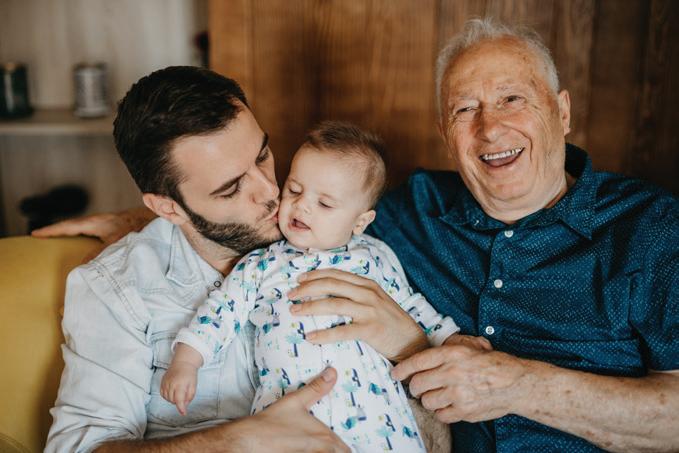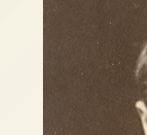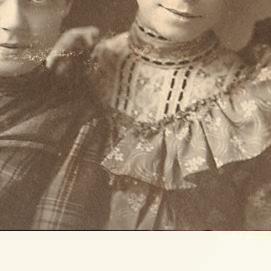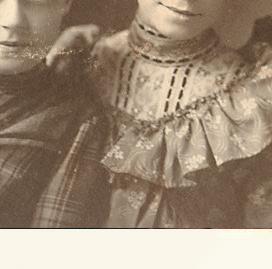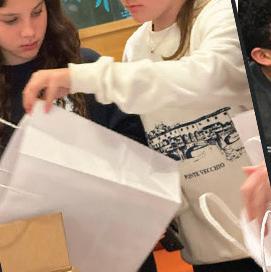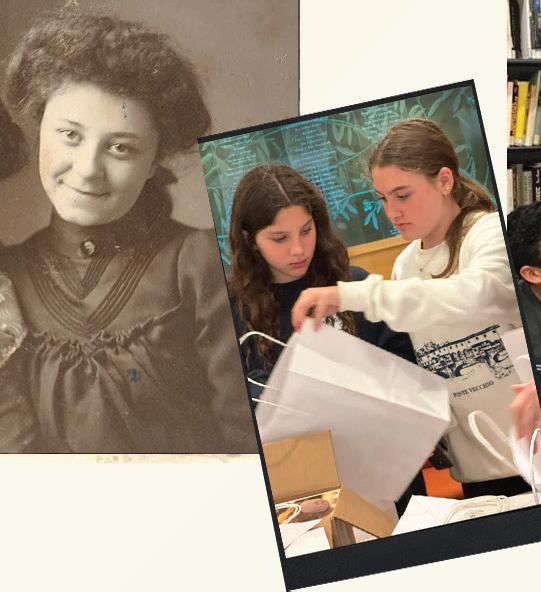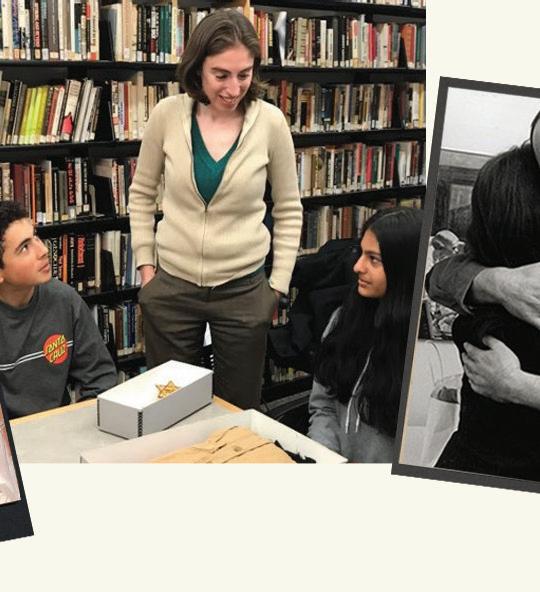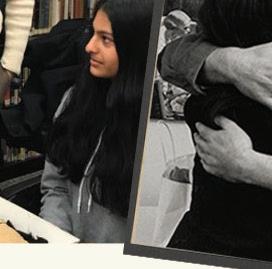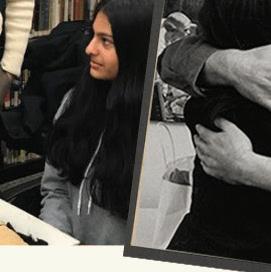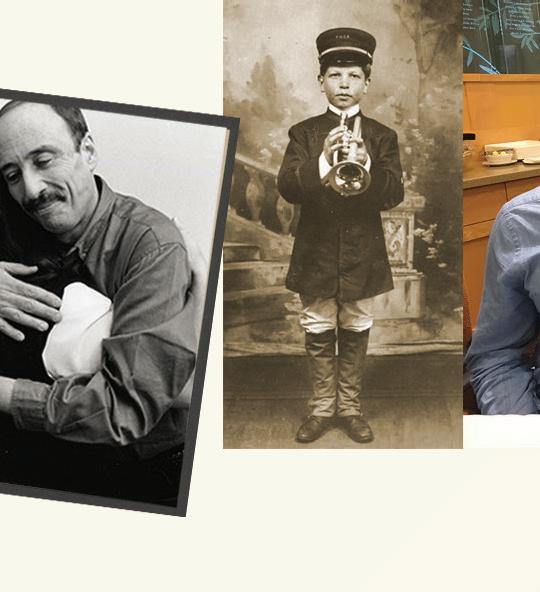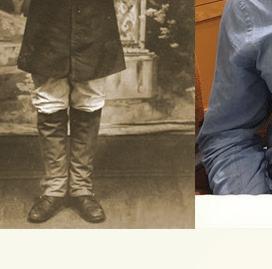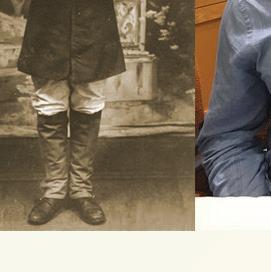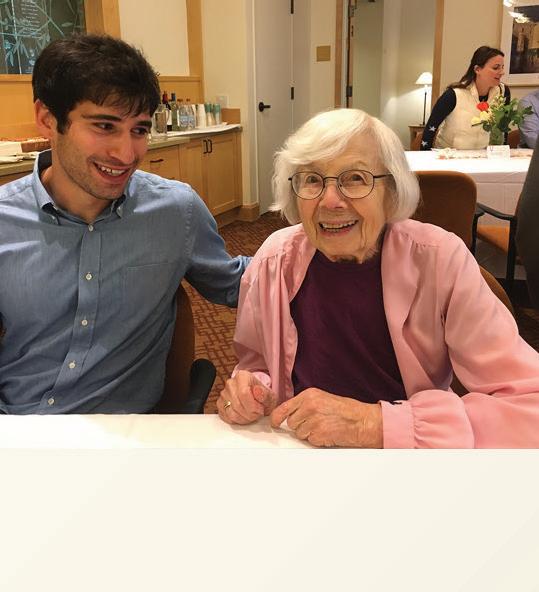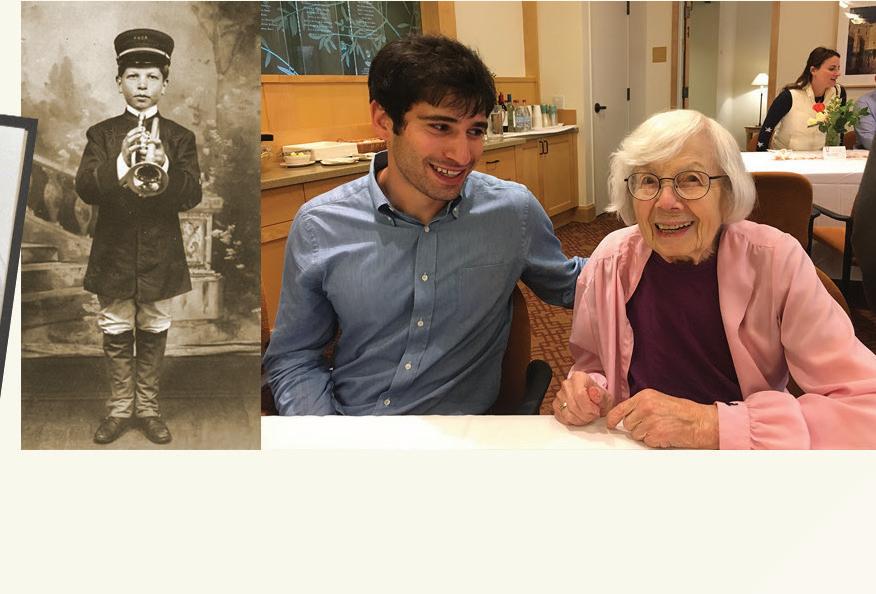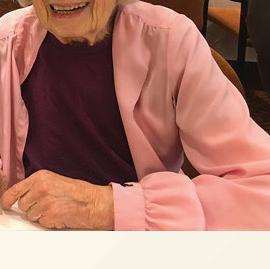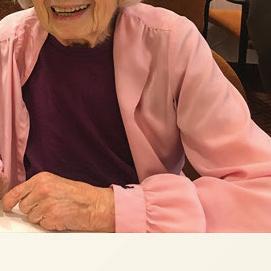



































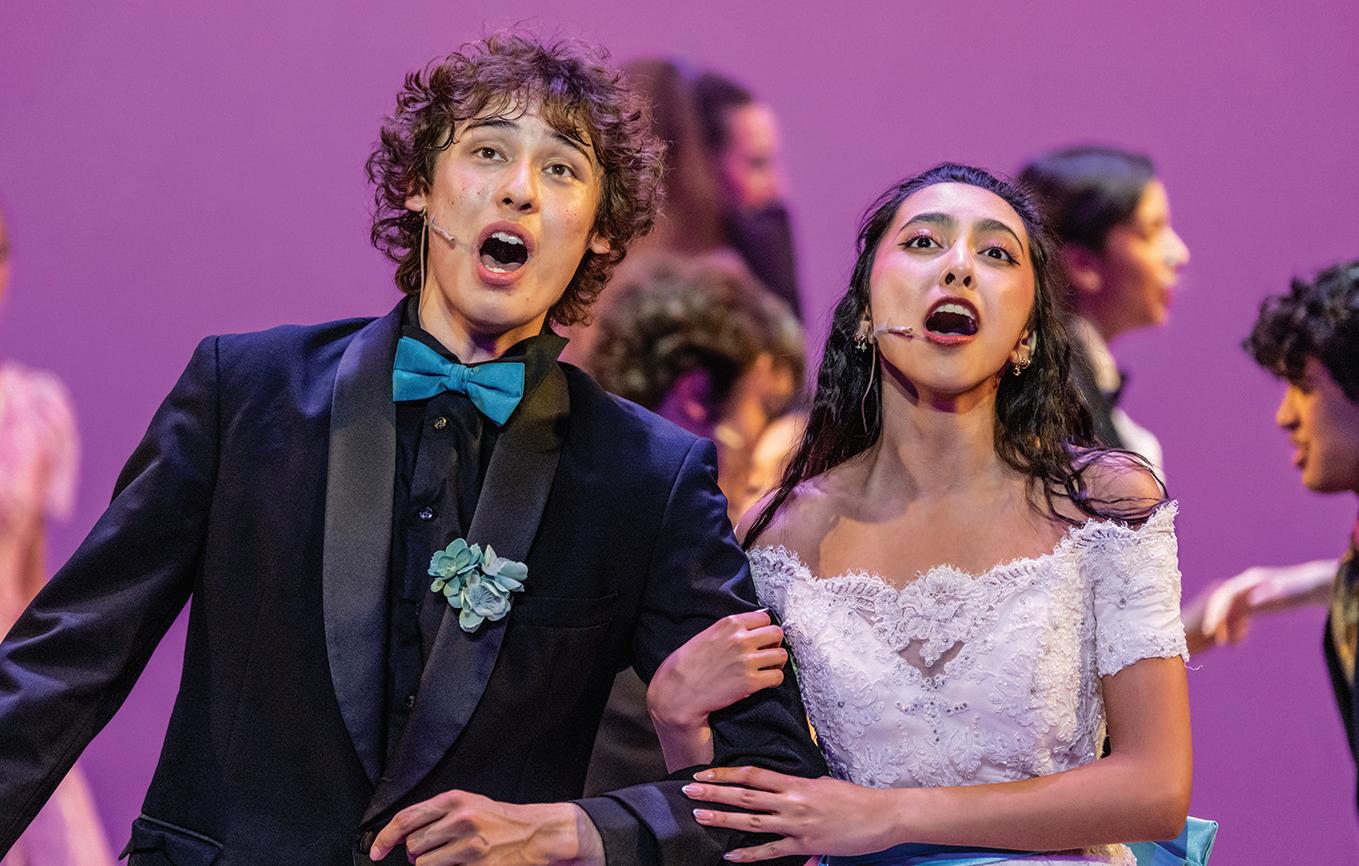
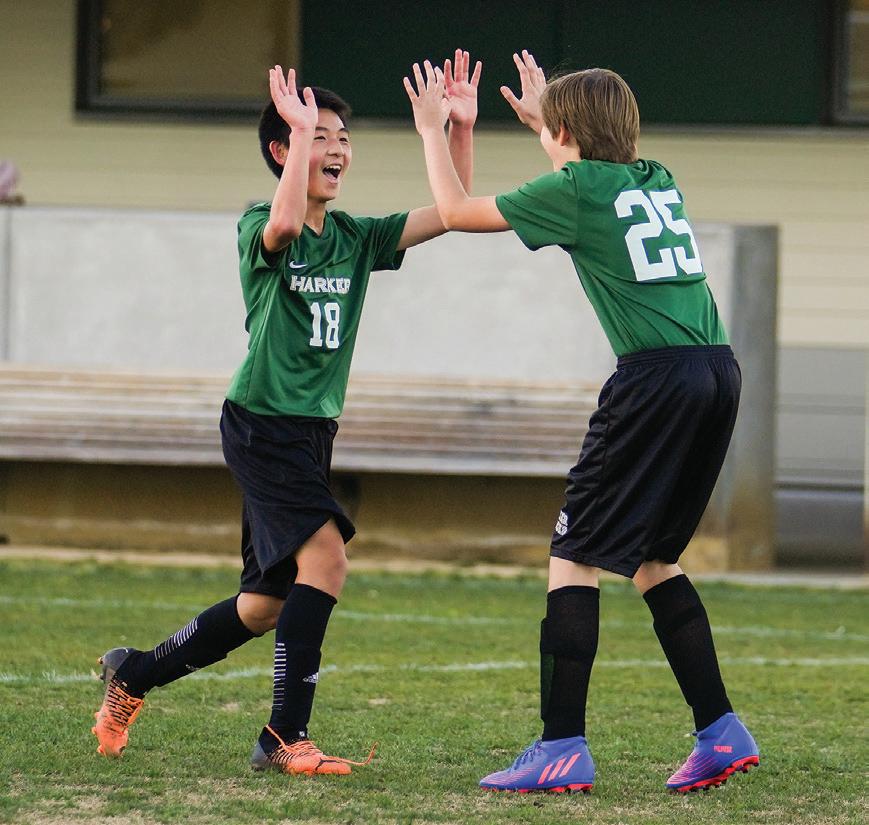
Harker is a welcoming, supportive, fun and close-knit community of students, parents, faculty and alumni that shares a love of learning and making the world a better place.
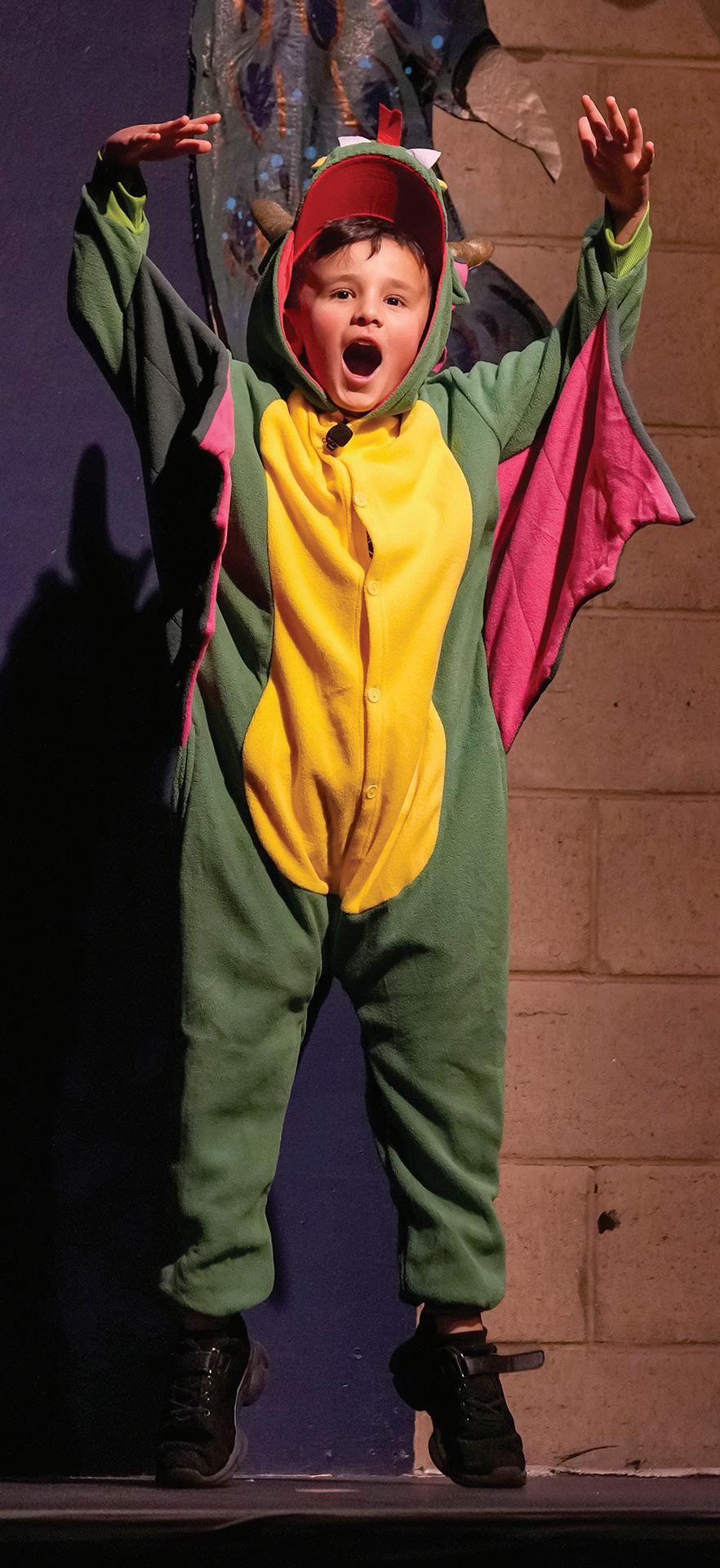


Our greatest goal (and greatest joy) is to help all students uncover their unique gifts. Whether they are directing their own play or pitching a startup, we create a space for all students to try new things inside a community that cheers them on. We encourage children to sculpt, act, sing, play sports, start a club –anything that will help them stretch and grow and truly find the things that they love.
Sure, we have amazing academics and brilliant teachers who absolutely love what they do (and they are a big part of our secret sauce). But wait until you see the choices outside the classroom. Athletics, performing arts, clubs, business and entrepreneurship, debate … the list goes on and on. And when kids try something new and a passion is ignited, that is where the magic happens.
Since 1893 we have been doing what we love –bringing out the very best in children – and we welcome you to join our community!

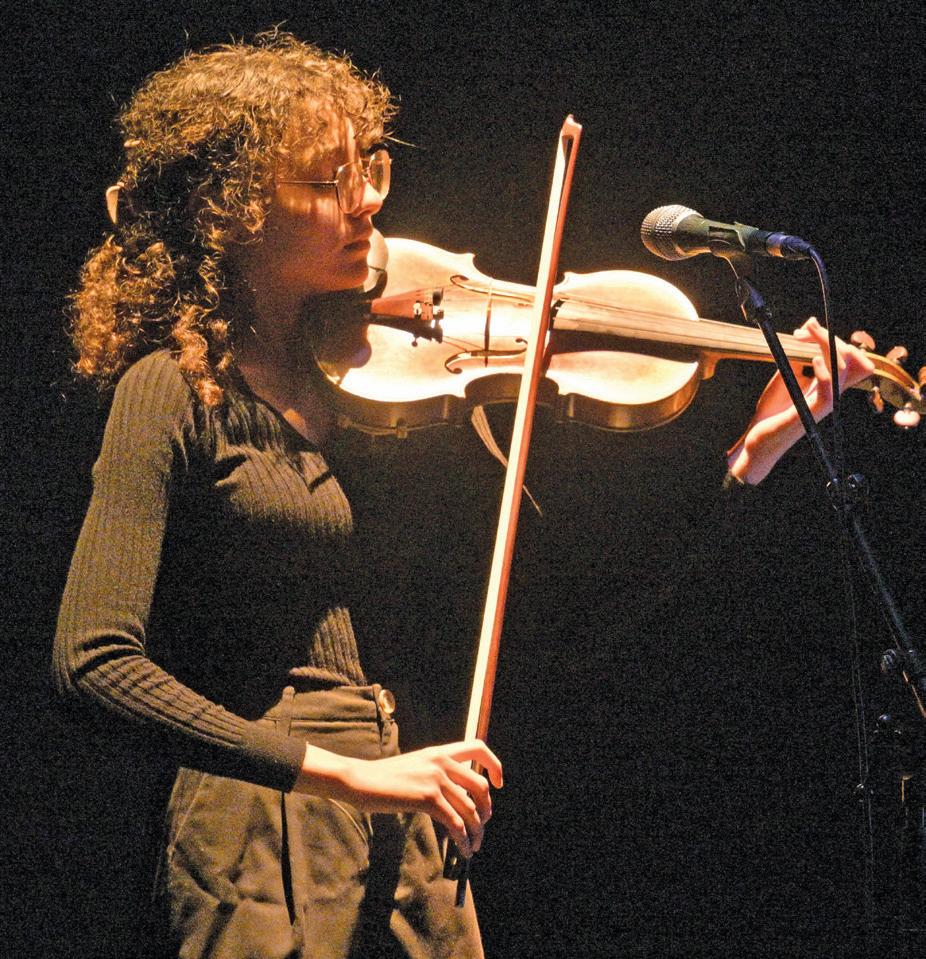
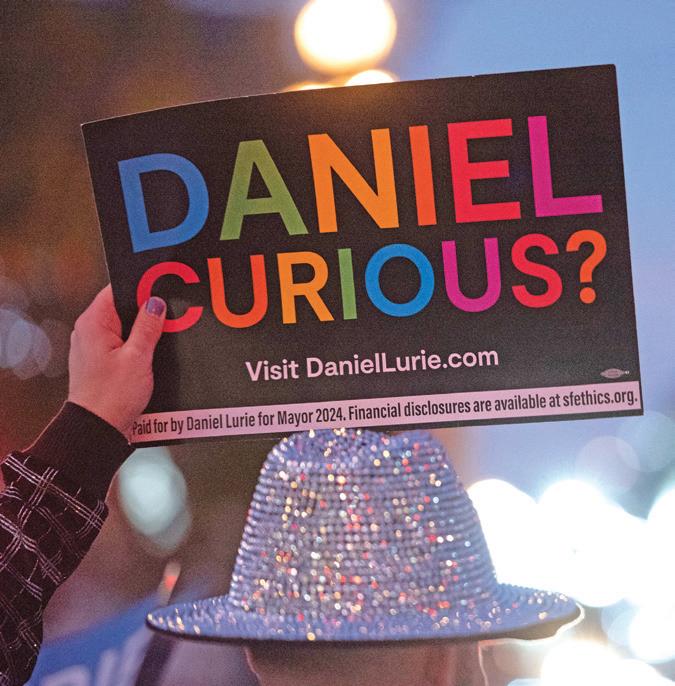
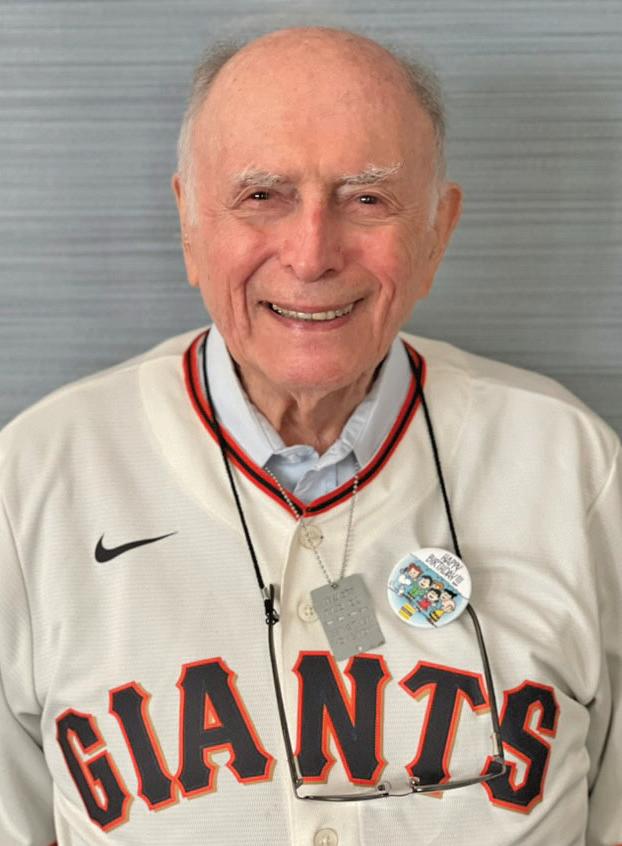

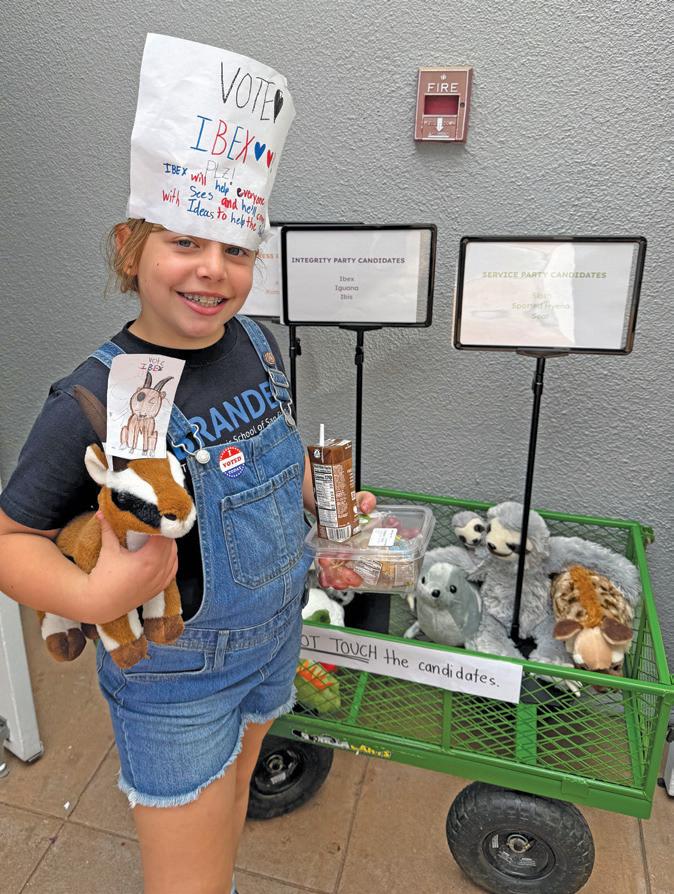
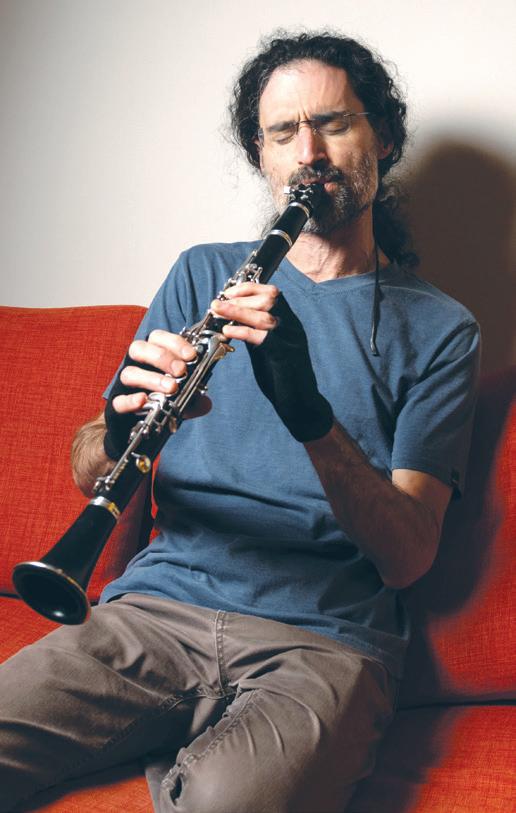
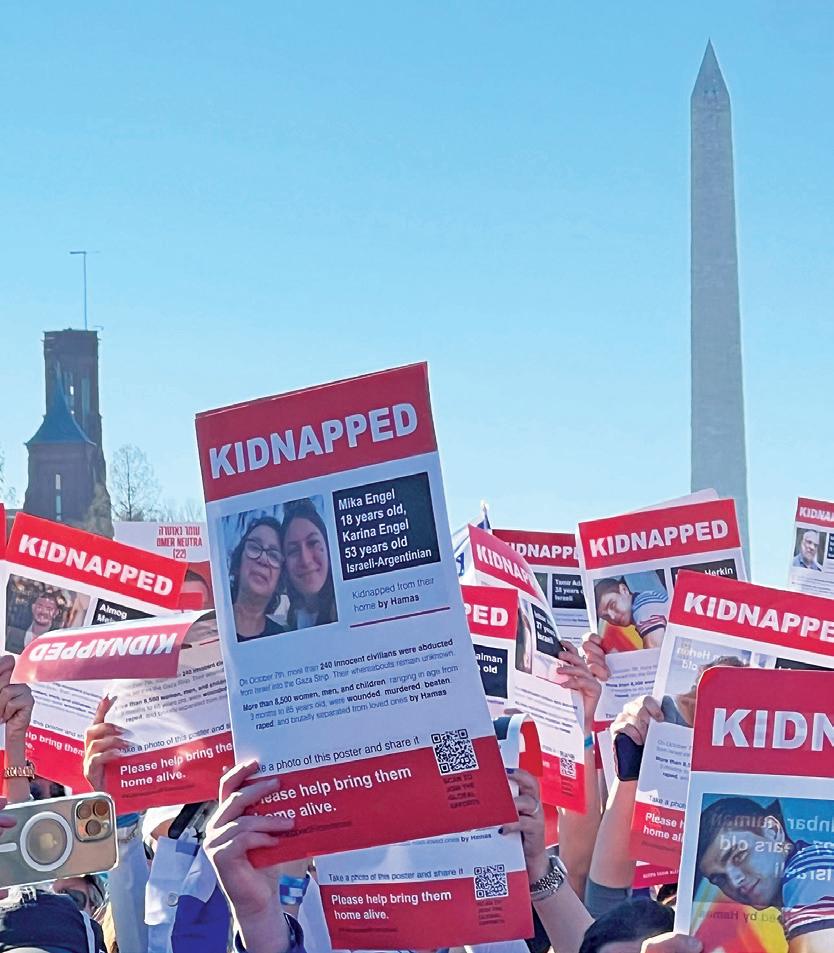
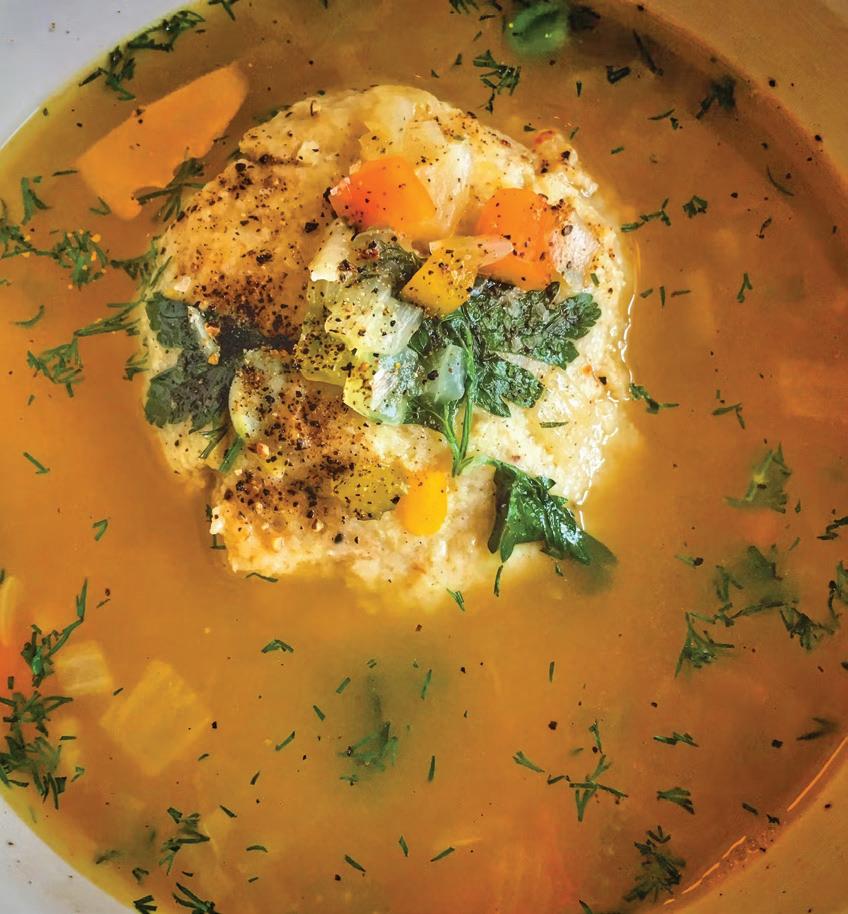




Livestream Available
Two folk legends join together for an evening of classic songs from their storied careers.
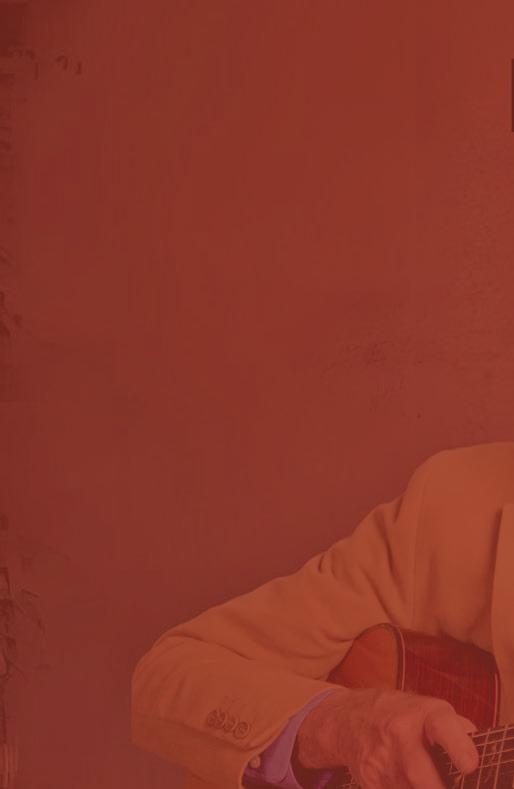
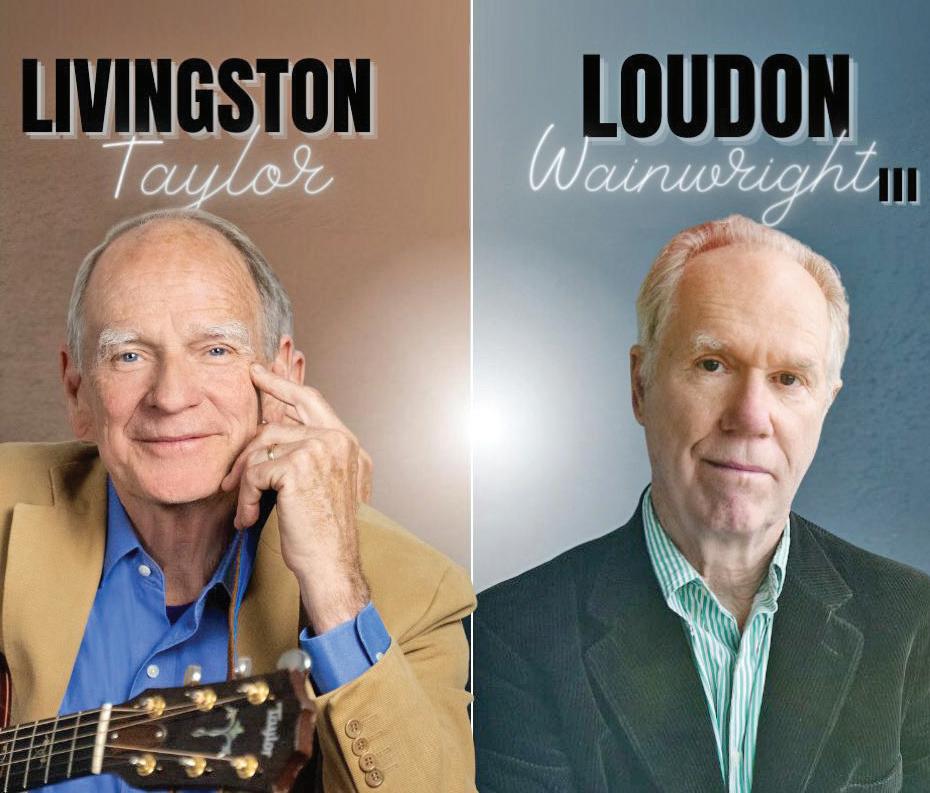
SENIOR EDITOR Natalie Weinstein NEWS EDITOR Gabe Stutman
INTERIM CULTURE EDITOR Laura Paull STAFF WRITERS Niva Ashkenazi, Emma Goss, Maya Mirsky
ENGAGEMENT REPORTER Lea Loeb
This Klezmer revival band features holiday material and revisit gems from their nearly 40-year musical journey, inspired by the universal hope for the restoration of light and peace around the world.

Program Curator Roman Fukshansky on clarinet, Dan Flanagan on violin, Evan Kahn on cello, Rufus David Olivier on bassoon, & Elizabeth Dorman on piano.
Johannes Brahms: Clarinet Trio in A minor, Op. 114
Mikhail Glinka: Trio Pathétique in D minor
Srul Irving Glick: The Klezmer’s Wedding
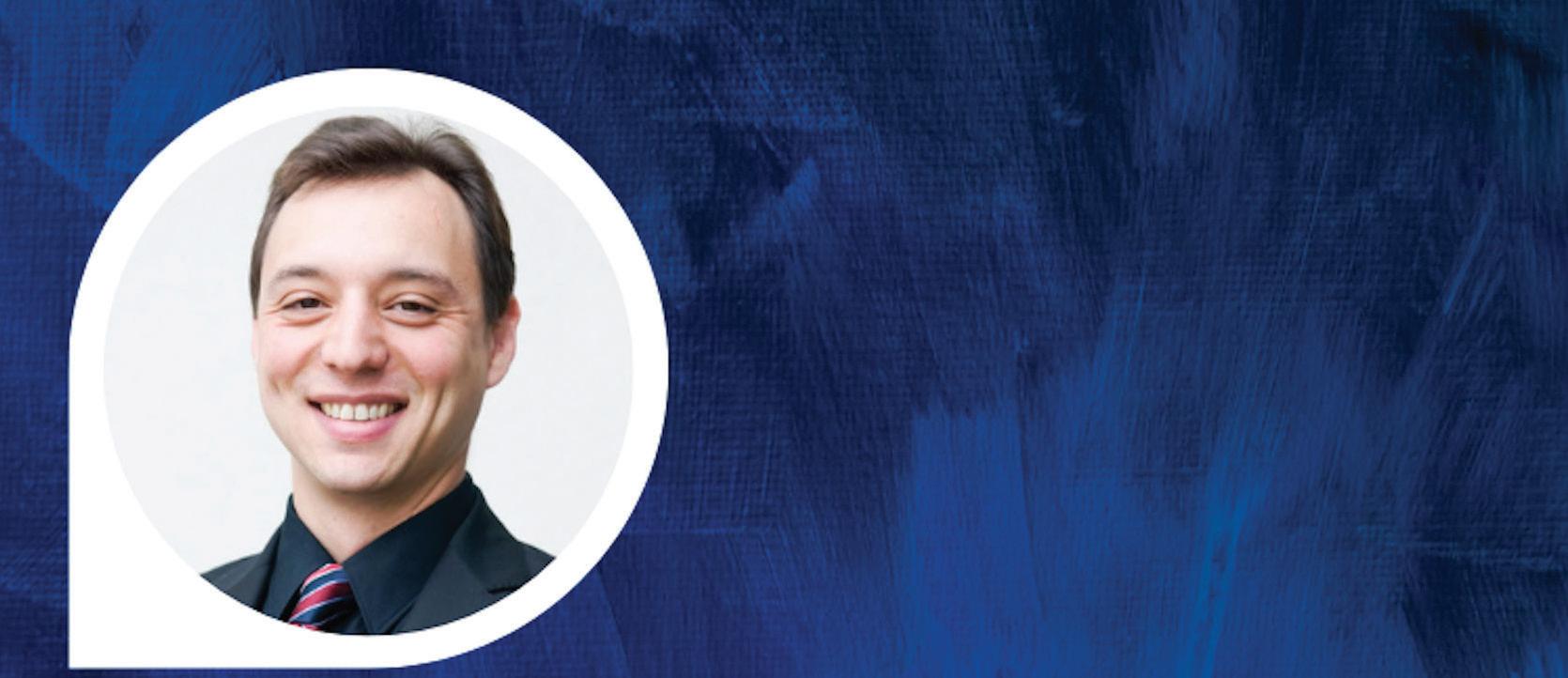
PHOTOGRAPHER Aaron Levy-Wolins
CONTRIBUTING EDITORS Andy Altman-Ohr, Sue Fishko , Dan Pine, Alix Wall
COLUMNISTS Howard Freedman, Karen Galatz, Janet Silver Ghent, Faith Kramer, Dr. Jerry Saliman, Micah Siva
ADVERTISING & PROMOTION
ACCOUNT EXECS Nancy Beth Cohen, Meryl Sokoler
ART & PRODUCTION
DIGITAL TECHNOLOGY DIRECTOR Antonio R. Marquez
GRAPHIC DESIGNERS Michelle Palmer, Steve Romero
BUSINESS
DEVELOPMENT DIRECTOR Allison Green
DEVELOPMENT ASSOCIATE Carrie Rice
MARKETING ASSISTANT Holley Newmark
ACCOUNTING ASSISTANT Linda Uong
TECHNOLOGY
IT SUPPORT Felipe Barrueto
BOARD OF DIRECTORS


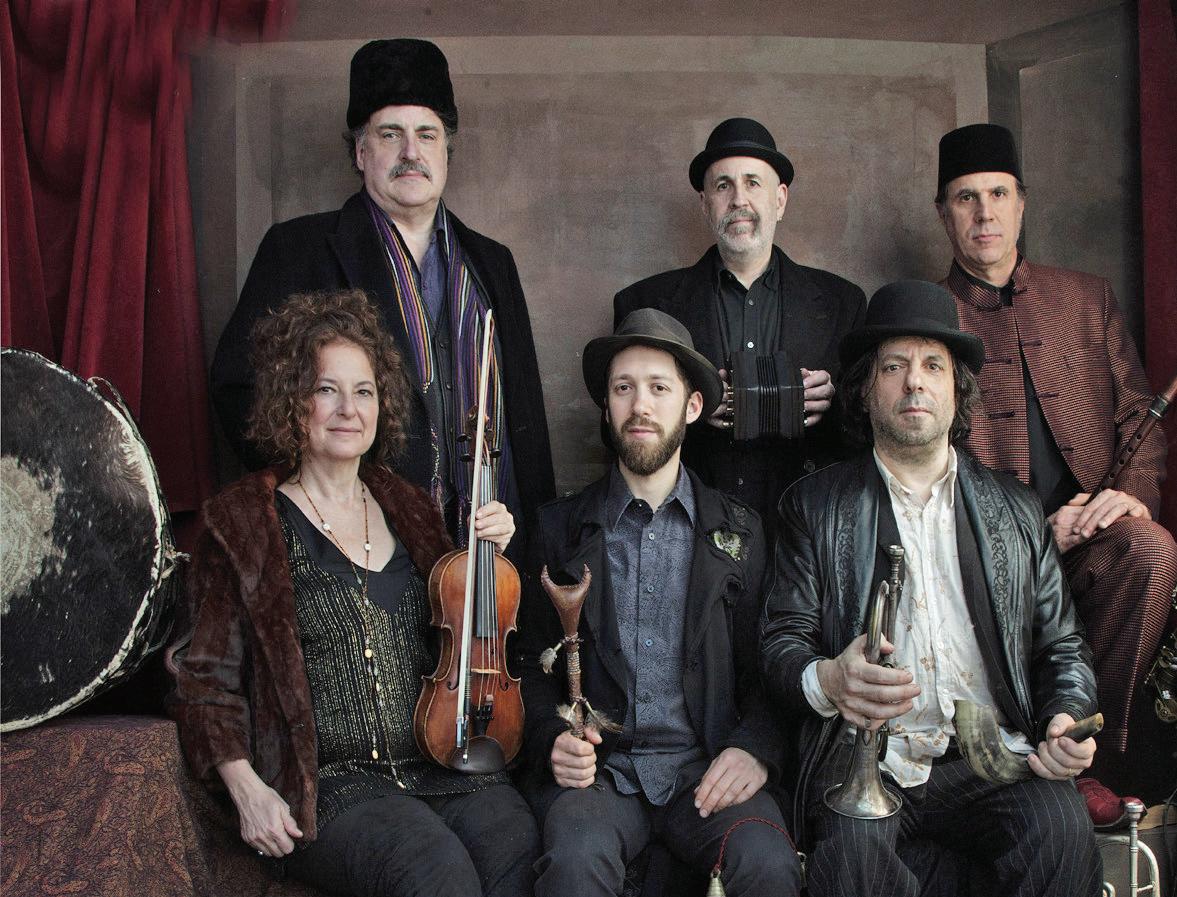
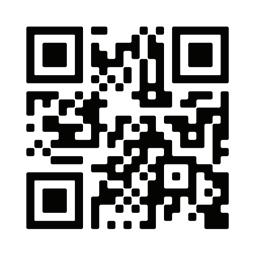
CO-PRESIDENTS Steven Dinkelspiel, Carol Weitz
VICE PRESIDENTS Andy Rittenberg, Jerry Yanowitz SECRETARY Patricia Rosenberg
TREASURER Jane Springwater
MEMBERS Liz Berman, Alex Bernstein, Mark W. Bernstein (imm. past president), David Cornfield, Alexandra Corvin, Rabbi Joey Felsen, Howard Fine, Inna Gartsman, Alia Wechsler Gorkin, Samantha Grant, Steve Katz, Susan Libitzky, Rabbi Deborah Newbrun, Susan Sasson, Harmon Shragge, Peter Waldman
PAST PRESIDENTS Marc Berger, Lou Haas, Jon Kaufman, Dan Leemon, Adam Noily, Lory Pilchik, William I. Schwartz

GABE STUTMAN | J. STAFF
Shocked and disheartened by the result of the presidential election, Bay Area Jewish liberals are trying to come to terms with another Trump win and grieving the end of a once-promising campaign season. Meanwhile, Jewish supporters of the 45th president are celebrating his return to the White House and what it might promise for Israel.
Kamala Harris, who was born and raised in the East Bay and entered politics as San Francisco’s district attorney, came to symbolize a fresh start for Jewish liberals in California. Many of them grew excited about the prospect of electing the first woman and the first woman of color to the presidency, especially one they believed had shown strong support for Israel as vice president and whose husband, Doug Emhoff, is Jewish. Harris won broad support among American Jews in general and California Jews in particular.
What some predicted would be a Jewish flight from the Democratic Party over concerns about antisemitism or Israel didn’t exactly materialize, even as a solid minority supported
“America First, to me, means Israel Later.”
Offir Gutelzon, Kamala Harris voter
Donald Trump. Many backers cited the belief that Trump proved himself a strong supporter of Israel; they linked Harris to anti-Israel sentiment within parts of the Democratic Party.
An NBC exit poll showed Jewish support for Harris at 78% vs. Trump at 22%. Another commissioned by liberal pro-Israel group J Street found that Harris won 71% of the Jewish vote compared with 26% for Trump, which is in line with national averages dating back to the 1960s, according to Haaretz. A Fox News voter analysis showed a lower percentage for Harris at 66% of Jewish voters, compared with 32% for Trump.
Yet the Harris bid for the White House ended in convincing defeat on Nov. 5, leaving Bay Area liberal Jews dazed, shocked and ultimately concerned and uncertain about what Trump’s second presidency will mean for American Jews and for Israel, multiple people told J. over the past week.
Offir Gutelzon of Palo Alto, an Israeli American with dual citizenship, co-founded a group called Israeli-Americans for Kamala and voted for her. Prior to Oct. 7 of last year, he spearheaded pro-democracy, anti-Benjamin Netanyahu protests worldwide through a group of Israeli expats he co-founded called UnXeptable.
Even though Trump enjoys broad support among the Israeli public, Gutelzon told J. on Nov. 6, he views a future Trump presidency as rife with uncertainty when it comes to the U.S.-Israel relationship because Trump has flirted with both isolationism and support for bad actors on the world stage.
“America First, to me, means Israel Later,” Gutelzon said.
“America First means that he works with Russia, he works with Iran.”
Gutelzon acknowledged that Trump, because of his track record dealing with Saudi Arabia, may be able to “force Netanyahu to do something” that would increase the chances of peace in the region. But overall Gutelzon pointed to an unpredictable element of Trump’s foreign policy that he felt makes Trump a much more wobbly choice for Israel than Harris.
“If he doesn’t help Ukraine, why would he help Israel?” Gutelzon said, noting that Vice President-elect J.D. Vance represents an isolationist strain of the Republican Party.
Among the Bay Area’s Jewish Trump supporters is Zvi Alon, a Los Altos Hills venture capitalist and philanthropist. Alon said he was “ecstatic” on election night, telling J. that he has strongly opposed, for example, the Biden administration’s pressure on Israel during the Israel-Hamas war, such as pressuring the IDF not to enter Rafah.
“The change is very good and positive,” Alon said of Trump’s victory. “Not only for Israel. For the U.S. and for the world.”
The Bay Area is a liberal stronghold in which Trump-supporting Jews have at times felt the need to hide their political preferences. By contrast, liberals have shared their strong reactions to the election result publicly. Some synagogues, for example, held community gathering sessions to process what had just happened.
“So many core values that I and others hold dear around — democracy and reproductive health and LGBQ equality and health care access and climate action — he’s going to be a disaster for so many of these things,” Wiener said.
He added that the election result should push the Democratic Party to do some soul-searching.
“The strength of the Democratic Party, for so many years, was that it was a big tent party,” he said. Wiener pointed to weakness with working-class and non-college-educated voters and to the party’s loss of the popular vote. “We’re at risk of losing that,” he said of the Democrats’ “big tent” appeal. “And we must never lose it.”
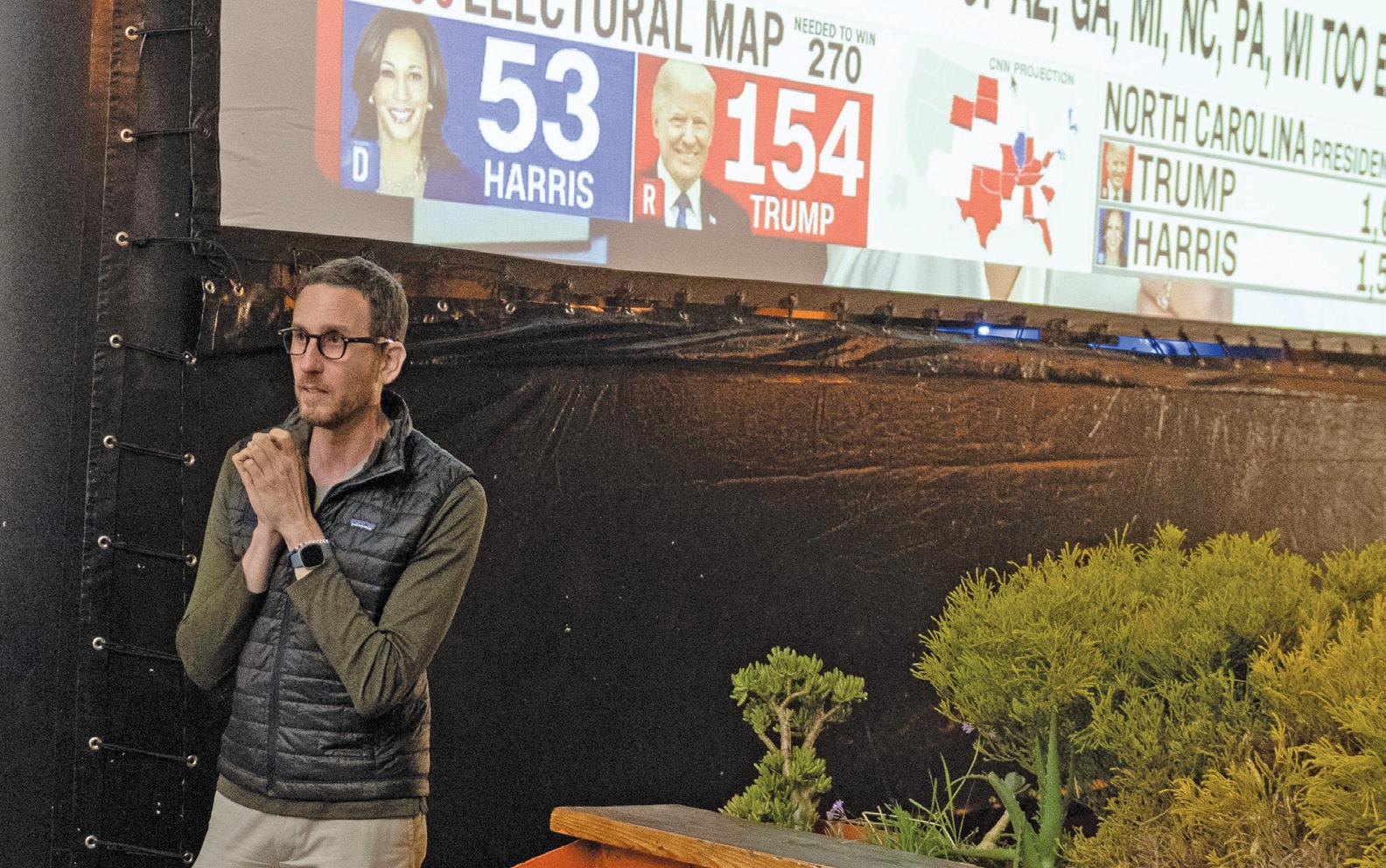
At Chochmat HaLev, a Renewal synagogue in Berkeley, almost 200 people gathered the night after Election Day “to hold each other in song, prayer, meditation, ancestral wisdom, and sharing,” according to an email from Zvika Krieger, the synagogue’s spiritual leader.
“It’s been a hard week,” Krieger’s Nov. 7 email began. Referencing the month of the Hebrew calendar, “MarCheshvan is not a time for naive optimism,” Krieger wrote. “It’s the reminder that the arc of history is long, and that today’s tears may be the water for tomorrow’s possibilities.”
Democratic state Sen. Scott Wiener of San Francisco, who won his re-election bid with 78% of the vote against a Republican challenger, told J. that he was “devastated” by the result of the presidential election.
Jan Reicher, board president of the Jewish Community Relations Council Bay Area, volunteered with and donated to the Harris campaign. She said the election result left her feeling “numb.”
Reicher is also still processing all of the challenges that the U.S. and the Jewish community will be facing all at once.
“There is so much to hold right now between the rise in antisemitism, what’s going on in Israel,” and an election result that she found disappointing and concerning.
“I felt like yesterday was a day of mourning,” she said on Nov. 7, adding that “today, we go back and continue our work.”
On Israel, Reicher said she felt confident that Harris would have been a “good friend” of the Jewish state. With Trump, she isn’t sure.
“There was a track record from his last presidency, but things have changed dramatically since then. … We hope that he’ll be great,” she said, but “we don’t know.” n
MAYA MIRSKY | J. STAFF
Daniel Lurie, a nonprofit founder and philanthropist from a prominent Jewish family, will be San Francisco’s next mayor — and the fourth Jewish mayor in the city’s history.
Lurie, whose victory was announced on Nov. 7, bested incumbent Mayor London Breed 55.5% to 44.5% in ranked-choice voting. With many ballots still to be counted, Breed conceded the race around 4:30 p.m.
Born and raised in San Francisco, Lurie has longstanding ties to the Bay Area Jewish community. His parents, who divorced when Daniel was a child, are Rabbi Brian Lurie and Miriam “Mimi” Lurie Haas.
His mother married Peter Haas, a great-grandnephew of Levi Strauss, making Daniel an heir to the Levi’s fortune. The Haas family has donated massive sums to institutions across the Bay Area over decades. Mimi Haas is also president of the

Mimi and Peter Haas Fund, a grant-making organization focused on early childhood education.
Lurie’s father was named assistant rabbi at Congregation Emanu-El, San Francisco’s largest synagogue, in 1969. After working for the United Jewish Appeal in New York, he returned to San Francisco where he served as executive director of the S.F.-based Jewish Community Federation from 1974 to 1991. He later became president of the New Israel Fund, a progressive organization that advocates for democracy and civil rights in Israel, including Palestinian rights.
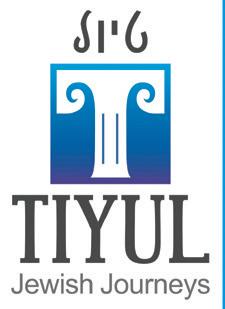
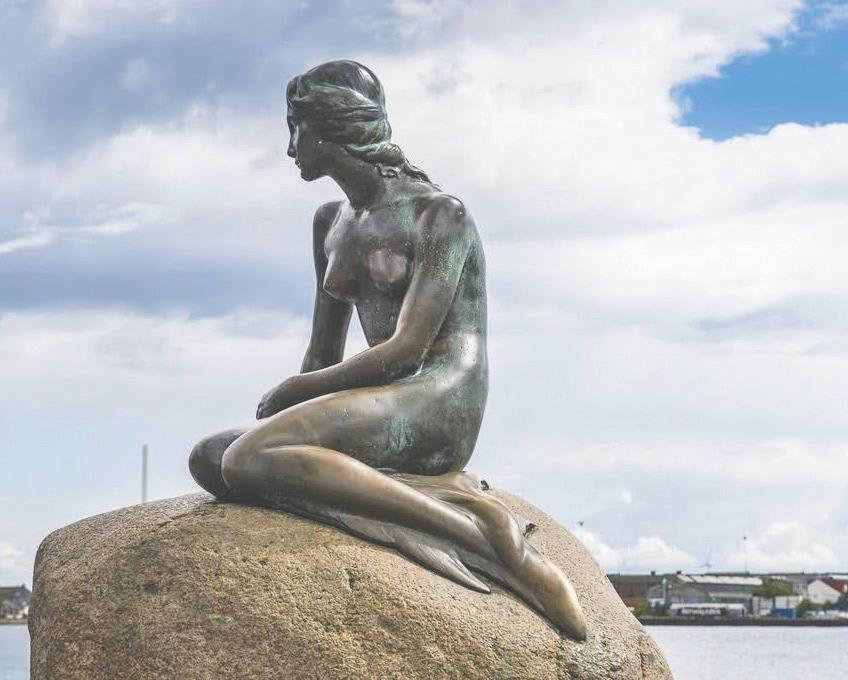
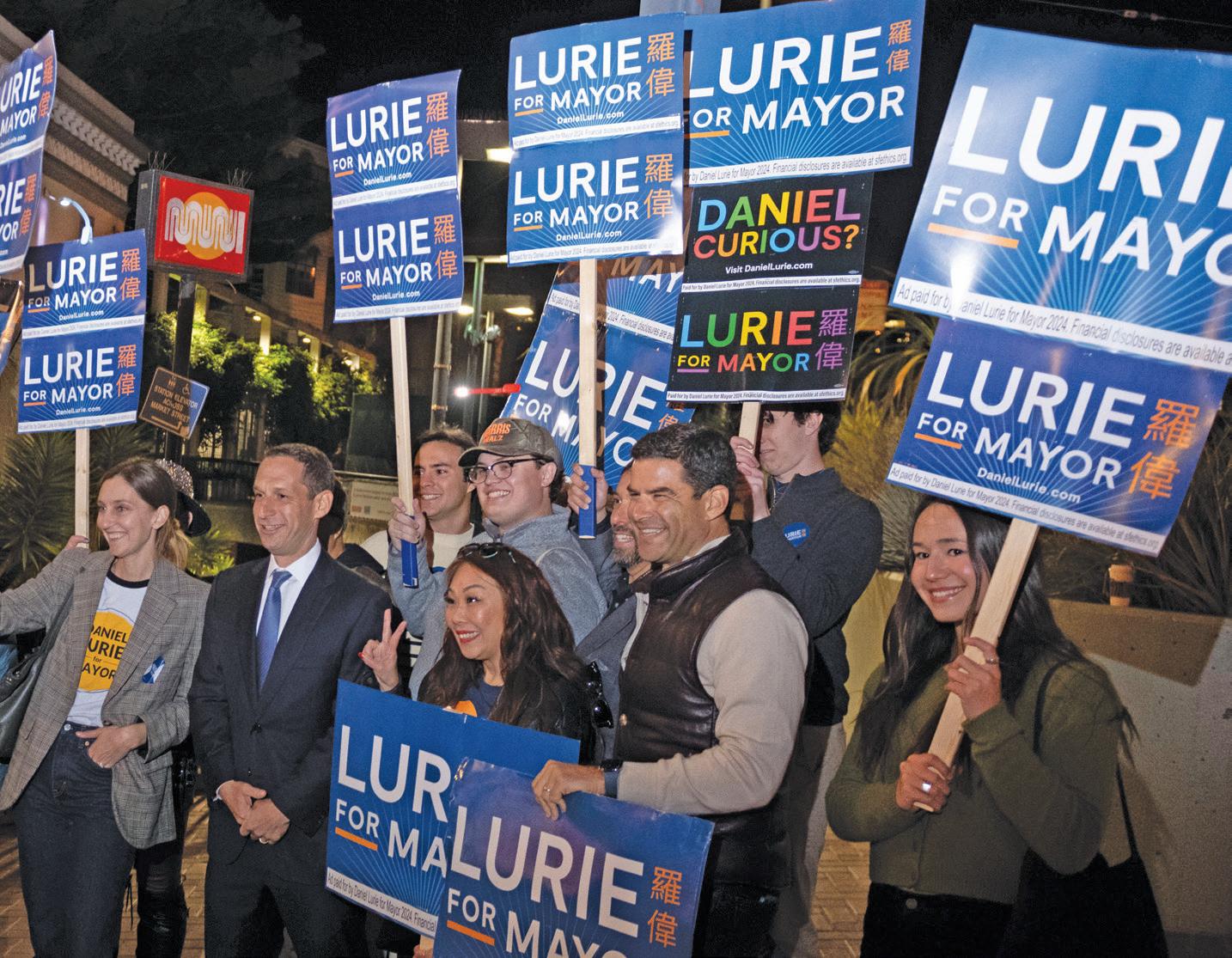
“I am very proud of him for running a hard and challenging campaign,” Brian Lurie told J., adding that many people had called to say that his son’s results are a “silver lining” in an otherwise dismaying election season for Democrats.
Lurie, 47, is married to Becca Prowda, who serves as Gov. Gavin Newsom’s chief of protocol; they have two school-age children. He founded the anti-poverty nonprofit Tipping Point Community, where he served as CEO for 14 years. Tipping Point has given out more than $440 million since its launch, according to the organization’s website. In fiscal year 2023, it gave more than $24 million to nonprofits supporting housing, employment and early childhood education, according to publicly available tax documents.
Lurie, who has a master’s degree in public policy from UC Berkeley, came into the race with no political experience, unlike other mayors going back in time — including Breed, Ed Lee, Gavin Newsom, Willie Brown and Dianne Feinstein — all of whom had won other elections before winning their mayoral races.
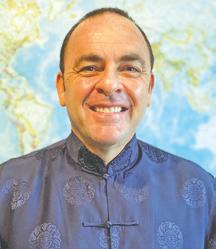
got a boost from the endorsement of the San Francisco Chronicle.
In a Nov. 5 statement, he thanked his family and his supporters, and said he was looking ahead to a new administration.
“You poured your whole selves into this campaign. Now, I am asking you to pour
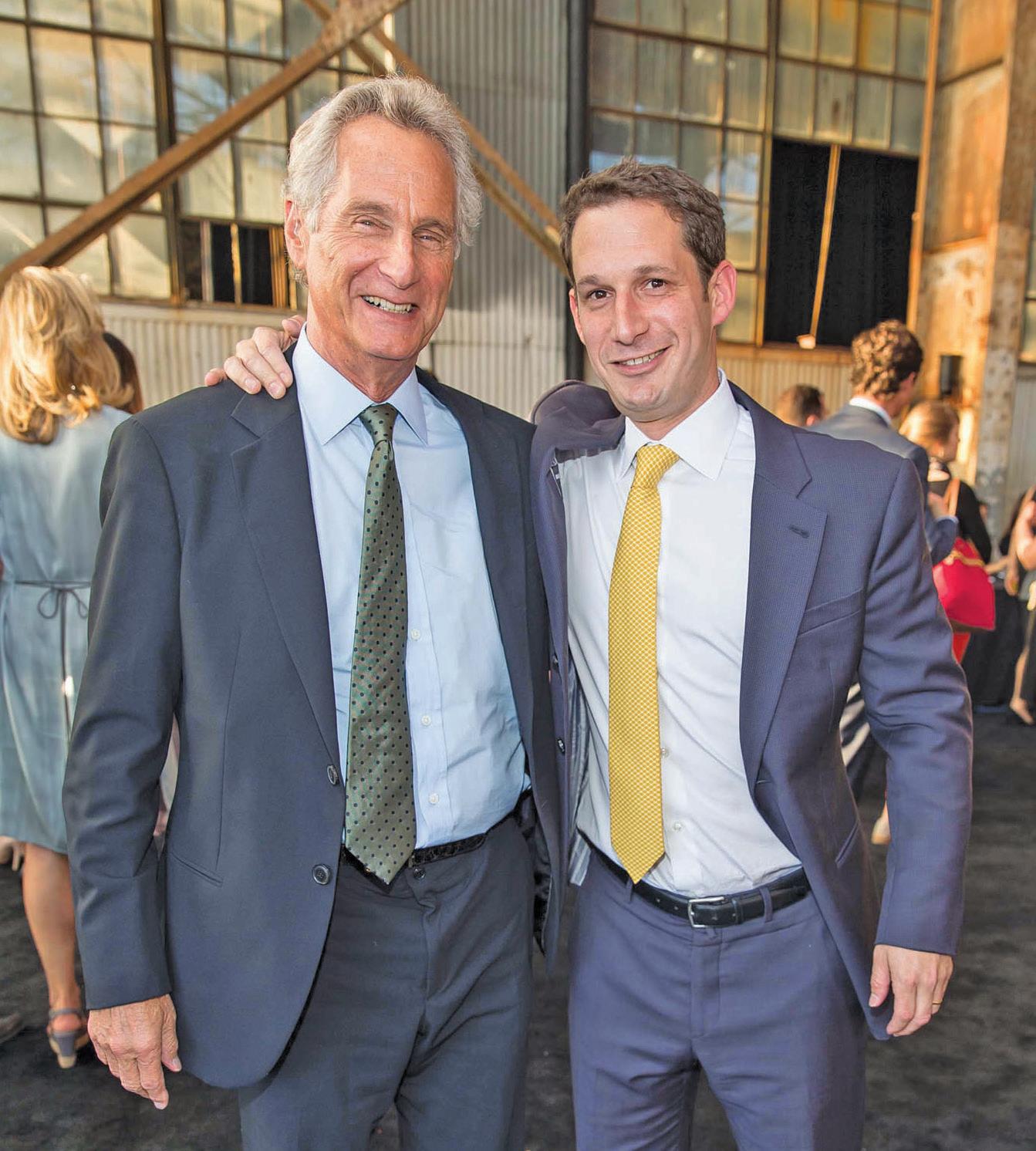
that same passion and energy into turning our city around,” he said. “The campaign is over, but the work continues.”
Lurie filed paperwork to run for mayor in fall 2023. His campaign challenged Breed on issues such as homelessness, the drug crisis and a local economy that has struggled to recover since the pandemic. He ran on a platform of improving public safety and revitalizing downtown. His campaign
Lurie has said he will forgo the mayor’s salary, currently set at more than $383,000 per year, according to the city’s Civil Service Commission. As San Francisco’s fourth Jewish mayor, he follows Feinstein (19781988), Adolph Sutro (1895-1897) and Washington Bartlett (1883-1887). n
LAURA PAULL | J. STAFF
The Contemporary Jewish Museum announced this week that it will close temporarily, citing a decline in attendance and the need to develop “financial stability and a sustainable operating model for the future.”
The landmark building in downtown San Francisco with its eye-catching annex designed by Jewish architect Daniel Libeskind will shut its doors on Dec. 15 for at least one year, according to a press release.
The 19-member board of trustees voted unanimously to approve the temporary closure.
About two-thirds of the 30-member museum staff will be put on leave in a staged series of layoffs, without a definite return date, leaving a core staff of 11.
“We must scale back to allow ourselves the time and resources needed for re-imagining and rebuilding,” executive director Kerry King said in the Nov. 13 release. “It is far better for us to take necessary steps towards restructuring now, rather than waiting until we no longer have options. This decision does not come without significant pain because it will affect our team of extraordinary and deeply dedicated individuals who work tirelessly to fulfill The Museum's mission."
Since its establishment in 1984 in a small gallery space in the bottom of the Jewish Community Federation building a few blocks away from its current site, the museum has described its mission as offering the space and opportunity
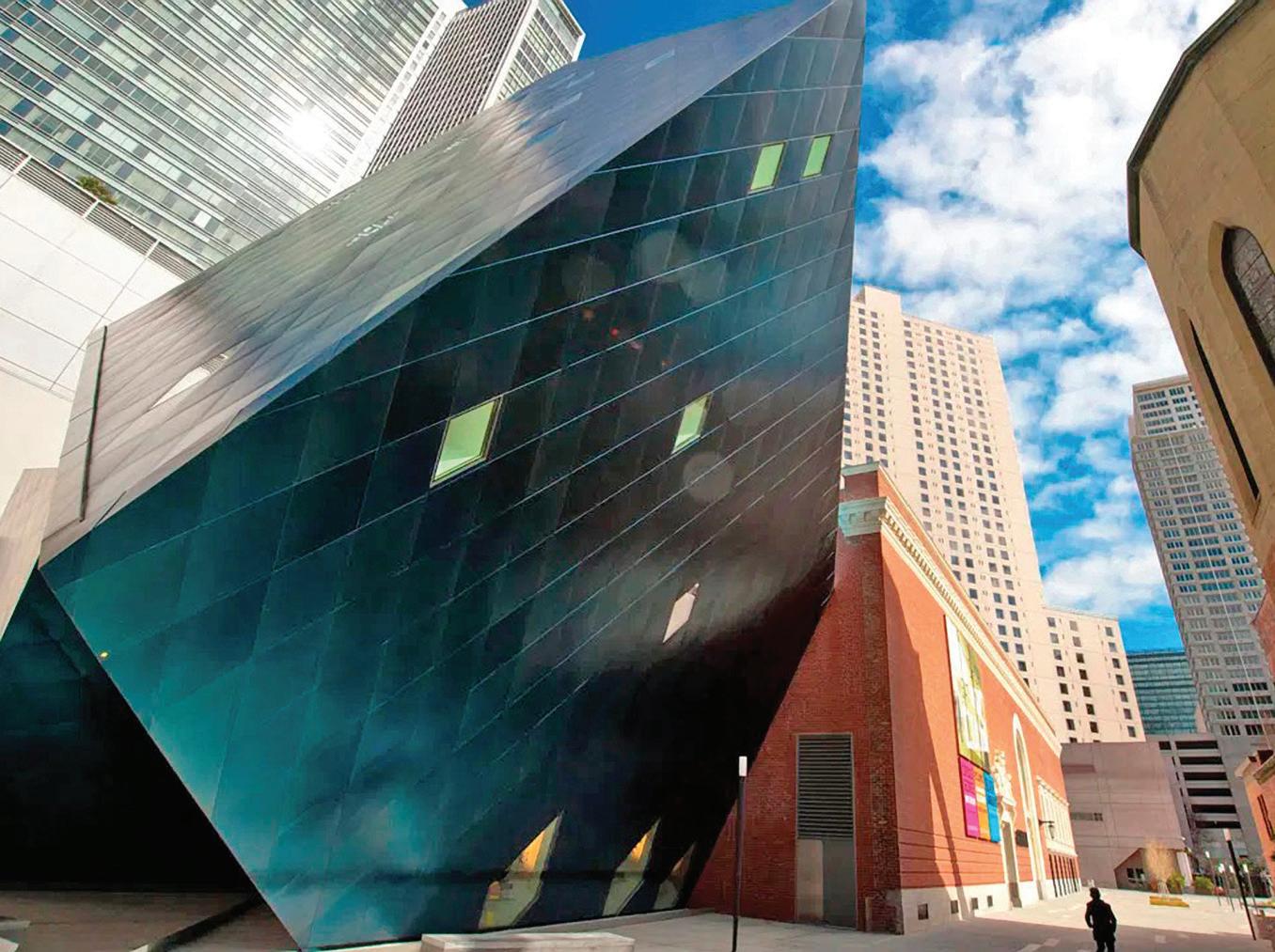
to express Jewish identity and Jewish values through contemporary art. In 2008, CJM moved into its current building.
CJM has never had a permanent art collection. Instead,
it has presented original and traveling exhibitions, as well as educational programs and community events. The decision to follow this path was an “investment in the creative potential of living artists,” former CJM chief curator Renny Pritikin said in 2018 when the museum marked its 10th anniversary.
The museum’s Dorothy Saxe Invitational exhibits, for example, invited artists to contribute original works responding to a specific Jewish ritual object, idea or cultural practice. The most recent of those 12 exhibits, “Tikkun: For the Cosmos, the Community, and Ourselves,” took place in 2022.
Increasingly, the CJM’s mission has also included community education about antisemitism and other forms of hate. “Given the increase in antisemitism over recent years, The CJM’s mission to educate, promote understanding, and celebrate Jewish culture is more critical than ever,” the museum’s release said.
Board chair Tom Kasten said the museum’s goal in shutting temporarily is “to design a sustainable model that not only preserves but amplifies its impact.”
continued on page 16
By Charlotte Boise

MAYA MIRSKY | J. STAFF
While Jewish Americans digest the news of the 2024 presidential election outcome, there are dozens of regional election results of interest to the Bay Area Jewish community. Here’s how Jewish and Jewish-favored candidates did in their races.
Daniel Lurie, a philanthropist from a prominent Jewish family and an heir to the Levi Strauss fortune, won the mayor’s race in San Francisco by 11 points, besting incumbent Mayor London Breed, 55.4% to 44.6%, after 14 rounds of ranked-choice voting. All other candidates were eliminated after 13 rounds, including Aaron Peskin, who is also Jewish and serves as president of the S.F. Board of Supervisors. His current term runs through Jan. 8.
Myrna Melgar, a Jewish Latina from El Salvador elected to the Board of Supervisors in 2020, held onto her District 7 seat with 52.7% of the vote. Dean Preston, another Jewish supervisor, lost his bid for re-election in District 5 after the fourth and final round.
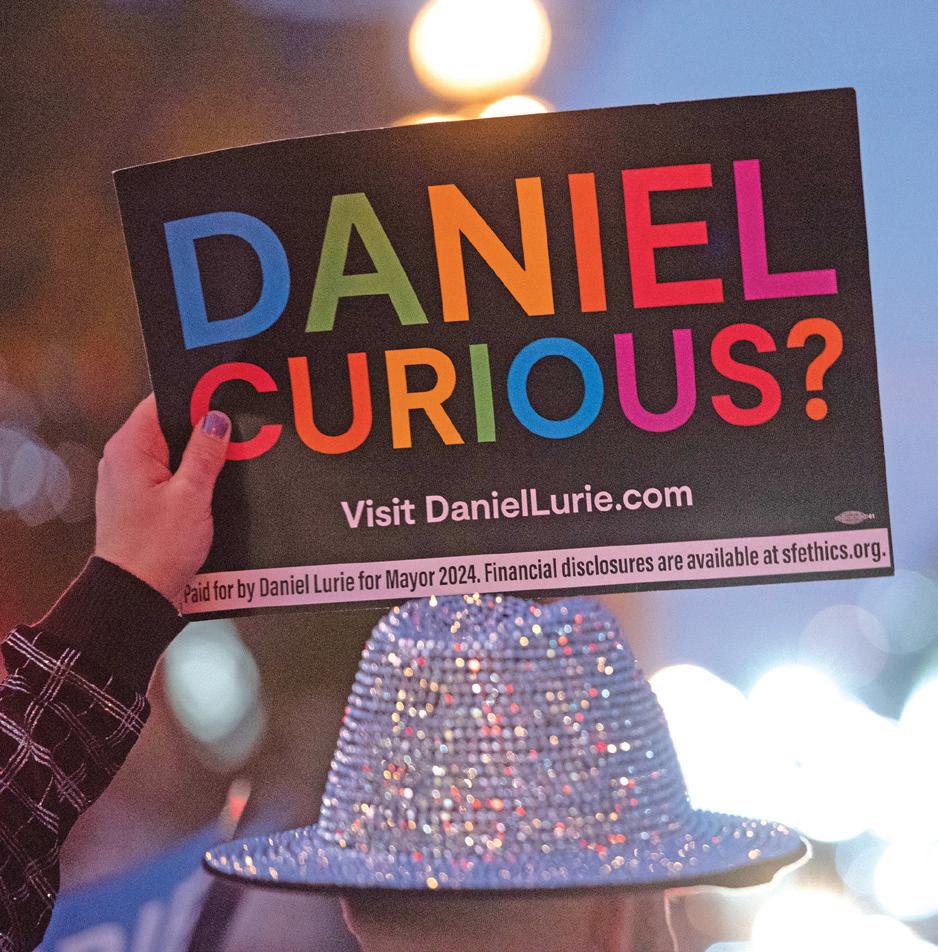
Two Jewish Oakland councilmembers are stepping down: Dan Kalb and Rebecca Kaplan. Kalb will be replaced on the council by Zac Unger, a former firefighter and labor leader, who is also Jewish and sailed to victory with a strong majority.
Five seats were contested overall. Carroll Fife, who introduced a cease-fire vote before the Oakland City Council in November 2023, kept her seat with 56.8% of the vote. She was endorsed by the Arab Resource and Organizing Center, an anti-Zionist group.
Jewish volunteers went door-knocking for Berkeley council and mayoral candidates in a city that is still roiled by calls — so far, unsuccessful — for a cease-fire resolution in Israel’s war with Hamas.
“We published a voter recommendation page that reached thousands of Berkeley voters, and we organized
dozens of volunteers who put in hundreds of hours knocking on doors, handing out flyers, making phone calls, writing postcards and hosting house parties in order to ensure that the Jewish community continues to have local office holders who will stand by our side,” said Itamar Landau, an organizer of the Jewish Coalition of Berkeley, which formed in the past year over concerns about antisemitism.
The effort seems to be paying off.
Sophie Hahn, who was backed by the Jewish coalition, looks to be Berkeley’s next mayor, based on ranked-choice voting with 100% tallied and a 382-vote lead ahead of her next challenger as of Nov. 11, according to Alameda County’s registrar of voters, which releases results just once a week.
Hahn would replace outgoing Mayor Jesse Arreguín, long considered a stalwart against a cease-fire resolution pushed by Palestinian supporters. He looks set to win his bid for the state Senate — on Nov. 12 he was leading with 59.2% of the vote, but the race had not been called — and will no longer be a player in Berkeley’s local politics.
Amid a tense climate that has spilled over into the schools, local Jewish grassroots organizations were stumping for Hahn, a Jewish councilmember who has represented North Berkeley since 2016. Rival Kate Harrison said she would support a cease-fire resolution but didn’t make it past the third round in ranked-choice voting.
Four Berkeley districts had elections for city council. Hahn gave up her seat to run for mayor and will be replaced by newcomer Shoshana O’Keefe, according to Berkeleyside. Susan Wengraf, who is Jewish and did not support the council voting on cease-fire measures as proposed, has retired after 16 years on the council. She will be replaced by Brent Blackaby, whom she endorsed.
Challenger Jenny Guarino did not manage to unseat Terry Taplin, who has been quoted as saying “Israel has a right to defend itself.” Ben Bartlett, who has supported a federal cease-fire resolution that has the backing of progressive members of Congress, also fended off challengers, with 69% of the votes at last count.
Former San Jose Mayor Sam Liccardo beat state Assemblymember Evan Low by 17 percentage points in the race for the 16th District congressional race. Both candidates courted the Jewish vote in a tough race.
Low wore a yellow wristband in support of the hostages held captive in Gaza. In July, he posted on X about the “vile hate” from pro-Palestinian protesters who interrupted legislators in the Capitol building.
Most recently, he posted Yom Kippur wishes on Facebook, while Liccardo posted Rosh Hashanah greetings. The Jewish Democratic Coalition of the Bay Area endorsed Low; the liberal Israel advocacy organization J Street endorsed Liccardo.
Kevin McCarty has a strong lead in his bid to replace Sacramento’s two-term Jewish mayor, Darrell Steinberg, who is stepping down after a decadeslong career in politics, according to the Sacramento Bee. Steinberg made headlines in May 2023 when he shut down an antisemitic speaker during council public comments: “OK, see you later pal,” Steinberg said. “We don’t want to hear any more from
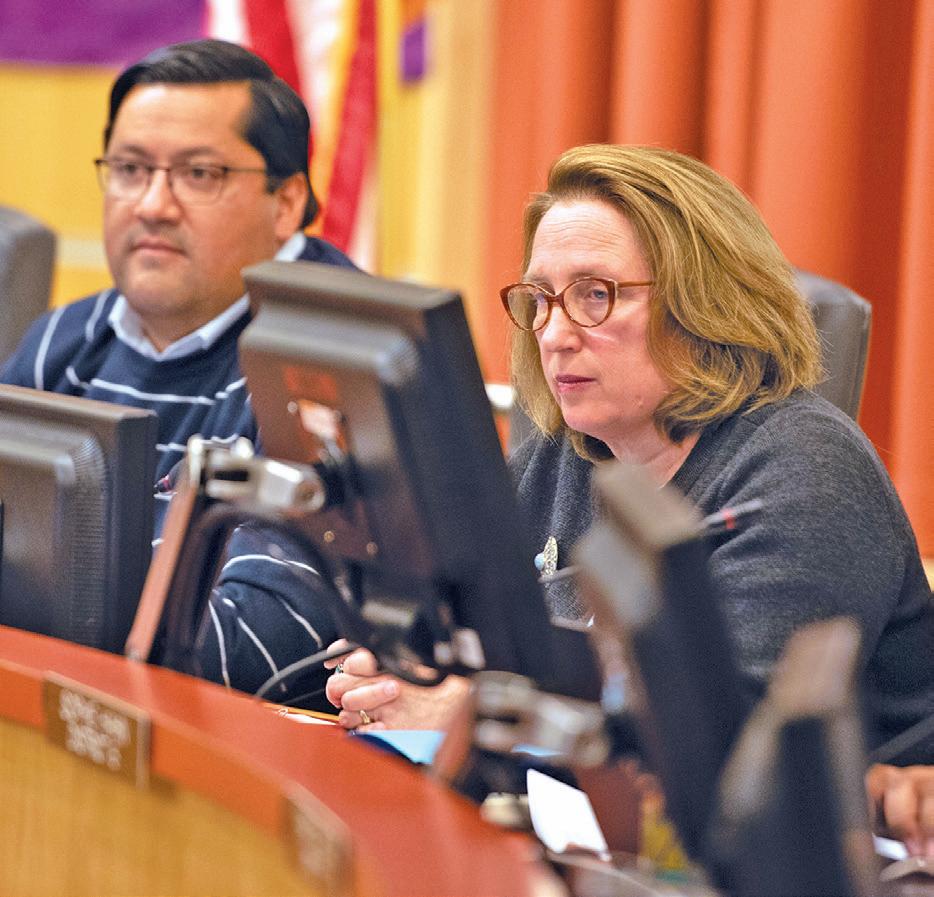
you. We don’t want to hear any more of your shit.”
In March of this year, Steinberg somewhat controversially brought forth a compromise cease-fire resolution that said “Israel remains the hope that Jews can live safely and freely and never again face threats to their very existence.”
McCarty, an outgoing state Assemblymember, got “100%” on a scorecard of California legislators put out by the Jewish Public Affairs Committee, the lobbying arm of the organized Jewish community.
The race has been called for state Sen. Scott Wiener, who represents San Francisco, and for state Assemblymember Matt Haney, who represents a large swath of the city’s east side. Both are Jewish. Wiener has been a frequent target of scurrilous antisemitic and homophobic attacks both online and in person. Last month, he hosted a pumpkin patch event in San Francisco’s Noe Valley where he faced protesters from both the left and right.
Other winning Jewish politicians, all incumbents, include state Sen. Josh Becker, who kept his seat covering parts of San Mateo and Santa Clara counties. Assemblymember Rebecca Bauer-Kahan won in her district, which includes Walnut Creek and Livermore. Assemblymember Marc Berman, whose district includes Los Altos Hills and Atherton, won his race. Also retaining his Assembly seat was Jesse Gabriel, who represents portions of L.A. County; he co-chairs the California Legislative Jewish Caucus in Sacramento with Wiener.
U.S. Rep. Adam Schiff will take over the Senate seat formerly occupied by Dianne Feinstein. He won with 58.6% of the vote over former L.A. Dodger Steve Garvey.
Schiff, who is Jewish, grew up in the East Bay and celebrated his bar mitzvah at Temple Isaiah in Lafayette. He is a Stanford graduate. Schiff has represented his congressional district in Southern California for 12 terms and is an established Washington insider. In Congress he chaired the House Intelligence Committee and led the successful first impeachment effort against Trump. n
NIVA ASHKENAZI | J. STAFF
A federal jury in San Francisco has acqui ed a former Ly driver w ho punched an Israeli Jewish passenger during an altercation at San Francisco International Airport on Oct. 26, 2023.
e verdict, which determined the defendant was not guilty of a federal hate crime, was delivered on Oct. 30, one year a er the incident.
Csaba John Csukás, a Daly City resident originally from Bosnia, had been
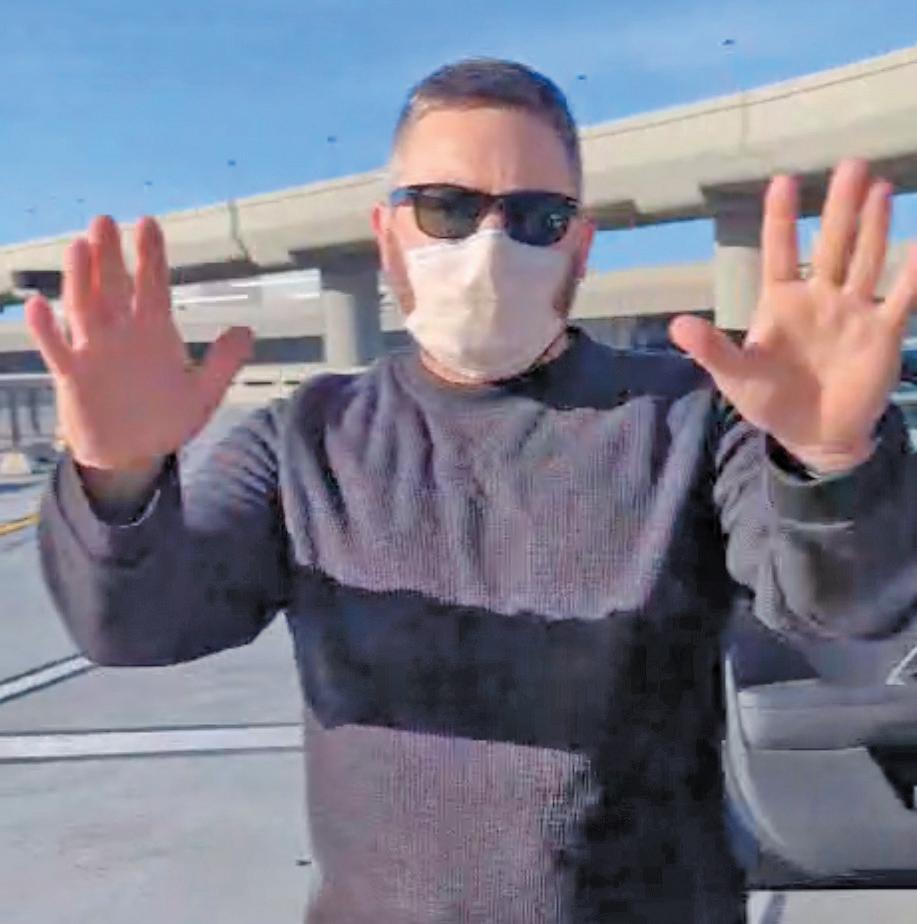
charged with commi ing a federal hate crime “in circumstances a ecting interstate commerce,” the U.S. A orney’s O ce announced on March 13, the day Csukás was arrested following a monthslong investigation. Csukás was 39 at the time of the indictment.
At the time, the case drew a ention in Washington, D.C., including from A orney General Merrick Garland, who said in a statement, “No one in this country should live in fear because of how they worship or where they come from.”
In the end, federal prosecutors failed to win a conviction.
e victim of the airport scu e, an Israeli-born Jew, told J. that he was “disappointed” with the outcome of the trial and hopes that the state will pursue the case.
He also spoke to J. soon a er the a ack on the condition of anonymity out of concern for his safety. He is referenced in court documents by his initials, S.B.
S.B. told J. a day a er the incident that Csukás punched him in the ear a er learning he was an Israeli Jew.
“I assume he saw my Jewish name. You don’t have to be Sherlock Holmes to figure it out,” S.B. said.
“He said something like, ‘I don’t want Israelis in my car,’ and punched me in the
ear. Very strong,” S.B. told J. on Oct. 27, 2023. At his wife’s urging, S.B. went to the hospital with minor injuries.
ree weeks later, Ly told J. via a Nov. 21 email from spokesperson Allison Guthrie that it had permanently removed the driver’s account from the platform.
At trial, according to Bloomberg, defense lawyers disputed S.B.’s version of events, arguing that S.B. had insulted Csukás, which is why he threw the punch. ey also said Csukás had been under financial and personal strain because his fiancee is Palestinian.
Defense lawyers argued over technical details. ey contested the federal statute being wielded, saying it did not apply to the incident at hand.
Csukás was charged with violating the Ma hew Shepard and James Byrd Jr. Hate Crimes Prevention Act of 2009. Named a er two victims of hate-motivated crimes, the act criminalizes “willfully causing bodily injury” that targets protected classes such as race, religion or sexual orientation. e act adds details about such crimes having to do with commerce, travel and jurisdiction.
In Csukás’ trial, the jury was instructed to determine whether the incident occurred during the victim’s course of international travel. Several court documents show that the defense put significant e ort into contesting that element of the charge, arguing that S.B.’s course of international travel ended the moment he disembarked the plane a er arriving at SFO from Toronto.
In order to find Csukás guilty, the jury was required to consider whether the government was able to prove all of the act’s elements beyond a reasonable doubt, including that the punch was motivated by bias and that it occurred during the course of international travel.
e government sought to show Csukás’ state of mind with evidence pulled from his social media accounts. Most of Csukás’ social media accounts have been deactivated. However, a Reddit page under the username “r/csabajohncsukas” is active, showing a number of anti-Israel posts. Prosecutors submi ed posts from that account into evidence.
Although S.B. said he hoped the state would take up the case, Steve Wagsta e, San Mateo County’s district a orney, said it cannot happen. “California Penal Code section 687 provides that no person can be subject to a second prosecution following an acqui al for the same conduct,” Wagsta e wrote in an email to J. Csukás had faced up to 10 years in prison and a $250,000 fine. ■
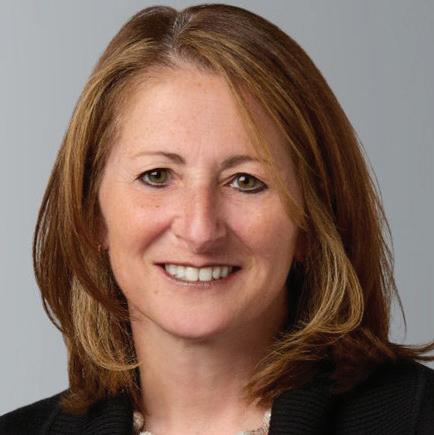
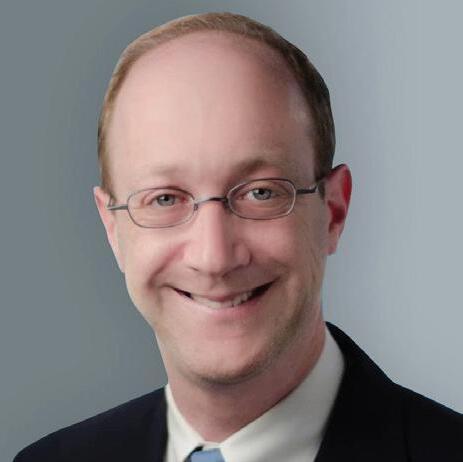
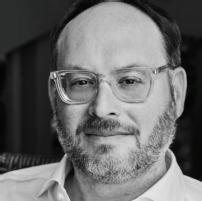
THURSDAY, DECEMBER 12, 2024
Congregation Sherith Israel, San Francisco
EVENT CHAIRS
Monica and Alan Zimm erman
Sabrina Zimmerman and Stephen Bluestein

HOST COMMITTEE
Mary and Steven Swig, Ingrid Tauber and Frank Taforo, Moses Libitzky, Valli Benesch and Bob Tandler, Amy and Mort Friedkin, and Jill and Richard Sideman
THANK YOU
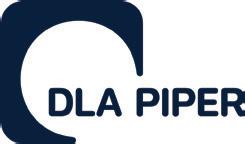

Sponsors as of 11/7/24
EMMA GOSS | J. STAFF
When Jonathan Hirsch shared a video about an aggressive confrontation at Oakland’s Palestinian-run Jerusalem Coffee House for wearing his Star of David baseball cap, he opened the door to a media whirlwind.
Public scrutiny of Hirsch intensified alongside media coverage of the event, particularly after a report in the San Francisco Standard showed that Hirsch has a history of engaging in loud encounters in public.
Since the late October incident at the coffee shop went viral, Hirsch has also
venue in July for a fundraiser. That venue happened to be on the same street as Jerusalem Coffee House, he said.
Standing on the sidewalk near the coffee shop on Telegraph Avenue, wearing a baseball cap with a blue Star of David and embroidered with the Hebrew phrase “Am Yisrael Chai,” Radice said a man seated outside the cafe asked him “Are you Jewish?” to which Radice replied “yes.”
The man, whom Radice now recognizes from the viral Hirsch video as coffee shop
received multiple reports about the yearold Jerusalem Coffee House beginning this summer.
“We have been in touch with OPD and [the] City Administrator's office. OPD received a report and is conducting an active investigation,” Marc Levine, director of the ADL’s San Francisco-based regional office, said in a statement to J.
In the days after the video went viral, Hirsch said, his neighbors and fellow members of his Oakland synagogue offered him hugs, sympathy and praise for his bravery. At the same time, the harassment has continued. While on the phone with J., he received a
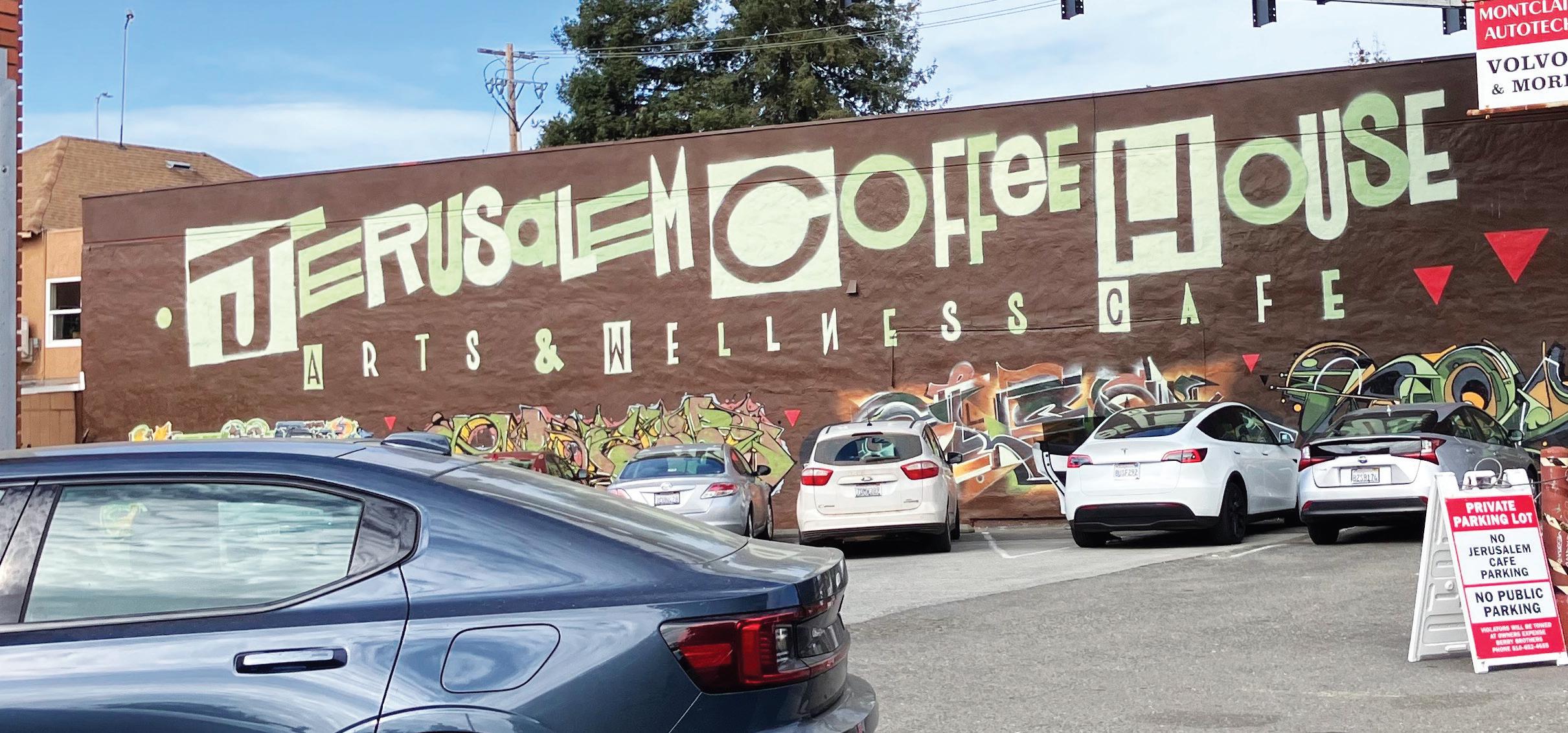
been “doxxed” — meaning his personal information was shared online — and has been harassed both on social media and in messages sent to his cellphone, including from some who claimed that the cafe incident was staged or exaggerated.
But last week, J. spoke with a second man who described a similar negative encounter at Jerusalem Coffee House for wearing a Star of David cap.
The coffee shop, which has become a hub for pro-Palestinian and anti-Israel activism since it opened last fall, sells items inspired by Palestinian culture like date tahini lattes. The business has also voiced support for the “Al Aqsa Flood,” the Hamas name for the Oct. 7 massacre in Israel. Its menu is decorated with inverted red triangles, which are a Hamas symbol, and includes a drink named the “Sweet Sinwar,” announced just days before Hamas leader Yahya Sinwar was killed in Gaza. Employees denied the drink was named after him. The cafe recently advertised a new product on Instagram. “Limited release – only 107 available,” the promotion reads.
Mike Radice said he reported a complaint against the coffee shop to the Anti-Defamation League in August. Radice, 70, who lives in Los Angeles and comes to Oakland once a week for work, said he was scoping out a
co-founder Abdulrahim Harara, began shouting at him, he said.
When a friend shared the video of Hirsch’s encounter at the cafe, Radice recognized the experience. “So it happened to someone else,” Radice thought, he told J. “It wasn’t just me.”
Hirsch’s sudden public prominence came from the video he took engaged in a shouting match with Harara, as Hirsch’s 5-year-old son sits with him. Since then, strangers have flooded Hirsch’s social media accounts — some offering praise and others sharing hateful messages. Someone even posted a photo of his Oakland home.
Hirsch told J. that he made all of his social media accounts dormant after receiving more than a dozen abusive and antisemitic messages since the Oct. 26 incident.
“This is a violent hat and you need to leave,” Harara shouted at Hirsch in the video. “Are you a Zionist? Are you a Zionist? Leave!”
Hirsch refused to answer the question and chose to stay, even after another employee of the coffee shop accused him of trespassing and someone called the police. In the video, he said repeatedly that he could not be forced to leave simply because he is Jewish.
The Anti-Defamation League told J. it
“So it happened to someone else. It wasn’t just me.”
Mike Radice
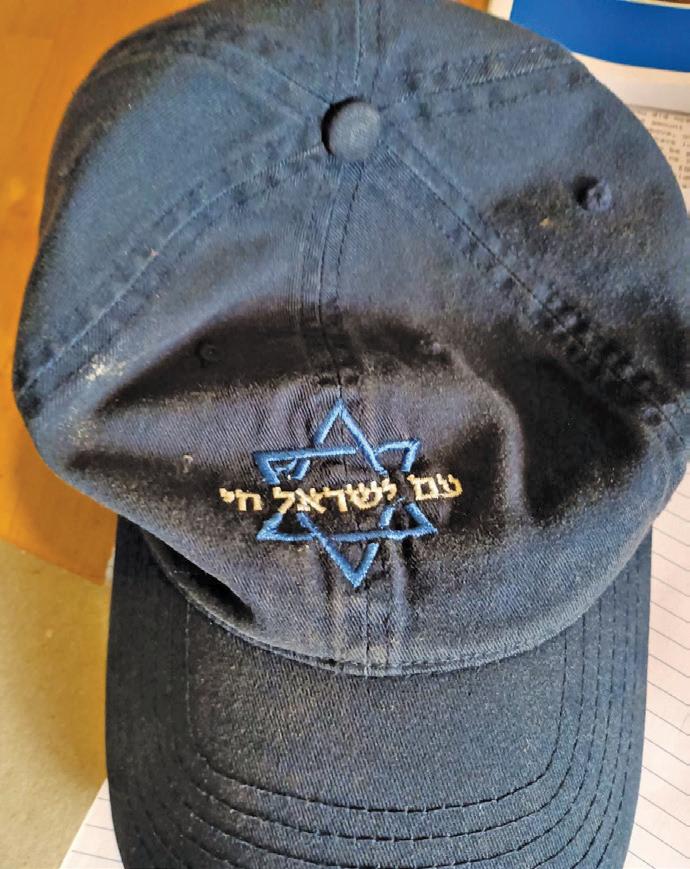
text message from an unrecognized number and shared it in a screenshot.
“Did you have fun throwing your little temper tantrum attacking Palestinians in our own country?” it said. “It isn’t enough that you’re destroying their home. You have to bring your hatred here too.”
The report in the SF Standard cited three past incidents showing Hirsch arguing with
strangers with his children present. One was a confrontation at a farmers market on Oct. 20. Video of the incident surfaced on X and Reddit.
In the video, Hirsch is seen loudly arguing with people tabling in support of Alameda County District Attorney Pamela Price. The video goes on for more than 12 minutes. Hirsch wore his Star of David hat and had all three of his children in a wagon.
“I reacted poorly,” Hirsch, 41, told J. in an interview, when asked about the farmers market video. “I was loud and wrong.” He said the incident happened when a woman interrupted a political discussion he was having with a Price supporter.
“Don’t talk to him,” Hirsch recalled her saying. “All he cares about are what the millionaires, bigots and conservatives want.” He said he felt he was being singled out for his hat and his Jewish identity.
That video along with two others became the focus of the SF Standard article.
The article was criticized by some in the Jewish community for portraying Hirsch as a repeat instigator of public disputes, rather than as a victim of blatant discrimination. In Hirsch’s mind and in the mind of his supporters, the video from Jerusalem Coffee House showed that clearly.
Amid all of the public attention, media requests to Hirsch were being rerouted through a PR firm. Meanwhile, members of the Bay Area Jewish community were coming to his defense.
In a statement, the Jewish Community Relations Council Bay Area blasted the SF Standard article, calling it “blatant character assassination” that gave Harara and Jerusalem Coffee House a “free pass.”
“The article is being weaponized online to discount the experience of the victim, who is now being harassed and doxxed,” the statement said. “This type of journalism is why many crime victims are reluctant to report them to the police and to the press.”
J. spoke with a longtime friend of Hirsch’s, who was at the coffee house the day of the incident and spoke on the condition of anonymity out of concern for her safety.
The friend, a Jewish Oakland resident, said Hirsch contacted her while he and his son were still at the cafe. She said she began comforting the 5-year-old child, whom she’s known since he was born, and put him on her back. She stood outside while Hirsch was questioned by police.
“He doesn’t start things,” she said. “People expect Jews to be weak and fearful and avoid confrontation. And that’s not what you get with Jon Hirsch. He’s just not that,” she added. “He’s a lion of Judah.” n





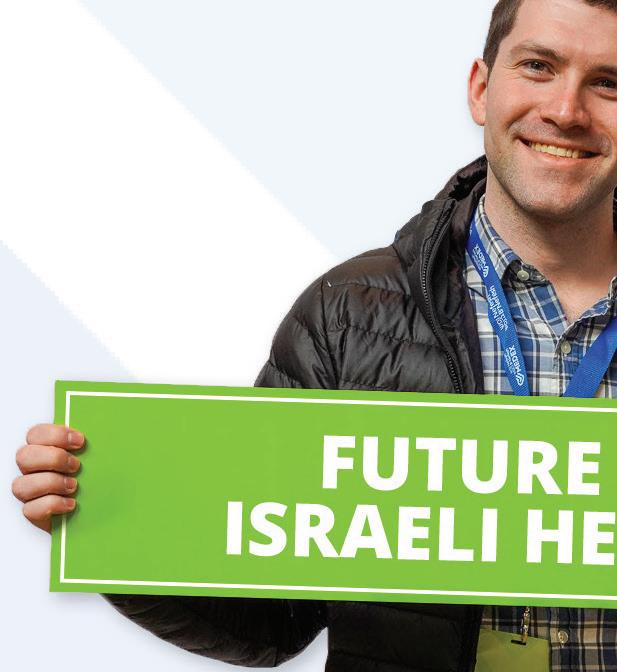







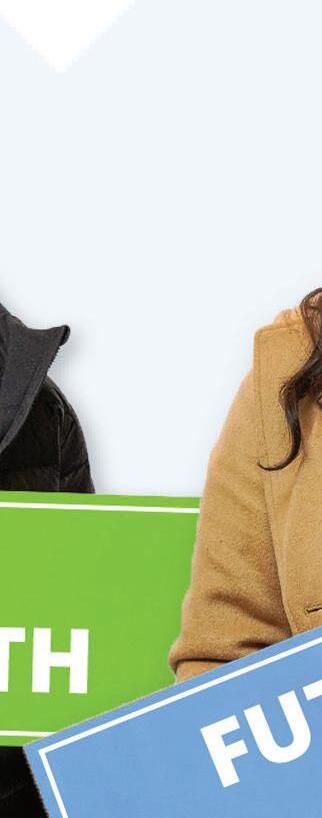

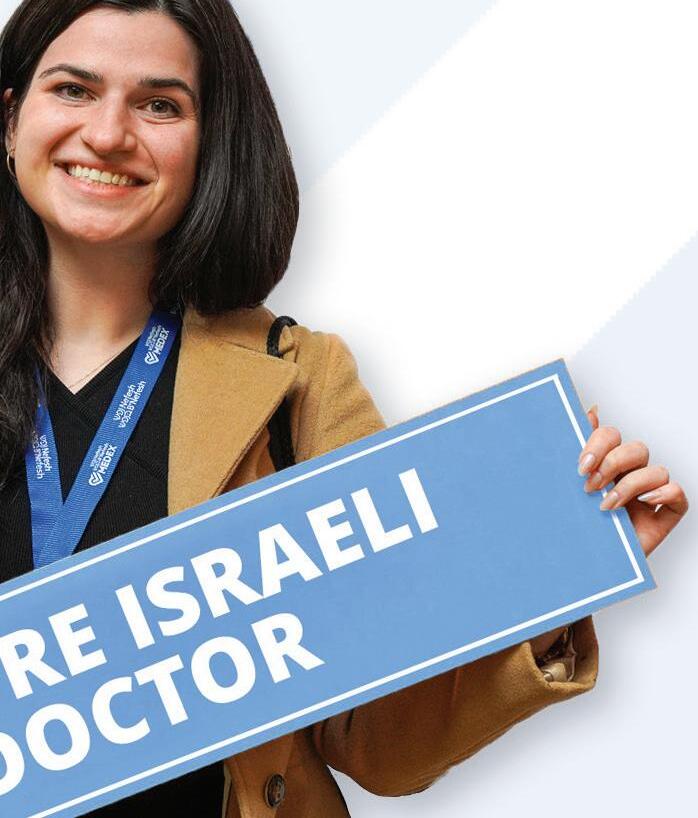










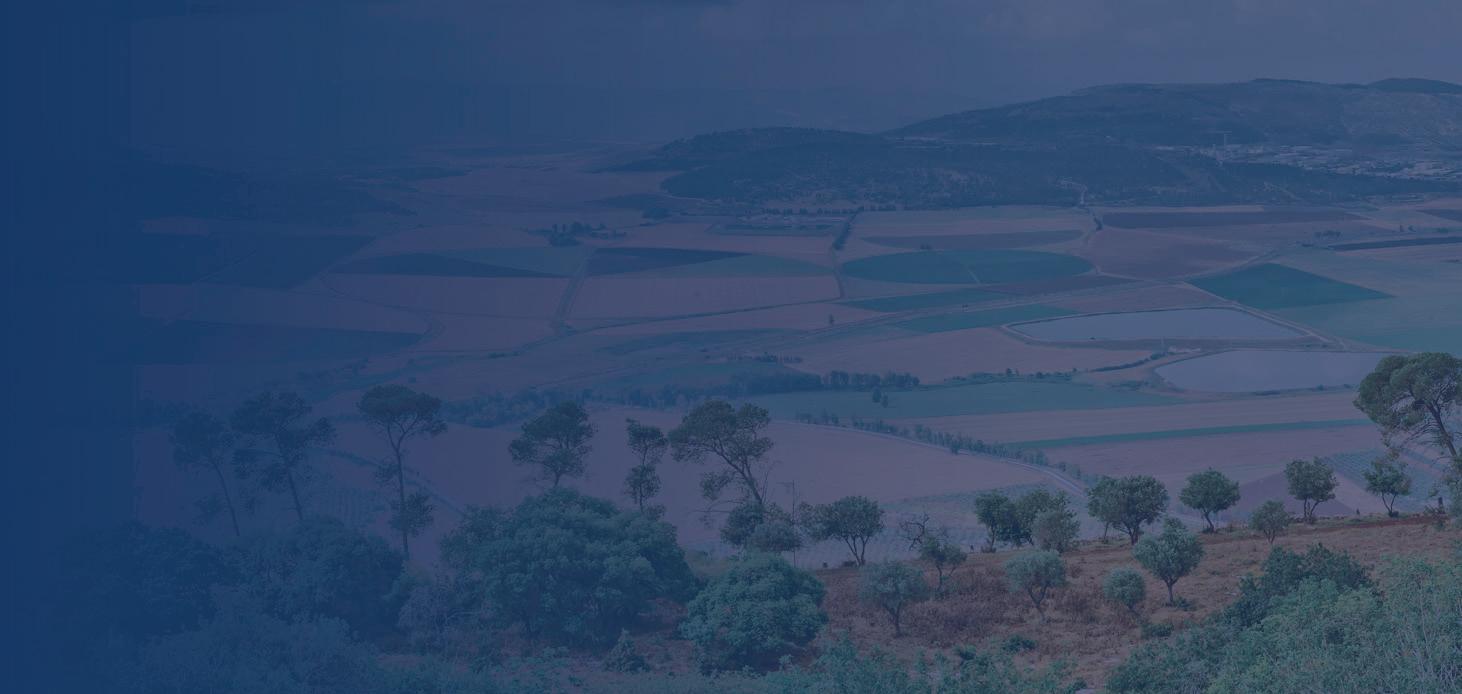










































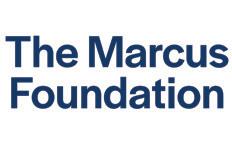



GABE STUTMAN | J. STAFF
The University of California San Francisco has suspended a controversial professor of medicine who published incendiary social media posts this year criticizing Zionism and raising questions about an unnamed firstyear Israeli medical student.
Rupa Marya, a professor of internal medicine at UCSF who has been outspoken against Israel during a year in which the prestigious university battled persistent allegations of a hostile climate for pro-Israel Jews, announced she had been suspended in a lengthy essay posted to the content platform Substack on Oct. 15.
“On the Fall Equinox 2024, I was suspended from my faculty position as a Professor of Medicine at the University of California, San Francisco (UCSF) because of my support for the liberation of Palestinians who are suffering genocide,” the essay said.
UCSF said via a spokesperson that it could not comment on personnel matters.
website. The coalition, founded eight years ago, has been extremely outspoken against Israel since Oct. 7, 2023, including accusing Israel of “genocide” three weeks after the Israel-Hamas war began.
A staunch critic of concepts such as colonialism and capitalism, Marya attributes specific health symptoms to them, such as inflammation. She is the co-author of “Inflamed,” a book that examines what she described as the negative impacts of “colonialism and capitalism on our bodies.”
Two days after Marya’s post about the Israeli student, UCSF condemned it for “targeting” a student based on national origin and, via a statement from chancellor Sam Hawgood, said the university had “taken
“Med students at UCSF are concerned that a student from Israel is in their class. They’re asking if he participated in the genocide of Palestinians in the IDF before matriculating.”
X post by Rupa Marya
The fall equinox fell on Sept. 22, one day after the social media post about the Israeli medical student and his presumed service in the Israel Defense Forces came to the public’s attention. The post has since been deleted, along with Marya’s X account.
“Med students at UCSF are concerned that a first year student from Israel is in their class,” the post said, according to widely shared screenshots. “They’re asking if he participated in the genocide of Palestinians in the IDF before matriculating into medical school in CA. How do we address this in our professional ranks?”
Stretching close to 4,000 words, her essay announcing the suspension was unsparing, describing a “coordinated” campaign by powerful interests, Jewish pro-Israel donors, and a “repressive” UCSF administration to silence her and people like her. She linked to a petition opposing “UCSF repression” that had received more than 1,200 signatures.
“Across the academy in the US, there is a coordinated set of attacks on people of color, our allies and our collective scholarship that centers liberation of all people in all circumstances,” the post said.
Marya, who teaches internal medicine, is also a co-founder of the Do No Harm Coalition, made up of health professionals and activists who aim “to eradicate systems of oppression” that impinge on people’s health, dignity and sovereignty, according to its
immediate action to address the situation.” At the time, it was not clear what action had been taken.
It was the second major social media controversy for Marya this year.
In January, Marya — who was born in Mountain View to Punjabi parents, according to her biography on OneEarth.org, and was also raised in France and India, according to an NPR report — published a post on X that drew allegations of extreme anti-Israel animosity and antisemitism for criticizing “Zionist doctors.” In written statements Marya has firmly denied allegations of antisemitism.
The January post said “the presence of Zionism in US medicine should be examined as a structural impediment to health equity. Zionism is a supremacist, racist ideology and we see Zionist doctors justifying the genocide of Palestinians.”
While Marya’s posts have received negative attention and condemnation from her university, she remains highly regarded in some academic circles.
Earlier this year, the Rapoport Center for Human Rights and Justice at the University of Texas announced Marya will be the featured speaker for an annual lecture on “peace, social justice and human rights.”
The March 2025 lecture is scheduled to take place at the famed Rothko Chapel in Houston. n
GABE STUTMAN | J. STAFF
WASHINGTON, D.C. | Thousands of people withstood chilly temperatures and light rainfall in the nation’s capital on Nov. 10 at a Jewish unity event that spotlighted immense challenges facing Jews in Israel and the diaspora.
The rally at Nationals Park kicked off the Jewish Federations of North America’s three-day General Assembly here. Niv Elis, a spokesperson for JFNA, estimated the crowd size at 5,000 in a ballpark that can hold 41,000 people.
a spike in antisemitism loomed large over the event, the general mood was one of solidarity and, at times, enthusiasm, optimism and joy. The numbers were much smaller than last November’s March for Israel, which brought about 200,000 people to the National Mall for one of the largest gatherings of Jews in American history.
The Nov. 10 crowd cheered exuberantly during an address by 20-year-old American wrestler Amit Elor, the
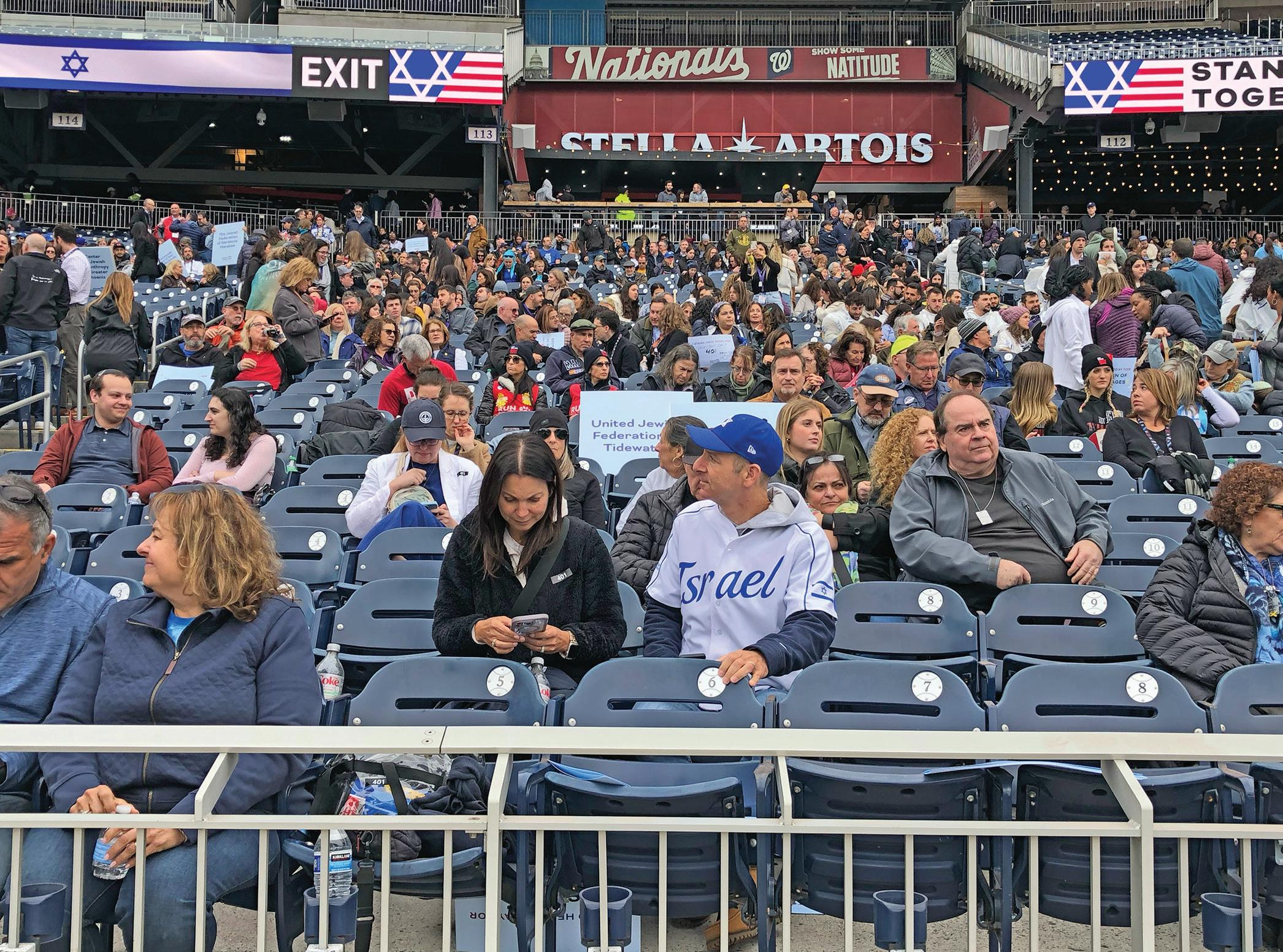
The GA is an annual convention for Jewish leaders and professionals to address current issues; this is the first one held since the Oct. 7, 2023, Hamas massacre in Israel. “Stand Together: Unity, Strength, Resilience” was the rally’s motto.
Entering the stadium in D.C., attendees were offered small black stickers with “401” printed on them, the number of days Israel’s hostages had been held in Gaza. Hostage family members spoke from a massive, temporary stage set up in the outfield, including the mother and brother of Omer Neutra, a 23-year-old Israel Defense Forces soldier raised on Long Island, New York, who was captured near his base on Oct. 7.
“It’s been 400 days and I miss him,” Daniel Neutra, Omer’s brother, told the crowd. “I can’t count how many nights I’ve dreamed about him.”
Neutra is among the 101 hostages who remain in Gaza, including seven Americans. About half are believed to still be alive, according to the Jerusalem Post, while 37 are confirmed to be dead, including three of the Americans. Even as the horrors of Oct. 7, Israel’s ongoing wars and
daughter of Israelis and a gold medalist at this summer’s Paris Olympics. Elor, who lives in Walnut Creek, spoke about spending summers with her grandmother in Ashkelon, where she trained at a local gym with Israeli wrestlers.
“They welcomed me. They were excited for me. In Israel, I felt truly included,” Elor said.
“What a badass,” a woman near the front of the stage told the person next to her, watching highlights of Elor’s winning bout played on giant screens.
Other members of the Bay Area Jewish community, including a handful of Jewish nonprofit leaders, were present in D.C. and sat together at the event.
Among them were Tye Gregory, CEO of the Jewish Community Relations Council Bay Area, Sarah Levin, executive director of JIMENA, or Jews Indigenous to the Middle East and North Africa, and Joy Sisisky, CEO of the S.F.-based Jewish Community Federation and Endowment Fund.
Sisisky, who also came to D.C. a year ago for the March for Israel, said that last weekend’s event felt heartening
and unifying in light of the challenges that Bay Area Jews face.
“Sometimes we forget — given everything that’s going on on the local level, whether it’s K-12 or in city councils — it feels really good to come together to celebrate being together, and our unity,” Sisisky said.
Levin, whose Bay Area-based nonprofit advocates for Mizrahi and Sephardic Jews across the country, concurred. “It feels really nice to be in a national collective of Jews who have experienced the same trauma last year,” she said. “To express our unity right now feels really important.”
The rally included Grammy and Emmy Award–winning comedian Tiffany Haddish, who came to the podium with a wide smile and talked about embracing her Jewish heritage, which comes from her father’s side.
“Looking out at you all, all of you beautiful people, I see what I’ve learned over my own journey — that Judaism embraces all of us,” Haddish said to cheers.
“It’s been 400 days and I miss him. I can’t count how many nights I’ve dreamed about him.”
Daniel Neutra, brother of hostage Omer Neutra
American songwriter John Ondrasik, of the alternative rock band Five for Fighting, performed the hits “100 Years” and “Superman.” Ondrasik, who is not Jewish but has been outspoken against antisemitism, said he was transformed by a trip to Israel in April.
About midway through the event, throngs of young people rushed to the front of the stage to see Israeli megastar composer and pianist Idan Raichel.
Attendees also lined up at concession stands for kosher chicken schnitzel and roast turkey sandwiches, as well as soda, beer and popcorn.
Israeli Ambassador to the U.S. Michael Herzog addressed the audience, as did multiple members of Congress and Daniel Shapiro, a Pentagon official who works on Middle East policy. They spoke in between the entertainers and Israeli and American Jews giving personal accounts.
A dance troupe performed an evocative routine about the Nova music festival, where more than 360 people were slaughtered by terrorists in southern Israel on Oct. 7. Dancers reached their arms out in desperation, or huddled together, visually representing some of the scenes of the attack captured on cellphone videos.
Coming just days after Donald Trump won the election for U.S. president, the event also carried a bipartisan ethos.
Republican Rep. Virginia Foxx of North Carolina, who spearheaded widely publicized antisemitism hearings in Congress after Oct. 7, addressed the audience, as did Gretchen Whitmer, the Democratic governor of Michigan considered by many to be a future star of the party.
Whitmer, who is not Jewish, quoted from the Talmud when speaking about moving forward after a divisive presidential election.
“You are not obligated to complete the work,” she said, “but neither are you free to abandon it.” n
ALIX WALL | CORRESPONDENT
Hamze Awawde grew up in the early 1990s in a village near Hebron in the West Bank, during what he calls the “Oslo years.”
At the time, “I was very scared, not only of Israelis but of Jews,” he said. “All the soldiers and settlers I saw had guns, and I understood that at any moment they could kill me.”
Awawde, 34, appeared on Oct. 27 at Berkeley’s Congregation Netivot Shalom. Since the start of the Israel-Hamas war, he has been living in Italy with his Italian ex-wife and their son; he said his main priority is keeping his child safe.
He was on a speaking tour around the Bay Area supported by Standing Together, a grassroots group of Jewish and Palestinian Israelis that seeks to resolve the Israeli-Palestinian conflict, including an end to Israel’s occupation of the West Bank. It also works on issues such as economic equality, affordable housing and climate justice.
Awawde’s grandfather had been an official in the 1970s with Fatah, a political party within the PLO. But when the Oslo Accords were signed in 1993, and it seemed that peace between the two peoples could truly be on
the horizon, his father, an entrepreneur, began doing business with Israelis.
“As a teenager, I didn’t like my family’s pragmatic views,” he said. “I wondered why my father speaks to Israelis, as they all want to kill us. I couldn’t understand it.”
When Awawde started college, he began reading about other world conflicts. He came to realize that “your enemy is not just one voice,” although it took time, as “all I knew about Israelis was informed by my own trauma.”
In a Raw podcast interview this summer, he said that for a Palestinian under occupation, it isn’t natural to be a bystander and that the impulse is to fight against it. Once he began meeting regularly with Israeli Jews, though, he saw that there would never be a solution through violence.
In the months before the Oct. 7 Hamas massacre in Israel and the subsequent war, Awawde was on the staff of a summer camp in San Diego called Hands of Peace that brought together Israeli and Palestinian youths. After returning home to the West Bank, he said his car was stopped by three

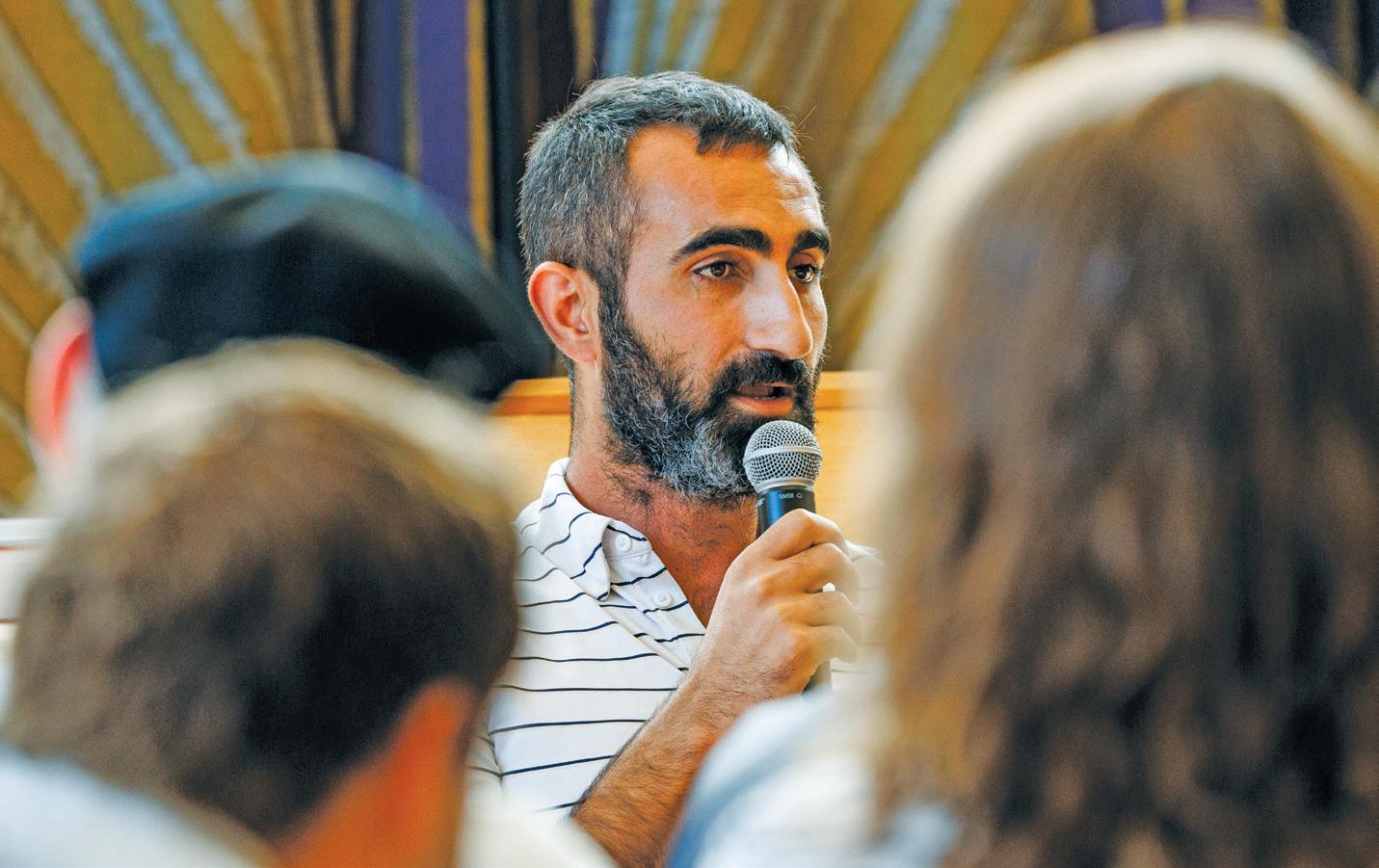
Israeli soldiers who held their guns to his head in a case of mistaken identity. One told him: “If you wouldn’t have stopped, I would have killed you.” He left for Italy with his son shortly after.
When the current war began, Awawde was terrified for Gazans, but it also personally affected him in a different way, he said. Among the 1,200 killed and more than 250 kidnapped from Israel on Oct. 7, a few of them were his friends.
His desire to talk about his story — especially so often and to so many groups — came from those contradictions he lives with, he said. Initially, he was inclined to do nothing. But then he saw a television interview with Maoz Inon, an Israeli Jew. Both of Inon’s parents were murdered on their kibbutz on Oct. 7, and yet he was still taking every opportunity he could to articulate the need for peace.
“At first, I wanted to take a step back and not be involved, as it’s so painful,” Awawde said. “But then I realized that by being elsewhere, I can say things that people can’t say from [the region].”
served as a military officer during the Yom Kippur War.
“Over 2,000 people my age gave their lives for the fantasy of the rulers of that time” in 1973, he said. “We grew up with the narrative of ‘no choice wars,’ to justify the price we had to pay. Ever since then, I’ve been very sensitive to this question of the Israeli narrative.”
Goldberger said that he began studying the Palestinian narrative out of curiosity and then taking opportunities to meet with Palestinians in the Bay Area.
“Whatever we think is correct, the other side has the completely opposite view of the world,” he said, adding that the truth almost always lies somewhere in the middle.
“At first, I wanted to take a step back and not be involved, as it’s so painful.”
Hamze Awawde, Palestinian peace advocate
Awawde was joined at each Bay Area appearance by one of three local Israeli expats. At Netivot Shalom, it was Itzik Goldberger, a former kibbutznik who lives in Lafayette. He has lived in the Bay Area for over 30 years since attending the Stanford Graduate School of Business.
Goldberger is involved locally with the liberal Israel advocacy group J Street and explained his political evolution.
His first exposure to Palestinians was with workers on his kibbutz. Out of personal interest, he studied Arabic and Islam. He
As for specific solutions, that was tougher. Awawde called for a cease-fire in the ongoing war and the return of the 101 hostages still in Gaza.
Both men reiterated in different ways the need for understanding between both peoples and said that security will remain elusive unless everyone can live in safety and with dignity.
“There needs to be a just, peaceful solution, where Palestinians are seen as equal and their rights and connection to the land is acknowledged,” Awawde said. “Without that, there will always be violence.” n
SUE FISHKOFF | CORRESPONDENT
Ziv Frailich, 36, saw his mother’s murdered body on a Hamas video, lying dead alongside other kibbutz members right outside her front door.
Hila Rabinovich Escapa, 31, shivered alone in her safe room with her puppy before being evacuated on foot through terrorist gunfire, 11 hours after the Hamas attack began.
The two members of Kibbutz Be’eri told their stories Nov. 11 at Peninsula Temple Sholom in Burlingame, their first stop on a six-day speaking tour of the Bay Area. They are part of a seven-person delegation from Be’eri visiting D.C. and California this month to thank American Jews for their help after the brutal Hamas massacres of Oct. 7, 2023; to cement relationships between the diaspora and their kibbutz; and to collect “partners in reconstruction and rehabilitation,” as they put it, as the 1,100 or so surviving members try to put together their shattered lives.
“Oct. 7 is over, but we are struggling with so many things,” Escapa told the Burlingame audience. “Each of us left [that day] with nothing. I had shorts, a shirt and a dog leash. We have to rebuild from the ground up.”
Kibbutz Be’eri was established in 1946, one of the first Jewish settlements in the Western Negev. On the morning of Oct. 7, it had 1,200 members and was the largest, most prosperous kibbutz in the region. It was also two miles from the Gaza border, and the first Israeli settlement attacked.
In the early hours of Oct. 7, 600 Hamas terrorists infiltrated Be’eri, on foot, by motorcycle and in trucks. They murdered 102 residents, nearly 10 percent of the population, and took 31 hostages. Ten are still being held, although just three are believed alive.
Be’eri was ground zero for the Hamas attacks that day, which also wreaked destruction on the kibbutzim of Kfar Aza, Nahal Oz, Nir Oz and Kissufim, and the cities of Sderot and Ofakim. More than 250,000 Israelis were displaced from both the Gaza envelope and Israel’s northern border with Lebanon. Many have since returned home, but tens of thousands are still in temporary housing, including most of the residents of the hardest-hit southern kibbutzim.
Escapa was born and raised in Rishon LeTzion, just south of Tel Aviv. She followed her fiance, Tuval, to the kibbutz two years ago. They were planning a November wedding last year, and the night of Oct. 6 he was away for his bachelor’s party. She was alone when the sirens went off around 6:30 the next morning.

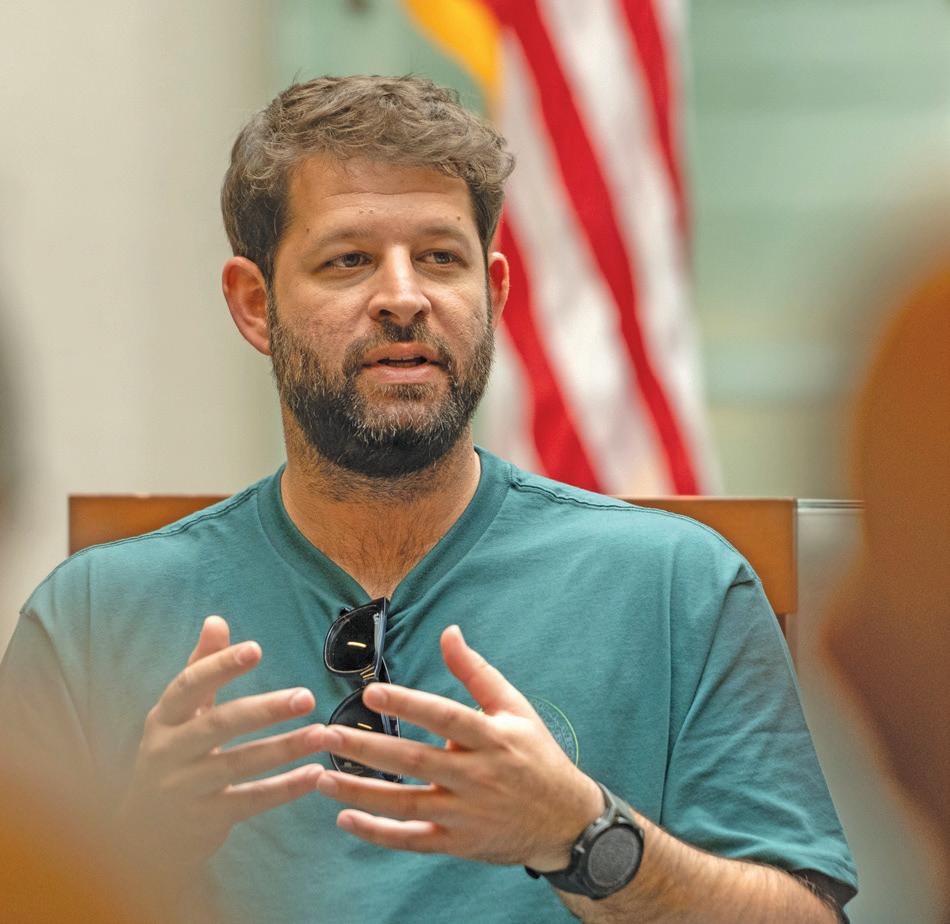
security team was facing off against the hundreds of infiltrators. Six of the 10 were killed, but they saved many of their neighbors, giving them precious time to get to their safe rooms.
Frailich was born and raised at Be’eri, a second-generation kibbutznik. “I love my kibbutz,” he said. “It was the best place to grow up. No one locked their door, it was so safe. Everybody knew their neighbors. It was a real heaven, a beacon for the whole area.”
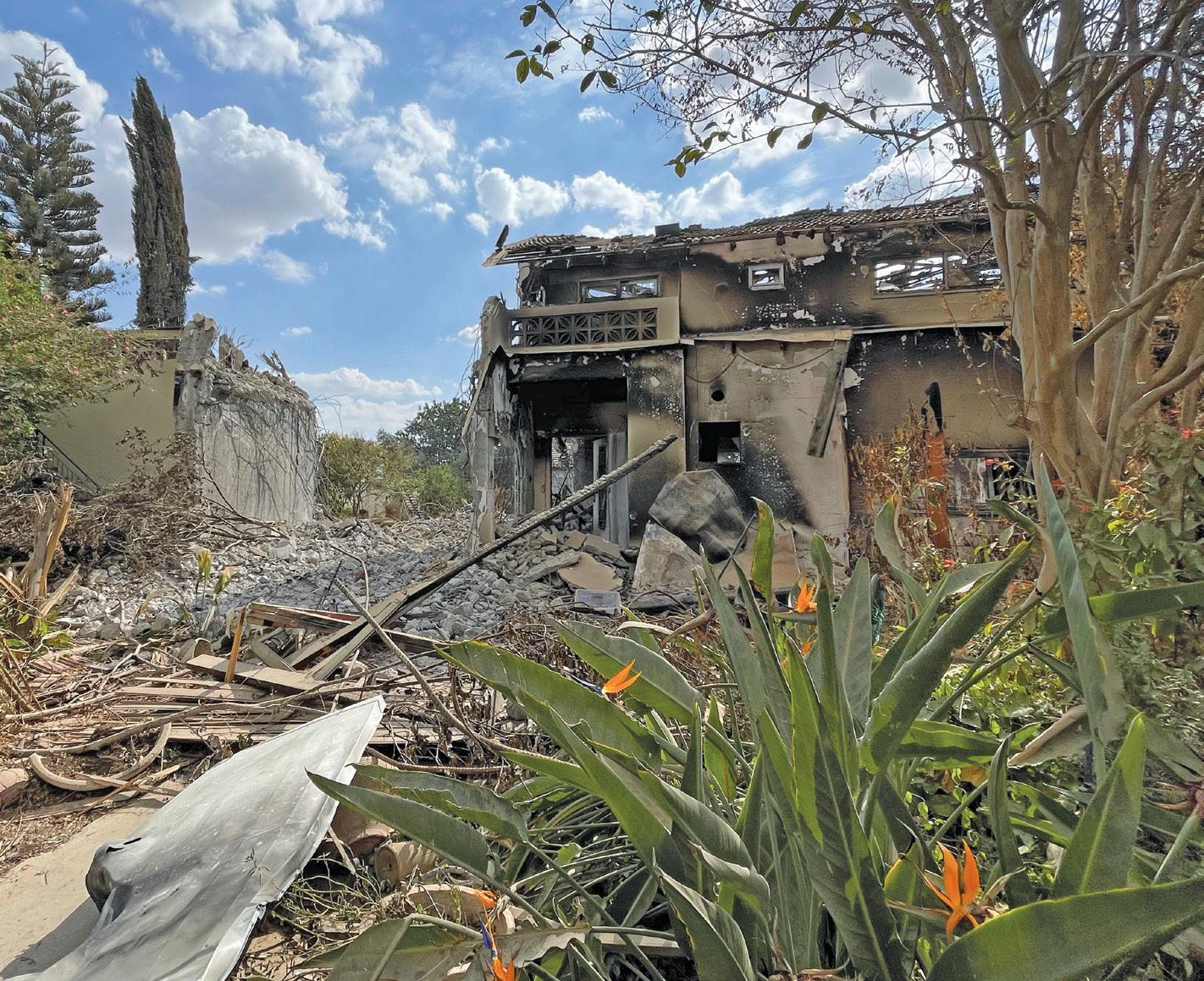
“I took my dog, and we went into the safe room,” she said. At 7:30 a.m., she began to hear gunshots nearby. “I’m not from the kibbutz, I didn’t really know what to do. I sat on the floor and tried to keep silent. I was terrified for my life.”
She didn’t know it at the time, but the kibbutz’s 10-man
He and his former girlfriend were in his home when they heard the first bombs, which hit even before sirens sounded. He remembers thinking that wasn’t normal. His house was just a few yards from the kibbutz perimeter. He heard shots from automatic guns that he did not recognize as IDF
weapons.
Then he saw an Egyptian-made motorcycle go by, carrying two men in full combat gear. They had AK-47s and a rocket-propelled grenade, or RPG. Frailich realized the kibbutz was under attack. He and his girlfriend holed up in the safe room, turning off the AC, the TV and anything else that might indicate people were home.
“Hours passed,” he told the audience. “I remember thinking, where are the helicopters? Where is our army? All we heard was shouting and laughing in Arabic, like it was a festival.”
Frailich got his gun, loaded it, and told his girlfriend that if one terrorist entered the house, he would kill him. If more than one came, he would fight them outside on the doorstep. “I told her, the last two bullets are for you and for me. We will never walk into Gaza.”
Around 1 p.m. an IDF contingent reached the kibbutz and
“If there is a vacuum, it will be filled by something. If there is no Kibbutz Be’eri, there is no Tel Aviv, and there is no Israel.”
Ziv Frailich, kibbutz survivor
began evacuating residents. Escapa recalls fleeing on foot, dodging gunfire all the way to the kibbutz entrance, where a truck was waiting to evacuate people. Frailich was there too. He didn’t want to leave without his mother, who lived near him, but the truck was going, and they all got on.
Outside the kibbutz, all they saw was death. Dead soldiers, dead terrorists, burned cars, burned fields. “It was like the apocalypse,” Frailich said.
Later that day he saw a Hamas video of his mother being led away, barefoot, her hands behind her back. The next day, he viewed the video of her body lying alongside several of her murdered comrades, all people in their 60s and 70s.
In September, some Be’eri residents began moving into
SUE FISHKOFF | CORRESPONDENT
Robin Herzog’s father, Steffen, was 8 when he and his brother boarded a train in Frankfurt headed to safety in England.
Jacqueline Shelton’s mother, Ilse, was 17 when her train left Berlin for the U.K.
Ralph Samuel was 7 when he flew on his own to England from Dresden.
They were among the 10,000 children, almost all of them Jewish, saved from Nazi-occupied Europe by the Kindertransport, a massive rescue operation that brought these children to the United Kingdom during the nine months before World War II broke out in September 1939.
The children said goodbye to their parents and other relatives at train stations and airfields in Germany, Austria, Czechoslovakia, Poland and the Free City of Danzig, expecting to see them again as soon as it was safe. Most never again saw their families, who became caught up in the maelstrom of the Holocaust.
Herzog, Shelton and Samuel were among the lucky ones whose families survived.
On Nov. 3, they were joined by Melissa Hacker, whose Vienna-born mother was also saved by the Kindertransport, at the Jewish Community Library in San Francisco where they told their stories to a rapt, standingroom-only audience. The 85th anniversary event was co-presented by the Jewish Family and Children’s Services Holocaust Center and the Kindertransport Association (KTA), a New York-based nonprofit that connects Kindertransport participants, as well as their descendants.
“None of us would be here if Britain hadn’t accepted those 10,000 children,” said Herzog, who lives in Oakland and is co-chair
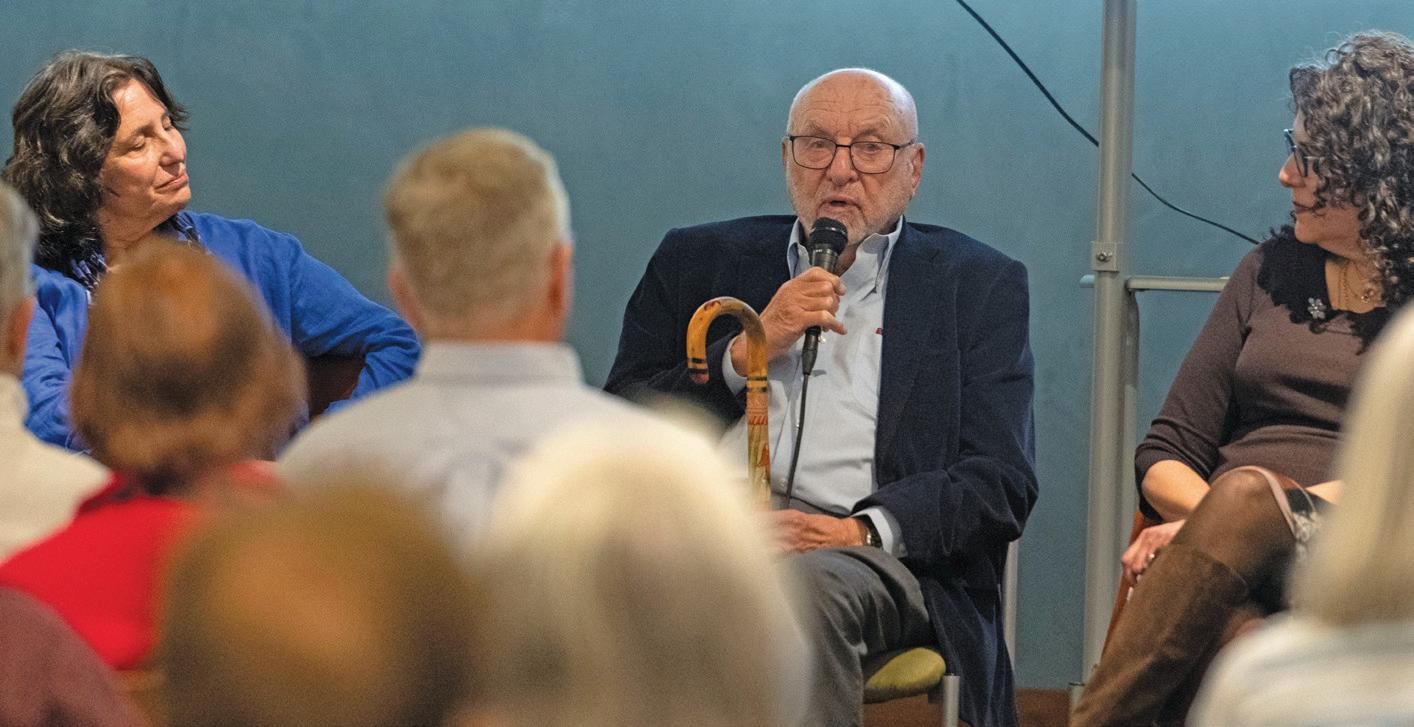
of the Northern California chapter of KTA.
“My grandmother didn’t hesitate to send her two boys to England on their own. I don’t know if I’d have had the strength.”
Hacker, executive director of the national KTA, described how a group of Jews, Quakers and other Brits approached Parliament following the November 1938 antisemitic violence of Kristallnacht in Germany, convincing the British government to take in children most at risk from the Nazi Reich. They would be hosted largely by British families, with their trip to the island nation and their upkeep paid for by individual donors and a broad coalition of aid organizations, notably the Refugee Children’s Movement and the Central British Fund for German Jewry.
“The idea was that the children would

return home after the war,” Hacker said. “This was not a path to citizenship.”
Samuel, who is 93 and has lived in Oakland for 60 years, said that at age 7 he was too young to be afraid when his parents put him on that plane to London. He remembers walking down the 12 steps from the plane with a cardboard sign around his neck stating his name and the name of the family that had agreed to house him, “more like a package than a person.”
That was January 1939. When the war began in September, he was evacuated again, this time to the countryside along with 1.5 million British children, as London prepared for German attacks. “By the age of 8, I’d been evacuated twice,” he said.
requirement. Like most older teenagers, she entered a training program in England and was not hosted by a family. Eventually the family reunited in England, and they all managed to obtain U.S. visas thanks to a cousin in Chicago.
During her talk, Shelton held up a wooden clothes hanger with the name of her family’s department store embossed on it, one of seven the family took with them from Germany. It’s now a family heirloom.
As the years passed, the Kindertransport children became “hidden” survivors of the war, Hacker said. They knew they hadn’t suffered like the concentration camp survivors, or those who spent the war years in actual hiding in continental Europe. For decades, they didn’t talk about their experiences.
“I always knew there was something different about my parents,” said Shelton, who lives in San Francisco and is a KTA national board member. “They had accents, they spoke German to each other, and we had a small family. Just the three of us.”
She recalls that her father would watch black-and-white Holocaust documentaries at night. “He wouldn’t let me watch with him,” she said. “He’d say, kind (child), go to bed.”
The silence among Kindertransport participants only began to change in 1989, when their first reunion took place in
“My grandmother didn’t hesitate to send her two boys to England on their own. I don’t know if I’d have had the strength.”
Both Samuel and Herzog benefited from Britain’s shortage of domestic servants, which led to a program that allowed 20,000 young women from Europe to enter Britain on work visas. Samuel’s mother arrived in March 1939 and was hired as a maid by the family that took him in.
“I remember very clearly eating in the dining room, and my mother eating in the kitchen,” he said.
Before the war, Shelton’s grandparents owned a small department store in Berlin, which was “Aryanized,” or given to non-Jewish owners, after the Nazis came to power in 1933. Her mother was training to become a nurse at the Jewish Hospital Berlin during Kristallnacht “as people came in bloody and beaten,” Shelton said.
Shelton’s family was refused visas to the United States, which had a very strict quota on Jewish immigration, but she and her younger sister secured seats on a Kindertransport train.
At 17½, she just squeezed under the age
Robin Herzog, Kindertransport descendant
London. It drew more than 1,200 former Kindertransport children, some of whom had never met another participant before. A year later the KTA was formed.
Today, Samuel is part of the speakers bureau of the JFCS Holocaust Center and shares his story with local students. He relearned German and has made three trips back to Germany to tell his story, two of them to students at the Dresden gymnasium, or high school, he would have attended if not for the war.
As survivors pass on, their children understand that it has become their responsibility to preserve these personal histories. Herzog is working on a book about her father and grandmother. Meanwhile, Shelton, who has completed the KTA’s speaker training program, relates her mother’s Kinderstransport story to middle-school students in the Bay Area.
“I’m the storyteller now,” she said. n
LEA LOEB | J. STAFF
While millions of Americans anxiously cast their ballots on Nov. 5 and waited to see who would lead the country, a very different kind of election took place at a Jewish elementary school, one designed to help young students learn how to disagree.
Students at the Brandeis School of San Francisco voted for their first-ever lower school president. Rather than choosing a human being, though, students were presented with inanimate, though quite cuddly, alternatives: stuffed animals.
“I wanted the lower school students to learn about the process of the election because it’s really important for kids to understand all of the details behind the election,” said Jenny Rinn, director of the lower school for K-4. “I wanted to take the focus off of a very heated national campaign. I didn’t want that to be the discussion in the classroom, not with lower school students.”
Rinn hatched the plan to elect a stuffed animal, or “plushie,” for president because “all kids love stuffed animals.” It was a way to teach about the democratic process in an age-appropriate way, she said.
The election, held at several polling places in the school’s main office, featured a roster of three candidates: Karen Koala, Ivan Ibex and Sloan Sloth. Each furry contender was chosen in a primary election in the beginning of October and represented one of three “political parties”: Kindness, Integrity and Service, which the school calls its core values.
Throughout the election season, Rinn led assemblies explaining what an election is, who can vote, the meaning of parties and candidates and how the election process works. Students were encouraged to consider each candidate’s unique qualities, experiences and positions on key issues.
Service candidate Sloth was praised for her gentle, non-aggressive nature. Integrity candidate Ibex was touted
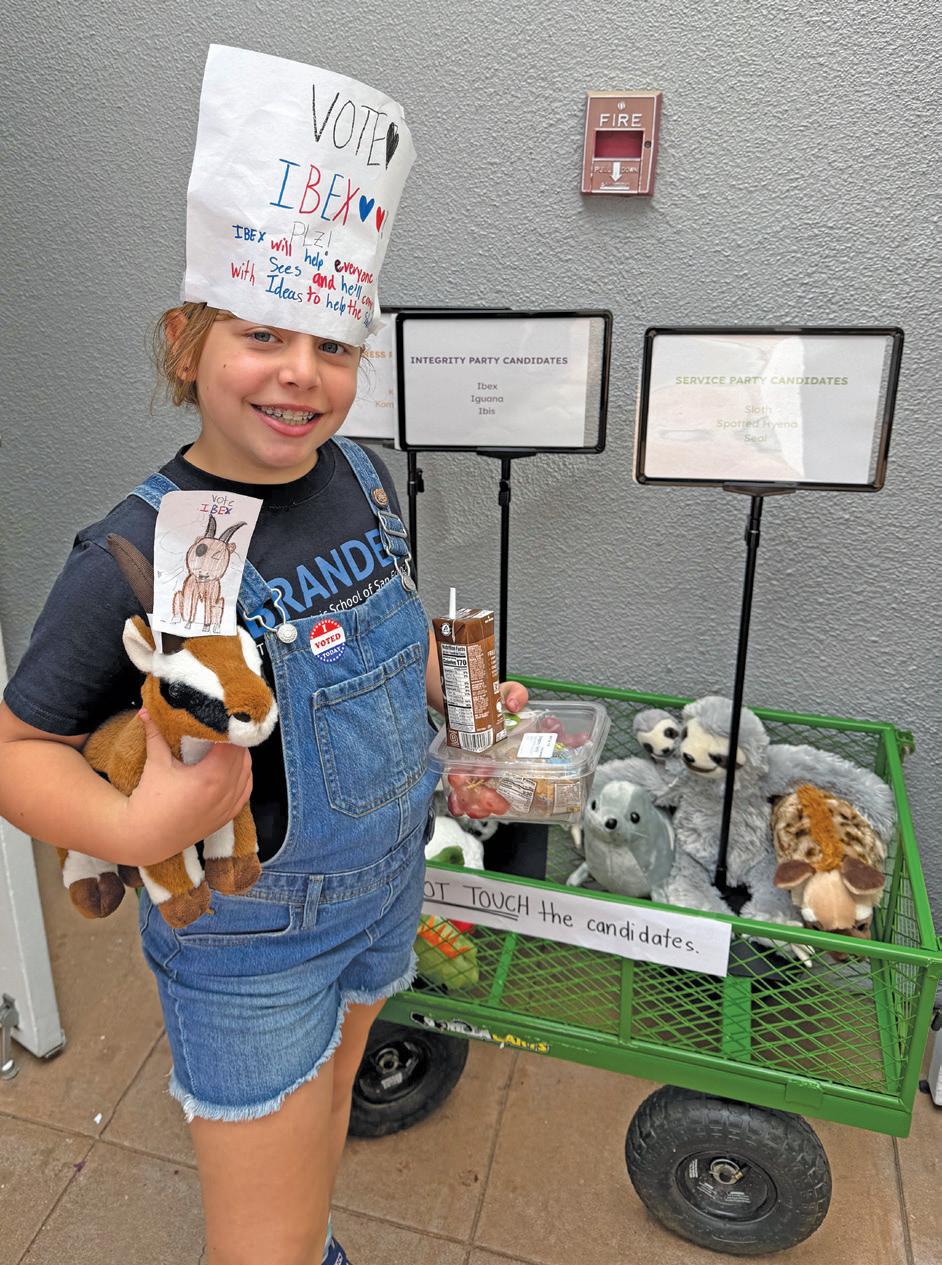
for his adaptability to harsh environments, as well as his strength and agility. Kindness candidate Koala was lauded for her harmonious existence with the environment and resilience in the face of habitat destruction. Koala and Sloth also both brought their babies on the campaign trail, demonstrating family values.
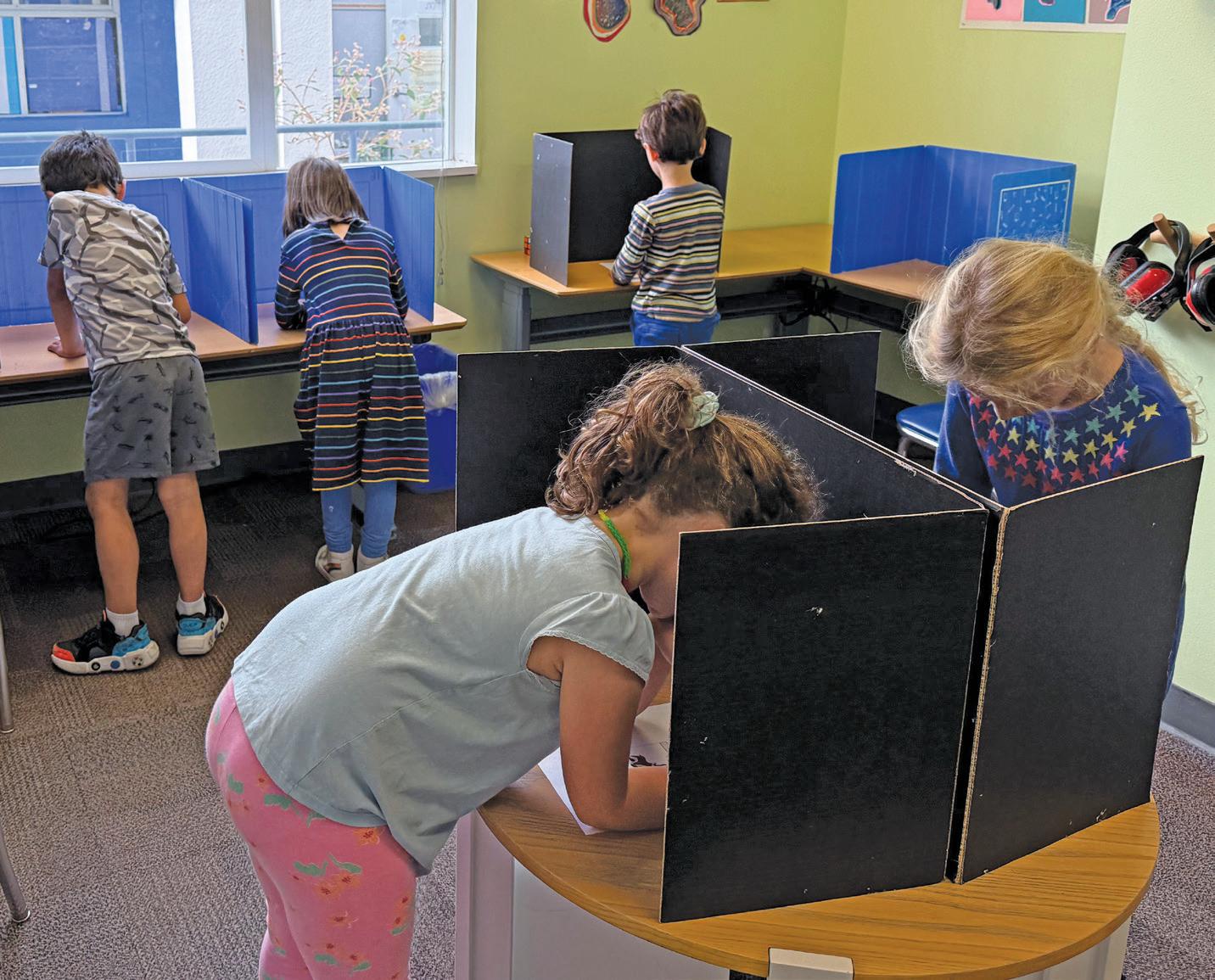
With the help of the fourth-graders, each candidate was linked to a one-sentence platform statement based on their party’s value. Together the students campaigned for their favorite plushie, making hand-drawn posters and hats, chanting slogans and preparing brief speeches on behalf of their cuddly candidates. They even held a convention, complete with walk-on songs, live performances from teachers and a roll call for delegates from each class to vote for a candidate.
According to Rinn, another one of the main goals of the election was to teach how to practice civil discourse based in Jewish values when opinions differ.
“We had to talk about positive campaigning and what that is and why we’re not going to engage in negative campaigning here at Brandeis,” said Rinn. “It does exist, but we’re not going to participate in that.”
To make the process even more similar to the U.S. presidential election, there was an electoral college. Classes of 20 or more got two electoral college votes, and classes of less than 20 got one electoral vote.
One of the lead campaign managers for Ibex, fourthgrader Cecily, donned a paper hat and a “Vote for Ibex” sign
“I wanted to take the focus off of a very heated national campaign. I didn’t want that to be the discussion in the classroom.”
while eagerly watching the live election update during lunchtime. She said she mainly supported Ibex because he is from Israel — the wild goats are found in Eurasia, North Africa and East Africa — and because she believes integrity is the most important value.
Cecily also attributes the poor turnout for Sloth to her supporters’ lack of campaigning. “They were too lazy to make posters and stuff,” she told J.
While perhaps Sloth’s lack of campaigning was detrimental to her, each student had their own reasons for voting for their chosen candidates.
“I voted for Kindness Koala because my dad is Australian,” said first-grader Leora.
“Lots of people voted for Ibex, and I also have Ibex in one of my books,” said kindergartener Jema, who voted for Ibex.
“Because they’re super kind, and whenever somebody’s sad, you need to use kindness and be kind,” said first-grader Ora, who also voted for Koala.
“Because koalas are actually not as sweet as you think they are. They are actually very, very tough. They have very sharp teeth and claws, and they will scratch you if you try to, if a normal person would just touch a koala, it would scratch them or bite them,” said first-grader Brandon, another Koala supporter.
“I voted for Ibex because he’s honest,” said first-grader Alex.
“I like Sloth’s baby, and sloths are my favorite animal,” said first-grader Daniel.
In the end, it was a close race between Koala and Ibex. Despite Koala winning the popular vote in a last-minute turnabout, Ibex won the electoral college by a single vote.
The election, though whimsical, sparked meaningful conversations among students about the democratic process and the role of elections in society.
As for Ibex, Rinn said that his first presidential duty will be to visit each of his constituents in their classrooms to hear their comments and concerns about the school. She hopes to use Ibex’s position as a direct connection between the students and the administration and to further demonstrate that a president’s duty is to the people. n
‘Deja vu all over again’
RON KAMPEAS | JTA
When Mark Hetfield started work the morning of Nov.6, he did not know what to tell the staff at HIAS, the Jewish immigration aid and advocacy group he serves as CEO.
Donald Trump, who reviles much of what the group does and stands for, had just been elected president. Trump’s actions during his first administration had severely curtailed HIAS’ work by dismantling the refugee resettlement program in which HIAS partnered with the federal government.
This election cycle, he ran a campaign denigrating refugees and asylum seekers as an “invasion” and “infestation,” promising to round up and deport millions of them. The 2018 Pittsburgh Tree of Life synagogue shooting happened after the gunman railed at HIAS, accusing it of allowing “invaders” into the United States.
In the victory speech he delivered in the pre-dawn hours after his election, Trump pledged to make good on his campaign talk: “We’re going to have to seal up those borders,” he promised.
“As Yogi Berra would say, it feels like deja vu all over again,” Hetfield told staff in an email that morning.
Still, the prospect of Trump slashing refugee intake from 125,000, where it is now after the Biden administration has rebuilt the resettlement program, to 10,000, which is where it was in Trump’s last year in office, is daunting to Hetfield and his colleagues. Now, once again, the group is one of scores of nonprofits — from LGBTQ organizations to reproductive rights groups — that is confronting the prospect of a Trump administration openly hostile to its mission.
An array of progressive Jewish nonprofits have released statements saying they will be steadfast in the face of the erosions of rights they expect under a Trump presidency. The Jewish Social Justice Roundtable put together a list of 25 such dire statements.
But few subjects animate Trump like immigration, making his return to power simultaneously devastating and energizing to an organization rooted in the promise America
held to Jewish refugees at the turn of the 20th century, and to others fleeing oppression more recently. Trump’s election signals a drastic change of environment that will impede HIAS’ work but that, like it was eight years ago, could also be a boon for fundraising and awareness.
“It gave me some comfort that we’ve done this before, and we survived the first Trump administration and emerged
“It’s a program that has historically enjoyed bipartisan support,” she said. “It’s been used to resettle refugees from the former Soviet Union, thousands of refugees from Vietnam, refugees fleeing communism, refugees fleeing authoritarianism. And it was dismantled by the Trump administration.”
Since 2021, the Biden administration has reassembled the program, principally to accommodate refugees from Afghanistan after its fall to the Taliban in 2021 — though it recently limited applications for asylum at the border.
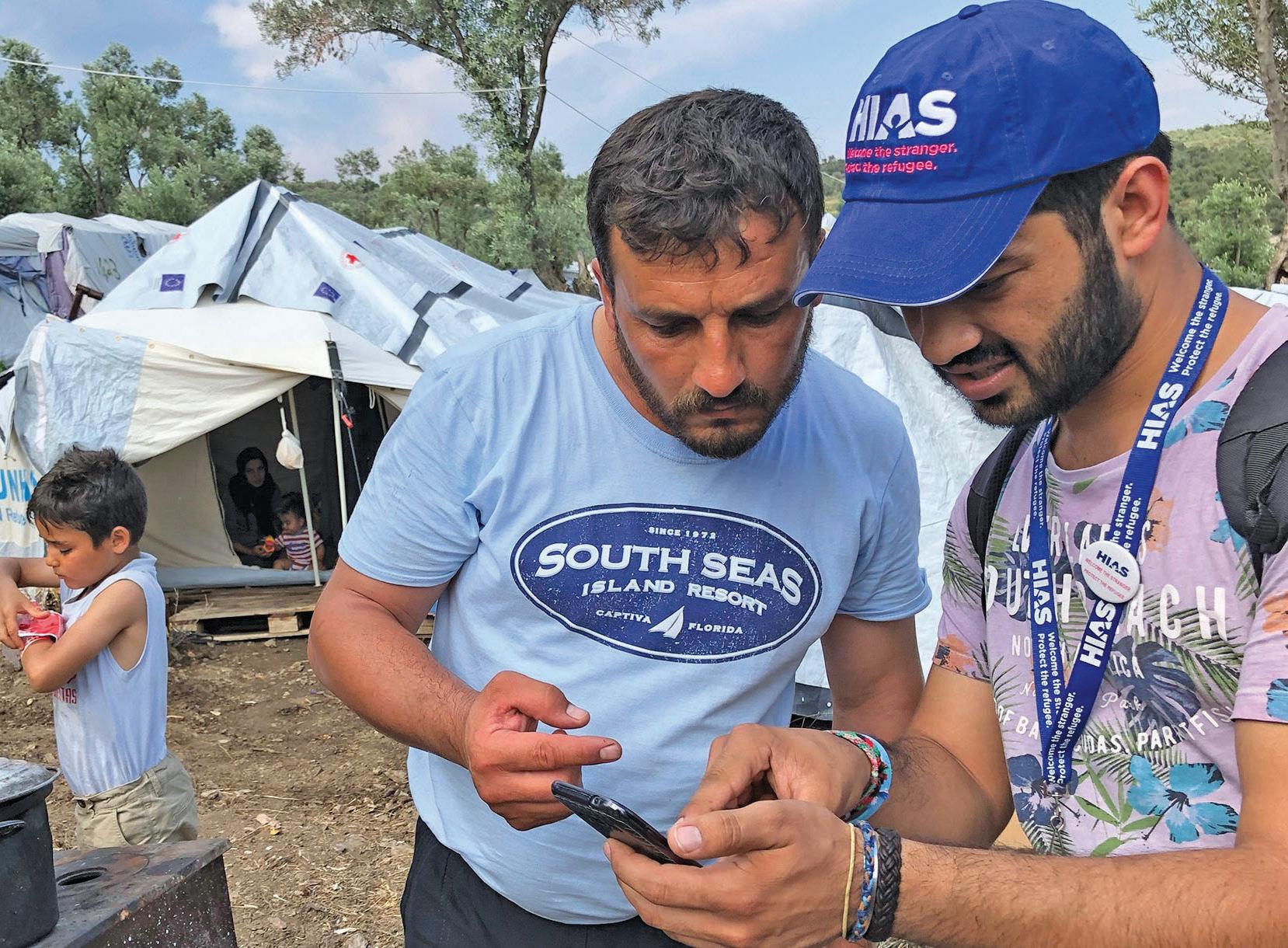
stronger somehow, so we hope that’ll be the case again this time,” Hetfield said in an interview.
The structures of modern refugee resettlement came about as the Western world coped with the aftermath of the Holocaust, said Melanie Nezer, a former longtime HIAS staffer who is now the vice president of advocacy and external relations at the Women’s Refugee Commission.
”This has been a partnership and an infrastructure that’s been meticulously, slowly been invested in and built back up,” Nezer said. “It’s something that enjoys broad support across the political spectrum. It’s a legal, safe way to rescue people who are fleeing persecution. And the fear is that it will be dismantled again.”
HIAS is one of approximately 10 organizations that works on refugee resettlement with the government program, called the U.S. Refugees Admissions Program, but it is not wholly reliant on government funding. That’s partly due to programs the group launched or expanded after Trump administration restrictions precluded refugee resettlement.
Days after he first took office in January 2017, Trump signed a wholesale ban on refugee entry, part of his larger travel ban targeting several Muslim-majority countries. That kicked off four years of adversarial relations between Trump and HIAS, sending its refugee resettlement numbers plummeting and forcing it to look elsewhere to spend its ballooning war chest.
During the four years of Trump’s first term in the White House, HIAS’ revenue increased 77%, from $44 million in 2016 to $78 million in 2020, according to Hetfield. The group
continued from page 5
After a yearlong pivot to virtual programming during the early Covid-19 lockdowns, the museum has not recovered its pre-pandemic visitor numbers since it reopened in spring 2021, according to the press release.
Kasten told J. that the museum’s current operating expenses of $8.5 million, according to its 2023 tax filing, have been outpacing operating revenue.
“We have been operating at a deficit for the past five to six years,” he said.
Other factors impacting the institution’s finances include the political aftermath of the Oct. 7, 2023, Hamas massacre in Israel and the subsequent war, which have diverted some donor funds toward support of Israel.
“No one factor has gotten us here,” King said during a brief interview with J. “Many factors predate this past year. But yes, that has been a factor. Donors have so many things to think about, and Jewish donors today, especially. It’s been tough for all of us.”
The museum’s hope is that closing for at least a year will enable leaders to figure out a formula for success, King said.
“Over the past few years, working with fewer resources and running full speed doing what we do, it has been difficult to also work on creating a different shape to our operations,”
“We have been operating at a deficit for the past five to six years.”
Tom Kasten, CJM board chair
she said. “This sabbatical is meant to provide the focused time to do this work. Our end goal is to preserve endowments and have a plan for the future that scales our budget to be able to continue in our mission.”
Everything that can advance that goal will be on the table,
King said, from new partnerships to sharing the building with other Jewish organizations.
Kasten added that the pause will provide the museum’s leaders with time to make good decisions.
“I absolutely believe that giving ourselves both the time and resources to engage in a period of intense reimagining will allow us to articulate who and what we need to be, and how we can best reach new and expanded audiences, and ensure a version of The CJM for future generations,” Kasten said in an email exchange with J.
“I can’t yet speculate on what the next version of The CJM will look like, but I think that the Museum’s core purpose of uplifting Jewish artist voices, combating antisemitism and intolerance of all kinds, and educating the public about Jewish art and culture will remain core components of what we continue to do in the future,” he added.
Entry to the museum will be free through Dec.15. After that date, CJM will continue to rent out its building for events. n
sued the Trump administration over the travel ban. Hindered at home, it expanded its activities overseas, and now provides services to refugees in more than 20 countries. “Our U.S. resettlement program receded” under Trump,” he said, “but we became even more active overseas, and had significantly more private support from American Jews.”
And it became a symbol of American Jews’ long-standing support for immigrant rights — especially following the Pittsburgh massacre that killed 11 worshippers.
That violence was fueled by the antisemitic “great replacement” conspiracy theory, which baselessly posits that Jews are orchestrating the mass immigration of people of color to replace whites. Trump echoed the theory at the time — and throughout this year’s campaign — with a claim that Democrats want migrants to vote and keep Republicans out of power.
The memory of the massacre haunts Hetfield, who testified at the shooter’s trial last year.
“We’ve been worried about another Tree of Life incident since the first one because the hateful rhetoric never went away and replacement theory has become completely mainstream,” he said. “But now we worry even more because dehumanizing speech will be coming from inside the White House.”
In the campaign that delivered him back to the White House, Trump routinely depicted refugees and asylum-seekers as a threat, painting them as overwhelmingly criminal or dangerous. He spoke multiple times about migrants “poisoning the blood of our country” — a phrase that, at a rally, he denied had been inspired by Adolf Hitler.
“Kamala has imported an army of illegal alien gang members and migrant criminals from the dungeons of the third world,” he said last month at a rally, referring to his rival, Vice President Kamala Harris, Politico reported, “from prisons and jails and insane asylums and mental institutions, and she has had them resettled beautifully into your community to
prey upon innocent American citizens.”
Jeff R. Swarz — co-executive director of the Interfaith Council of New Americans Westchester, north of New York City, which has worked with HIAS to resettle 10 refugee families totaling 35 people over the past decade — said that rhetoric is already having an impact.
“The fact that he’s already talking about rounding up and deporting 11 million undocumented immigrants, it puts a lot of fear into everyone, even legal immigrants,” he said.
The American Immigration Council, an advocacy group that favors immigration reform, estimates that Trump’s deportation plans would cost Americans $1 trillion over a decade, and that it would reduce the gross domestic product
“I do expect a crackdown on organizations perceived to be hostile to the regime. Whether they’ll get away with it, that I don’t know.”
Andres Spokoiny, president Jewish Funders Network
somewhat because of shocks to the labor market. (Trump and his primary immigration adviser, Stephen Miller, who is Jewish, have said the jobs would go to unemployed American citizens.)
Much of HIAS’ work stateside is done in partnership with local agencies, including Jewish family service agencies across the country. If government funding dries up now, the money HIAS and the local agencies would need to assist refugee families who already are here would come from private donors, Hetfeld said.
“It’s not difficult to find volunteers and to find donors who are happy to support refugee resettlement in their communities,” Hetfield said.
HIAS may be secure in its funding, but that might not spare it from discomfiting government scrutiny, said Andres Spokoiny, president of the Jewish Funders Network.
“I do expect a crackdown on organizations perceived to be hostile to the regime,” he told eJewishPhilanthropy, adding that HIAS would be a likely target. “Whether they’ll get away with it, that I don’t know, but I expect to see the administration try to throw the book at them.”
Prominent Trump supporters have already suggested that in his second term nonprofits opposed to his policies should come under government investigation. And Trump in a 2019 speech to the U.N. General Assembly accused immigration assistance groups of aiding criminals.
“You are empowering criminal organizations that prey on innocent men, women and children,” he said then. “When you undermine border security, you are undermining human rights and human dignity.”
Nezer said the speech rattled immigrant rights groups, although Trump never followed up with actions against the NGOs. “It was really scary,” she said.
Hetfield said the one bright light he’s seen was that, in his victory speech, Trump emphasized that he favored legal immigration. “We want people to come back in, we have to let them come back in, but they have to come in legally,” said Trump.
Hetfield saw an opening. “It will be HIAS’ job to hold President-elect Trump to his word, to ensure that legal pathways for immigrants and refugees remain open,” he said in his email to staff.
“Blaming and fearing the other is easy, as we saw during this campaign,” he said in his email. “Yet those of us who work at HIAS in the United States know that refugees and immigrants have made this country stronger. Many of us owe our very existence to the refuge which this country gave to us, our parents, our grandparents, and our great grandparents.” n
continued from page 13
government-built temporary housing at Kibbutz Hatzerim, near Beersheva. About 150, including Escapa, returned to Be’eri, living in homes that had not been destroyed. When actual reconstruction begins, they will have to leave. Everything has to be rebuilt.
Most of the kibbutz members want to return to Be’eri, Frailich and Escapa said, despite the horrors they lived through. A minority probably will not return.
Reconstruction of the kibbutz will take from three to five years. But those are just the buildings. How will they rebuild the close, idyllic community they once had? Who will put back together the shattered psyches, heal the wounds that can’t be seen?
“We want to go back, despite everything,” stated Escapa. Frailich pointed out the vital importance of resettling the Gaza border region, and as soon as possible. “If there is a vacuum, it will be filled by something,” he stated. “If there is no Kibbutz Be’eri, there is no Tel Aviv, and there is no Israel.”
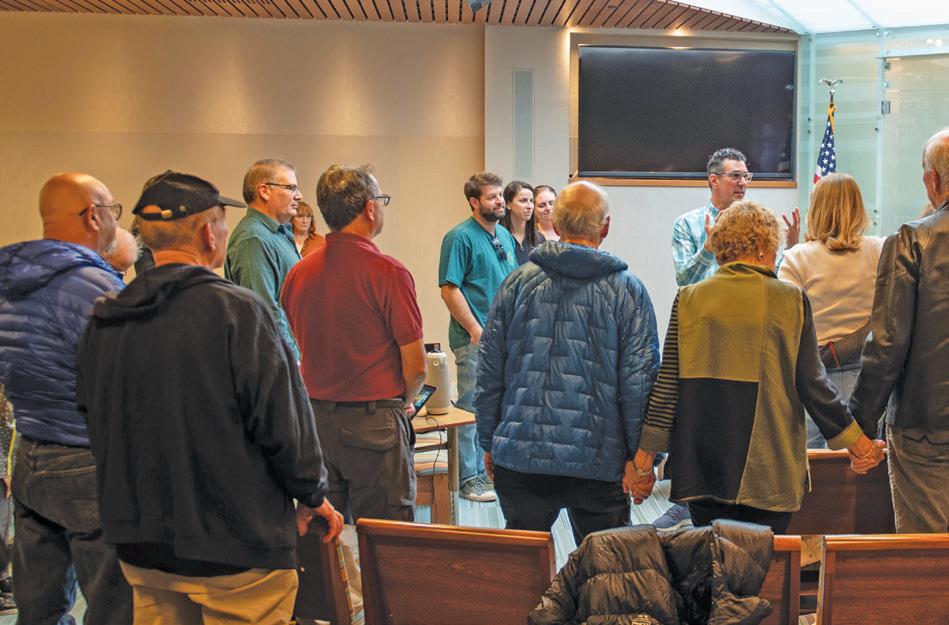
Be’eri’s current fundraising goal is $65 million, Frailich said. Hence this mission to the U.S.
Above all, the two said, they are here to thank the American Jewish community for its tremendous financial and emotional support. As of July, the Jewish Federations of North America had raised $833 million in emergency aid for Israel and allocated $433 million of that to 520 Israeli NGOs.
Of course, the two survivors are also in the U.S. to raise money, but they say making human connections with American Jews is foremost. “We are one people,” Frailich said.
“My mom came from Morocco at age 3,” he said. “She was so positive. She always told me, ‘Ziv, live your life. Make it meaningful.’ If she were here now she’d say, ‘Ziv, rebuild your life, rebuild the community. Don’t give up.’
“That’s why I’m here, to tell you we are continuing. They didn’t destroy us.” n
Contributions to Kibbutz Be’eri’s reconstruction may be made at rebuildbeeri.org.
J. is a media sponsor of the 2024 Z3 Conference at the Oshman Family JCC in Palo Alto on Nov. 17. These op-eds from conference speakers represent just a slice of the diverse perspectives on the Israel-diaspora relationship that attendees will hear there. These op-eds have been solicited and edited solely by J.
ALANA ZEITCHIK | GUEST CONTRIBUTOR
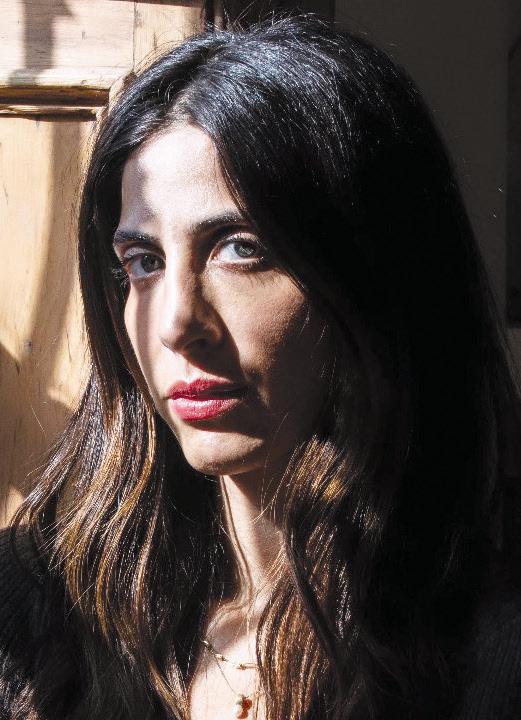
Last November I traveled to Washington, D.C., to speak at the March for Israel. The march was organized by the Jewish Federations of North America to stand in solidarity with the Jewish state and against rising antisemitism.
After six people in my family were taken hostage by Hamas on Oct. 7, 2023, I became their primary advocate here in the United States, and I thought the march would be a chance to feel comforted by my Jewish community. Instead, it was the first time I felt disillusioned with our institutional pro-Israel spaces.
On Oct. 7, 2023, my cousin Sharon Alony Cunio, her husband, David Cunio, and their 3-year-old twin girls, Emma and Yuli, as well as my cousin Danielle Alony and her 5-year-old daughter, Amelia, were stolen from Kibbutz Nir Oz in an act of barbaric violence.
Unlike my cousins, I have had the privilege of being born and raised in America where I have never felt the pang of fear from rocket sirens. So I felt it was my responsibility to access my privilege and power to fight for them.
Advocating for Israelis held hostage has not been easy. In fact, it has been one of the loneliest and most confounding experiences of my life. Early on, I was struck by the speed at which the progressive community turned its back on us. I live in Brooklyn and, like in the Bay Area, I am surrounded by a diverse group of people who share similar liberal values and political ideologies.
I was horrified by the justification of my family’s kidnapping as “resistance,” but I was not surprised. During Israel’s May 2021 war with Hamas, I had already seen how the Palestinian cause for self-determination, which is a righteous one at its core, had completely captivated many of my peers. What really surprised me was the frustration and loneliness I came to feel within the Jewish American community.
I had already been dismissed as less worthy by far-left Jewish activists, such as those who support the anti-Zionist group Jewish Voice for Peace, which I believe dangerously disregards the threat against Israelis. Then, at the march in D.C. last November, I began to feel alienated from pro-Israel spaces too.
Backstage I watched American influencers flit by smiling brightly while wearing an Israeli flag as a cape. I was feeling heavy with grief when someone presented me with a flag asking if I wanted to do the same. I politely declined, but inside I wanted to scream. I had fastened pins of my cousins’ faces to my jacket, and the idea of wearing any other
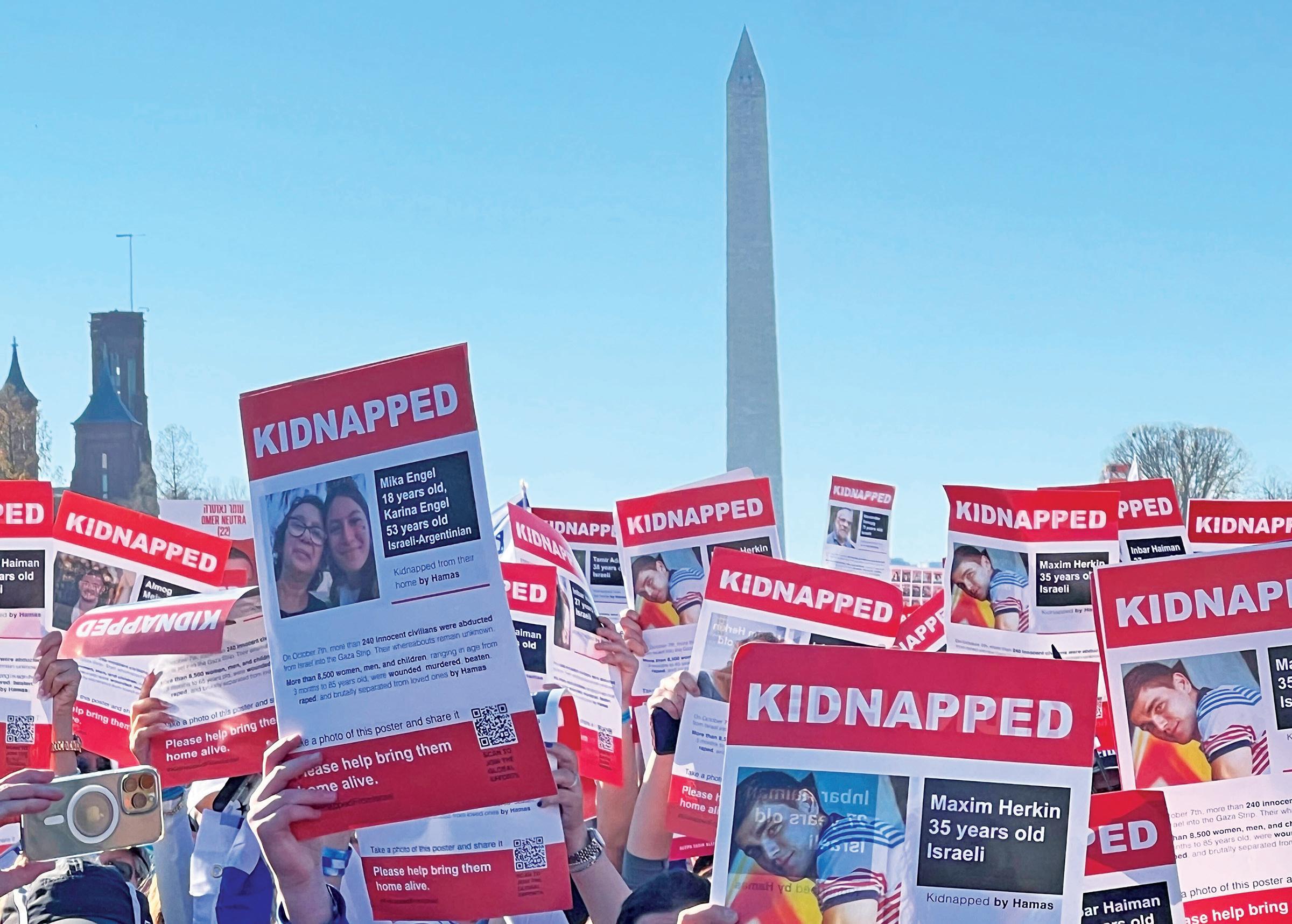
national symbol or insignia felt like a betrayal.
It was clear to me that nobody, other than fellow hostage family members, understood that we were not only up against Hamas but also the current Israeli government. I took the stage and looked out upon a sea of Israeli flags. After my speech, people cheered “bring them home,” but the experience left me feeling empty instead of energized.
Israel’s military response in Gaza had already been brutal, killing many innocent Palestinians, including children. It had been reported that hostages were being kept in hospitals, not only in tunnels, and they could also be killed in the ongoing bombardments. I had been tirelessly advocating for the safe return of the hostages to be the only priority and knew it would take compromise and diplomacy, yet everyone around me balked at the notion of a cease-fire.
About two weeks later, a deal was struck. Sharon, Danielle and their three children were released in the one and only diplomatic deal of the war. It included a temporary cease-fire, a release of 105 hostages and 240 Palestinian prisoners, most of whom were not convicted of a crime. However, my cousin’s husband David Cunio was left behind and he remains captive today.
Shortly after the miraculous return home of the 105 hostages, three other hostages were killed by the Israel Defense Forces while holding white flags. The response
from the greater Jewish community was one reminiscent of “thoughts and prayers” after a school shooting. I crumbled. Where would I find support if my community could not come together even in that moment?
The Jewish American narrative pushing solidarity felt suffocating, demanding that we be uniform under the banner of being united. I didn’t need solidarity — I needed allies who would speak out against anyone and everyone endangering the lives of the hostages.
It finally dawned on me that our entire community was too fractured to give me the support I needed. There was one group of anti-Zionist Jews revising our history to fit another people’s narrative — and another group unable to see that the war had gone too far and was harming our own people. Both of these realizations led me to ask myself an important question: If we can’t be allies to each other, then how can we ask others to stand with us?
I think it can be easy to look outside of ourselves and place blame upon those who have left us behind. But in truth I think now is the time to look inward and strengthen allyship from within. Now is the time to listen and cultivate respect for our fellow Jews. It is time to have challenging conversations across our political differences, reconnect to our peoplehood and recommit to the Jewish values we all hold dear. Our future depends on it. n
MOHAMMAD DARAWSHE | GUEST CONTRIBUTOR
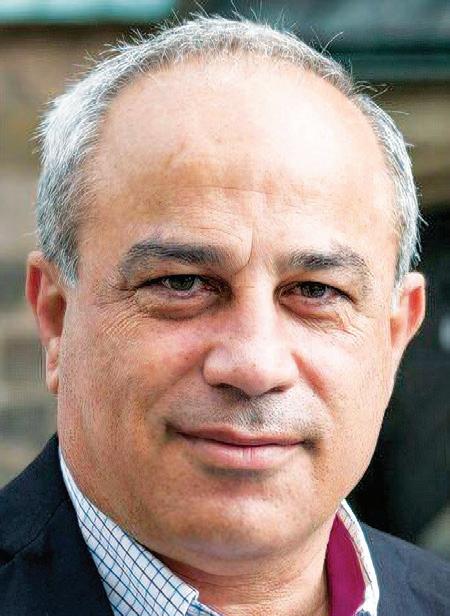
The tragic events of October 7, 2023, created a new challenge to Jewish-Arab relations inside Israel. This is not the first time that the cross-border, cross-greenline Israeli-Palestinian conflict has shaken the sensitive relationship between Jewish and Arab citizens of Israel. But as the war drags on, we are witnessing a growing rate of mutual fear and mistrust between these communities.
In the 1990s, the Oslo negotiations offered a path for peace in the shape of a two-state solution to the Israeli-Palestinian conflict but did not address the Palestinian citizens of Israel, who today number about 1.7 million people. That has left them with two options: moving to a future Palestinian state or staying in Israel as an eternal minority.
Given how inhospitable the Middle East has been to Palestinians since 1948, the prospect of becoming refugees, even in a future Palestinian state, is not an appealing option to Israel’s Arab citizens. Indeed, more than 93% of them have said they would stay in their homes, in their towns, in their homeland — in the State of Israel.
This leaves integration into Israeli society as their only realistic option. Making this work hasn’t been easy, largely because Israel defines itself as the state of the Jewish people and refuses to see its Arab citizens as full equals. This negates the promise of Israel’s Declaration of Independence, which appealed to the “Arab inhabitants of the State of Israel to preserve peace and participate in the upbuilding of the State on the basis of full and equal citizenship and due representation in all its provisional and permanent institutions.”
The declaration also promised that Israel “will ensure complete equality of social and political rights to all its inhabitants irrespective of religion, race or sex; it will guarantee freedom of religion, conscience, language, education and culture.”
Many laws have been enacted in recent decades with the cumulative effect of reducing the promise of equality: the citizenship law, the Nakba law, the acceptance committees law, land laws, municipal jurisdiction laws and budgeting laws. These culminated in a 2018 law declaring that Israel is the “nation-state of the Jewish people” — in other words, that Arab citizens are not equals. The law also downgraded Arabic from an official national language to one with only “special status.” Among Arabs in Israel, this has been perceived as a deep insult and sends a signal to the wider Arab world that, in Israel, Arab culture is inferior.
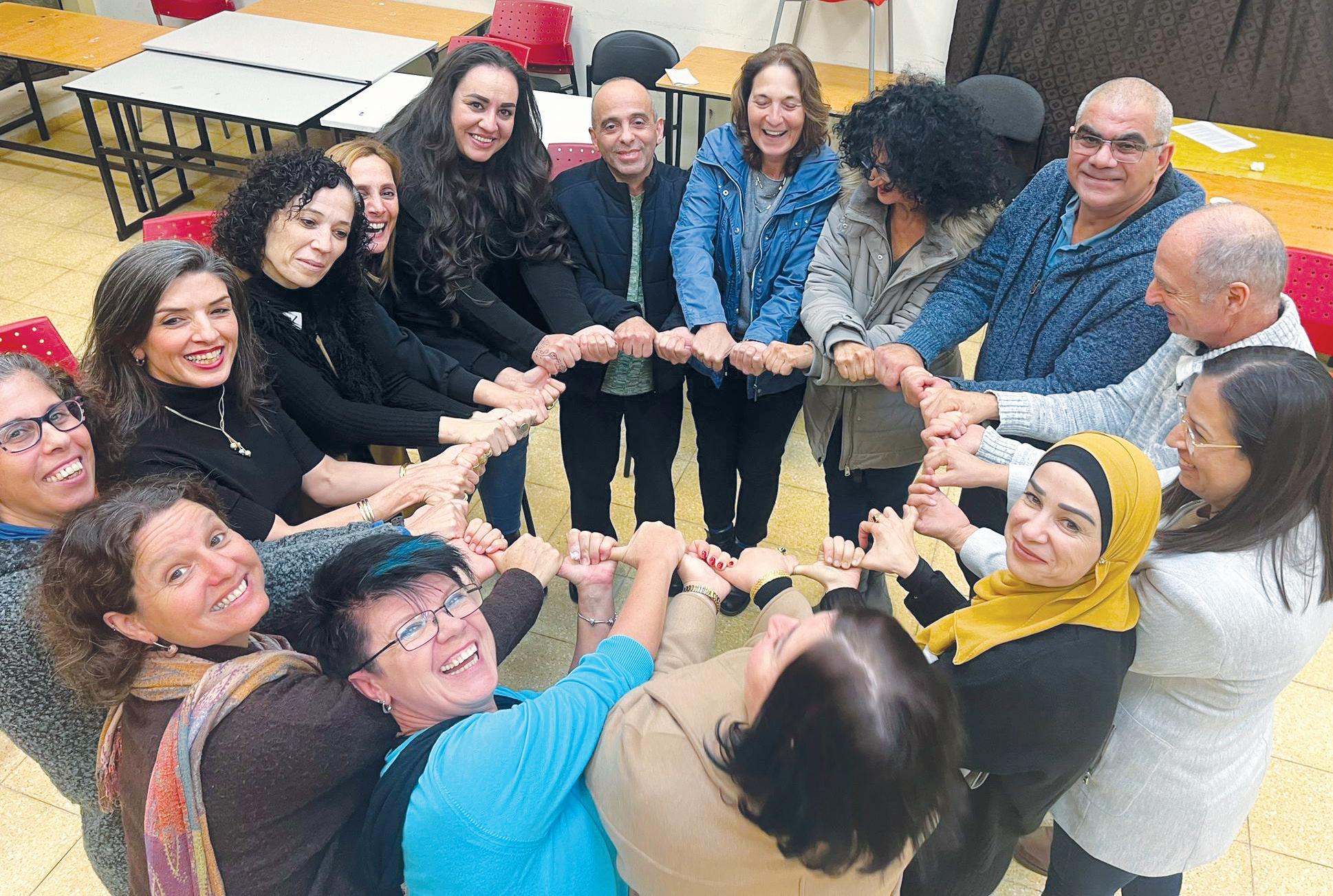
pointing the way forward. The most visible among them is in the health care industry, where fully a third of Israel’s medical professionals are Arab citizens. Academia is another island of success: The percentage of Arab students in Israeli universities is now equivalent to their numbers in society. Recognizing the centrality of education in social mobility, Israel’s Arab citizens have taken their career paths into their own hands.
The prospect of becoming refugees, even in a future Palestinian state, is not an appealing option to Israel’s Arab citizens.
Their success has been enhanced by the board of higher education and the universities choosing to reduce obstacles and by socially conscious Israeli employers who see the value in diversity and inclusion. University entrance exams are now offered in Arabic, for example, and Arab students can defer exams scheduled while they are fasting for Ramadan. Certain government ministries have also played a positive role, establishing more high schools in Arab villages.
Yet parallel to the islands of success, we see many areas of failure, mostly resulting from conscious institutional discrimination by certain government agencies. Arab municipalities receive inadequate budgets, crime in the Arab sector is allowed to fester and Arab voices that speak out against the government are often silenced.
government of Israel, but civil society plays a role too. Organizations like Givat Haviva, which focuses on building a “shared society” between Jewish and Arab citizens of Israel, are taking action to speed up the process through education and municipal partnerships.
By placing Jewish teachers in Arab schools and Arab teachers in Jewish schools, Givat Haviva proves that studying together reduces stereotypes and humanizes the other. Each year, we bring 18,000 Jewish and Arab young people to meet one another, fostering the formation of positive perspectives about the other’s culture. Hosting Jewish and Arab graduates of art schools for a joint residency allows the co-creation of joint art exhibits. Municipal cooperation between Jewish and Arab towns, funded and facilitated by Givat Haviva, have resulted in joint facilities that serve both communities.
For this work, Givat Haviva won the UNESCO prize for peace education in 2001. But for these efforts to make the large-scale impact that we believe they can, two things need to happen. First, we must train more teachers, facilitators, mayors, corporate leaders and government officials to understand the value of cooperation and to develop the skills to operate these programs. Second, the government must sponsor such programs nationwide.
Even as the promise of political equality shrinks, islands of success in Jewish-Arab relations have emerged,
But it is in Israel’s national interest to create a truly shared society for Jews and Arabs. Doing so will demonstrate to the Arab world that Jews returned to the Middle East with good intentions. The burden of proof is on the
Many feared that Oct. 7 would lead to massive confrontations between the two communities. Many tried to fuel the tensions resulting from the war to bring about clashes between the two sides. At the same time, many groups worked to consolidate the accumulated successes, helping to reduce tensions and limit disagreements to nonviolent dialogue. This success is critical to speed the healing process the day after the war. n
APRIL POWERS | GUEST CONTRIBUTOR
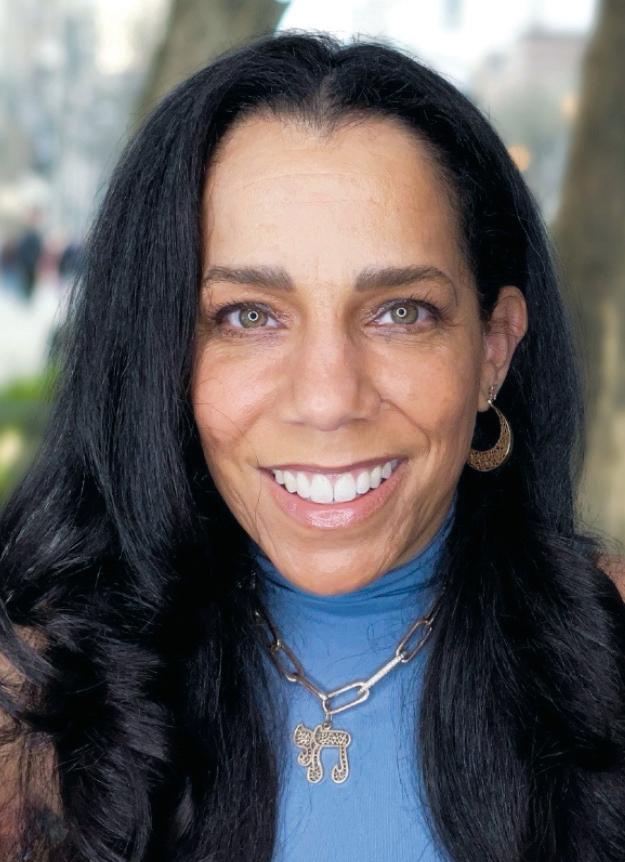
April Powers is vice president of DEI at Project Shema and co-founder of Jewbian Princess. She will speak at the Z3 Conference as a nominee for the 2024 Z3 Bridge Builder Award.
Over 400 days after Oct. 7 and a week after a highly charged election in the U.S.,
I’ve been thinking a lot about our human family and our mishpocha, our Jewish family and allies. Connecting is one of the things we, as a Jewish community, do best. We must not stop doing this now, when it feels most difficult.
I am a Black Jew — and despite all the pain some of our allies have caused us, I still believe in the ongoing work of diversity, equity and inclusion. Is it perfect? No, but it is currently the only tool we have for discussing and combating antisemitism in the workplace.
I encourage you to reach out to your company’s DEI professional or those responsible for workplace culture. Ask them to form a Jewish “employee resource group” and adding Jewish identity and antisemitism
education into their DEI and anti-bias frameworks.
I know it can be stressful to advocate for yourself in that way. But as someone whose public cancellation made international news, I know a thing or two about getting through a debilitating public shaming and reconnecting. Following the Israel-Hamas military conflict in May 2021 — after a year of my speaking out in support of Black lives and trans youth and against anti-Asian hate — I posted about antisemitism.
In response, Jewish members of my team at the Society of Children’s Book Writers and Illustrators were attacked. Our social media and travels to Israel were exposed by trolls, as if our beliefs were problematic. There were death threats. Someone told me, “You’re not Black. You’re a white supremacist.”
I quit my job as chief equity and inclusion officer. I suffered from depression. And I came out the other side realizing that as a global head of DEI, I hadn’t done a good job of including Jewish identity in my own DEI practice. How could I be upset with others who hadn’t?
If you, like me, have been told you should not be a part of a movement because of your Zionism, I invite you to stay unless it’s unsafe for you to do so. If we continue to cede space movements that otherwise reflect our values, Jewish voices will disappear and no one will know us. After demonization and dehumanization, exclusion is the next stage of targeting Jews and has consistently led to violence against us. When we
aren’t there, others can say that Jews don’t show up for them, and people stop knowing who we are and what our values are.
If you’ve ever said, “I have given my all to a movement that doesn’t see me, value me, or want me in it, so now I’m going to focus on supporting my community,” I get it. And yet — please still stay engaged in the work. As a Black Jew, I’m committed to renewing the “Black Jewish covenant,” as political analyst Van Jones lovingly refers to our common goals of supporting robust equitable democracies. When our two communities work together, we are unstoppable.
I also offer a kind reminder: Please include Black Jews in this work. We navigate these conversations regularly, and it would be a misstep to forget our voices. We should apply that to any coalition building because the Jewish diaspora includes members of many marginalized communities, including most ethnicities, disabilities, LGBTQ+ identities and those suffering from substance abuse and poverty.
The theme for this year’s Z3 Conference is “The Future Starts Now.” We have much work to do replanting seeds that have been blown away by the strong winds of hatred, bigotry, disinformation, and misunderstanding. My hope is that our communities can rebuild solidarity based on deep roots, like the adopted motto of so many movements from Greek poet Dinos Christianopoulos: “What didn't you do to bury me / but you forgot that I was a seed.” n
DAVID HAZONY | GUEST CONTRIBUTOR
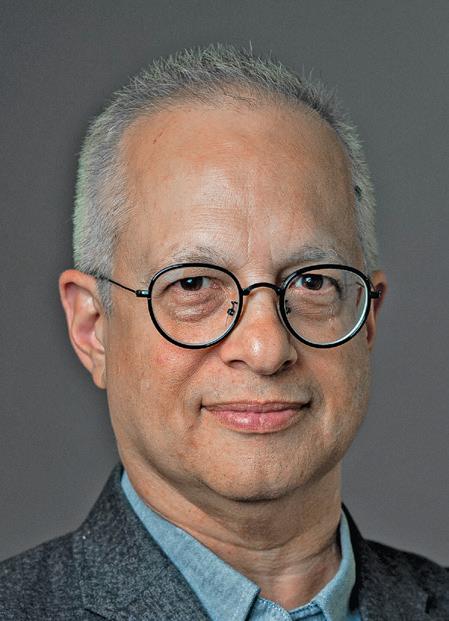
director
Steinhardt senior fellow at the Z3 Institute for Jewish Priorities in Palo Alto. He is editor of the “Young Zionist Voices: A New Generation Speaks Out” and “Jewish Priorities: Sixty-Five Proposals for the Future of our People.” He lives in Jerusalem.
After the Oct. 7 attack, American Jewish institutions failed. For more than a year, whether on campuses or in urban centers, whether in Congress, in schools, or professional organizations, antisemitism suddenly became a legitimate, and in some circles even dominant, position.
This nightmare wasn’t supposed to happen. For a century, Jewish philanthropy in America spent hundreds of millions of dollars each year on an entire system of “defense organizations” and other bodies aimed at protecting the Jewish community.
Yet none of them, it seems, did their jobs. Consistently, major Jewish institutions failed to warn, to foresee and certainly to prevent or prepare for the avalanche of hatred Jews now face. Nobody has resigned. No commissions of inquiry were launched. Instead they circle their wagons, and the phrase “nobody could have imagined” tumbles out of every press release, gala speech or interview.
The fact that some did imagine it — writers like Martin Kramer, Izabella Tabarovsky, Gil Troy, Natan Sharansky and David L. Bernstein, the last of whom published a book in 2022 called “Woke Antisemitism” — doesn’t trouble them in the least.
Those who have paid the greatest price for this failure are young American Jews, especially students. It is they who see the hatred in their fellow students’ eyes. It is they who have to choose every day whether to wear a Magen David in public. It is they who have to face, each day, the accusatory question “Are you a Zionist?” and to sit in class as professors rattle off the litany of horrendous calumnies about Israel that have now become the touchstone of tenure-track chic.
It is also they who feel most abandoned by Jewish institutions — and in many cases have taken matters into their own hands, leading the charge to push back, to protest and to organize.
These young people constitute a new movement in Jewish life, one that will color our collective future even more than did the Soviet Jewry movement of the 1970s and 1980s. From universities to synagogues to communal organizations, a new spirit has arisen, one committed never to make the mistakes of their elders. They are angry, they are proud, and they are committed to serving the Jewish future with both love and wisdom.
How do I know this? Since my first visit back to the U.S. from Israel last October, I’ve been collecting their writings, published in a new book called “Young Zionist Voices: A New Generation Speaks Out.” Its 31 essays express the authors’ disillusionment and anger, but also their vision, passion and
creative commitment. It is a remarkable document.
“Young Zionist Voices” includes some of the betterknown campus activists like Shabbos Kestenbaum from Harvard, Eyal Yakoby from University of Pennsylvania, Julia Steinberg from Stanford, and Maya Platek and Talia Bodner from Columbia, as well as Adela Cojab, whose 2019 lawsuit against NYU under Title VI of the Civil Rights Act opened the door to a wave of similar lawsuits against elite colleges around the country. There are also young rabbis, Jewish professionals, scholars and artists, as well as Gen Z counterparts in the U.K., Australia and Israel, including several who chose to make aliyah. Many of them will be at the Z3 Conference in Palo Alto on Nov. 17, when the book will be officially launched.
This is the future of our people. As author Dara Horn has written, “Reading this book is like taking all these brilliant young people out for coffee — and then listening, in silent awe, as they articulate their visions for the future. In a time of horror, here’s some fantastic news: The Jewish future is in good hands.”
We older folks have an unfortunate tendency to dismiss young Jews as disconnected, ignorant and subject to undue influence from social media. We disparage them as the “TikTok Generation.”
We think we know better. But what we should have learned from the experience of the last year is that we really don’t.
Israel’s wars will come to an end, with the Jewish state hopefully emerging victorious. The diaspora’s wars, however, have only begun. Will we listen to those who can lead us to victory? n




We t ha nk o ur c ustome rs for making us your l ocal groce r.
We a re p roud to se r ve your dail y and holida y need s a nd l oo k f or wa rd to ma ny m ore ye a rs of s uppo r ti ng our co mmu ni t y and satis f yi ng o ur custo me rs . - The Mollie Sto ne ’s Fa mily
a disc jockey, treat yourself to
or grab a bagel, with or without a schmear.
We can help! The results of our 2024 Readers’ Choice poll offer more than 150 recommendations across all regions of the Bay Area — with more than 50 new winners this year.
Since 2005, we’ve asked savvy J. readers to tell us what makes Jewish life in the Bay Area so appealing, and every year, we’re proud to report the results. You’ll enjoy reading about people and places you’re familiar with, and you’ll benefit from learning about new options as well.
Read on — and mazel tov to all the winners of the 2024 Readers’ Choice Awards!
Innovative Programming
SAN FRANCISCO
Congregation Beth Sholom (415) 221-8736 • bethsholomsf.org With a history that dates back to 1906,
Beth Sholom encourages one and all “to discover, deepen and express their Jewish identity through learning, ritual, service and enriched community life.” A modern Conservative synagogue, Beth Sholom strives to build and sustain a community “empowered to make a positive difference in the world.”
(415) 861-6932 • shaarzahav.org
Founded in 1977, Sha’ar Zahav is the Bay Area’s first and only LGBTQI synagogue, embracing diversity of all kinds, including sexuality, gender, race and ability. Single members, couples, interfaith folks and single-parent and multicultural families are all welcome. This Reform congregation offers programs that focus on Jewish experiences “both authentic and transformative.”
(415) 346-1720 • sherithisrael.org
This Reform congregation is a new Readers’ Choice winner this year — but hardly new to San Francisco. Founded during the California Gold Rush, this historic landmark synagogue with an awe-inspiring sanctuary is known for “marrying the newest innovations to thousands of years of Jewish history” through a variety of services and programs.
SOUTH BAY/PENINSULA
LOS ALTOS HILLS
(650) 493-4661 • betham.org
This popular multigenerational Reform congregation, a longtime favorite among J. readers, has committed to live as a holy community where the study and practice of Judaism inspires and challenges members to “do justice, to love kindness and to walk


humbly with our God.” Women’s groups, learning cohorts and family groups are among the special programs.
Congregation Beth Jacob
REDWOOD CITY (650) 366-8481 • bethjacobrwc.org
On the “progressive leading edge of the Conservative movement,” Congregation Beth Jacob — a new Readers’ Choice winner this year — aims to be “the most inclusive synagogue community on the San Francisco Peninsula by providing a range of opportunities” for members and their families “wherever they are educationally, spiritually, and personally.”
PALO ALTO (650) 948-7498kolemeth.shulcloud.com
A new Readers’ Choice winner this year, Congregation Kol Emeth welcomes everyone to this traditional, egalitarian Conservative synagogue located in the heart of Silicon Valley. An inclusive synagogue, Kol Emeth is “a place to learn, grow, pray and make face-to-face human connections.” A variety of programs meet a wide range of congregants’ needs.
Congregation Kol Shofar
TIBURON (415) 388-1818 • kolshofar.org
Founded in 1962, Congregation Kol Shofar — a new Readers’ Choice winner this year — is a dynamic Conservative congregation “rooted in the enduring values of Jewish traditions, while embracing innovations that enrich contemporary Jewish life.”
Spiritual growth and connection to a caring community are cultivated among people of all ages and diverse backgrounds.
SAN RAFAEL (415) 479-3441
rodefsholom.org
Congregation Rodef Sholom’s brand-new, 22,000-square-foot, two-story building dedicated in May is open at last, at the site of the original building. This Reform congregation continues to ignite “the passion to connect — with Jewish values, with each other, and with our world.” Social justice and climate action are focal points, with innovative pilot programs also available.
Congregation
BERKELEY (510) 549-9447
netivotshalom.org
Organized in 1989 out of the founding members’ “collective commitment to creating an egalitarian spiritual home for Conservative/Masorti Jews,” Netivot Shalom welcomes intermarried couples, nontraditional households, old and young. “We explicitly recognize and cherish each other as teachers and students.”
OAKLAND (510) 451-3263
oaklandsinai.org
“Jews by birth, Jews by choice, interfaith families and those wishing to learn more about Judaism” all are welcome at this large Reform congregation known for progressive social action programs. Innovation is a focus here, and the historic Beaux Arts-style building, which opened in 1914, houses an award-winning preschool and religious school.
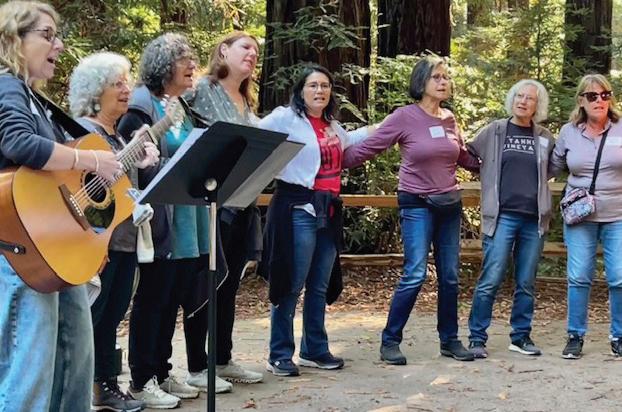
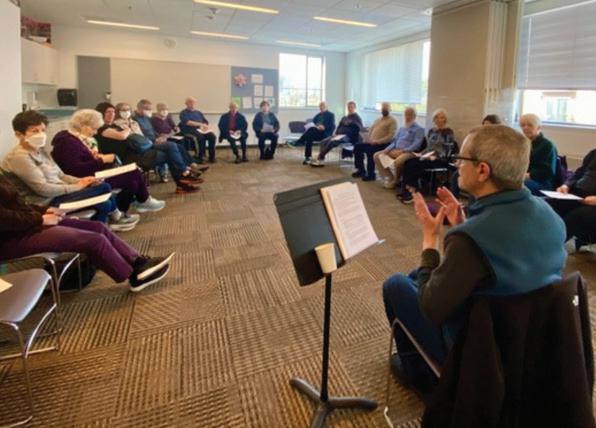
Explore Tradition. Find Purpose. Create Community. Temple Sinai is a warm and vibrant Reform synagogue in the heart of Oakland. We are the East Bay source for meaningful Jewish experiences and learning opportunities for all ages and stages of life.
LAFAYETTE (925) 283-8575 • temple-isaiah.org
The oldest and largest synagogue in Contra Costa County — and a new Readers’ Choice winner this year — Temple Isaiah has deep roots in a “uniquely Californian, vibrant approach to Jewish tradition and innovation.” The diverse membership of the Reform congregation uses “our hearts, minds and hands to fulfill in modern times the ancient prophetic call to social justice.”
(DAY CAMP OR OVERNIGHT)
BAY AREA
Camp Tawonga
NEAR YOSEMITE NATIONAL PARK (415) 543-2267 • tawonga.org
For over 95 years, Camp Tawonga has remained committed to “immersing children in community building, Jewish values and nature to help them become their best selves and go on to make the world a better place.”
The camp offers summer programs, weekend programs and year-round programs, with options for teens and families and also a bar, bat and b’nai mitzvah program.
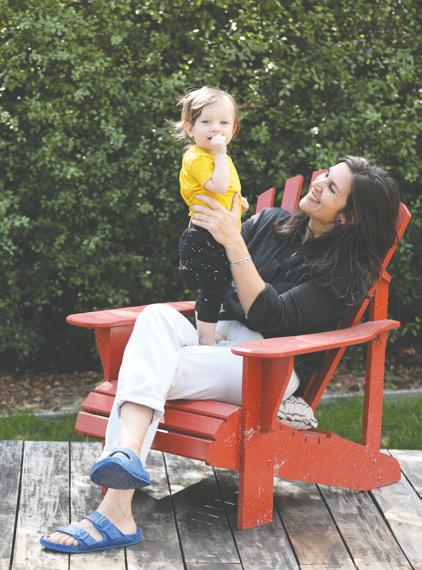
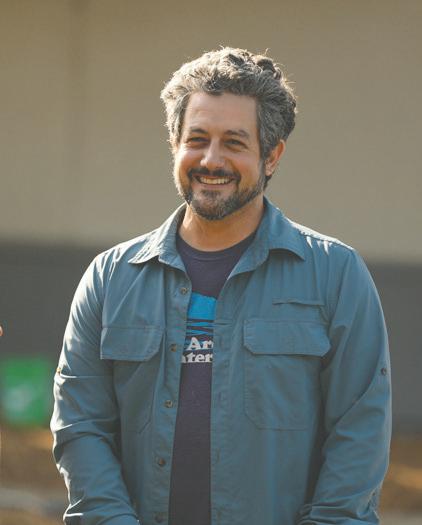
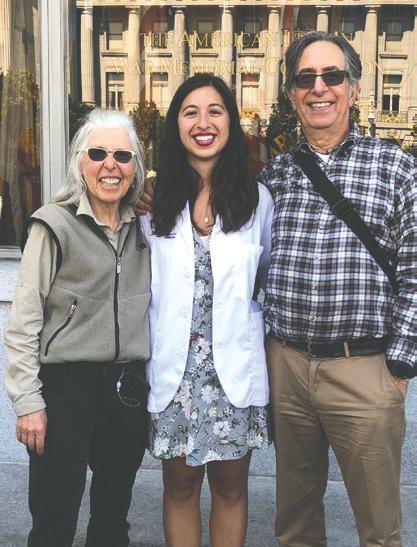
BERKELEY (510) 848-2372 • campkeetov.org
A place of rich tradition and sense of community for over 50 years, Camp Kee Tov offers day camping “with a special ruach (Kee Tov spirit) all its own.” For children entering kindergarten through 9th grade, the camp’s programming and traditions have inspired thousands of campers “from a diverse cross-section of our community with a wide variety of cultural backgrounds.”
PALO ALTO (650) 223-8700 • ofjcc-jcamp.com
Day and overnight camps for incoming transitional kindergarten through 10th-grade students are available through the OFJCC, which build “a spirited community where campers are immersed in joyful camp activities and develop meaningful relationships with others while engaging in individual personal growth.” Camps held during school breaks also are available.
SANTA ROSA (415) 392-7080 • campnewman.org
Offering summer and year-round programs, URJ Camp Newman “lives by the value of

B’tzelem Elohim, which reminds us that each of us is created in the image of God, meaning that each person at camp has a specific set of needs, wants, feelings, hopes, and dreams.” Founded in 1947, the camp works to build “a community of acceptance.”
SAN FRANCISCO Hebrew Free Loan (415) 546-9902
hflasf.org
Founded in 1897, this nonprofit provides interest-free loans to help Jewish individuals in Northern California overcome financial challenges and pursue life dreams. Help is available in four languages for families facing emergencies, small businesses, the recently unemployed, first-time home buyers, first-generation students who need help affording an education and more.
SAN FRANCISCO
SOUTH BAY/PENINSULA
NORTH BAY
Jewish Family and Children’s Services of San Francisco, the Peninsula, Marin and Sonoma Counties (415) 449-3700 jfcs.org
One of the oldest and largest human service agencies in the U.S., the JFCS is considered “the problem-solving center” for the Bay Area. Founded in 1850, the agency works to strengthen individuals, families and communities through more than 40 programs, including home care for seniors, therapy for children, youth volunteer programs and much more.


EAST BAY Shalom Bayit
BERKELEY (866) 742-5667
shalom-bayit.org
Shalom Bayit works to foster social change to eradicate domestic violence and serves abuse survivors of all genders and sexual orientations. As Northern California’s first and only Jewish agency dedicated to ending domestic violence, Shalom Bayit programs include counseling, community education and a dating violence-prevention program for Jewish youth.
SAN FRANCISCO JCC of San Francisco (415) 292-1200 • jccsf.org
The focus here is family, Jewish life and fitness, with group classes in studios and two swimming pools, personal training, educational programs and holiday events for all ages. Cultural lectures, performances, exhibits are available through the Arts & Ideas department. Plus, a branch of Wise Sons Jewish Delicatessen has just opened inside the JCC.
PALO ALTO (650) 223-8700
paloaltojcc.org
The OFJCC offers multiple activities for youth, seniors and the large Israeli and Russian-speaking communities in the area. Also available are opportunities for Jewish life and learning, fitness, community involvement, classes, lectures and a Center for Social Impact. Dinners, author events and afternoon music programs also are on the schedule.
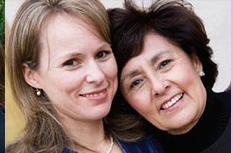
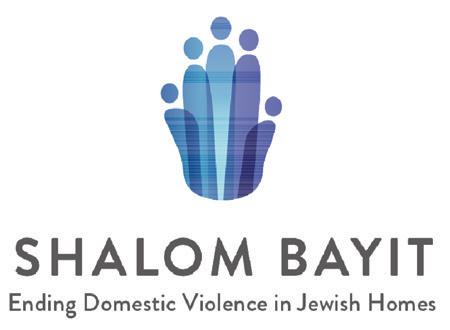


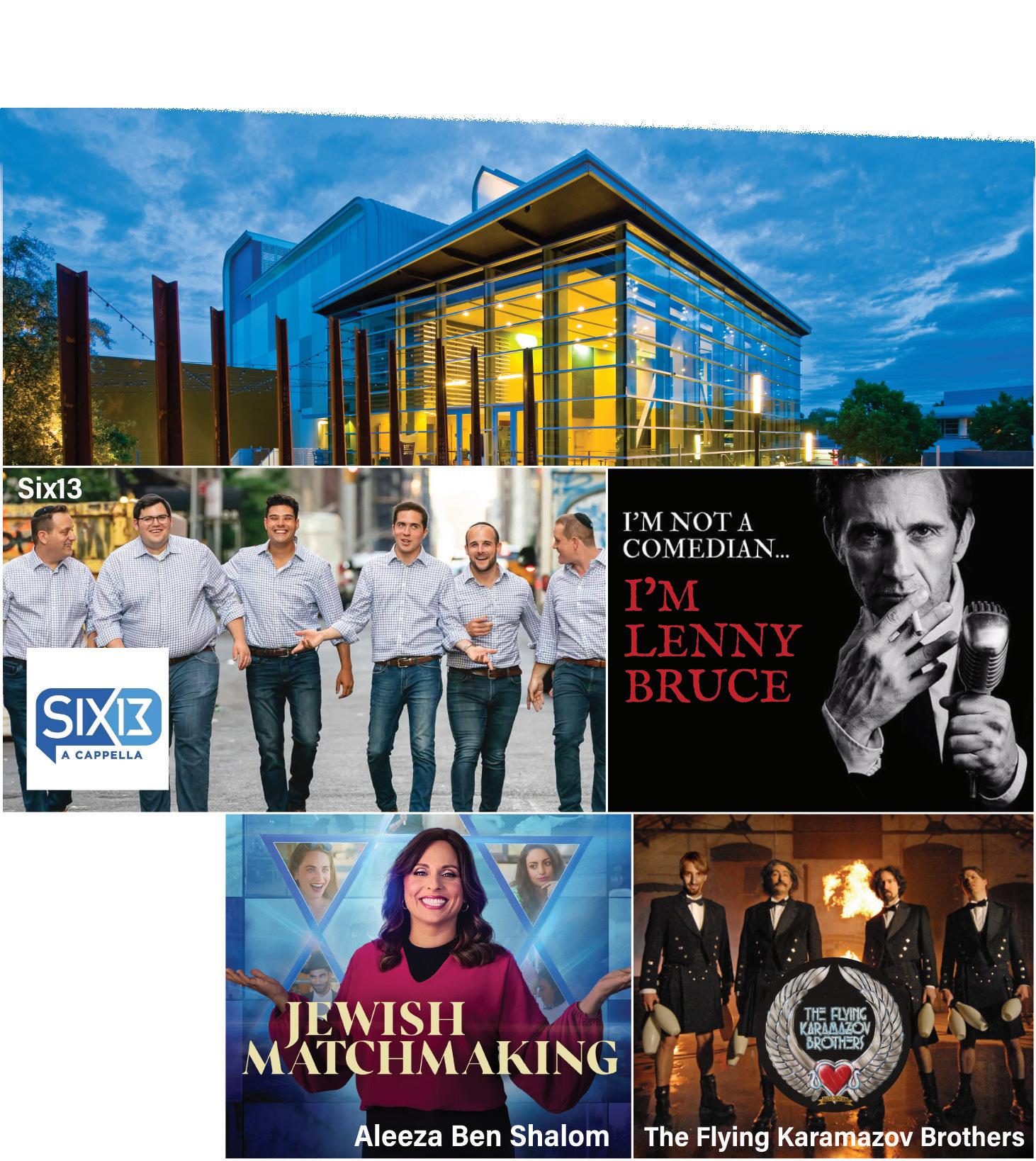

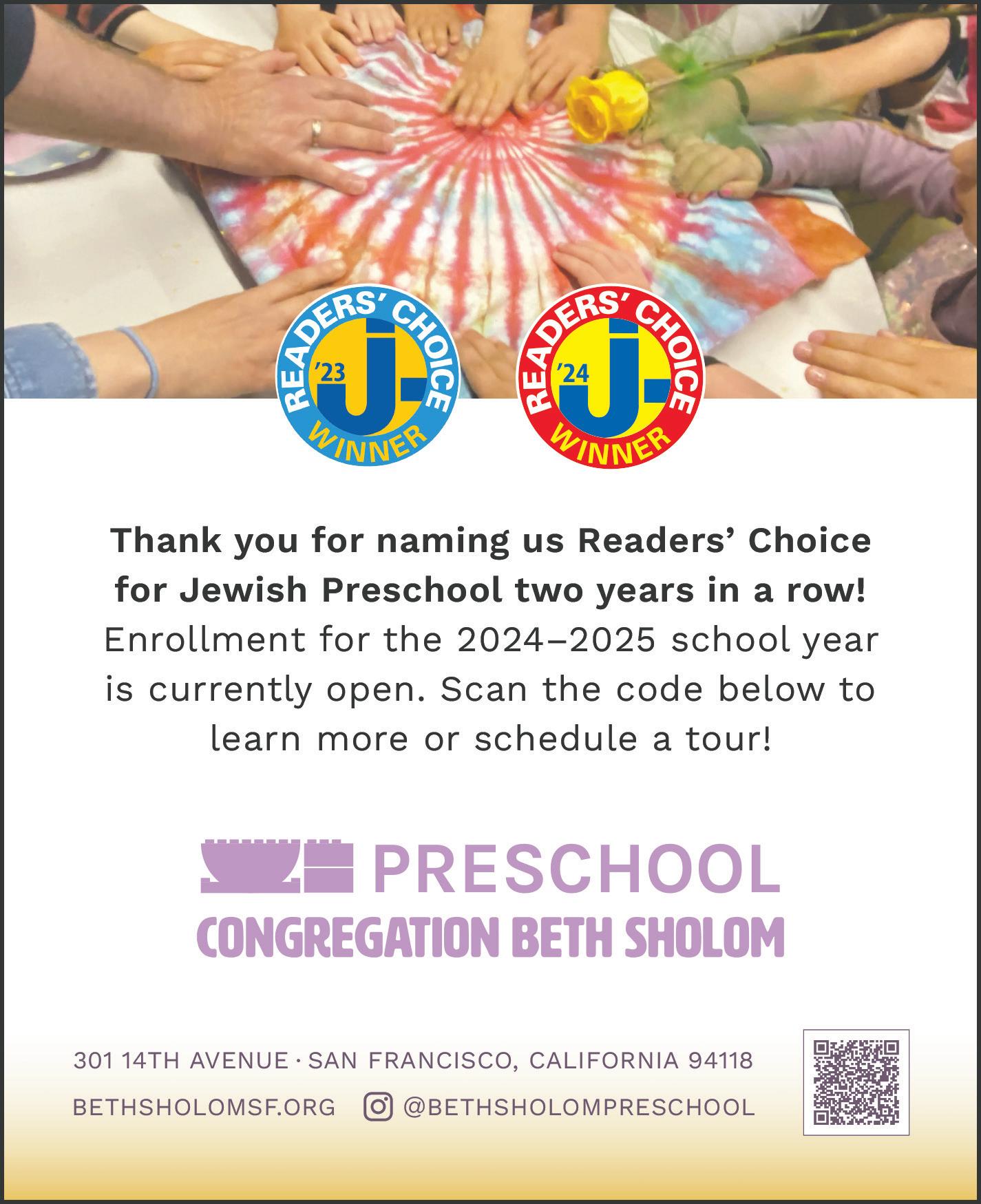
FOSTER CITY (650) 212-7522 • pjcc.org
Expect an NCAA regulation-size gym, swim programs in indoor and outdoor pools, exercise classes and personal and group training as well as special celebrations, family events and Jewish learning programs. The Peninsula JCC remains “a hub for engagement, dialogue, collaboration and the celebrations that enrich our lives and the community in which we live.”
LOS GATOS
(408) 357-7429 • apjcc.org
This full-service APJCC — a new Readers’ Choice winner this year — offers fitness, aquatics and community programs, all designed to enhance Jewish life in Silicon Valley and to provide social, cultural, educational and recreational services for the entire community. “We are committed to providing a safe, inclusive, and supportive environment where every member can thrive.”
SAN RAFAEL (415) 444-8000 • marinjcc.org
“Community is the heart of the Osher Marin JCC,” where members attend events and classes, stay healthy and create friendships that last a lifetime. “We’re here for you— enriching lives, building community, and sustaining Jewish culture.” Find activities for seniors, other adults, teens and children. Everyone is invited to attend events and enroll in classes.
BERKELEY
(510) 848-0237 • jcceastbay.org
The JCC East Bay creates “healthy communities inspired by Jewish values, culture, and tradition” by serving as “a geographically accessible home that provides high-quality programs and gathering spaces throughout the East Bay.” Construction on the new Oakland Campus in Rockridge is scheduled to begin in January 2025.
SAN FRANCISCO Congregation Beth Sholom (415) 221-8736 bethsholomsf.org/early-childhoodeducation

Inspired by the principles of the Reggio Emilia approach to early childhood education and infused with Judaic values and culture, Beth Sholom’s preschool “enriches the lives of young children and their families” with opportunities for learning, creativity, exploration and curiosity. Expect parent education workshops, ongoing teacher education and individual family counseling.
(415) 343-1720
sherithisrael.org/preschool.html
“Nature-based with Jewish roots” — that’s Sherith Israel Preschool, a new Readers’ Choice winner this year. Students spend much of their time at local parks and other neighborhood locations, and the school offers family field trips, weekly Shabbat services, monthly Tot Shabbat dinners, holiday parties and other community events.
PALO ALTO (650) 223-8788
paloaltojcc.org/early-childhood
The Leslie Family Early Childhood Education Center is an award-winning preschool “with an atmosphere for building healthy relationships and positive learning experiences.” The Center’s approach to learning is both creative and organic, “driven by the childrens’ curiosity and desire for mutual growth among educators, families and students,” and welcomes all faiths.
NORTH BAY
Osher
SAN RAFAEL/MILL VALLEY (415) 444-8162
marinjcc.org/preschool-main
The Osher Marin JCC preschool programs “provide the best foundation for a lifelong
love of learning.” Highly qualified early childhood educators engage children in meaningful ways “by creating indoor and outdoor spaces that provoke wonder, curiosity, and social connection.” The curriculum is rooted in Jewish tradition and values.
Grove Preschool at Kol Shofar
TIBURON (415) 388-1012
grovepreschool.org
A new Readers’ Choice winner this year, the Grove Preschool “works closely with families and values parents as an integral part of the education process. Children are encouraged to develop self-esteem, know that they are loved, have a unique place in the world and respect all people and embrace our differences.”
OAKLAND (510) 451-3263
oaklandsinai.org/tsdpp.html
“Our core Jewish values of Kehillah (community), Kavod (respect), B’tzelem Elohim (created with divine sparks) and Kavannah (intention) provide the framework for teaching and learning at Temple Sinai David Pregerson Preschool” The curriculum is play-based and emergent. “We are committed to creating loving relationships among children, families and staff.”
BAY AREA
Shalom Bayit
BERKELEY (866) 742-5667 • shalom-bayit.org
“Creating Hope: Drawing from Miriam’s Well” — Shalom Bayit’s 32nd annual gala

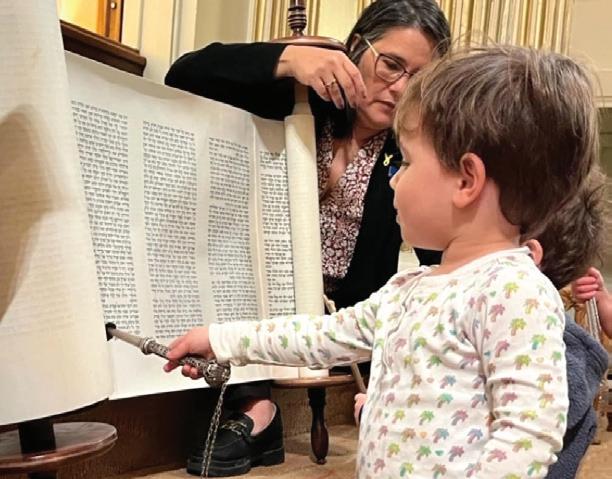
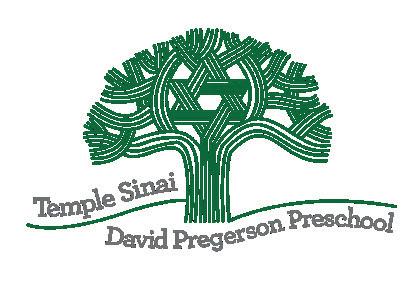
— was held April 18 at the JCCSF. Danielle Ofek, the 2024 Changing Lives honoree, created a grassroots global petition to end the United Nations’ silence on sexual violence against Israeli women and girls on October 7th. Jewish spiritual leader Sabrina Sojourner was the keynote speaker.
PALO ALTO (650) 223-8700 paloaltojcc.org
More than 850 guests attended “The Annual: Going Global 2024,” held March 16 at the Oshman Family JCC in honor of “the diverse cultures that drive the beauty, richness and vitality of our community.” Each year, the event celebrates the OFJCC “as a touchstone for so many lives,” and “the evening reverberates with a sense of homecoming, renewal, gratitude and welcome.”
SAN FRANCISCO
San Francisco Playhouse (415) 677-9596 sfplayhouse.org/sfph
The Playhouse stages plays and musicals every year, including world premieres, Broadway and Off-Broadway hits and works from playwrights around the world. Founded in 2003, the company describes itself as “The Empathy Gym,” a place where “we come to practice our powers of compassion… to make our community a better place, one play at a time.”
TheatreWorks Silicon Valley
PALO ALTO (877) 662-8978 • theatreworks.org
TheatreWorks has grown from a Silicon Valley start-up to become “the peninsula’s leading professional nonprofit theater company.” Now in its 54th season, the company produces “treasured” shows as well as premieres, and “exemplifies our region’s values of inclusion and innovation while providing a sense of place and community.”
Marin Theatre Company
MILL VALLEY
(415) 388-5200 • marintheatre.org
As “the leading professional theater in the North Bay and premier mid-sized theater in the Bay Area,” Marin Theatre focuses on “innovative theatrical experiences” and is committed to the development of new plays through “the productions of world premieres, readings and workshops by the nation’s diverse emerging and established playwrights.”
Berkeley Repertory Theatre
BERKELEY
(510) 647-2949 • berkeleyrep.org
Since 1968, Berkeley Repertory Theatre has grown “from a storefront stage to an international leader in innovative theater, showcasing emerging and established artists.” Over six million people have attended more than 500 shows at the theater, and some of those shows have gone on to win top theater awards in New York, plus a Grammy and a Pulitzer Prize.
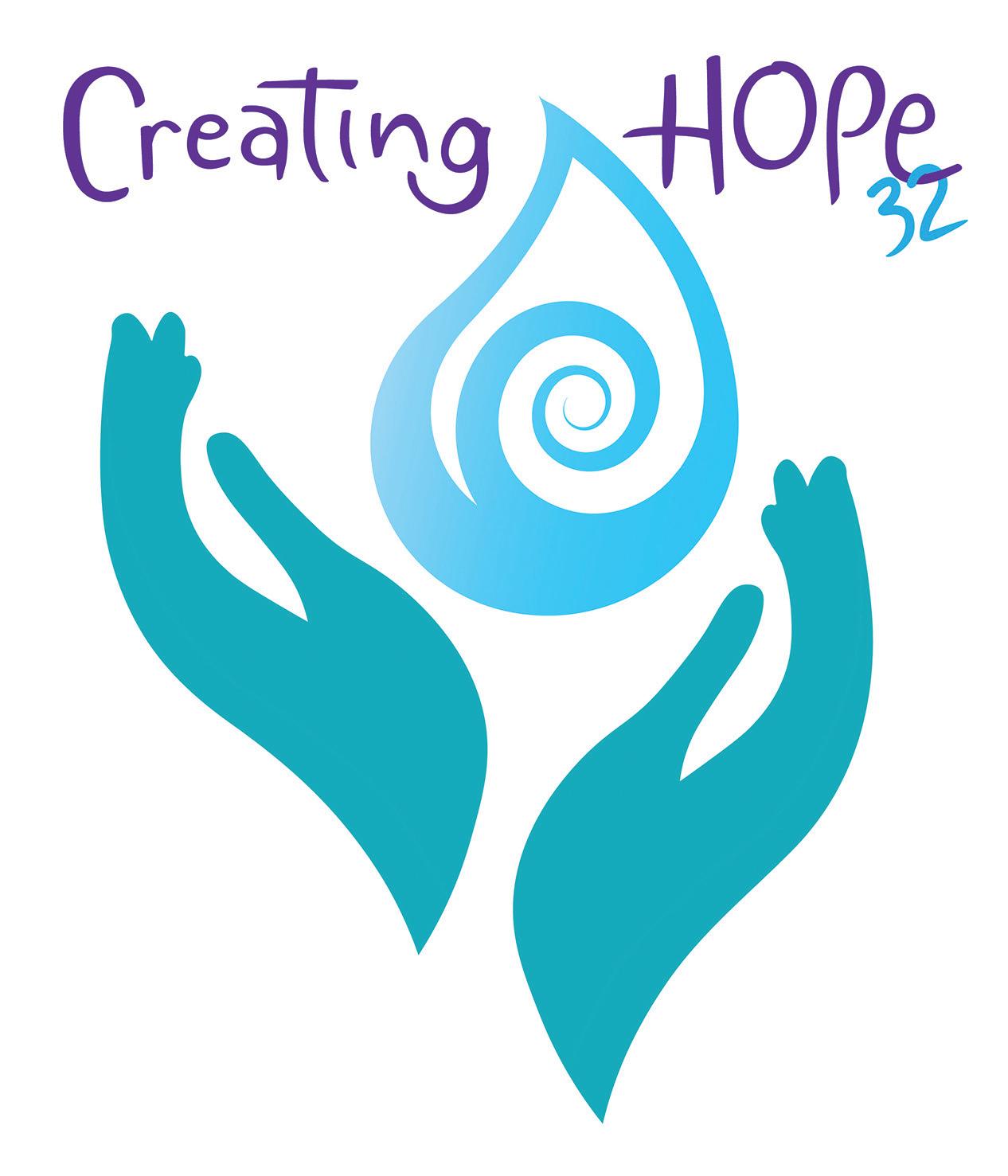
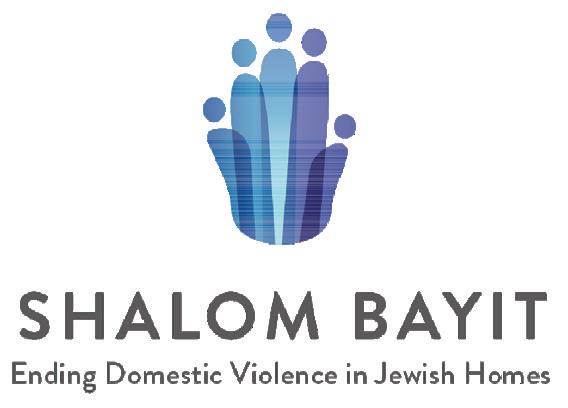
SAN FRANCISCO
Contemporary Jewish Museum (415) 655-780
thecjm.org
The CJM, a non-collecting institution, partners with national and international cultural institutions to present exhibitions that are “both timely and relevant and represent the highest level of artistic achievement and scholarship.” Founded in 1984, the museum is “a welcoming place where visitors can connect with one another through shared experiences with the arts.”
(415) 750-3600
deyoung.famsf.org
Part of the Fine Arts Museums of San Francisco, the de Young (along with the Legion of Honor) make up the city’s largest public arts institution. Located in Golden Gate Park, the de Young houses American art from the 17th century through the present, textile arts and costumes, African art, Oceanic art, arts of the Americas and international contemporary art.

STANFORD (650) 723-4177
museum.stanford.edu
Exhibitions, curator talks and music concerts all are offered at this historic museum, which houses more than 38,000 works of art that span 5,000 years from around the globe. (Don’t miss the Rodin sculptures.) Founded when Stanford University opened in 1891, today the Cantor is said to be one of the most visited university art museums in the country.
SAUSALITO (415) 339-3900
bayareadiscoverymuseum.org
The museum’s mission is to ensure “that all children across the Bay Area, regardless of their background, have access to the power of play-based learning” through school and community programs and workshops. Creative outdoor and indoor family activities are available every day. All adults must be accompanied by a child.

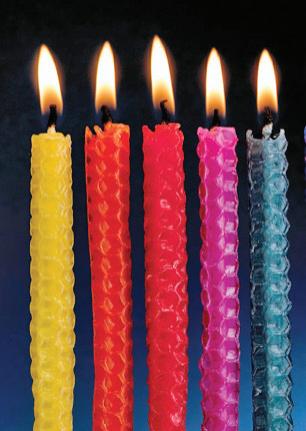



BERKELEY (510) 643-2526
magnes.berkeley.edu
This museum and research center at the University of California, Berkeley, is considered one of the world’s preeminent Jewish museums. “The Magnes connects people of all backgrounds with the history, vibrancy and diversity of Jewish life around the world through its collections-based exhibitions and programs.” The collections include paintings, works on paper and objects.
(510) 318-8400
museumca.org
Home to more than 1.9 million objects displayed in 110,000 square feet of gallery space, OMCA is “an institution that centers on community engagement, field innovation, and a commitment to inclusivity and diversity.” Mazel tov to Lori Fogarty, OMCA’s executive director and CEO, who received the 2024 CAMMY Award from the California Association of Museums.
SAN FRANCISCO/NORTH BAY
Caldwell Snyder Gallery (415) 392-2299 (SAN FRANCISCO) (707) 200-5050 (ST. HELENA) caldwellsnyder.com
Specializing in diverse genres of contemporary fine art, Caldwell Snyder is a gallery with international reach, representing “some of the most talented contemporary artists from the United States, Europe, United Kingdom, Canada, Mexico and Brazil.” Established in 1983 in San Francisco, Caldwell Snyder now has locations in Union Square, St. Helena and Montecito.
Judaica
SAN FRANCISCO
Dayenu
JCC OF SAN FRANCISCO (415) 563-6563 • dayenu.com
Dayenu’s shelves and displays hold ritual items, locally crafted items, fair trade items, handmade items, candles, heirloom pieces, talismans and gag gifts. “In this pivotal moment in the evolution of the earth, giving is more crucial than ever,” note the

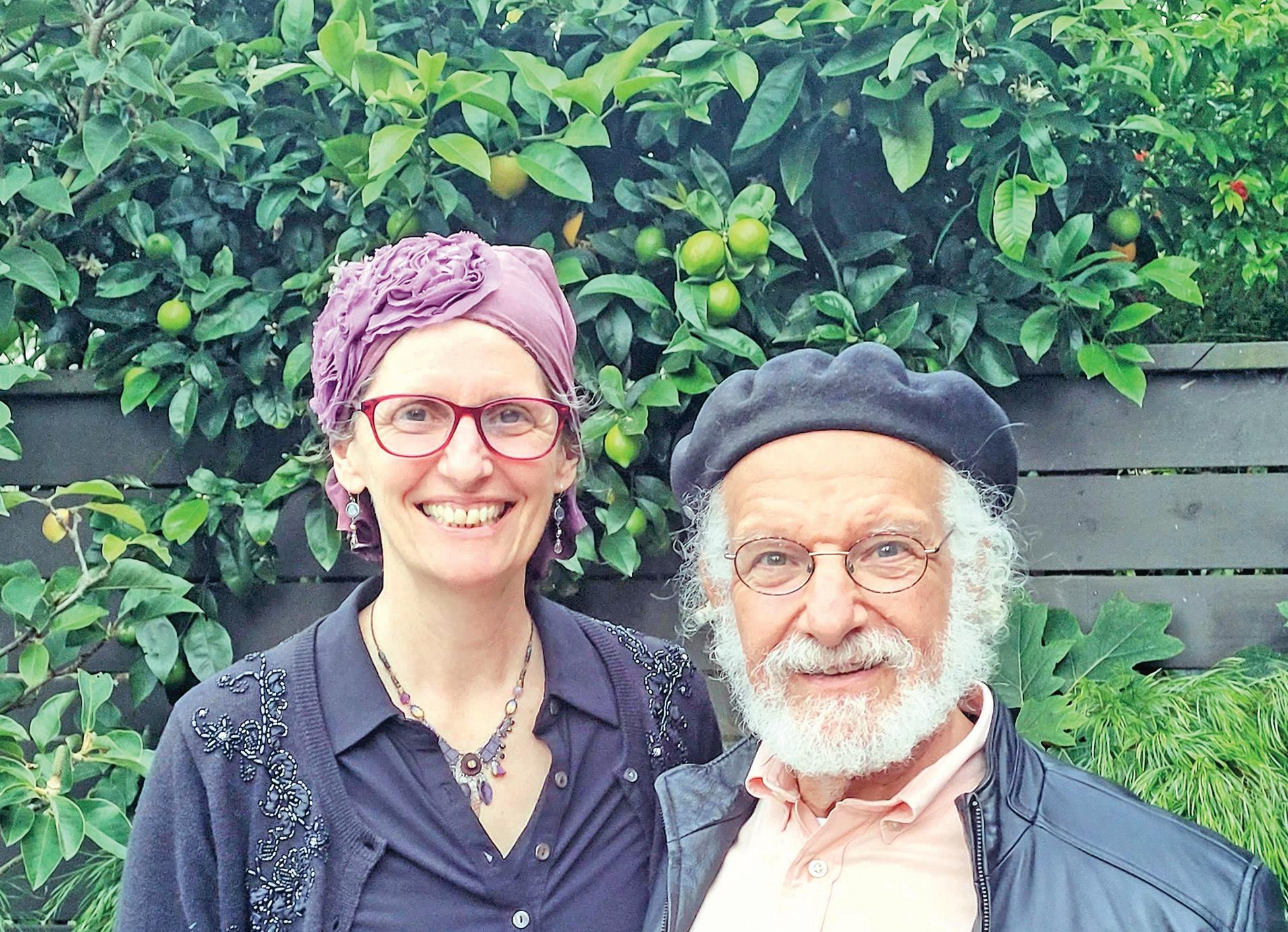
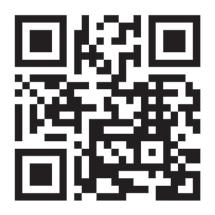
operators. The shop, in the lobby of the JCCSF, helps support a local family and the local economy.
Ankor at OFJCC
PALO ALTO (650) 643-9873
instagram.com/ankor_shop
A new Readers’ Choice winner this year, Ankor is located at the Oshman Family JCC. The shop, which opened in June, features products handcrafted by Israeli artists and imported from Israel. Nily Shamgar Pessach, the store’s owner, notes that the varied merchandise all is meant “to appeal to anyone who appreciates modern design, fashion and home décor.”
SAN RAFAEL (415) 444-8098 • wrs-giftshop.square.site
Located in the Osher Marin JCC’s lobby, the shop features made-in-Israel merchandise and fair trade Judaica. Expect jewelry, gifts for children, ritual objects, candles and holiday items, plus a wide selection of Kiddush cups and woven and embroidered tallitot. Purchases help fund the Women of Rodef Sholom’s programs and benefit the congregational community.
EAST BAY
Afikomen Judaica
BERKELEY (510) 655-1977
afikomen.com
This family-owned shop welcomes customers “wherever you are on your Jewish journey.” Expect Judaica for Shabbat, Hanukkah, Passover and other holidays as well as general gift items for the home or for simcha events. Jewish books and wearables are here, plus the shop stocks a complete line of wedding supplies and rents chuppahs.
SAN FRANCISCO
Ben Shemano Jewelry (415) 362-7777 • benshemano.com
Located just off Union Square, Ben Shemano Jewelry specializes in estate and custom jewelry, buying and selling fine watches, diamonds, precious stones and metals. A family-run business, Ben and Kira Shemano own the shop, which also arranges for the design and creation of custom pieces. They also can evaluate or repurpose inherited jewelry.
SOUTH BAY/PENINSULA
Gleim the Jeweler
(650) 325-3533 (PALO ALTO)
(650) 949-1122 (LOS ALTOS)
gleimjewelers.com
Since its founding in 1931, Gleim the Jeweler — a new Readers’ Choice winner this year — has been committed to “our craft and our industry.” Described as “the premier family-owned jewelry store in the Peninsula,” expect “extensive collections of precious gems, unique estate jewelry, timepieces, high jewelry lines and bespoke pieces.”
SAN RAFAEL (415) 444-8098
wrs-giftshop.square.site/shop/jewelry/5 Chai necklaces in many variations, including opal, silver or turquoise. Colorful cotton bracelets. Star of David necklaces. Hamsa pendants, each decorated differently. Mezuzah necklaces with intricate designs. Beautiful earrings. All these — and even more — are available at the Rodef Sholom gift shop, located in the lobby of the Osher Marin JCC.
EAST
OAKLAND (510) 547-7000 • pavefinejewelry.com
New to Readers’ Choice Awards this year, Pavé Fine Jewelry is a branch of a small eco-friendly jewelry chain that offers custom designs and conflict-free diamonds. Owner Michael Endlich’s craftsmanship “combines skill, love and the essence of California” to create timeless pieces of jewelry that “tell stories and capture hearts.”
SAN FRANCISCO
On the Run
(415) 682-2042 • ontherunshoes.com
Well-made comfort shoes and supportive athletic shoes are available here. On the Run orthotics are engineered and manufactured in Europe, where walking is a major part of everyday life. The goal of shoe specialists at On The Run, trained in the biomechanics of the foot and ankle, is “to provide every customer with the best possible service.”
BAY/PENINSULA
VARIOUS LOCATIONS (800) 720-0572
footwearetc.com
With six stores in the South Bay/Peninsula, Footwear etc. — a family-run company — invites shoppers to choose from dozens of brands in styles that range from athletic shoes to dress shoes to sandals, all from the industry’s most trusted brands. Selections for women, men and children are available, as are accessories and some clothing.
Lark
VARIOUS LOCATIONS larkshoes.com
A family-owned fixture in Marin since 1979, Lark Shoes now offers high-quality everyday shoes at locations in San Anselmo, Larkspur Landing, San Rafael and Napa. A new Readers’ Choice winner this year, Lark Shoes “makes sure that your feet are our top and first priority when you walk through our doors.” Industry-specific shoes are available for workers on their feet all day.
NOVATO (415) 892-3732
marashoesandfashion.com
Mara Shoes and Fashion, a new Readers’ Choice winner this year, offers “styles that speak to the many facets of female expression and her individual identity, encouraging her to be in touch with her inner beauty.”
Founded in 1996, the shop has been “a fashion oasis for every aspect of a woman’s life” and offers private fashion consultations with owner Roya Tabrizi.
Sole Terra
(510) 525-3832 (BERKELEY) (510) 823-2290 (OAKLAND) soleterrashoes.com
Previously known as Shoes on Solano, only the name has changed at this shop, which has been in business since 1988 and specializes in “Fashion Comfort footwear.” Their philosophy remains to “serve our communities with outstanding fashion, without compromising comfort.” Expect hand-picked selections of footwear and accessories for women and children.
BAY AREA
Books Inc.
VARIOUS LOCATIONS
booksinc.net
The oldest independent bookseller in the West, Books Inc. has 11 locations throughout the Bay Area, each independently owned and operated. The company employs over 100 knowledgeable booksellers “who are passionate about helping everyone find their perfect book, and dedicated to enriching the literary scene in their neighborhoods.”
Green
(415) 387-2272 (RICHMOND) (415) 742-5833 (SUNSET) (415) 567-8027 (FILLMORE) greenapplebooks.com
Green Apple Books sells new and used books, and the Clement Street location buys used books. Community involvement is part of the store’s philosophy: “We helped found the San Francisco Locally Owned Merchants Association and we served on the boards of the Northern California Independent Booksellers Association and the Clement Street Merchants Association.”
(415) 564-8080
bookshopwestportal.com
A community meeting place since 2006, Bookshop West Portal — a new Readers’ Choice winner this year — is a locally-owned, independent store in the heart of the West Portal neighborhood. “We are a group of booksellers with an enthusiasm for books and serving our community.” Part of the West Portal Merchants Association, the shop often holds community events.



MENLO PARK (650) 324-4321 • keplers.com
Founded in May 1955 by peace activist Roy Kepler, the shop describes itself as “the intellectual and cultural hub of the community for over 69 years.” Known for its “outstanding literary events, knowledgeable staff, its broad selection of books and magazines and for its deep ties to the community,” Kepler’s also operates a nonprofit literary foundation.
CORTE MADERA
(415) 927-0960 • bookpassage.com
Known for classes, conferences, children’s events, writers’ organizations, book groups and other activities, Book Passage bills itself as “The Bay Area’s Liveliest Bookstore.” The store was founded by a former teacher and school principal more than 45 years ago and author events started “well over 30 years ago.” Read about some of those memorable events on the website.
VARIOUS LOCATIONS copperfieldsbooks.com

With headquarters in Sebastopol, Copperfield’s Books — a new Readers’ Choice winner this year — operates nine stores in Sonoma, Napa and Marin counties, with locations in Sebastopol, Santa Rosa, Healdsburg, Petaluma, Napa, Calistoga, Novato, San Rafael and Larkspur. “Our booksellers are readers who are ready to talk books and help you find what you are looking for.”
(510) 525-6888 (ON SOLANO) (510) 649-1320 (DOWNTOWN BERKELEY) (510) 652-6259 (OAKLAND) pegasusbookstore.com
Boasting “three great bookstores in three great neighborhoods,” Pegasus Books offers a mix of new, used and remaindered books and is “renowned in the Bay Area for our selection of beautiful, funny and artisan greeting cards.” Pegasus Books started in 1970 as Pellucidar Fine Books and Pendragon, both carrying used books and newspapers.
OAKLAND (510) 339-8210
ggpbooks.com
A Great Good Place for Books, a new Readers’ Choice winner this year, is a cozy, full-service bookstore in the Montclair Village neighborhood. The shop is known for hosting book promotion events with emerging and well-established writers and specializes in “personalized recommendations and literary fiction for all ages.”
SAN FRANCISCO
Ambiance (415) 923-9796
ambiancesf.com
Clothing in a full range of prices, accessories, jewelry and gift items all are available at this San Francisco Legacy Business — so named by the city’s Office of Small Business in recognition of the shop as “a valuable cultural asset.” Founded in 1996, Ambiance is known for “our amazing selection…and our incomparable customer service!”
BURLINGAME (650) 340-0301
morninggloryboutique.com
Founded in 1972 by two sisters, Morning Glory is a new Readers’ Choice winner this year. A boutique with elegant furnishings that specializes in “fashion-forward, eclectic women’s clothing and accessories,” this shop carries “truly something for every occasion,” including “vintage-inspired contemporary clothing” for all occasions, including “from yoga to black tie.”
NORTH BAY
Shunzi
SAN RAFAEL (415) 455-908 • shunzi.net
“The perfect combination of forward-thinking and understated, Shunzi boutique is a place where you’ll always find something new to love for years to come.” Founded in 2002 by Che Shunzi, a former pharmacologist, the shop draws from many designers around the world and is “a community where women meet and connect for much more than fashion and style.”
OAKLAND (510) 654-5144 • infullswing.com
In Full Swing “is filled with spirited, unique clothing with attitude and flattering fit — fun, casual, and updated pieces” in sizes 14 to 24 and some supersizes from “familiar brands as well as selections from smaller, independent designers with cutting-edge sensibilities.” Expect accessories, lingerie, swimwear (year-round) and jewelry as well.
BAY AREA
(650) 800-7840 (PALO ALTO) (831) 583-1011 (SAND CITY) (831) 250-7435 (CARMEL) carmelimports.com
Carmel Stone Imports is a major West Coast importer, wholesaler and retailer of engineered and natural stone, with competitive prices. Expect tile in a variety of sizes, patterns, mosaics, slabs and trim moldings, which are imported from Jerusalem, Bethlehem, Italy, Argentina and elsewhere. Showrooms are in Palo Alto, Sand City and Carmel.
OAKLAND (510) 547-828
arttileoakland.com
A new Readers’ Choice winner this year, Art Tile specializes in high-end and hard-to-find products for kitchens, bathrooms and floors, and offers same-day delivery. “Having served the Bay Area for over 30 years, we feel privileged to be part of the local community…and we strive to be the one-stop solution for all your tile and stone needs.”
SAN FRANCISCO
Rhoda Goldman Plaza (415) 345-5060 • rgplaza.org
Rhoda Goldman Plaza Assisted Living and
Memory Care is a “boutique community” known for a high staff-to-resident ratio. Light-filled apartments include a kitchenette and “nicely sized closets,” and weekly housekeeping service is available. Activities include lectures, exercise and fitness classes, music performances, clubs, games, dancing and book clubs.
(415) 334-2500 • sfcjl.org
Founded as the Jewish Home in 1871, SFCJL serves more than 2,500 people each year, providing a continuum of comprehensive care and social services to support aging well. This regional resource honors Jewish traditions while embracing innovation in an effort to enhance the quality of life for older adults of all faiths and backgrounds.
DANVILLE (925) 648-2800 • rcjl.org
The Reutlinger Community offers enhanced assisted-living services, memory care, short- and long-term rehabilitation services and skilled nursing services. Welcoming all seniors while upholding Jewish traditions and values, the Reutlinger provides “high-quality health care at multiple levels and support services in a life-enhancing and stimulating environment.”
BAY/PENINSULA
PALO ALTO
(650) 433-3600 • moldaw.org
Known for luxurious retirement living, Moldaw Residences is located on the 8.5-acre Taube-Koret Campus for Jewish Life. Residents have access to a community center, world-class performing arts hall, sports and wellness complex, and an early childhood education center that allows for “crossing boundaries between generations, cultures and religions.”
SOUTH BAY/PENINSULA Peninsula Del Rey
DALY CITY
(650) 741-1537
srgseniorliving.com/ daly-city-ca-peninsula-del-rey
Surrounded by “impressive lifestyle destinations,” Peninsula Del Rey offers seniors “resort-style living, impressive amenities, gourmet cuisine and a healthful, adventurous to-do list.” Independent living and assisted living options with integrated health care options are available, with easy access to entertainment, shopping and dining.
Windsong of Sonoma
PETALUMA (707) 776-2885
windsongofsonomaseniorliving.com
A new Readers’ Choice winner this year, Windsong of Sonoma Senior Living offers “a catered, senior living lifestyle.” Options include “the Vibrant Life® program, Elevate® dining, Generations Memory Care and a variety of assisted living and respite care services for our residents” that are designed to provide a lifestyle “that enhances your life as you age.”
Lake
OAKLAND (510) 835-5511
lakeparkseniorliving.com
Life at Lake Park Senior Living combines “all the best lifestyle features…with a serene and inspiring indoor setting” that overlooks Lake Merritt. “Our senior living community is the perfect place for an active, urban life.” Individuals 55 and older in independent living choose from spacious apartments and an entire floor is dedicated to residents in assisted living.
OAKLAND (510) 597-6700
humangood.org/piedmont-gardens
A new Readers’ Choice winner this year, Piedmont Gardens is “a warm, welcoming and established nonprofit Life Plan Community” from HumanGood ((CQ)) where residents are “united in their desire to live lives rich in friendship, learning and purpose.” Options include independent living, assisted living, skilled nursing, memory support and short-stay rehabilitation.
BAY AREA
JFCS Seniors At Home (415) 449-3700
seniorsathome.org
This award-winning program offers home care, care management teams to work with medical professionals and navigate the health care system, and supportive care for families. Each year, this San Francisco-based program serves 17,000 seniors of all faiths in their homes in San Francisco, San Mateo, Santa Clara, Marin and Sonoma counties.
(415) 750-4111
ioaging.org
A new Readers’ Choice winner this year, IOA works with clients in San Francisco, Marin, San Mateo and Santa Clara counties and on the Peninsula, offering “a broad spectrum of services and support to help seniors maintain their independence as long as it is safe to do so.” In addition to providing in-home care and case management, IOA operates adult day care centers.
SAN FRANCISCO
Aviva In-Home Care (415) 463-1400
avivainhomecare.com
Aviva’s care staff helps seniors with daily activities and “supports the unique care needs of people living at home with chronic disease, those trying to manage the challenges of physical decline, or those needing temporary post-surgery help.” Trained as companions and in personal care, staff members also are skilled in fall and injury prevention and in dementia care.




Feeling strong, passionate, and purposeful is easier to achieve in a stimulating & supportive setting. That’s where Peninsula Del Rey shines— where premium amenities, gourmet dining, and innovative programs create an environment for abundant & immersive experiences. Book a tour and take it all in.
SATURDAY, DEC. 14 th 11:00AM–2:00PM
Join us in celebrating holidays from around the globe– Kwanzaa, Las Posadas, Christmas, and Hanukkah! Enjoy hors d’oeuvres and beverages inspired by each holiday as you take in the festive tunes of a live band. Call 650.468.2735 to RSVP.




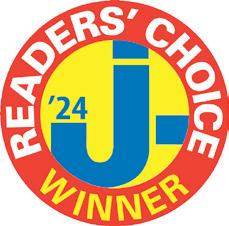
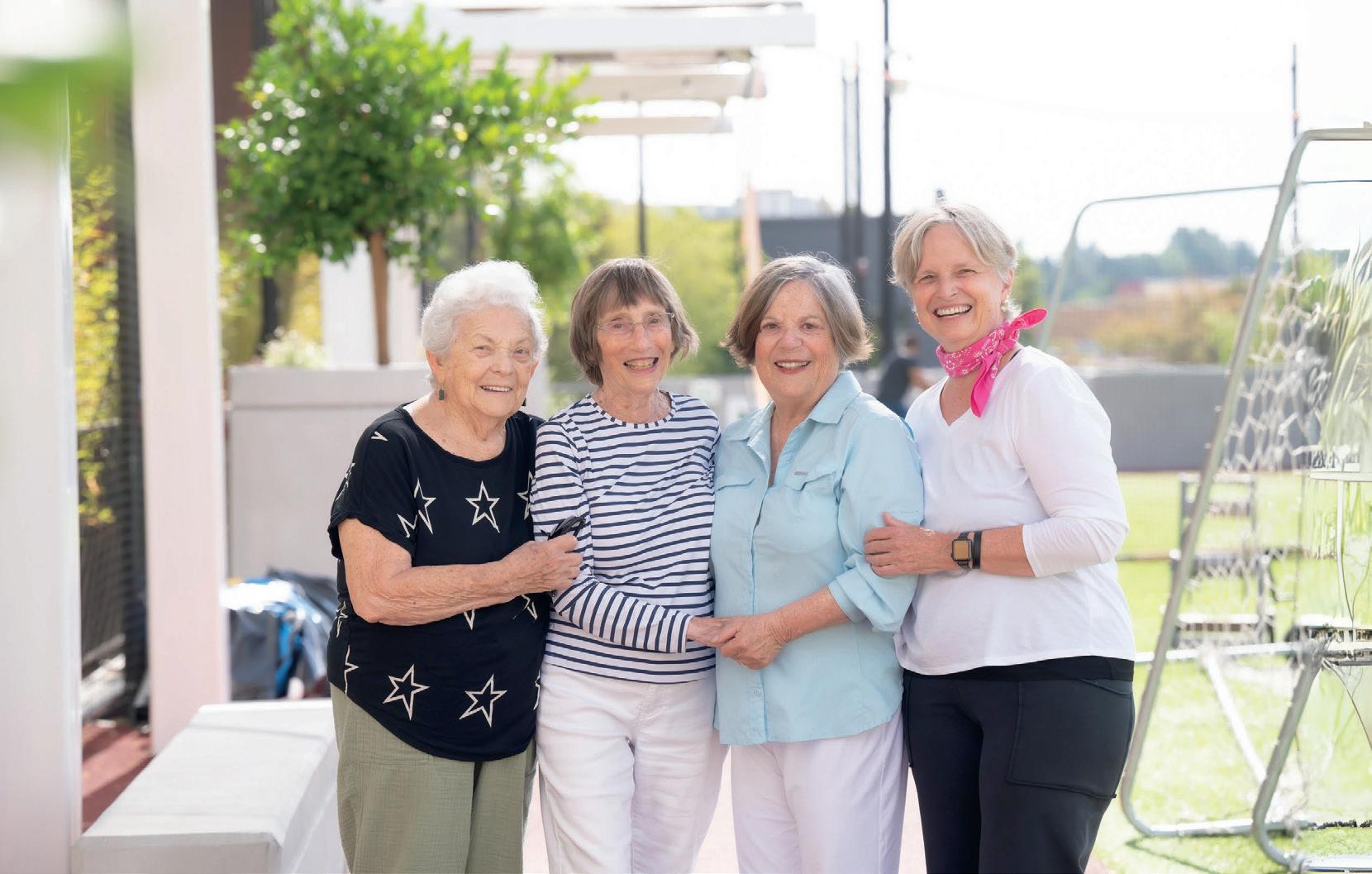
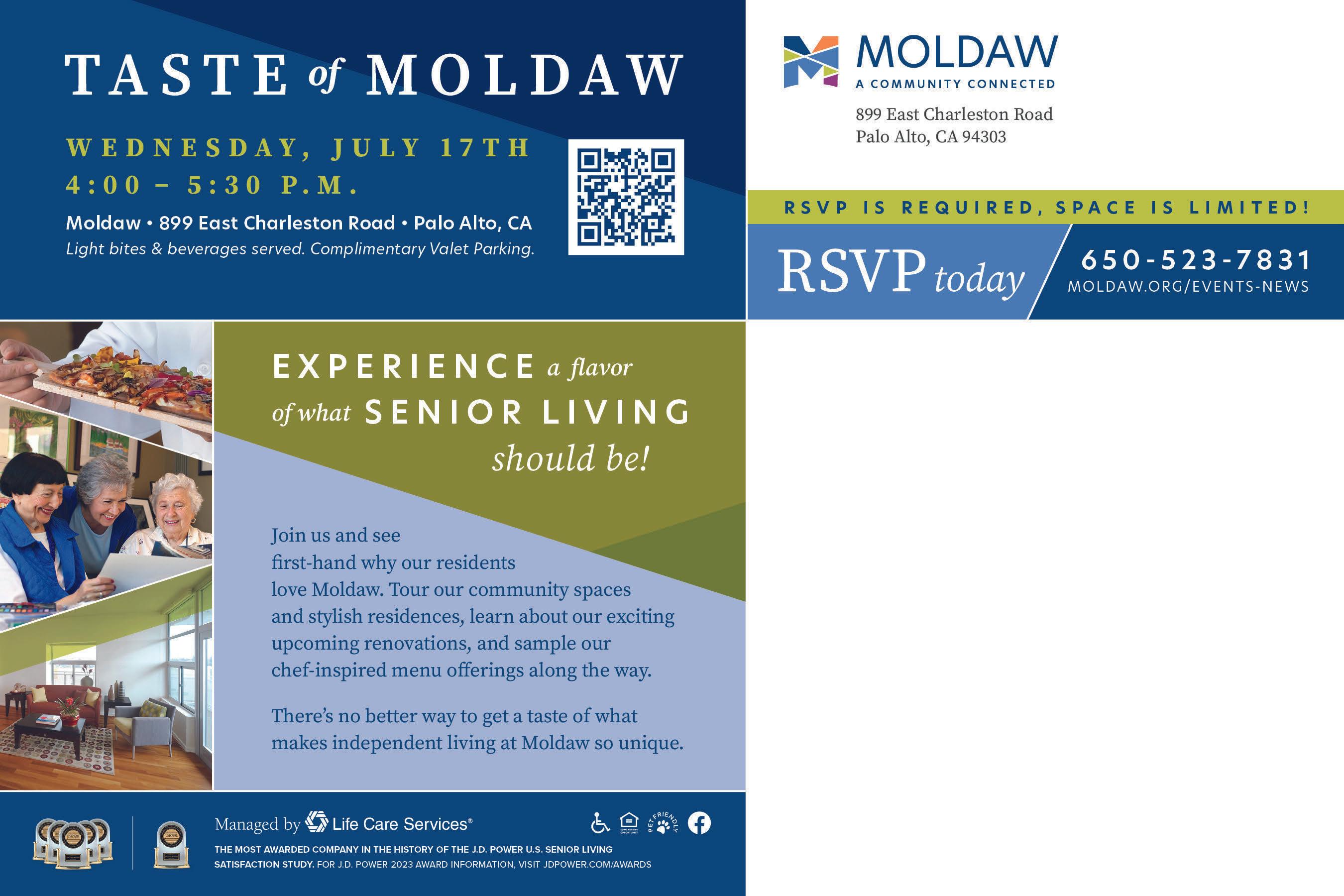

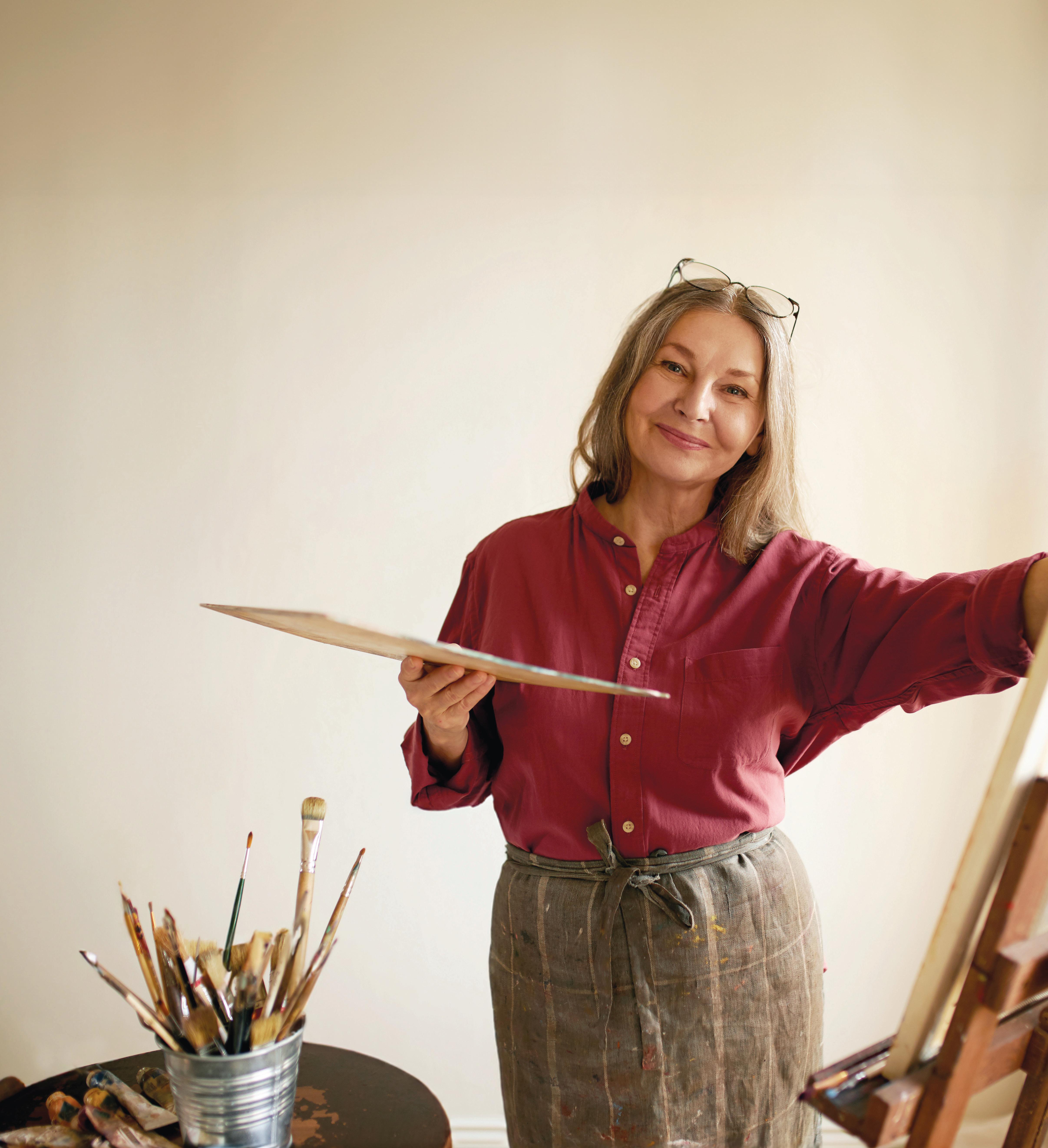
OAKLAND (510) 953-5112
homewatchcaregivers.com/oakland
Serving seniors at home in Oakland, Piedmont, Berkeley, Emeryville and surrounding areas, Homewatch Caregivers delivers tailored care. “Our trained in-home caregivers assist seniors and others with day-to-day tasks, build strong bonds, and make sure friends and family are aware of changing conditions — and the bright spots of each day.”
OAKLAND (510) 424-9722
montclairelderservices.com
A premium care management service for older adults in the East Bay, Montclair Elder Services — a new Readers’ Choice winner this year — offers a full range of care that is customizable and varies from client to client. “We work with families, guardians and care facilities. Let Montclair Elder Services be your trusted proxy, helping your parents age independently.”
SAN FRANCISCO
Congregation Beth Sholom (415) 221-8736 • bethsholomsf.org
Beth Sholom offers several options for rental spaces for public and private parties, including the sanctuary, Koret Hall, Gronowski Chapel, the Rainbow Courtyard, Makom Shalom, Eva Gunther Plaza and a meeting room — all “functional spaces designed specifically for our needs as well as those of the greater community.”
San Francisco
Design Center Galleria
(415) 490-5861 • sfvenues.com
A new Readers’ Choice winner this year, the San Francisco Design Center Galleria offers several rental options for weekend rentals. “From corporate events and fashion shows to elegant social gatherings and weddings… our attentive, professional staff will guide you through every step of the planning process with ease.”
City Club (415) 854-7241 • cityclubsf.com
The City Club of San Francisco offers 10 event rooms on four floors “with awe-inspiring architectural details and original artwork.” Located in the Stock Exchange Tower Associates building, each room available for rental features natural light and extraordinary city views, and décor that reflects the building’s storied history.
PALO ALTO (650) 223-8612 • paloaltojcc.org/rentals
The Oshman Family JCC can accommodate large and small ceremonies, wedding receptions, bar/bat mitzvahs, private parties, concerts, cultural events, conferences, and trade shows. With 20,000 square feet of event space, flexible options are available for “weddings, efficient corporate events or a homey gathering place for a casual meet-and-greet.”
OAKLAND (510) 560-2525 • sequoyahcc.com
Joel Nelson Productions provides clients with “the finest live music, disc jockeys and MCs, specialty entertainers and team-building facilitation at the most competitive prices.” Considered a leader in the Bay Area event entertainment industry since 1981, the staff “combines more than 150 years of experience in the entertainment business to deliver total satisfaction.”
SAN FRANCISCO (925) 200-7391
gatsbyeventstudios.com
Gatsby Event Studios offers “an elevated level of production- focused events with all the great entertainment services you know and love.” Expect state-of-the-art custom lighting design, audio/visual and conference services at this “one-stop shop for complete event entertainment and technology all under one roof and packaged at a price you cannot find anywhere else.”
BAY AREA
Scott Lasky Photography
SAN JOSE (408) 807-4770 • laskyphoto.com
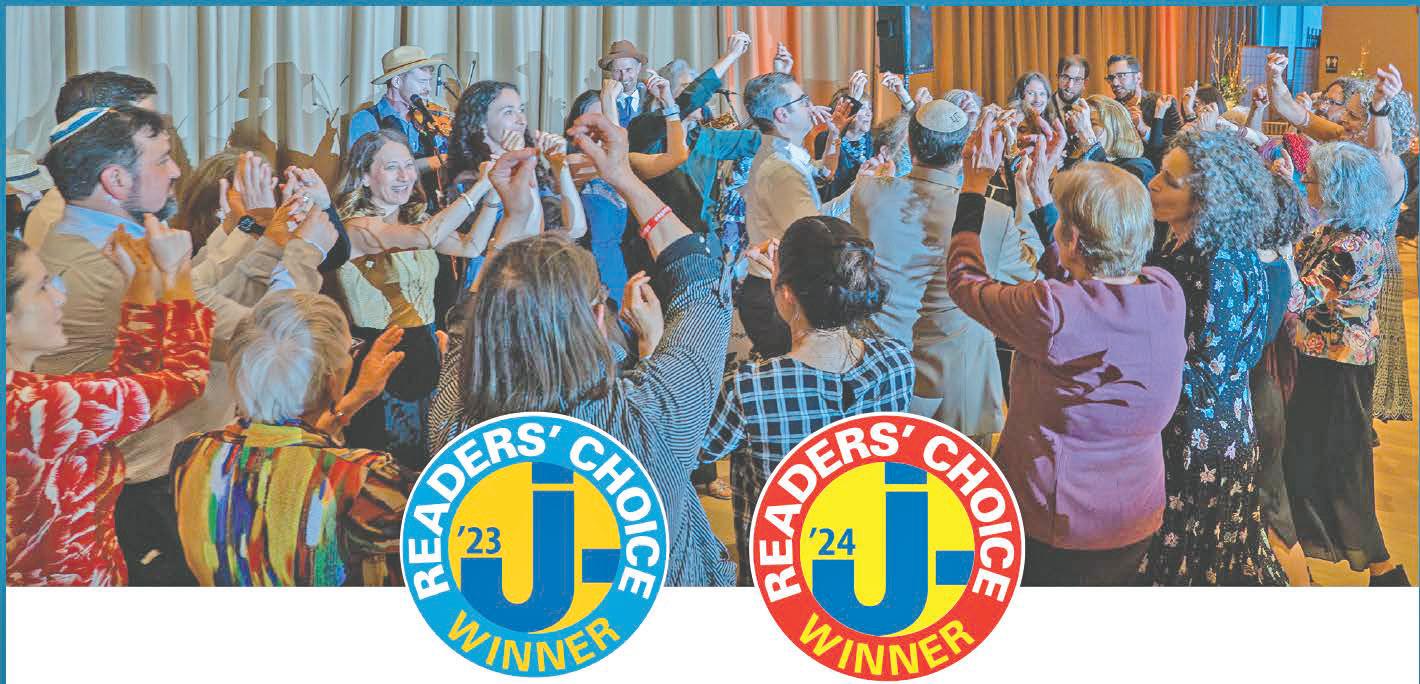
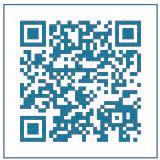

A new Readers’ Choice winner this year, Sequoyah Country Club is “the perfect venue to bring your dream day to life.” The catering staff can help with indoor or outdoor weddings “whether you envision a small, intimate gathering or an extravagant event.” The clubhouse has high-beam ceilings and Spanish-style antique charm and the golf course offers beautiful East Bay views.
BAY AREA
Joel Nelson Productions SAN FRANCISCO AND SAN JOSE (800) 578-5780 • joelnelson.com
A member of the Professional Photographers of America (PPA), Scott Lasky has photographed more than 500 weddings and 1,200-plus bar/bat mitzvahs in San Francisco, San Jose, Palo Alto and throughout the Bay Area. “Whether at a simcha or corporate event, Scott brings the same level of enthusiasm and creativity to his work.”
SAN RAFAEL (415) 250-3189 naturalportraitsandevents.com
Norm Levin‘s award-winning San Francisco
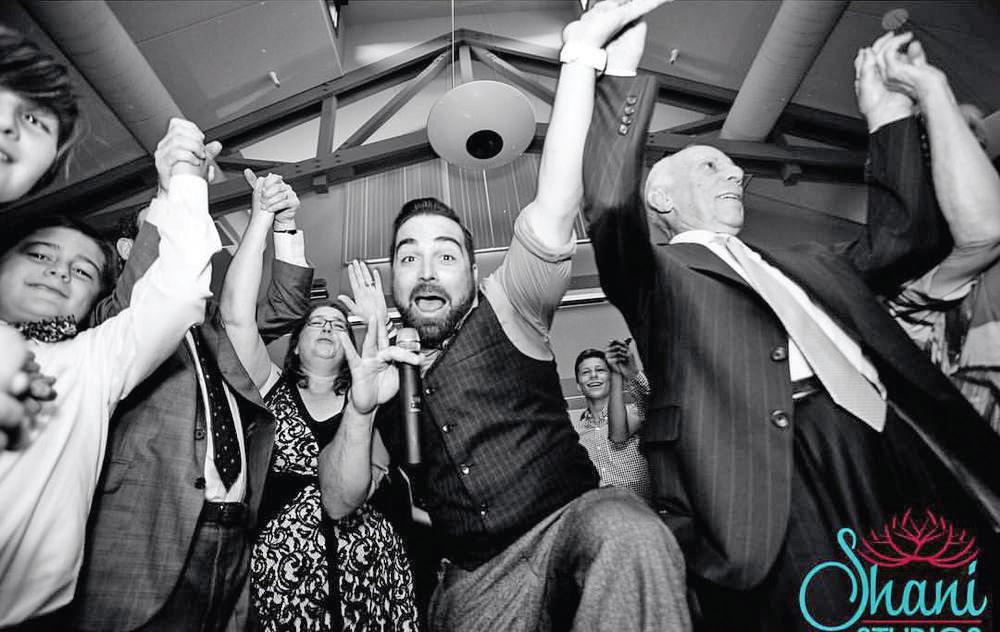

Bay Area photography service — a new Readers’ Choice winner this year — provides “artistic and emotion-filled photographs of events, including weddings, bar and bat mitzvahs, anniversaries, family reunions, birthdays and other major lifecycle celebrations.” Services also include business and corporate events.
SANTA ROSA
(510) 917-0659 • shoeysindel.com
A new Readers’ Choice winner this year, Shoey Sindel specializes in portraits, special events and corporate photography. “Working with me is different. So are your results,” she says. “My focus is to help people become visible to themselves and others with artistic and natural photographs that capture their essence for generations to come.”
BAY AREA
Ta’yeem Kosher Catering
RICHMOND (415) 376-1400 • tayeem.com
Ta’yeem — a new Readers’ Choice winner this year — is a dedicated kosher catering business “that brings home-grown farm-totable food to your special events.” Chefs craft authentic dishes that are “full of flavor, and our commitment to kashrut (Jewish dietary laws) ensures that all of our ingredients are of the highest quality.”
BAY AREA
Ann’s Catering
BERKELEY (510) 649-0869 • anns-catering.com
A new Readers’ Choice winner this year, Ann’s Catering has teamed up with Rick & Ann’s
Restaurant to offer a variety of menus for your event needs. Customers can expect food prepared to order and intended to be served at room temperature or slightly chilled, as “our philosophy of fresh, healthy food is antithetical to heat-maintained foods.”
RICHMOND
(415) 376-1400 • aniviv.com
Anaviv promises to “craft each bespoke menu for your special occasion with the utmost care and attention, and always with the best of seasonal ingredients,” primarily sourced in California. Catering is available for weddings, holiday parties and corporate events. “You can trust in our decades of experience that your guests will have an unforgettable time full of special moments.”
SAN FRANCISCO bloomers
(415) 563-3266 • bloomerssf.com
A full-service florist that features “artistic arrangements crafted with fresh flowers of exceptional quality.” The experienced designers choose from local seasonal blooms as well as premium imported flowers and materials “for distinctive custom designs.” Owner Patric Powell opened bloomers in 1977 and works there still.
SAN MATEO
(650) 341-5611 • ahsam.com
Ah Sam — a new Readers’ Choice winner this year — offers same-day delivery and customization on “a stunning selection of flowers, plants and gifts from the San Mateo storefront to anywhere in the San Francisco
Bay Area.” Now in its third generation of the Leong family, the shop specializes in “beautiful floral expressions to celebrate and inspire.”
EAST BAY
J Miller Flowers and Gifts
OAKLAND (510) 658-0613 • jmillerflowers.com
A full-service floral company located in Oakland for over 60 years, J Miller — a new Readers’ Choice winner this year — offers “distinctive flower arrangements, European bouquets, English garden baskets, exotic tropical displays and high-style arrangements for every occasion” throughout the Bay Area. The shop also carries chocolates, balloon bouquets and more.
VARIOUS LOCATIONS
boichikbagels.com
With eight shops scattered across the Bay Area, this year Boichik Bagels won the 2024 Readers’ Choice Award in all four regions. Look for three shops in San Francisco and one each in Palo Alto, Santa Clara, Los Gatos,
Larkspur and Berkeley, which is where the company’s factory is located. At the shops, expect spreads, salads and party platters as well as bagels.
SAN FRANCISCO
House of Bagels
(415) 752-6000 • houseofbagels.com
This San Francisco Legacy Business has been making classic New York-stye bagels since 1962. The bagels are proofed overnight on wooden boards, boiled in water and then baked on stone. Also available are artisan breads, croissants, cragels, challah, hamantaschen, black and white cookies, rugelach, Russian tea cakes and other pastries.
Izzy’s Brooklyn Bagels
PALO ALTO
(650) 329-0700
izzysbrooklynbagels.com
Supervised by the Vaad Hakashrus of Northern California, Izzy’s offers more than 30 varieties of bagels, from the traditional to “the most complex” and all boasting “authentic Brooklyn flavor.” Founded in 1996, this kosher eatery also sells wild lox, shmears, salads and cookies and is open for breakfast and lunch. Catering also is available.


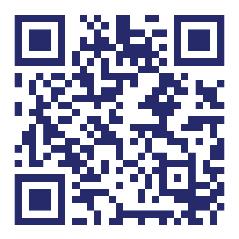
SAN FRANCISCO
Wise Sons
Jewish Delicatessen (415) 787-3354
wisesonsdeli.com
Almost everything is made in house, “using the best ingredients we can source.” Pastrami and corned beef is made with beef brisket “that is NEVER EVER administered hormones or antibiotics,” brined in a blend of spices. All baked goods, such as babka and rugelach, are made at an offsite bakery and the bagels are “boiled in malt-inflected water before being baked.”
Hummus Bodega
(415) 463-6622 • hummusbodega.com
Billed as “the best Mediterranean kosher food in San Francisco,” Hummus Bodega — a new Readers’ Choice winner this year — offers a fully kosher menu and a variety of vegan and gluten-free options, “where every bite bursts with authenticity and flavor.” Expect creamy hummus plus falafel and shawarma crafted from recipes passed down through generations.
SOUTH BAY/PENINSULA
Oren’s Hummus
PALO ALTO
(650) 752-6492 • orenshummus.com
In addition to six dine-in and takeout locations in Palo Alto, San Francisco, Mountain View, Los Gatos and Cupertino, Oren’s also can be found at three Bay Area farmers’ markets. Oren Dobronsky first brought hummus with fresh pita and Mediterranean salads to Palo Alto in 2011. “We believe in honest food, ethical relationships, and a healthy planet.”
NORTH BAY
Grossman’s Noshery &
SANTA ROSA (707) 595-7707
grossmanssr.com
Now open from 8 a.m. to 8 p.m. daily, Grossman’s Noshery & Bar — located at Hotel La Rose in Historic Railroad Square — offers indoor and patio dining. The menu features “eclectic breakfast dishes, noshes, sandwiches, soups, salads, platters for sharing, nightly specials, dumplings and desserts based on Jewish cuisine.” Baked goods, fish and meats are made in house.
LARKSPUR
(415) 526-3889
loveskideli.com
A new Readers’ Choice winner this year, Loveski is billed as a “Jew-ish deli born out of Northern California” that features handmade sourdough bagels, house-made pickles and other ferments, vegetables from the family farm and “the best cured and smoked meats.” The deli is “grounded in the dearly held traditions of appetizing stores and delicatessens.”
BERKELEY
(510) 848-3354 • saulsdeli.com
At Saul’s, being “an authentic, vibrant, relevant delicatessen today” means bridging the links between the “Old Country” and the “New World,” and the future of food. “It means providing a cultural and culinary home to those looking for familiar and traditional foods” and “connecting with our roots all along the timeline of Jewish food.”
OAKLAND (510) 250-9215 • pomellaoakland.com
A new Readers’ Choice winner this year, Pomella features modern California-Israeli food that is “always fresh, mindfully prepared, casually served and best when shared.” The food is “produce forward, made with all-organic produce, grains, legumes, nuts and seeds. “Our chicken is organic, the lamb is grass-fed, the salmon, and shrimp are sustainable-farmed.”
SAN FRANCISCO Boulevard (415) 543-6084
boulevardrestaurant.com
Featuring both a set-price menu and an a la carte menu, Boulevard — a new Readers’ Choice winner this year — is located in the historic Audiffred building on the Embarcadero waterfront. First opened by Chef Nancy Oakes in 1993, the restaurant’s menu is “quintessentially Californian,” incorporating regional, seasonal bounty.
SOUTH BAY/PENINSULA Evvia Estiatorio
PALO ALTO (650) 326-098
evvia.net
Served indoors and on an outdoor patio, standard Greek fare is “raised to new heights utilizing the wealth of fresh produce, meats and seafood in California,” resulting in Hellenic flavors married with a modern culinary sensibility.” Philoxenia — the art of making a stranger a friend — is the concept that drives Greek hospitality here.
NORTH BAY
Insalata’s Restaurant
SAN ANSELMO (415) 457-7700
insalatas.com
Since 1996, this award-winning, family-owned restaurant “has brought the warm spirit of the Mediterranean to Marin County.” With menus that “strike a balance between familiar flavors and enticing new fare,” Insalata’s strives to make everyone feel welcome at the table for special occasions and weeknight dinners as well.
MILL VALLEY (415) 331-2600
buckeyeroadhouse.com
“Where Old World charm meets contemporary American cuisine,” Buckeye Roadhouse is a new Readers’ Choice winner this year. Founded in 1937, Buckeye is known for “quintessential California fine dining,” featuring favorites such as Oysters Bingo, house-smoked barbecued baby-back ribs and the S’more Pie, billed as “Marin’s most-beloved dessert.”
EAST BAY
Millennium Restaurant
OAKLAND (510) 735-9459
millenniumrestaurant.com
A new Readers’ Choice winner this year, Millennium is known for award-winning, innovative vegan cuisine. Recently relocated from San Francisco, Millennium offers “globally inspired plant-based fare” featuring local, sustainable and organic produce procured at its peak from small farms. “We create vibrant dishes that are exciting to diners of all kinds.”
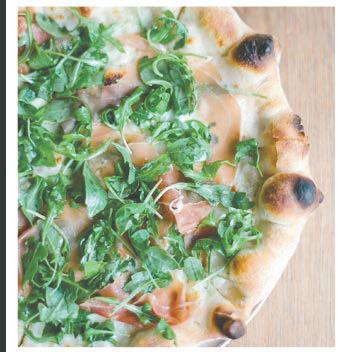
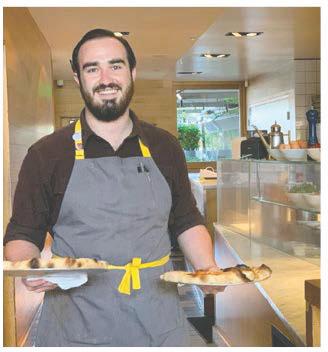
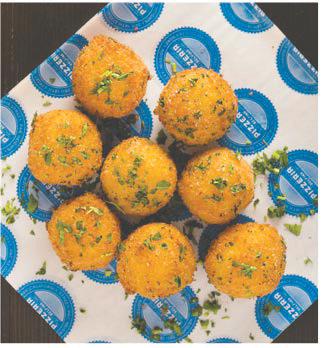
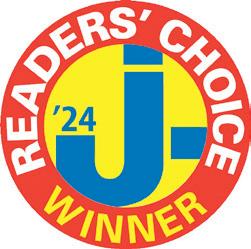

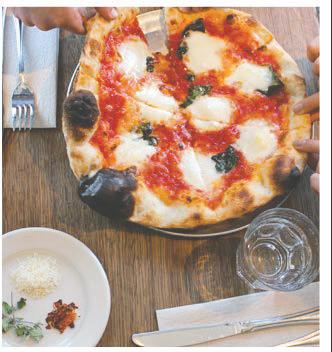



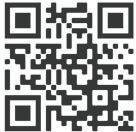

Pizza
SAN FRANCISCO
Tony’s Pizza Napoletana (415) 835-9888
tonyspizzanapoletana.com
Inspired by a pizzeria in Naples, Tony’s — a new Readers’ Choice winner this year — has a full bar, seven ovens and 12 pizza styles, including Neapolitan, classic American and Italian, California, New York, Detroit, St Louis, New Haven, Sicilian, Grandma, Romana and gluten free. An array of antipasti, insalata, pasta and dolci also are available.
SAN FRANCISCO & SOUTH BAY/PENINSULA Delfina (415) 552-4055 • delfinasf.com
Owners Annie and Craig Stoll are still at the helm more than 25 years after they first opened. While Delfina remains in the Mission, the Delfina Pizzeria branches are found in Pacific Heights, Burlingame and Palo Alto. At each, expect memorable dishes “rooted in Italian flavors and driven by the Bay Area’s seasonal bounty, plus warm hospitality and excellent service.”
SOUTH BAY
Amici’s East Coast Pizzeria
SAN MATEO
(650) 342-9392 • amicis.com
“Our pizza is inspired by the traditional, Italian brick oven pizzas of New England. The 700-degree temperatures of our stone ovens produce thin crusts that are crisp, airy and slightly chewy… a taste of perfection.”
Founded in 1987, Amici’s East Coast Pizzeria boasts locations throughout the Bay Area and beyond. Ask about dine-in specials when you stop in.
Stefano’s Pizza
SEVERAL LOCATIONS
stefanossolarpizza.com
Stefano’s — a new Readers’ Choice winner this year — makes basic pizzas “crafted with passion for pizza lovers,” and they promise quick service and fast delivery as well. Find
them in six locations in the North Bay: San Anselmo, Petaluma, Novato, Terra Linda, Corte Madera and Mill Valley. Stefano’s says they have served more than 10 million pizzas since 1972.
Zachary’s Chicago Pizza
OAKLAND, BERKELEY (510) 655-6385 (ROCKRIDGE) (510) 658-3226 (GRAND LAKE) (510) 525-5950 (NORTH BERKELEY) zacharys.com
An employee-owned company, in 1983 Zachery’s founders brought their great love for Chicago-style pizza to the Bay Area and opened in a former “funky little lampshade shop.” Choose from the house specialty or thin crust. Toppings include spinach, mushroom, barbecued chicken and “super veggie,” with many more options as well.
SAN FRANCISCO Hummus Bodega (415) 463-6622 hummusbodega.com
A new Readers’ Choice winner in this category as well this year, Hummus Bodega offers hummus bowls in six varieties: Hummus Falafel, Hummus Shawarma, Hummus Classic, Hummus Bodega Style, Hummus Tel Aviv and Hummus Forest. Hummus also is served tucked in some pita selections and on some plates. Plus, you can buy a container of hummus to take home.
BAY/PENINSULA
Oren’s Hummus
PALO ALTO (650) 752-6492 • orenshummus.com
Oren’s Hummus — a new Readers’ Choice winner in this category as well this year — prepares their signature hummus fresh, numerous times throughout the day. This is healthy hummus, Oren’s notes, and “tastes nothing like the store-bought variety because we never use preservatives or substitutes.” Oren’s has six dine-in and takeout locations in the Bay Area.


NORTH BAY
Julie’s Hummus Bar & Grill
SAN RAFAEL (415) 755-4818
julieshummusbar.com
At Julie’s Hummus — a new Readers’ Choice winner this year — the creamy specialty of the house is made fresh every morning from organic garbanzo beans, tahini and a special spice blend. Five varieties are available: spicy, with cilantro, with garlic, Greek or pine nut. The recipe is from Abdallah Haddad, the father of Chef Elias Haddad, co-owner Julie Jizrawi’s brother-in-law.
EAST BAY
Pomella
OAKLAND (510) 250-9215
pomellaoakland.com
A new Readers’ Choice winner in this category as well this year, Pomella’s hummus is made fresh with garbanzo beans, tahini, lemon and garlic, and topped with olive oil, paprika, parsley and pine nuts. All the hummus is vegetarian and gluten-free. Modern California-Israeli food options at Pomella are “always fresh, mindfully prepared, casually served and best when shared.”
BAY AREA
Mollie Stone’s Markets
VARIOUS LOCATIONS
molliestones.com
“Family owned and locally devoted,“ Mollie Stone’s Markets offer full-service departments, a wide variety of organic and specialty items and conventional favorites at nine locations in the Bay Area. Specializing in “healthy, natural and specialty foods,” the company’s buyers work closely with local producers. The company actively partners with local schools and food banks.
(415) 241-9760 (18TH STREET) (415) 551-7900 (DIVISADERO) (415) 278-7800 (POLK STREET) biritemarket.com
A new Readers’ Choice winner this year, Bi-Rite Markets note: “Visiting a Bi-Rite Market, the Bi-Rite Creamery or ice cream truck or attending an event with Bi-Rite Catering is a journey for your senses: looking, smelling, feeling, hearing, and of course, tasting. Our food is proof of the work we do to make sure every sense is engaged and satisfied.”
VARIOUS LOCATIONS
draegers.com
Founded in 1925 in San Francisco as Draeger’s Delicatessen, ““From its humble beginnings as a storefront deli to its proud new environment, Draeger’s has never lost sight of its mission to provide the best in food, wine and service.” Today, Draeger’s has grocery stores in San Mateo, Menlo Park, Los Altos and Danville, all of which specialize in gourmet fare.
OAKLAND (510) 250-6005
rockridgemarkethall.com/ market-hall-foods
A “neighborhood cornerstone” founded in 1987, Market Hall Foods believes the best foods are “handmade, passionately created, thoughtfully sourced and one of a kind. Bringing you those foods has made our shop the heart of Rockridge for decades. Food should be a joy to shop for and a joy to eat. Find your joy in our bustling aisles today.”
OAKLAND (510) 653-8181
piedmontgrocery.com
“We’ve been here on the Avenue for a long time and evolved along with our neighborhood,” notes Piedmont Grocery. “We’ve gotten better with age, and fortunately we’re showing no signs of slowing down. We’ve never stopped trying to provide the very best products we can find.” Look for the takeout bar and the international aisle, and expect “fresh, seasonal, local food.”
BAY AREA Covenant Wines
BERKELEY (510) 559-9045
covenantwines.com
“We make wine in our urban Berkeley winery from grapes grown in some of the finest vineyards in California and Israel, places where we enjoy a historical and personal connection to the land,” notes Covenant. “We strive to harness quality in the bottle that reflects the unique aspects of the land and the vines we are privileged to work with.” The winery was founded in 2003. All Covenant wines are kosher and vegan.


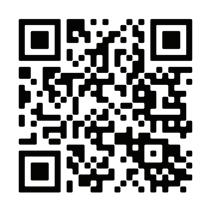





Hagafen Cellars
NAPA (888) 424-2336 • hagafen.com
“I never seek to change what nature has provided,” says owner and winemaker Ernie Weir. “My goal is to showcase the best that our land has produced.” Founded in 1979, Hagafen Cellars specializes in award-winning kosher wines. The winery is powered by solar power, collects rainwater for reuse in irrigation and grows all their grapes organically.
SAN FRANCISCO
Dr. David Rothman
Pediatric Dentistry (510) 333-6811 • davidlrothmandds.com
Dr. Rothman notes, “The manner in which we introduce our patients to dentistry will have a profound effect on their developing healthy life-long dental habits,” so education and prevention are key here. His office practices “careful use of X-rays, gentle but focused guidance in behavior management techniques and prevention of dental disease and malocclusions.”
NORTH BAY
Dr. Bob Nadjibi (415) 924-4760 (CORTE MADERA) (415) 435-3050 (TIBURON) marindentistry.com
With two offices in the North Bay, Dr. Nadjibi — a new Readers’ Choice winner this year — specializes in preventative treatment, cosmetic dentistry, restorative dentistry, periodontal treatment, implant dentistry, oral
surgery, root canal therapy and more. He also is a faculty member at the University of the Pacific Dental School, where he teaches seniors and practicing dentists.
EAST BAY
Dr. Eric Citron
BERKELEY (510) 849-1660
bestberkeleydentist.com
Dr. Eric Citron, a new Readers’ Choice winner this year, has been practicing in Berkeley and serving the Bay Area for over 35 years. His practice has “earned a reputation for compassion, enthusiasm, honesty, and a commitment to delivering the highest quality dental care possible,” with a goal “to provide patients with a positive dental experience.”
SAN FRANCISCO
Dr. Gabriel M. Kind (415) 565-6884 kindchangplasticsurgery.com
A board-certified plastic surgeon, Dr. Kind is known for “helping patients at each step of the journey.” He offers all aspects of plastic surgery, including breast reduction, liposuction, face and neck lift, rhinoplasty, breast augmentation and more. Dr. Kind has published scientific articles on a wide variety of plastic surgery topics.
SOUTH BAY/PENINSULA
Lorne Rosenfield
BURLINGAME (650) 692-0467 • drrosenfield.com
A new Readers’ Choice winner this year, Dr. Rosenfield is an internationally recognized surgeon at Peninsula Plastic Surgery, which was established in the Bay Area in 1966. Dr. Rosenfield’s guiding aesthetic principle is “to create a result that is, in fact, ‘invisible.’”
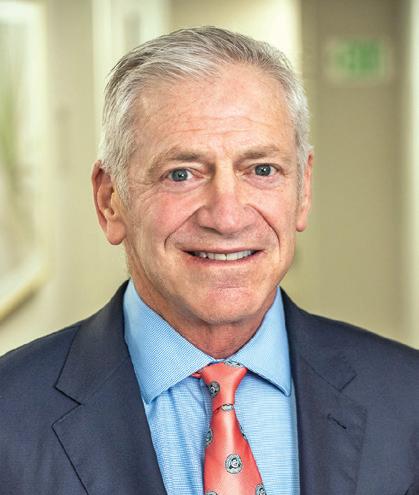
Dr. Kind believes that a great result in plastic surgery starts with individualized care that comes from listening to his patients. Whether it is a cosmetic or reconstructive procedure, he personalizes his approach to each patient to achieve the best results possible.
He recently was honored with a Special Recognition Teaching Award from UCSF.
SAN FRANCISCO
JCC of San Francisco (415) 292-120 • jccsf.org/fitness
The JCCSF offers members “all the tools to live their healthiest life,” including a 45,00-square-foot fitness center, a Pilates Reformer studio, a yoga studio, two indoor pools, personal trainers on staff and numerous fitness classes and programs for all ages. Expect “modern amenities, state-of-the-art equipment and expert instruction.”
SOUTH BAY/PENINSULA
PALO ALTO (650) 223-8700
paloaltojcc.org/fitness-and-sports
The Oshman Family JCC invites you to “stay grounded, focused and fit” by experiencing “the ultimate in fitness and health” at the Richard & Rhoda Goldman Sports & Wellness Complex. Swim in the outdoor pool, work out in an exercise class or use the gym’s state-ofthe-art cardio and strength equipment. The Outdoor Training Area offers strength and conditioning equipment as well.





Peninsula JCC
FOSTER CITY
(650) 212-7522
pjcc.org/fitness-wellness
“Experience wellness your way” at the Peninsula JCC, where you’ll find an NCAA regulation-size gym, swim programs, exercise classes and personal training. At the Functional Fitness Park, “push, pull, scale, swing, and climb yourself into warrior shape” with weighted tires, sledgehammers, cargo nets, heavy bags, monkey bars, and much more.
LOS GATOS
(408) 357-7429 • apjcc.org
A new Readers’ Choice winner in this category this year as well, fitness at the JCC Los Gatos “uniquely convenes health, wellness and community unlike any other fitness facility in town.” The fully equipped, stateof-the-art fitness and aquatics facilities are designed “to enhance your health journey, whether it be achieving strength, mobility, relaxation or nourishment.”
NORTH BAY
Osher Marin JCC
SAN RAFAEL (415) 444-8000
marinjcc.org/fitness-aquatic-center
KAYE • MOSER • HIERBAUM • FORD LLP
Emphasizing Family Law
Readers’ Choice Favorite Sixteen Years in a Row!
In these difficult times, our family law firm appreciates the support of J. and its’ readers and we wish everyone a peaceful holiday season.
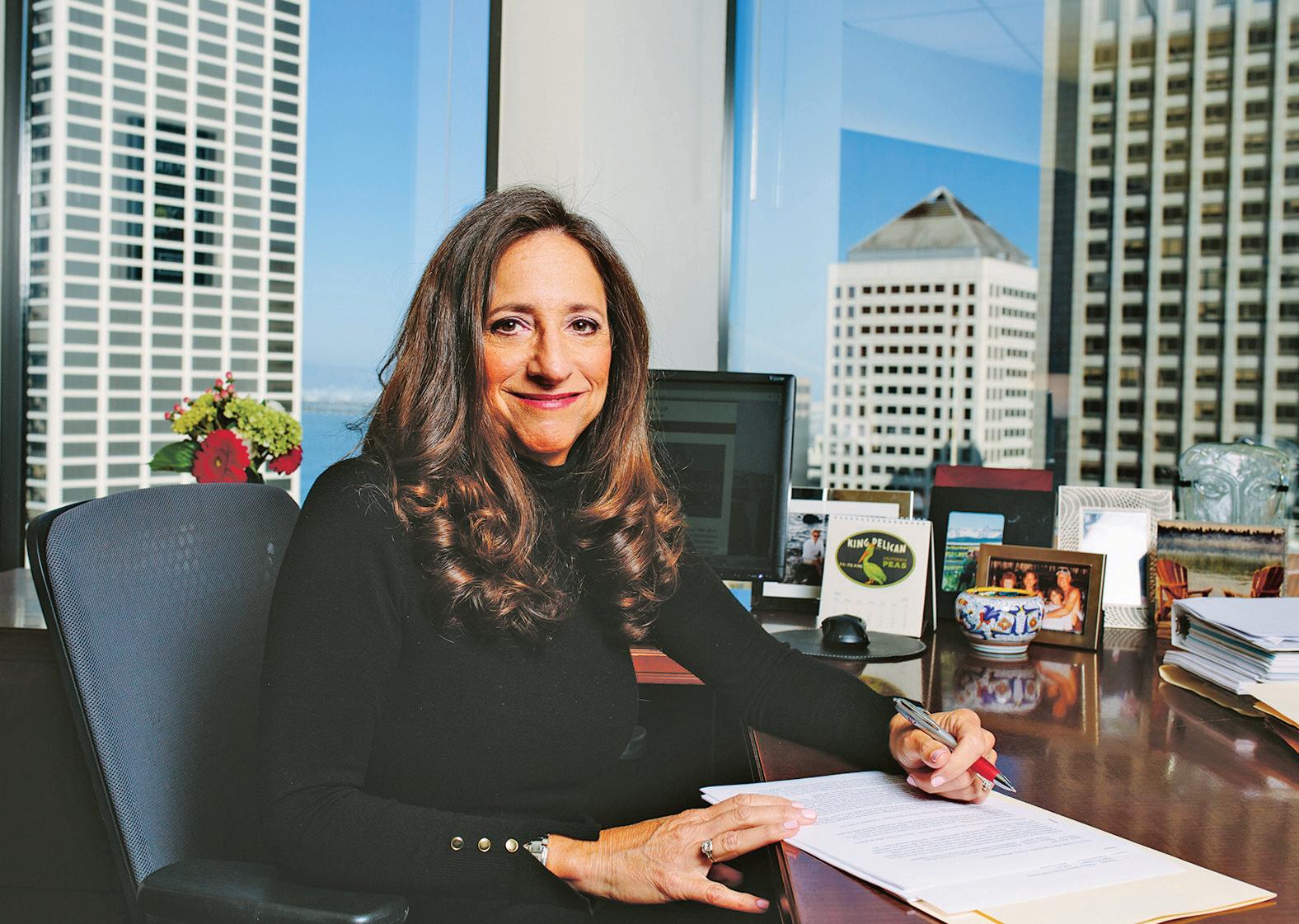
“Enjoy Marin’s best gym, swimming pools, aquatic therapy and popular group classes” at this “beautiful San Rafael fitness gym and aquatics center with a professional, friendly staff dedicated to your health.” Expect a gym with state-of-the-art equipment, indoor and outdoor pools and group fitness and aquatic classes. Personal trainers also are available.
SAN FRANCISCO
Barbara W. Moser (415) 296-8868
kayemoser.com/barbara-w-moser
Barbara W. Moser, a founding partner at Kaye-Moser-Hierbaum-Ford, serves as a consultant and strategist to litigants and attorneys in complex cases and also is a guest lecturer at local law schools on family law practice, business valuations and child and spousal support. Her practice includes “all aspects of the trial and settlement of complex marital dissolutions.”
SOUTH BAY/ PENINSULA
Deborah Radin
LOS ALTOS (650) 941-8600 • kramerradin.com
The managing partner at Kramer Radin, LLP, Deborah Radin — a new Readers’ Choice winner this year — concentrates on “estate planning, trusts, wills, post-mortem trust administration, probate, charitable giving, tax planning and end-of-life planning.” She is certified as an Estate Planning, Probate and Trust Law Specialist by the State Bar of California Board of Legal Specialization.
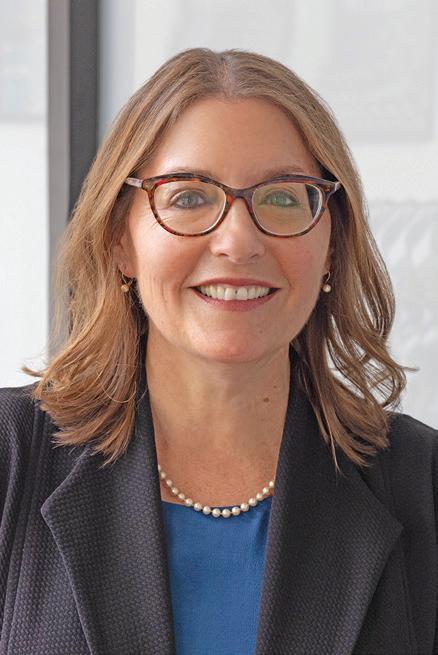
EAST BAY
Donna Gibbs
OAKLAND (510) 465-3927
bgdfamilylaw.com/donna-gibbs
A new Readers’ Choice winner this year, Donna Gibbs — a partner at BGDO Family Law —focuses on “representing clients in litigation, mediation and collaborative law.” A member of the International Academy of Collaborative Professionals and on the steering committee of the Alliance of Collaborative Professionals East Bay, she is fluent in Russian.
SOUTH BAY/PENINSULA Primark Benefits
BURLINGAME (650) 692-2043
primarkbenefits.com
A new Readers’ Choice winner this year, the mission at Primark Benefits is “to be a premier employee benefits firm in the nation, while upholding our standard of high-quality, individualized service.” Primark works with small- and mid-sized companies throughout the U.S., aiming “to help American workers be successfully prepared for retirement.”
EAST BAY
Tammy Plotkin-Oren
BERKELEY (510) 433-3109
tpofinancial.com
At TPO Financial and insurance services, Tammy Plotkin-Oren — a new Readers’ Choice winner this year — is a principal and financial advisor offering investment advisory services through Eagle Strategies,
East Bay!
planning, and retirement preparation. With our team-based approach, we create comprehensive plans for each individual while demonstrating genuine care for their financial future.

LLC. “Bringing her clients peace of mind and taking the burden of financial planning off their shoulders is what makes Tammy so passionate about her work.”
SOUTH BAY/PENINSULA
Jennifer Friedman
MENLO PARK (650) 324-9300
jsmf.com/jennifer-h-friedman
Jennifer Friedman, a new Readers’ Choice winner this year, is a partner at Jorgenson, Siegel, McClure & Flegel, LLP. She specializes in estate planning, estate and trust administration, gift and estate tax law and business formation and planning. She has extensive experience and expertise in counseling clients, drafting legal documents, pre- and post-death tax planning and more.
EAST BAY
OAKLAND (510) 594-8483
sasselawoffice.com/team/ linn- schulte-sasse
A new Readers’ Choice winner this year, Linn Schulte-Sasse is a Principal at Sasse Law Office PC. Her practice focuses on “providing comprehensive, personalized estate planning counseling to couples, families and individuals, as well as assisting in probate and trust administration,” and she works to help clients understand how estate planning protects them.
BAY AREA
Andrea De Graff
Travel Wizards (650) 696-6900
travelwizards.com
With a combined 300 agent-years of travel experience, agents are available by appointment or by phone to help clients plan trips, “all of which costs you no more than if you did your travel planning without us.”
Founded in 1981, the agency promises to provide “the personal commitment and attention to detail of a private consultant.”
SAN FRANCISCO (415) 931-194
sterlingjourneys.com
As independent affiliates of Gifted Travel Network and longtime friends, founder Sandra Lipkowitz at We Make Travel Easy and founder Lise-Marie Wertanzl at Sterling Journeys have merged their agencies, both of which are “veteran spot holders” in the Gifted Travel Network’s Top Producers Club. The partners agree their “collaborative professional development thrives.”
LOS ALTOS (650) 854-3222
ladera.travel
Corporate travel, leisure travel and cruise travel are the focus at Ladera Travel, which offers “over 60 years of service to a discerning clientele.” Husband-and-wife team Les and Nancy Burger specialize in customized international and domestic itineraries for all clients and “comprehensive one-stop management of corporate travel requirements.”

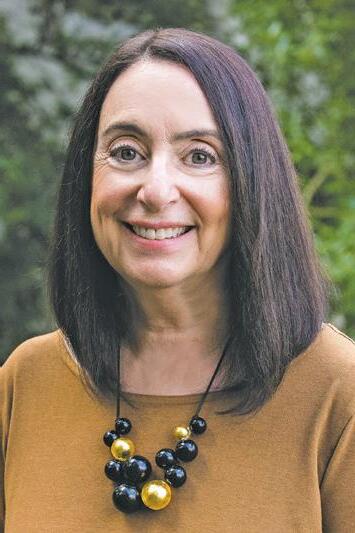
We
We
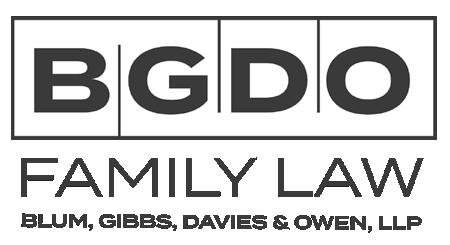

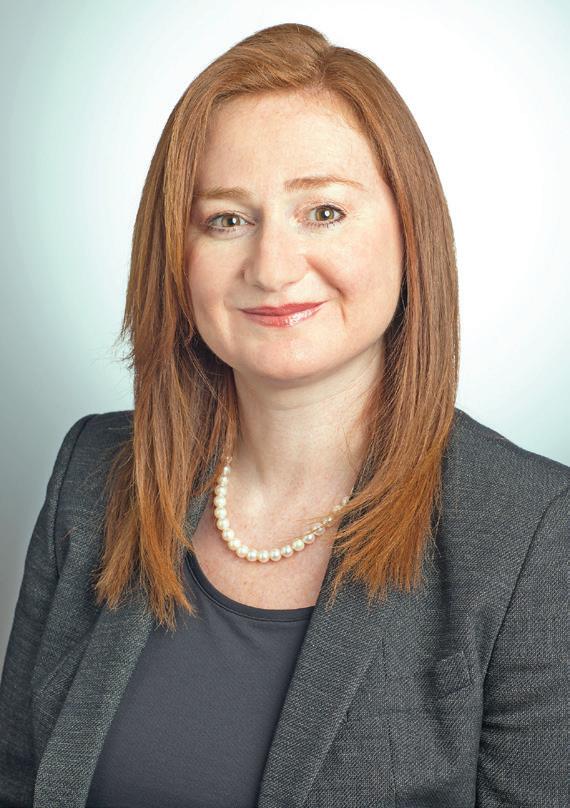
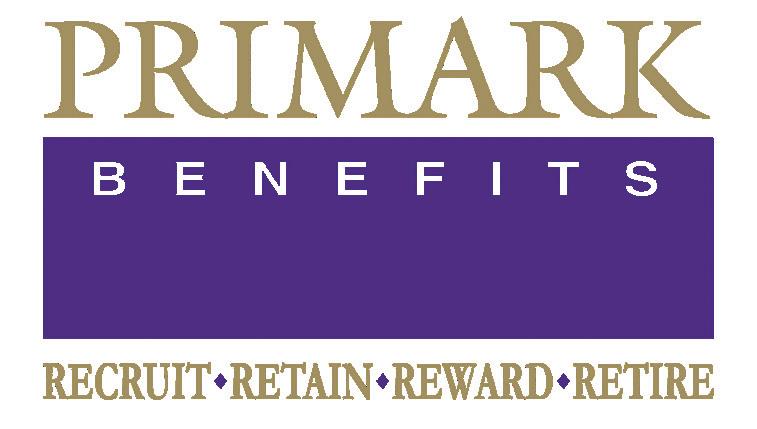
SAN FRANCISCO
Bellings Brothers
(415) 601-3000
bellingsbrothers.com
Last year, third-generation Realtors Aaron and Michael Bellings helped over 63 happy buyers and sellers, achieving over $105 million in sales volume. “With backgrounds in finance and marketing, they bring a unique skill set to the business and strive to bring an unparalleled level of expertise, passion, and custom approaches to each transaction.”
(415) 338-0118 • soldonsf.com
A Realtor and broker since 1983, Debbie
Herzfeld also holds professional designations as a Certified Residential Specialist and a Senior’s Real Estate Specialist. She handles sales of both residential and multi-family units throughout San Francisco’s neighborhoods. Her national network of professional contacts also enables her “to refer buyers and sellers all over the U.S.”
BAY/ PENINSULA
Susan Sims
LOS ALTOS (650) 743-1838
susansimshomes.com
Serving the Peninsula and the South Bay, Susan Sims offers assistance “in determining current property value, crafting a competitive offer, writing and negotiating a

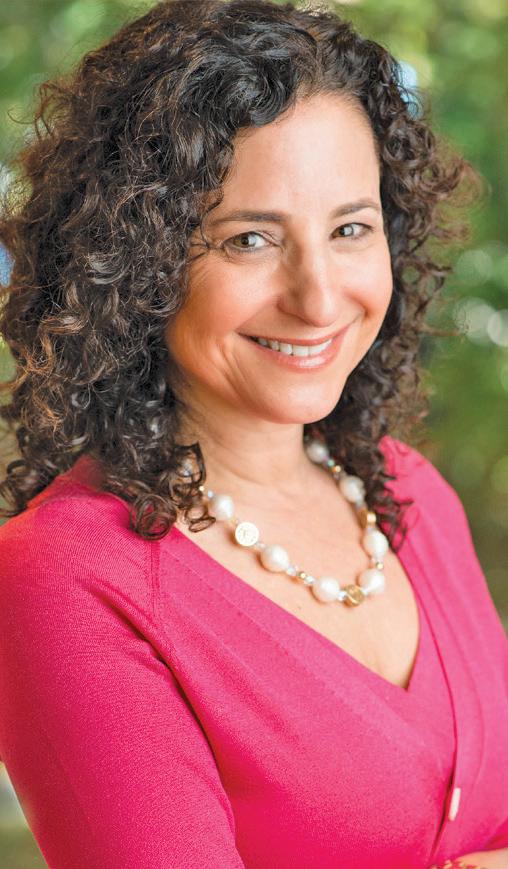
contract and much more.” A valued member of The Agency Los Altos, she “combines her deep knowledge of marketing…with her strong negotiation skills to provide clients with personalized care.”
NORTH BAY
Nana Meyer
SAN ANSELMO (415) 385-4433
compass.com/agents/nana-meyer
A new Readers’ Choice winner this year, Nana Meyer represents both buyers and sellers in real estate transactions in San Francisco and Marin County. Much of her business is referral-based, and Meyer “works diligently to make sure that I’m ‘up to the minute’ on current market trends…so that all my clients can maximize their returns.”

EAST BAY
Dana Cohen Homes
OAKLAND (510) 813-0321
danacohen.com
A residential realtor since 2002 and a top-producing agent since 2016, Dana Cohen notes, “Your real estate investment is too important to overlook experience.” She specializes in homes in the Oakland, Berkeley and Piedmont areas. With over $900 million in sales, she was ranked as one of the top 25 agents in the Bay Area by the San Francisco Business Times in 2022.
Fine Homes in Piedmont, Oakland and Berkeley
THANK YOU J. READERS
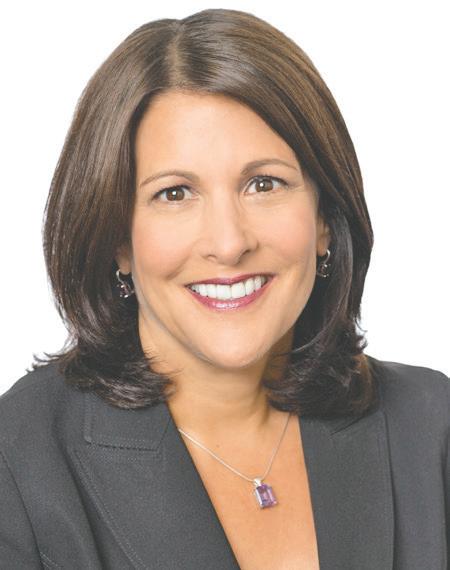
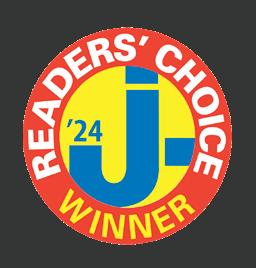
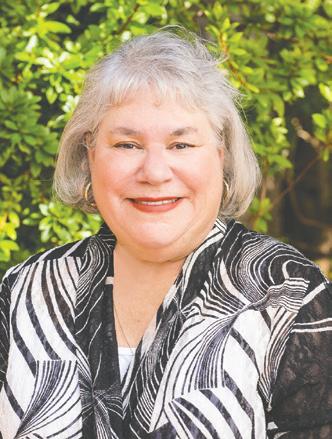
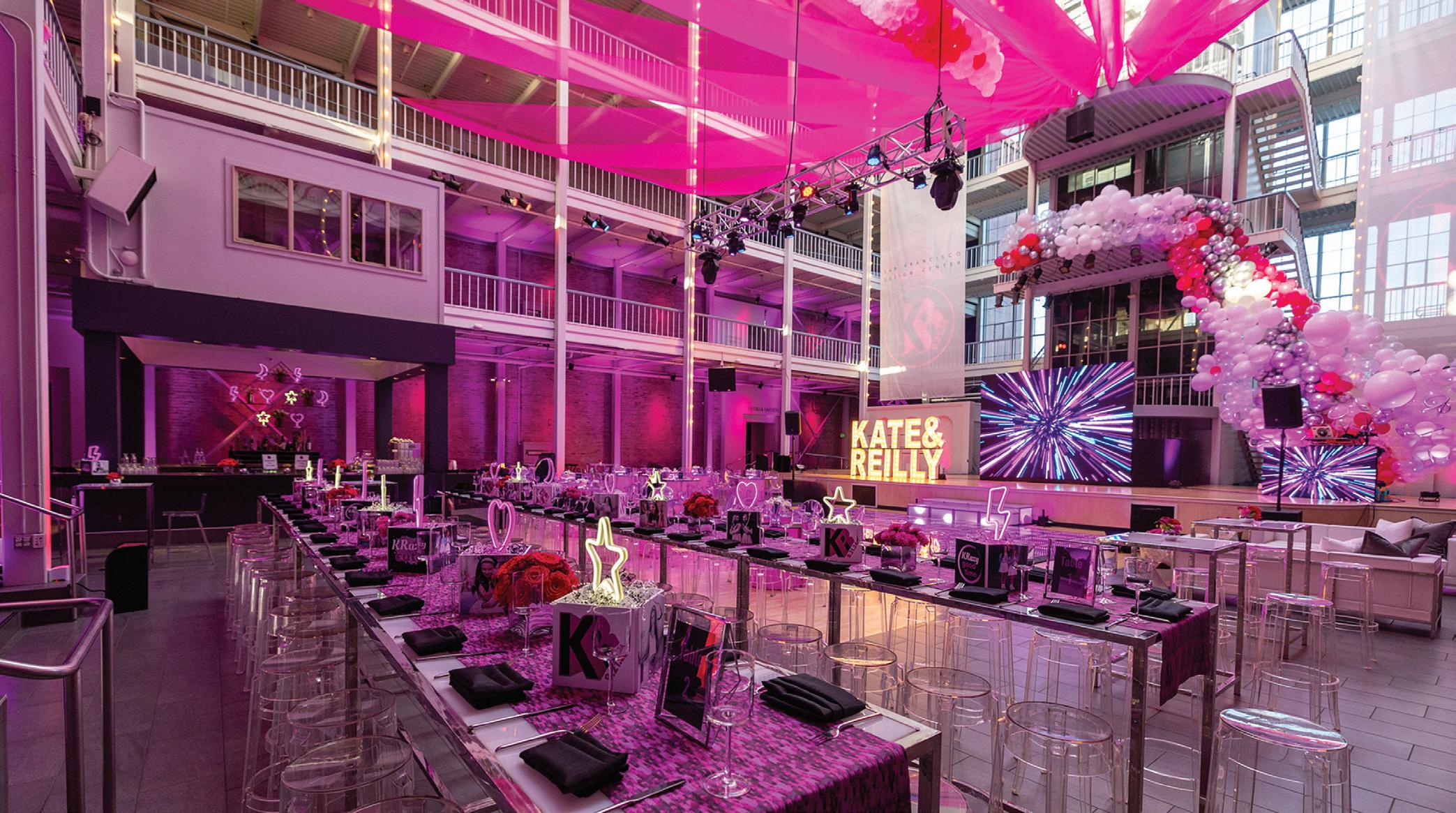
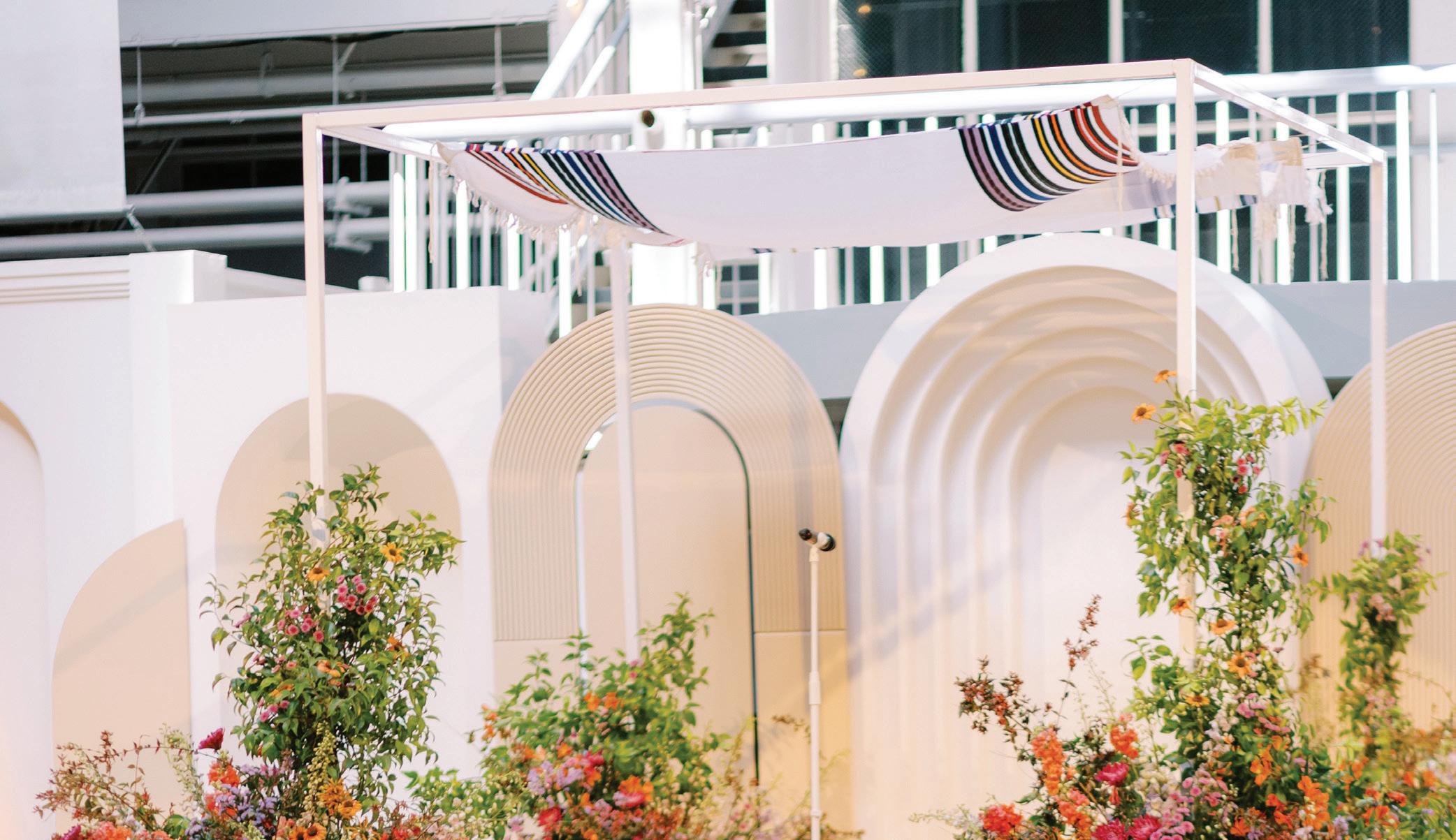
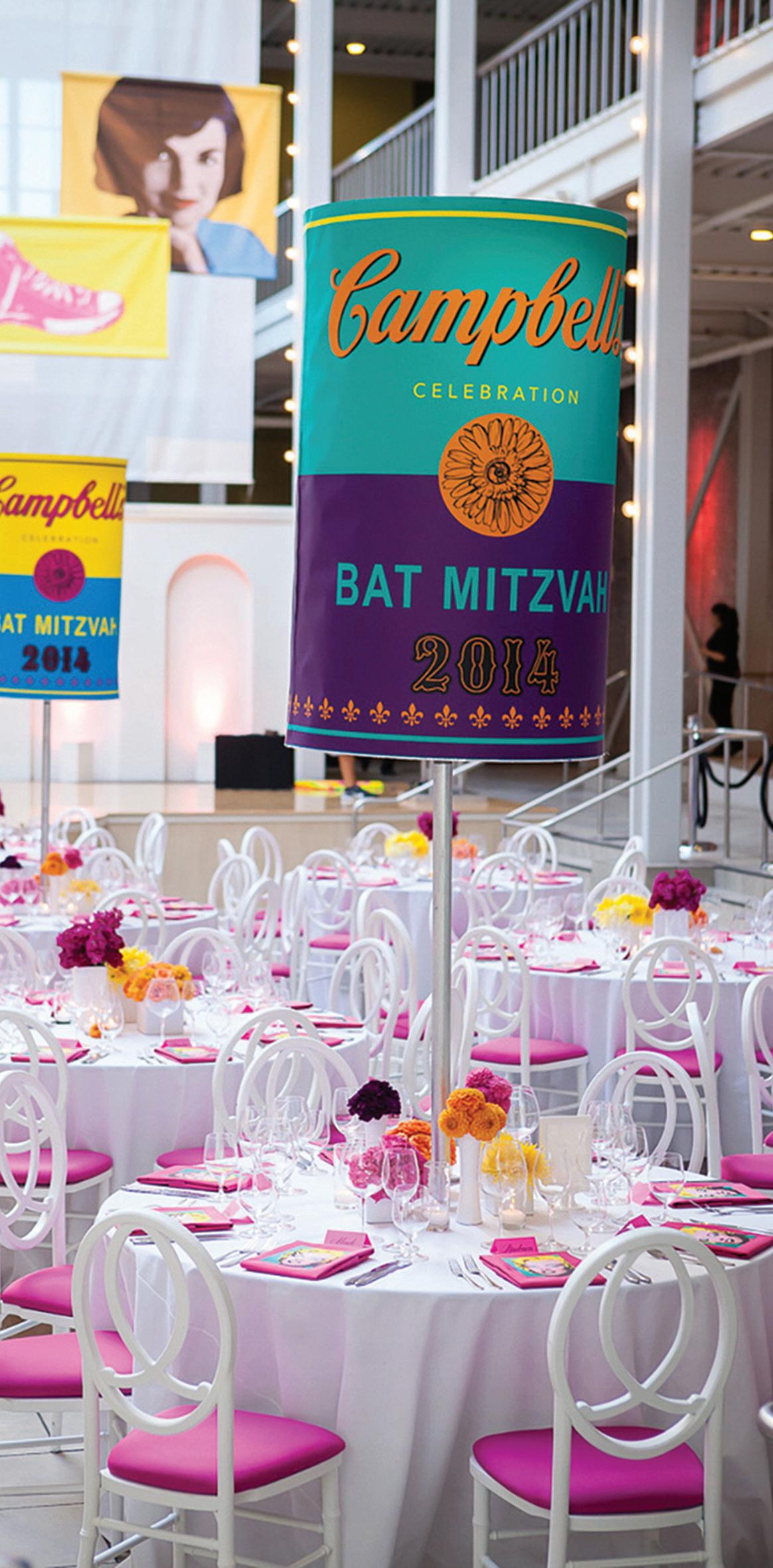


DANA SHEANIN | GUEST CONTRIBUTOR
A new study of changes in philanthropy since the Oct. 7, 2023, attack on Israel found that 37% of Jewish organizations have received money from new donors over the past year. However, a closer look at the study, conducted by the CCS Fundraising, reveals that most of the organizations that benefited were those with a specific focus on Israel. In fact, 52% of the 73 U.S. Jewish organizations surveyed reported no change in their support since last October. Another 15% of the organizations reported a decline in fundraising.
But based on my conversations with dozens of Bay Area Jewish leaders, I suspect the real number is far higher. For example, at the organization I lead, Jewish LearningWorks, which advances Jewish learning through professional development in the Bay Area, we saw a nearly 50% decline in annual gifts. My conversations with colleagues confirm that ours is far from the only Bay Area organization wrestling with a decline in giving since the Hamas attack.
The downturn occurred just as we were beginning to mark our 125th anniversary, a chance to highlight the impact from our earliest days as the Jewish Education Society of San Francisco to our time as the Bureau of Jewish Education to our current form as Jewish LearningWorks, where we now serve 600 educators each year. Instead of celebrating, we changed direction and focused on helping 150 Bay Area Jewish educators respond to the ongoing war.
While larger communities such as ours are fortunate to be home to generous foundation partners and individual donors, their focus varies greatly. Several key foundation partners in the Bay Area unfortunately chose last year to end their Jewish giving or redirect it toward antisemitism and Israel. It is therefore not surprising that at least two highly regarded organizations, the Jewish Youth for Collective Action and the Jewish Coalition for Literacy, have closed, and at least one other I am aware of is actively considering a merger.
Perhaps most troubling is the study’s finding that only 13% of Jewish donors prioritize “enriching Jewish life” and just 1% prioritize “Jewish youth education.” Last month, the New York Times reported that since Oct. 7, 40% of engaged Jews have become more engaged, and many who were not engaged have turned to congregations, day schools and community centers for support.
Why does our generosity not extend to the essential local organizations at the core of the community? A singular focus on crisis support for Israel is unsustainable and has already begun to have a local impact. Organizations that had not yet fully rebounded from pandemic financial challenges now find themselves again eliminating staff positions, scaling back planned programs and asking more of exhausted and depleted educators, rabbis and other leaders. Indeed, Jewish LearningWorks has reduced our staff 22% since October.
In this challenging environment, Jewish LearningWorks remains committed to addressing the deepening talent crisis in the rabbinate and in Jewish education. While philanthropists are often understandably concerned with saving money for a rainy day, we are clearly in the midst of a worsening storm.
Local communities need both individual donors and foundation partners to meet this moment and to view communal priorities through a wider lens. Organizations and individuals who believe in the power of Jewish life to heal what divides us and to provide a balm to our grieving souls must act now.
Without immediate and substantial financial support for local community organizations, we will all lose the sources of support and belonging we need to carry us through the years ahead. n
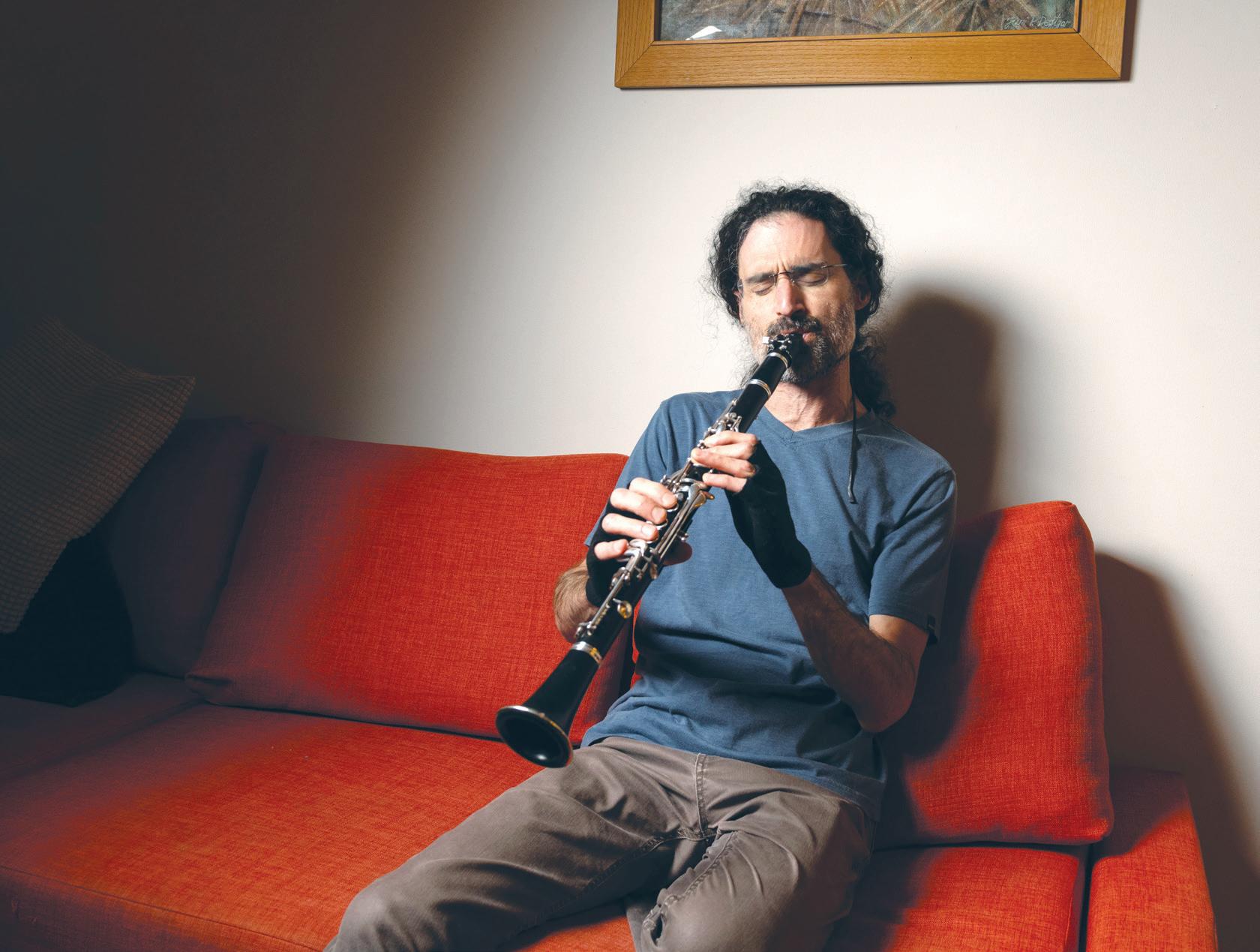
More than a ‘Levi Strauss heir’
As San Francisco welcomes its newly elected mayor, Daniel Lurie, headlines too often linger on one detail: His status as a “Levi Strauss heir.” This label does not define the person or the leader that he is, or ever has been (“Lurie will be 4th Jewish mayor in San Francisco history,” page 4).
Daniel has proven his ability to bring people together to make change happen. His work with Tipping Point Community and other civic organizations and challenges embody the spirit and deeds of better-known community organizers who preceded him, who believed that progress starts with uniting people and diverse interests to work collectively to achieve a common good. His track record is one of delivering clear results by connecting solutionsoriented people and putting in the hard work with his sleeves rolled up. He has never relied on status and privilege. In fact, he has taken his privilege and used it for what it should be used.
One of the lessons we should learn from the current state of national politics is the urgent need to move beyond the rhetoric of political labels. While most San Franciscans recoil at Donald
Trump’s belittling use of nicknames, we ourselves talk about “establishment candidate Breed,” “billionaire-backed Farrell,” “professional obstructionist Peskin” and, of course, “Levi heir Lurie.” These epithets are, to varying degrees, descriptively apt. But the continued labeling also dismisses and ignores the clear will of thousands of San Francisco voters.
Daniel is a part of one of many outstanding San Francisco families. He and I attend the same synagogue, went to school together and played on the same soccer teams K-12, which gave me the opportunity to watch him develop into the person that he is. He has been a leader as long as I have known him and is driven beyond a desire to live up to the family legacies of both his parents and in his commitment to elevate the lives of all San Franciscans. Daniel outgrew the labels and epithets a long time ago through his concrete contributions to the life of our city, and today I’m proud to call him mayor-elect. He has earned the title in his actions demonstrated throughout his life.
ALEX ROSENBLATT | SAN FRANCISCO continued on page 46
SETH BRYSK | GUEST CONTRIBUTOR
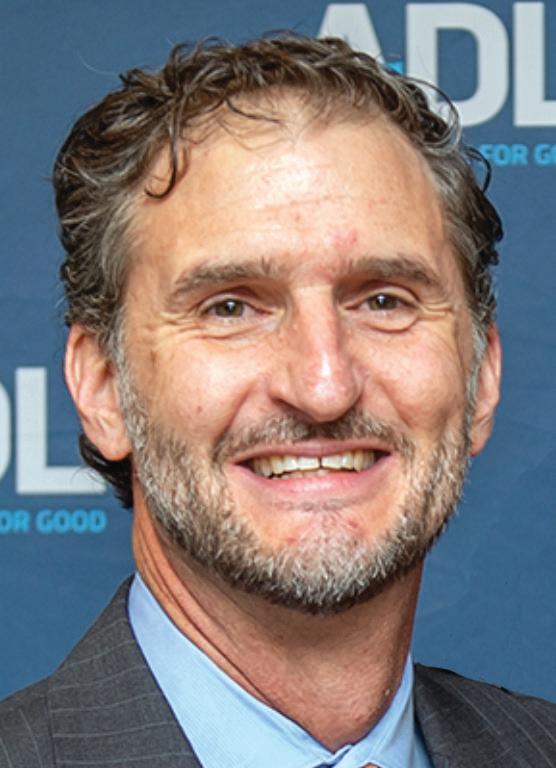
San Francisco Unified School District families are confronting multiple crises. Along with leadership changes and school closures, many students and parents are also contending with a climate of hate and exclusion.
For the Jewish community, the Oct. 7, 2023, Hamas massacre in Israel marked the beginning of a sharp increase in antisemitic incidents in classrooms, on campuses and on social media — beyond already historically high numbers.
Following months of appeals for support, Jewish students and families asked SFUSD to offer anti-bias training from the American Jewish Committee to help teachers and staff learn about who the Jewish people are, what antisemitism is and what faculty can do when they encounter it.
Ironically, the district’s granting of this simple request for training inspired its own spate of antisemitism this fall.
The bias took many forms. It included slanderous accusations invoking a classic trope that Jews promote war for their benefit, in this case smearing AJC as “pro-war.” It tokenized a fringe group of anti-Zionist Jews as representatives of the Jewish community, accompanied by denying that a connection to Israel is an aspect of Jewish identity.
District administrators who organized a September training and teachers who were asked to attend it received
Take your hat off
significant pushback from some teachers union leaders who invoked the above biases. Opponents of the training further asserted that “all life is sacred,” a blithe and hypocritical echo of “all lives matter.” And the Jewish community was gaslighted as many denied or minimized the antisemitism that students, families and teachers face. Indeed, unequal treatment of Jews, even if it is unintentional, is still antisemitism.
There were also demands that any training about antisemitism had to include discussions of Islamophobia. While our society must address Islamophobia, the impulse to always pair antisemitism with Islamophobia is inappropriate and counterproductive. Muslims deserve a vigorous response to the bias they experience in the Bay Area on its own merits. The Jewish community is no less worthy. Whenever bias is perpetrated, it is critical to be timely, specific and unequivocal in confronting it.
Uniquely conditioning a discussion of antisemitism to include other biases is itself a form of bias. Doing so reinforces or creates a dynamic of conflict between communities, which educators should instead seek to defuse.
When it came time for AJC’s district-mandated training, which was eventually rescheduled for October, members of the teachers union organized an alternative training session about antisemitism from a group that was neither vetted nor approved by the school district.
The curriculum consultant that led the unsanctioned program, Participatory Action Research Center for Education Organizing (PARCEO), makes bizarre and radical claims about antisemitism even over ostensibly uncontroversial matters. For example, one of PARCEO’s video presentations falsely asserts that when Jews seek protection from law enforcement in response to hate crimes — including the 2018 Tree of Life synagogue massacre in Pittsburgh, the deadliest attack
continued from page 45
against Jews in U.S. history — they “endanger” and contribute to the “continued oppression, incarceration and murder of [Black] people.”
In the SFUSD training I led on Oct. 9, I was temporarily prevented from speaking while a dozen union representatives holding signs took control of the room to make accusatory statements about core values of Jewish identity and AJC — at the expense of their colleagues seeking to learn. About 40 or 50 exited en masse as a form of protest.
Those who left did not walk out on AJC; they walked out on their students and parents who asked for our training.
The inability of some teachers to listen to a different point of view in an educational setting in our proudly diverse city was jarring. Education is a foundational pillar of democracy. As Ahmed Shaheed, the United Nations special rapporteur on freedom of religion, warned in 2019, antisemitism is “toxic to democracies” and a “threat to all societies if left unaddressed.”
Like other expressions of hate, antisemitism is underreported by its targets. As students and parents see teachers and schools ignoring, minimizing or even fomenting antisemitism, they will no longer feel that reporting will lead to any action and therefore won’t report it at all. There is also fear within the Jewish community about the potential for retaliation.
The lessons we impart to our children are critical and lasting. Equity and fairness are not limited resources, and there is no need to substitute one form of bias for another. School must be a place where young minds and ideas, even those that are challenging or uncomfortable, are nurtured. Free expression is enhanced, not hindered when harassment is confronted. During an epidemic of hate, we should trust experts on the topic instead of trying to do our own research or turning to the fringe for answers.
Clearly, there is a lot to learn. n
In regards to the article about Jonathan Hirsch going to a Palestinian coffee shop in Oakland wearing a baseball cap with a Jewish star (“Man in Star of David cap told to leave Oakland business,” Nov. 1), I feel that Hirsch, once he realized how upset the owners were, should have taken off his hat. While he may have the legal right to wear it, this doesn’t mean it was right.
Most Palestinians I have encountered have lost numerous family members to Israeli bombs. Seeing a Jewish star in their coffee shop is like dumping salt into fresh wounds. If you want to be a model for your son, show some respect and compassion.
Imagine if you had a guy with a swastika on his cap come into your Jewish deli and refuse to take off the cap? Not respectful or caring!
You could have taken off the cap, apologized for offending them and perhaps started a conversation and listen to why it upset them so much.
You just must learn something and grow your heart a little bit, not to mention forge some much needed healing between Jews and Palestinians.
I say that as a daughter of Holocaust survivors whose father lost countless family members.
RHONDA
FINDLING | SEBASTOPOL
Rabbi Amy Eilberg is to be admired for her idealism in her lamentation over the suffering of Palestinian civilians caught up in the collateral consequences of Israel’s retaliation for the barbaric attack of Oct. 7, 2023 (“Why I couldn’t pray this Yom Kippur,” Oct. 18 online).
It would be nice if she took the time to now compose a “part 2” companion editorial outlining her ideas on practical means by which the Israel Defense Forces should respond to the terrible dilemma they have been presented with in dealing with this choice between survival of their country, and decisively eradicating those dedicated to its destruction who are hiding amid those innocents.
It seems to me that this indeed is “a time for war,” and that a rabbi should be able to realize that choosing to focus on only part of Ecclesiastes 3:8 purposely blurs the Biblical intent.
CHARLES BRUMMER | MOUNTAIN VIEW
Blessed
I am so grateful that you published Rabbi Paul Steinberg’s piece (“I am an unapologetically pro-Israel rabbi, no matter what some of my other Bay Area colleagues say,” Oct. 24 online).
I’m a member of his congregation, Kol Shofar, and we feel so
blessed and fortunate to have an unapologetically pro-Israel rabbi who is not afraid to advocate for Israel, especially here in the Bay Area. The rabbi’s clarity, dedication and warmth are a healing balm to my soul. Thank you, J., for including his vital voice in your pages!
BOYAR | NOVATO
Another thank you to Rabbi Steinberg
I want to say a simple but loud “thank you” to Rabbi Paul Steinberg for his bold and brave voice in support of Israel’s right to defend its very existence. On Oct. 24 he stated in part, in his op-ed, “I am a rabbi and an unapologetic Zionist and supporter of Israel.” He explains that he can be critical of Israel, while unabashedly supporting the Jewish homeland. I implore other clergy to stand by his side.
JEANNETTE LONGTIN | SAN RAFAEL
Rabbi Steinberg is a welcome counterpoint
Rabbi Paul Steinberg’s op-ed strongly and proudly supporting Israel and Zionism is a welcome counterpoint to the sea of virtue signaling that often clouds honest discussion of Israel’s response to the barbarism of Iran and its proxies.
Someone breaks into your house, murders members of your
DIANNE TAUBE | GUEST CONTRIBUTOR
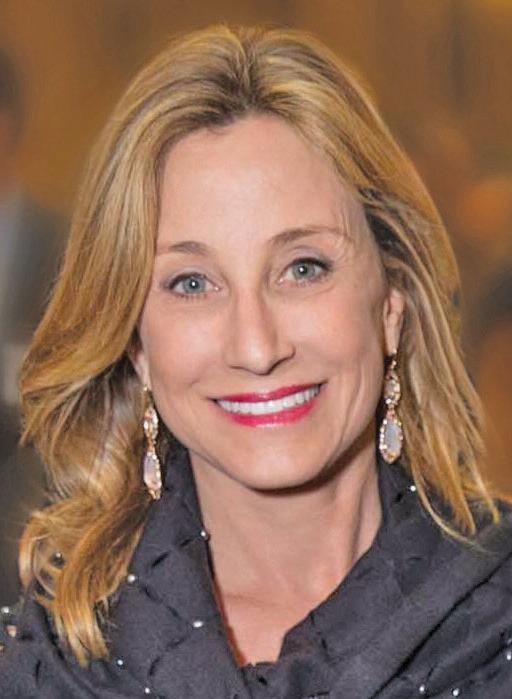
More than a decade ago, the Bay Area’s philanthropic community played a major role in the completion of a Polish institution that continues to give the world a new understanding of Jewish history and also solidifies the revival of Jewish life in Poland.
In September, on the 10th anniversary of the grand opening of Warsaw’s POLIN Museum of the History of Polish Jews, I had the honor of leading a California delegation to participate in the three-day celebration.
Our group included two of our sons and other board members of Taube Philanthropies, of which I am the president, together with academics and other museum donors.
It was an occasion to remember, celebrate and advance the vision and perseverance of a group of Bay Area philanthropists, led by Tad Taube, my husband and the Taube Philanthropies chairman, who worked tirelessly with scholars and leaders in democratic Poland to reshape the historical narrative by highlighting a millennium of Polish Jewish experience and achievement.
Tad left Poland as a child in the summer of 1939 — just before the start of World War II. He grew up in the United States but always treasured his Polish Jewish roots. Through his philanthropies, he chose to make his personal legacy a public one, and our family proudly stands with him.
Our trip to Warsaw allowed me to see the power of community collaboration in action. The creation of the museum was a huge challenge and required the efforts of many institutions and individuals both in the U.S. and abroad.
family and perpetrates unspeakable atrocities, and the first thing you’re asked — as if to pass a moral litmus test — is whether you believe that the perpetrators, though through no fault of your own but of the perpetrators’ sponsors and corrupt leaders, have suffered too.
Yes, it’s perfectly fine to criticize Israel’s policies and engage in honest discussion, but there is no cause that justifies the barbarism that occurred on Oct. 7 and 8, 2023, and which continues to occur through the holding of hostages, the indiscriminate firing of missiles on civilian Israeli populations and the use of human shields. If a member of the clergy or the media cannot flatly condemn such conduct without “buts” or equivocation, then it is they who are morally failing.
Those who claim that they couldn’t pray on Yom Kippur because of their perception that Israel has somehow conducted its defense in an immoral manner have a duty to state with particularity what specific actions were immoral and how they would have conducted such a defense themselves.
The rabbi summed it up best when he said, “In fact, I find it cruel to force Jews and Israelis to constantly pass a moral hygiene test by needing to qualify their feelings and thoughts with, ‘But I also recognize the Palestinian suffering.’”
LOUIS GURMAN | SAN ANSELMO
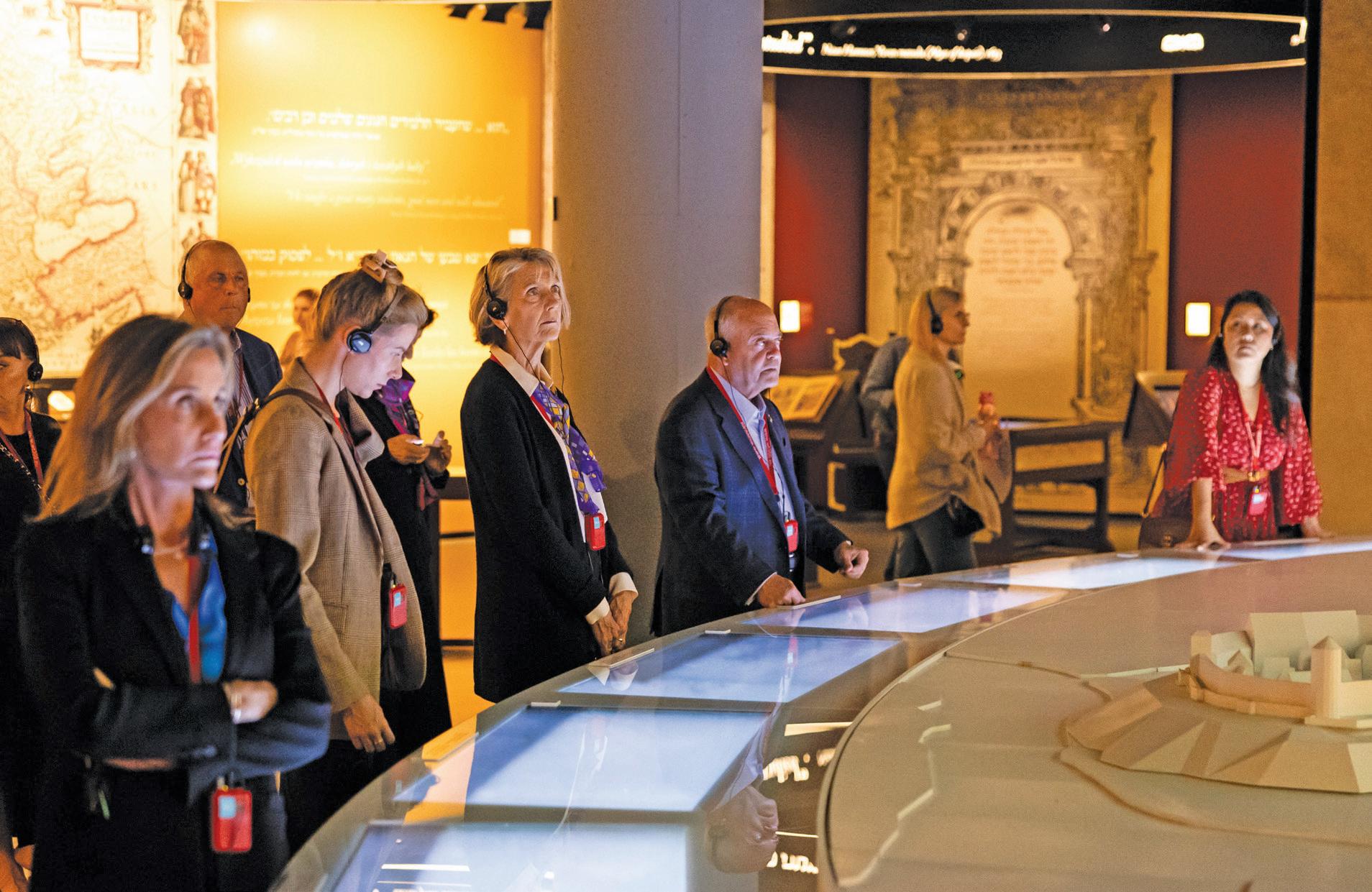
Visitors, including Dianne Taube (far left), peruse an exhibit at the POLIN Museum in September on the occasion of the museum’s 10th anniversary. (MACIEK JAZWIECKI/COURTESY TAUBE PHILANTHROPIES)
A solid foundation was laid by donors like Ronald Lauder and Sam and Tzipi Tramiel; Poland’s Ministry of Culture, which subsidized the building of the museum; the city of Warsaw, which donated the land; and a worldwide community of scholars and curators who rethought how to bring alive the thousand years of Polish Jewish history and culture.
As the building rose on its foundations, a pressing need emerged for funding to create the imaginative exhibitions and educational programs that would soon make POLIN the talk of the museum world. This is when the Bay Area philanthropic community stepped in, with $20 million of finishing money that filled the beautiful building with life and excitement.
The Bay Area philanthropic community’s keen awareness of the power of shared memories and of informing future generations spurred their united efforts to build this majestic museum. The many Bay Area visitors to the museum each year attest to its continued support, and the multitudes who come from around the world affirm its mission. Most important are the school children from across Poland and the European Union and the high school and college students from across the United States, who come every season and whose understanding of the Polish past includes a rich 1,000-year Jewish history.
Taube Philanthropies helped lead the effort to fund this new symbol and embodiment of Jewish life and culture. Collaboration is at the center of our family’s philanthropic vision, especially in far-reaching initiatives such as revitalizing Jewish community and culture in Poland. We at the foundation are devoted to keeping Tad’s legacy fresh and alive. A worldwide community of Jews with Polish ancestry continues to collaborate with us and others to support Jewish life and institutions in the cities and towns of their family origins and travels.
That we celebrated POLIN’s 10th anniversary milestone against the backdrop of growing populism and antisemitism around the world is a reminder of the museum’s purpose and value as an antidote to hatred that has been too often directed at the Jewish people. It makes clear that history need not determine the future. It reminds us of the power of community and of joint action to fulfill a common goal, no matter
We celebrated POLIN’s 10th anniversary milestone against the backdrop of growing antisemitism and populism around the world.
how challenging. It also reminds us of the power of collaboration not only to cherish and build, but to protect ourselves against hostile ideas and forces that too often mark our world. I hope this symbol of humane belief and action will serve as a model for other nations to follow as they shape their own cultural institutions. They will need patience and perseverance. It took 20 years, almost a generation, to build POLIN, but the process has strengthened the bonds of community among Jews everywhere. Tad’s legacy will continue to guide us as we move forward in advancing our hopes for a better world, a better future. n
The views expressed on the opinion pages are those of the authors and do not necessarily reflect the views of J.
SUNDAY | November 17
Z3 CONFERENCE— 10th annual, allday conference explores ways to elevate the relationships between Israeli Jews and the diaspora.
Former Israeli Prime Minister Naftali Bennett is keynote speaker. At Oshman Family JCC, 3921 Fabian Way, Palo Alto. 8 a.m.-7:30 p.m. Free livestream, $36-$165 in person. z3project.org
MONDAY | November 18
TRANS DAY OF REMEMBRANCE—
Multifaith panel of transgender religious leaders reflect on how their communities are both learning from and impacting trans, intersex and nonbinary lives. Moderated by Quinn Martinez of Congregation Sha’ar Zahav. Livestream option. At TransThrive, 1460 Pine St., S.F. 7-8:30 p.m. Free. tinyurl.com/multifaith-trans-panel
AN EVENING WITH WESTSIDE GRAVY— Noah Shufutinsky (aka Westside Gravy) discusses his life, art and activism as a rapper and black Russian Zionist Jew. With sushi and Israeli wine. Presented by StandWithUs Northern California, the Russian-Speaking Jewish Community of San Francisco Bay
Area, and the Menorah Center SF. At San Francisco location provided with RSVP. 6-8 p.m. Free. tinyurl.com/westside-gravy-sf
TUESDAY | November 19
MENA JEWISH REFUGEE COMMEMORATION— Event honoring Israel’s official day to commemorate Jewish refugees from North Africa and the Middle East. Featuring keynote speaker Fleur Hassan-Nahoum, former deputy mayor of Jerusalem. With light kosher refreshments and drinks. Presented by the Consulate General of Israel to the Pacific Northwest and JIMENA. At Congregation Beth Sholom, 301 14th Ave., S.F. 6:30-8:30 p.m. Free. tinyurl.com/mena-refugees
WEDNESDAY | November 20
“INSIDE ISRAEL”— Ex-Israeli intelligence official and Middle East expert Avi Melamed offers an in-depth look at current events in Israel. Followed by Q&A. At Osher Marin JCC, 200 North San Pedro Road, San Rafael. 7-8:30 p.m. Free. tinyurl.com/inside-israel-omjcc
THURSDAY | November 21
“COMBATING ANTISEMITISM: WHAT OUR GOVERNMENT IS DOING FOR US”— Panel discussion moderated by Jessica Blitchock of JCRC Bay Area with Santa Clara County District Attorney Jeff Rosen, Assemblymember Gail Pellerin and AJC regional director Seth Brysk. At Congregation Emeth, 17835 Monterey St., Morgan Hill. 7-8:30 p.m. Free. tinyurl.com/ antisemitism-emeth
SATURDAY | November 23
ABAYUDAYA JEWS OF UGANDA—
With Rabbi Gershom Sizomu and Rabbi Shoshana Nambi. Snacks and Havdalah. At Congregation Beth Am, 26790 Arastradero Road, Los Altos Hills. 4-5 p.m. Free. tinyurl.com/ugandan-jews
TUESDAY | December 3
“ANTISEMITISM AND OUR DEMOCRACY”— Panel discussion with Amy Spitalnick of JCPA, Tyler Gregory of JCRC Bay Area and David Bocarsly of JPAC on the topics of antisemitism and democracy. Presented by Peninsula JCC. At Wornick Jewish Day School, 800 Foster City Blvd., Foster City. 7-8:30 p.m. Free. tinyurl.com/ antisemitism-democracy
TUESDAY | November 19
ISRAEL GAP YEAR FAIR—Hear from representatives of gap year programs in Hebrew and English. For all teens graduating high school in 2025. At Oshman Family JCC, 3921 Fabian Way, Palo Alto. 7:30-9 p.m. Free. tinyurl.com/israel-gap-year
SUNDAY | November 24
FAMILY THANKSGIVING PARTY— Jewish Baby Network event with dancing, singing, puppets and turkey fun for families with kids up to age 3; siblings, grandparents, extended family and special friends welcome. Bring a pack
SUNDAY | November 17
“WHISTLEBLOWERS”— Rafael Medoff in conversation about his nonfiction graphic novel, subtitled “Four Who Fought to Expose the Holocaust to America.” It’s the true story of people who risked their careers and/or lives to confront the unfolding Holocaust. Co-presented by Jewish Community Library, New Lehrhaus and JFCS Holocaust Center. Online. 2-3 p.m. Free. tinyurl.com/whistleblowers-book
WEDNESDAY | November 20
“THE AMEN EFFECT”— Rabbi Alyson Solomon discusses the themes and key ideas in Rabbi Sharon Brous’ new book, “The Amen Effect.” Also Dec. 18. At Osher Marin JCC, 200 N. San Pedro Road, San Rafael. 1-2 p.m. Free. tinyurl.com/amen-effect-2
THURSDAY | November 21
“ISRAEL/PALESTINE IN WORLD RELIGIONS: WHOSE PROMISED LAND?”— Scholar Ilan Troen discusses his new book that examines the conflict through the lens of religion, arguing that religious perspectives should be considered as central to the conflict along with nationalism and geopolitics. At Berkeley Law, Room 110, 215 Bancroft Way. 6-7:30 p.m. Free. tinyurl.com/ whose-promised
of diapers or wipes to donate to Help a Mother Out Bay Area. At Peninsula Temple Sholom, 1655 Sebastian Drive, Burlingame. 3:30-5 p.m. Free. tinyurl.com/ thanks-jbn
November 15-December 6
For more listings see jweekly.com/calendar
Submit items to events@jweekly.com
ONGOING
CONTEMPORARY JEWISH MUSEUM, 736 MISSION ST., S.F. THECJM.ORG
California Jewish Open—Opencall exhibit featuring works by 47 California-based Jewish artists reflecting on their connection to Judaism, the world and their own history.
“Nicki Green: Firmament”—Exhibit featuring artworks that invoke metamorphosis, fermentation and Jewish ritual.
THE MAGNESS, 2121 ALLSTON WAY, BERKELEY. MAGNES.BERKELEY.EDU “In Plain Sight: Jewish Arts and Lives in the Muslim World” Exhibit showcasing Jewish objects originating from Muslim lands that reflect cultural affinities and common threads between the cultures. Through May 15, 2025.
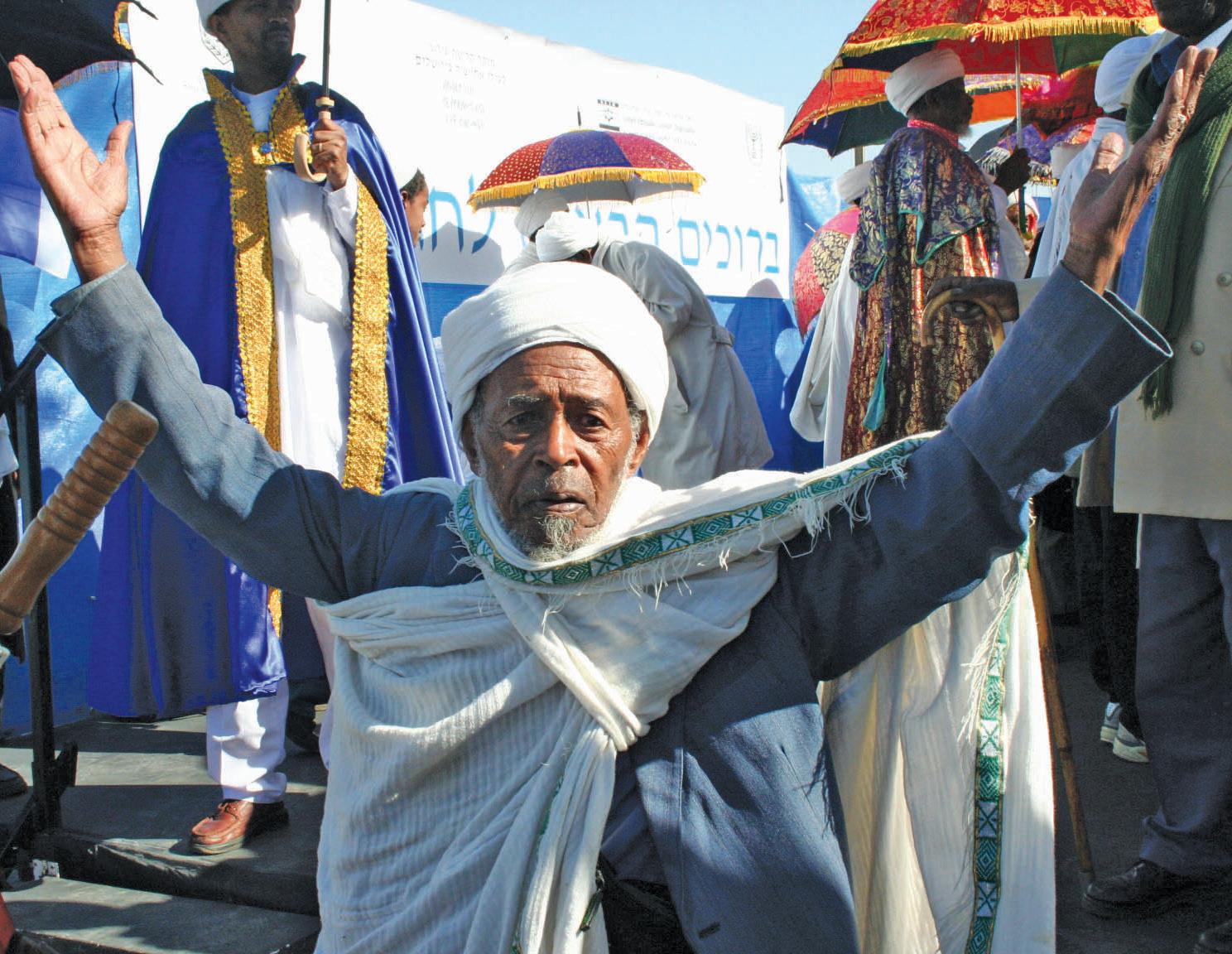
Ethiopian Jews, who lived in isolation from other Jewish communities for centuries, developed unique holidays including Sigd, which celebrates when Moses first encountered God. To mark this holiday, Congregation Beth David will host a Shabbat service with music by Renee Benmeleh featuring melodies from Jewish African communities, a happy hour with Israeli wines and appetizers, and a vegetarian potluck dinner.
5:30 Friday, Nov. 22, at Congregation Beth David, 19700 Prospect Road, Saratoga. Free, RSVP required. tinyurl.com/bd-sigd
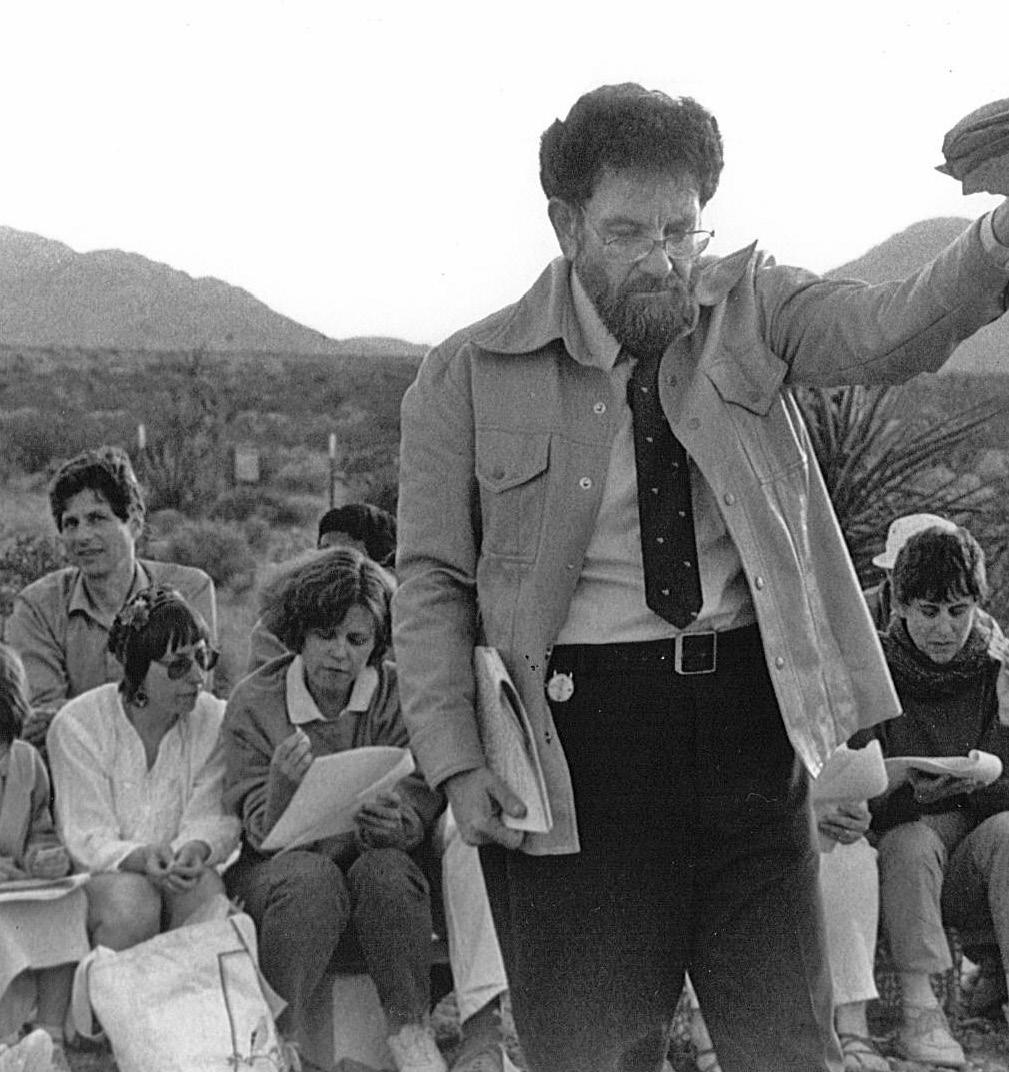
SUNDAY | November 17
“REVELRY”—Participatory concert with queer Jewish musician, educator and activist Molly Bajgot, with Jewish liturgical tunes and original songs. Presented by Urban Adamah, the Sacred Music Fellowship, Netivot Shalom, Beth El, Nigun Collective, Moishe House Rockridge and Kol: A Retreat for Jewish Music Across the Diaspora. At Urban Adamah, 1151 Sixth St., Berkeley. 6-7:30 p.m. $18-$36, sliding scale. tinyurl.com/revelry-concert
MONDAY | November 18
HOLOCAUST SURVIVOR BAND—Musician and Holocaust survivor Saul Dreier performs with his klezmer band of fellow survivors. Also Nov. 19 in Santa Cruz and Nov. 20 in Pleasanton. At the Morgan Hill Community and Cultural Center, 17000 Monterey Road, Morgan Hill. 7 p.m. $15. jewishmh.com/survivor
“FIDDLER ON THE ROOF”—Classic musical set in the fictional Jewish shtetl of Anatevka. Runs approximately three hours with one intermission. Through Nov. 24. Presented by Palo Alto Players. At Lucie Stern Theater, 1305 Middlefield Road, Palo Alto. $20-$63. Times vary. paplayers.org
SATURDAY | November 23
“DESERT WIND”—Full stage production based on the true story of a Jewish Yeminite couple trapped by the Houthi takeover; one was held and tortured, the other escaped into the unforgiving desert. Starring Assaf Cohen of “Fauda” TV series; music by Rebbe Soul. Also two performances Nov. 24. Presented by American Jewish Theatre and JIMENA. Livestream available. At Potrero Stage, 1695 18th St., S.F. 7 p.m. tickets.playground-sf.org
SATURDAY | November 16
“JEWISH SINGLES MINGLE”—Event for Jewish singles ages 30-45 to meet and mingle. With art, wine, music, food and raffle for private wine tastings. At TINT Gallery, 149 Gough St., S.F. 7-9:30 p.m. $35, with registration, includes raffle ticket. tinyurl.com/jewish-singles
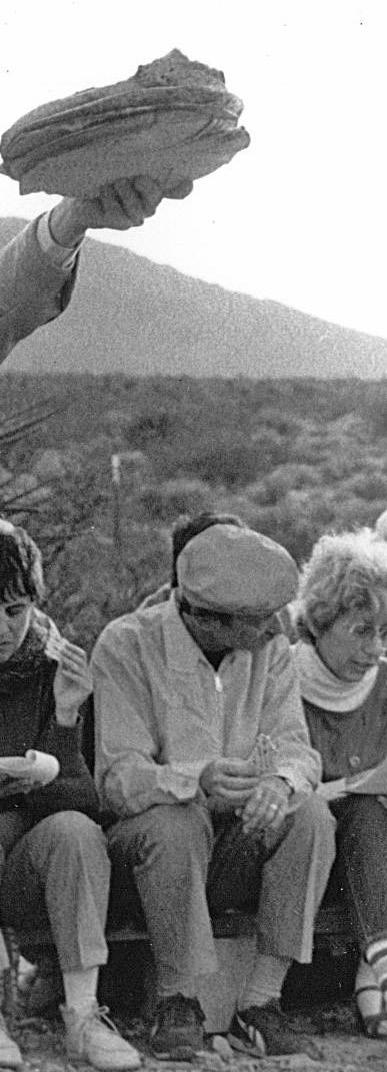
SATURDAY | November 16
“KIDNAPPED: THE ABDUCTION OF EDGARDO MORTARA”—Historical drama about a Jewish boy living in Bologna, Italy, who after being secretly baptized in 1858 was taken from his family by the Papal States to be raised as a Catholic. In Italian with English subtitles. Followed by discussion. At Congregation Beth Am, 26790 Arastradero Road, Los Altos Hills. 2:30-5:30 p.m. Free. tinyurl.com/kidnapped-film
TUESDAY | November 19
“THE ROAD TO EILAT”—Aging war veteran makes a drunken bet that he can drive his old tractor across the length of Israel in one week. In Hebrew with English subtitles. Part of Sonoma County Jewish Film Festival. At Rialto Cinemas, 6868 McKinley St., Sebastopol. 1 and 7 p.m. $13.75, $11.75 seniors and kids. tinyurl.com/film-festsonoma


SUNDAY | November 17
“ALAMEDA HOLIDAY FEST”—Temple Israel of Alameda presents more than 40 local vendors and artists selling apparel, artwork, confections, fused glass, greeting cards, honey, jam, jewelry, soap, Judaica and more. At Temple Israel, 3183 Mecartney Road, Alameda. 10 a.m.-4 p.m. Free admission. tinyurl. com/alameda-holiday
STUFFED ANIMAL AND TOY DRIVE—
Oshman Family JCC is collecting new stuffed animals and toys and $25 gift cards to Amazon, Safeway or Target on behalf of children that have been impacted by domestic violence. Donations benefit Next Door Solutions to Domestic Violence. Through Dec. 10. Drop donations at collection bins in the fitness center lobby at Oshman Family JCC, 3921 Fabian Way, Palo Alto. paloaltojcc.org
This event will celebrate the publication of “Living in the Presence: A Personal Quest for the Baal Shem Tov” by Rabbi Burt Jacobson, the founder of Piedmont’s Kehilla Community Synagogue who died in June. Speakers include his life partner Rabbi Diane Elliot, Jon Sweeney of Monkfish Book Publishing Company, Rabbi Wayne Dosick of San Diego’s Elijah Minyan and Zvika Krieger of Berkeley’s Chochmat HaLev. Presented by several congregations and organizations, including Kehilla.
7 p.m. Saturday, Nov. 23, at Kehilla, 1300 Grand Ave., Piedmont. 7 p.m. Free. Online streaming available. tinyurl.com/living-presence
Rabbi Burt Jacobson protests at a Nevada nuclear test site on April 12, 1987. (PHOTO/TAMAR KAUFMAN)
THE GIVING KITCHEN—Seeking volunteers to cook meals for those in need at Chabad’s kosher community kitchen. At Chabad of SF, 496 Natoma St., S.F. Times vary. Registration required. tinyurl.com/ giving-kitchen
CLOTHING DRIVE—Congregation
Sha’ar Zahav is collecting blankets, jackets, and new or lightly used clothing and socks to be distributed to the homeless by the Gubbio Project. At Sha’ar Zahav, 290 Dolores St., S.F. Weekdays 9 a.m.-5 p.m. shaarzahav.org
SUNDAY | November 17
“1,000 PETALUMA BOWLS”—B’nai Israel Jewish Center is looking for participants for Petaluma People Services Center’s annual project painting bowls to raise money to combat hunger. At B’nai Israel Jewish Center, 740 Western Ave., Petaluma. 1:30-3:30 p.m. $20 donation, all proceeds benefit PPSC. tinyurl.com/1000-bowls


MUSIC | LAURA PAULL | J. STAFF
If the dream of Arab and Jewish Israelis making beautiful music together seemed idealistic two decades ago, just imagine that prospect today.
But that is exactly what Bay Area audiences will hear when the Nazareth-based Polyphony Ensemble performs two concerts in December, thanks in part to the foundations laid by the Arab Israeli violinist and educator Nabeel Abboud-Ashkar.
The concerts — set for Dec. 5 at the Oshman Family JCC in Palo Alto and Dec. 7 at Congregation Emanu-El in San Francisco — will feature Haydn’s String Quartet Op. 76, No. 2 (“Quinten”), arias by Vivaldi and Handel, and a selection of popular songs in Hebrew and Arabic sung by Israeli Jew Maya Belsitzman, who will accompany herself on the cello.
The ensemble is composed of a string quartet, two singers and guest harpsichordist Gordon Haramaki. All of the Polyphony performers are professionals, AbboudAshkar said, except for two “super talented” recent high school graduates. One of them is Arab Israeli Door Sassine, a classically trained opera singer now studying at the Jerusalem Music Academy.
“It’s very interesting when you have a mix of almost-professionals with professionals. There’s a special energy,” AbboudAshkar said, promising a “very high level” of musical performance.
The cultural harmony displayed in this and other Polyphony performances is the result of AbboudAshkar’s own journey growing up as an Arab child in Israel whose life was shaped by the power of music to bridge divides.
Harvard’s Kennedy School.
Abboud-Ashkar was born in Nazareth to Arab Israeli parents who were passionate about classical music. Saleem, his older brother, studied piano, while Nabeel showed talent in violin by the age of 8. They had to travel two hours to Tel Aviv for lessons and found few friends in their Nazareth neighborhood who understood the world they had entered.
“When I was 12, 14, 16 years old in Nazareth, it was a completely different reality than today,” Abboud-Ashkar recalled of the early 1990s. “The fact that I had music gave me the way to feel that I was part of something bigger than myself and my hometown. But the idea of traveling or studying abroad was rare. I was one of very few people from my hometown to do that. Music made that possible for me.”
Abboud-Ashkar earned degrees in music and physics at Tel Aviv University and a master’s degree at the Hochschule
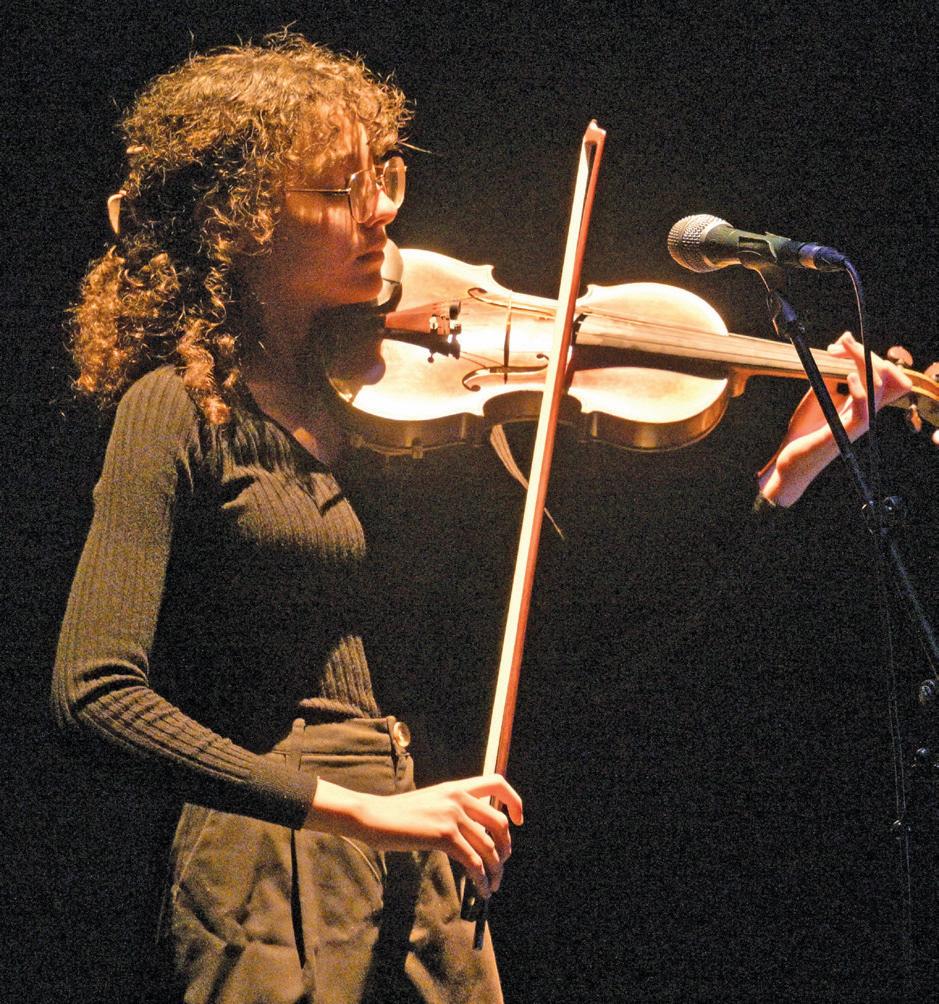
Ahead of the December concerts, the 46-year-old musician told J. about this path and why he remains committed to creating common ground, even in the wake of the Oct. 7, 2023, Hamas massacre in Israel and the ongoing war. He spoke over the phone from Cambridge, where he is working on a master’s degree in public administration at
für Musik in Rostock, Germany. His brother studied professionally in London and Hanover, Germany, and is now a world-class concert pianist.
Abboud-Ashkar is also a celebrated performer. In 2006, however, he decided to return home from Germany to direct his career toward building a classical music community in and around Nazareth, the
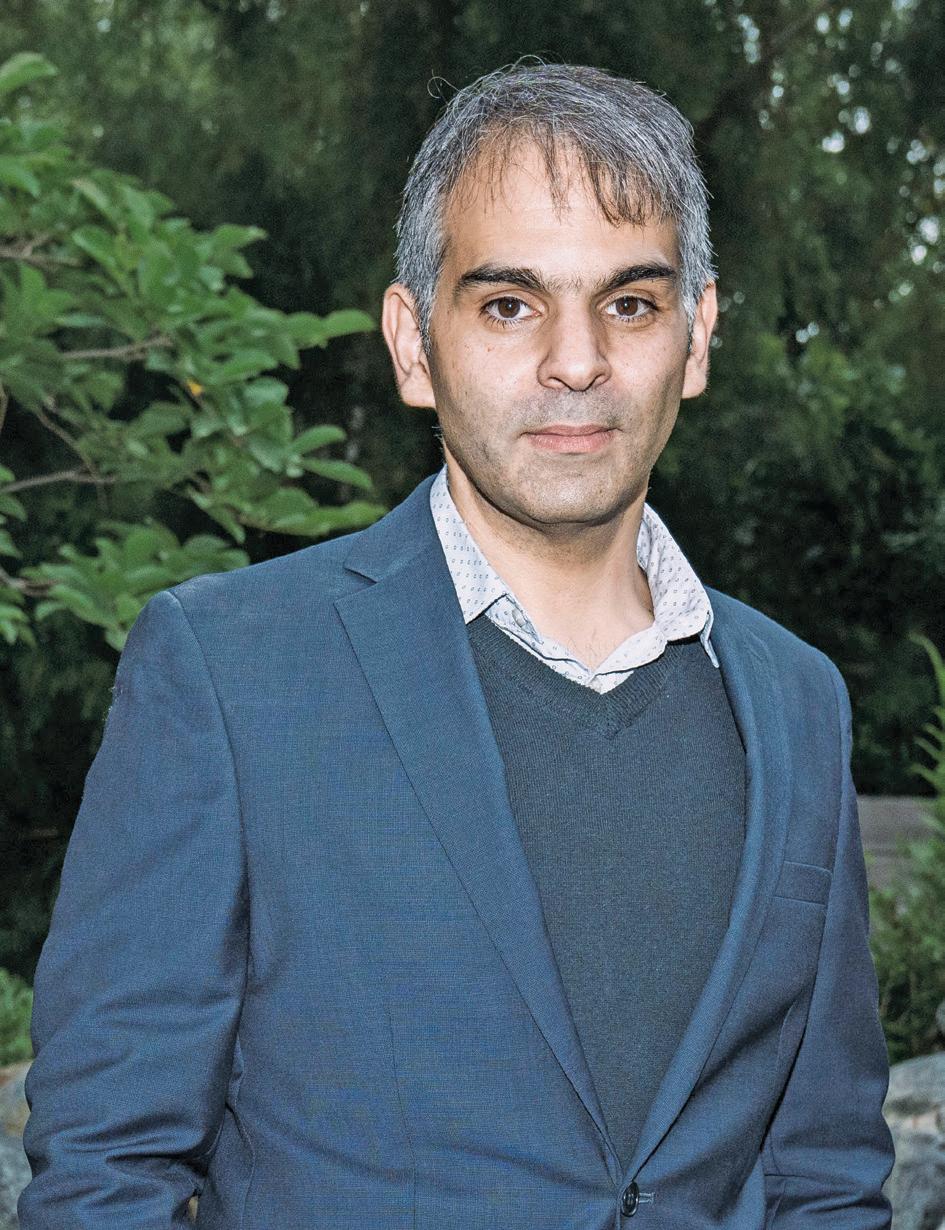
(COURTESY)
center of commercial and cultural life for Arab citizens of Israel.
“I took my musical knowledge and invested it into a social enterprise,” he said.
But there was more to his vision than providing musical training for Arab Israeli youth: He also believed that Arab and Jewish Israeli youth — as well as the broader society in which they lived — should study, play and hear classical music together.
Why classical music? What is the basis for his reverence for an art form rooted in Western Europe and a musical language developed centuries ago?
Abboud-Ashkar, particularly in his work as an educator, speaks to this question endlessly.
For one thing, he said, “classical music opens a window onto the world.”
Mozart, Mendelsohn, Bach and Brahms come from outside the Middle East, so when young people — Jewish, Arab or otherwise — study this music, he said, they find in it equal entry and affinity.
“This is why it has been so powerful when it comes to bringing Arab and Jewish people together,” he said. “It already provides a
“What we do today is even more important — not because we are able to fix things, but because of what we stand for.”
Nabeel Abboud-Ashkar, co-founder Polyphony Conservatory
common ground.”
While learning to appreciate the aesthetic value of classical works, he explained, “students develop a strong sense of discipline and persistence.” And when you play in a string quartet or an orchestra, “it’s about how you are a member of a bigger group, how you communicate and work with others, how you listen to them and they to you, your responsibility toward the collective. It instills these values that are important for an individual and are very important for society to function.”
Argentinian Israeli pianist and conductor Daniel Barenboim and the late Palestinian American scholar Edward Said shared his aspirations. Their vision resulted in the founding of the Barenboim-Said Conservatory in Nazareth in 2006 and the West-Eastern Divan Orchestra, which is based in Spain and employs both Jewish and Arab musicians. Abboud-Ashkar was among the first members of the orchestra and played with it for a decade.
In 2012, American couple Craig and Deborah Cogut helped Abboud-Ashkar found the Polyphony Foundation in the U.S. and Polyphony Education in Israel. The Barenboim-Said Conservatory then became the Polyphony Conservatory.
Today, the “music teachers drive to meet students in Nazareth, so they can have the opportunity in their hometown. And that has created the community that I wish I’d had when I was growing up,” he said.
continued on page 54
In 2015, Yemen was in shambles. The Iran-backed Houthis seized control of the western part of the country, including the capital city of Sanaa. The rise to power of the fiercely anti-Israel and antisemitic extremists moved the Jewish Agency for Israel to help 19 of the last 100 or so Jews in Yemen escape to the Jewish state.
Two of the Jews who stayed behind were an Israeli couple of Yemenite descent who had come to Yemen with forged papers to work as teachers; Yemen and Israel have no formal relations.
Their decision to stay led to tragedy. The Houthis captured the husband, imprisoning and torturing him to death. Just before he was killed, his wife managed to escape through the desert and made her way back to Israel, where she lives quietly today.
Their story, which has not been made public until now, is the basis for “Desert Wind,” a new play by the Los Angeles-based American Jewish Theatre that will debut at the Potrero Stage in San Francisco this month, as part of playwright incubator PlayGround’s Innovators Showcase.
“Desert Wind” was written by Stephanie Liss, a longtime screenwriter turned playwright whose writing credits include the Emmy-nominated television movie “Second Serve: The Renee Richards Story,” starring Vanessa Redgrave.
After a cancer scare nearly 30 years ago, Liss turned to Torah study and decided to focus solely on Jewish stories in her playwriting career.
“I look at the cancer as HaShem giving me a break and showing me the way I should walk,” Liss told J. “And I did.”
She formed the American Jewish Theatre in January as a vehicle for plays designed to fight antisemitism. “Desert Wind” is the second in a five-part series of plays called “Revolution for a Jewish Life.” All five deal with personal stories of Jews forced to leave Arab lands. The first play, “Escape from Tehran,” was produced last year before AJT was formally established. Future plays will focus on Jews in Lebanon, Syria and Iraq.
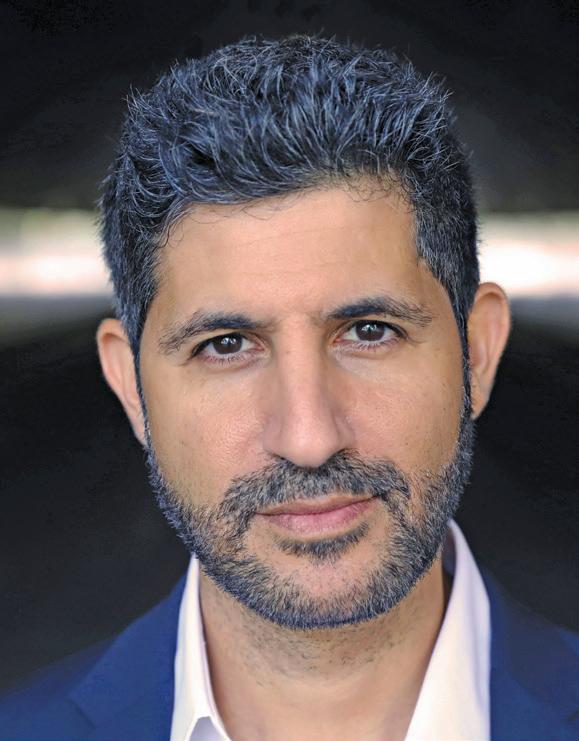
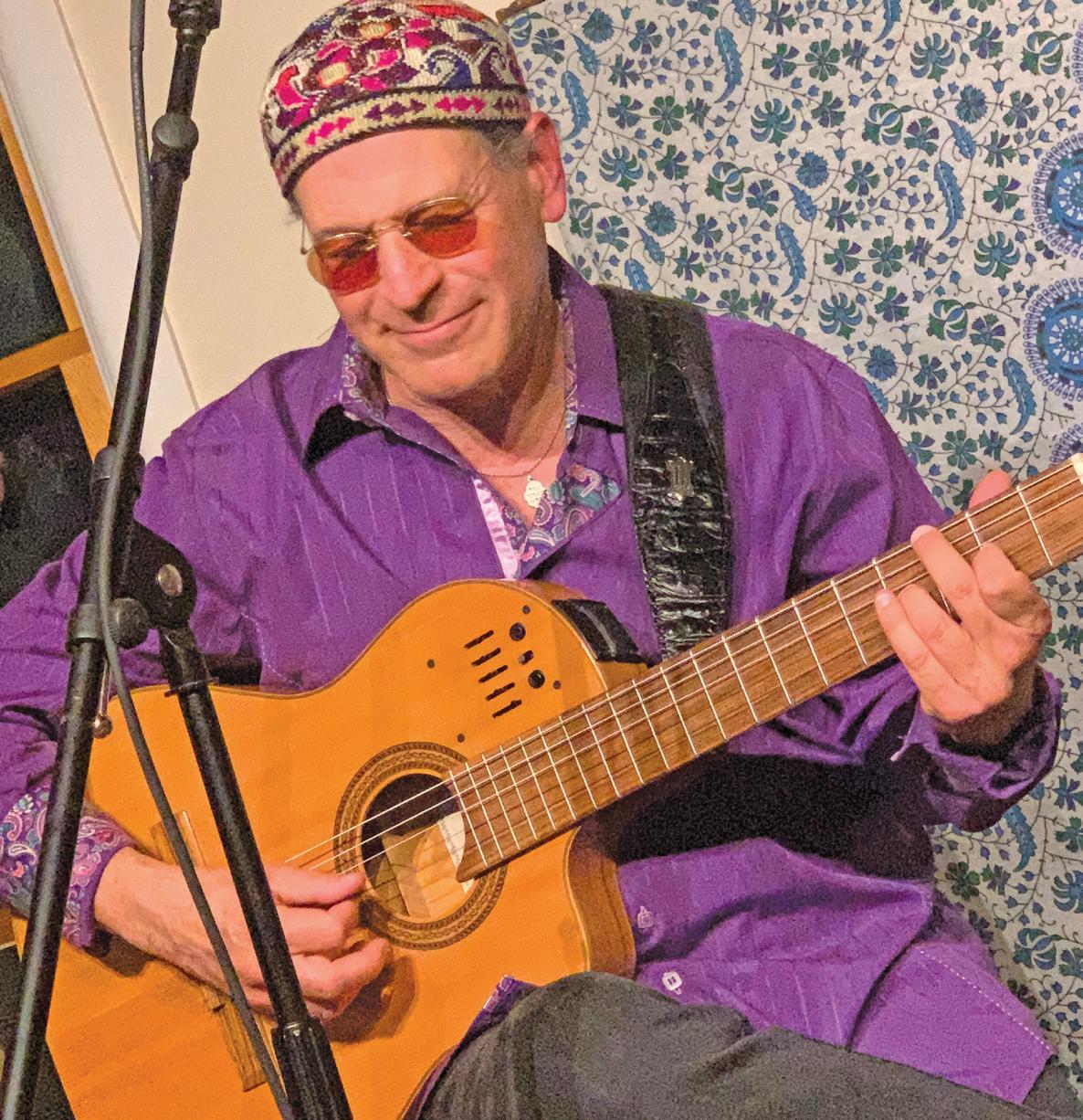
Liss said. “We were at the same table. She wasn’t talking about how she lost him or what had happened, but there was something, you know, you get that little voice that says: ‘Something happened here.’ And I started talking to her, and she told me his story.”
After the husband was arrested, turned in by one of his students for allegedly “corrupting a Muslim boy,” Liss said, his wife stayed behind as long as she could. “She wouldn’t leave her husband.”
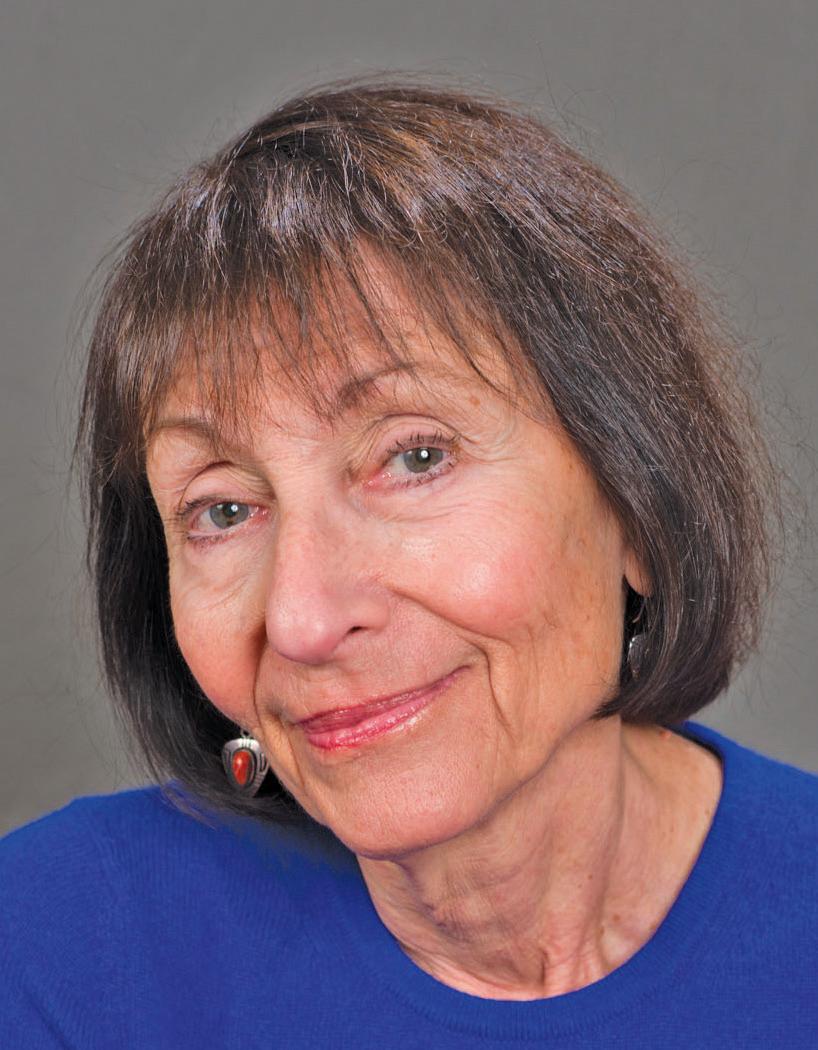
“Doing all of this is my way, our way, of standing up,” Liss said. “We are showing people who we are. I’m telling the stories of our people that have never been told, not really. It’s a huge responsibility because I’m Ashkenazi, but I know that world. I’ve spent enough time in that world, enough that it just kind of pours out.”
Liss came upon the plot for “Desert Wind” last year at — where else? — a Shabbat dinner in L.A.
“I met a Yemenite woman who had lost her husband,”
But the couple had two children back in Israel, so she eventually made the painful decision to cross the desert and return home. Liss will not reveal the couple’s names to
“You get that little voice that says, something happened here. And I started talking to her, and she told me his story.”
Stephanie Liss, playwright
protect the safety of the woman and her children.
In 2021, most of the rest of the Jews were spirited out of Yemen, the remnants of a once-proud and ancient community. The Houthis’ aggressions have now spread beyond Yemen’s borders, though. Since the Oct. 7, 2023, Hamas massacre in Israel, the Houthis have repeatedly launched missiles and drones at Israel, as well as attacking international ships in the Red Sea.
Liss’ play stars Palo Alto native and actor Assaf Cohen and Broadway actor Stephanie Satie. It features original music by Oakland resident Bruce Burger, aka RebbeSoul, an internationally known writer, performer and producer
of Jewish music. Burger has worked with Liss on several productions, beginning with his original score for “Sister Africa” in 2017, which highlighted the work of Jewish World Watch in the Congo. “Desert Wind” will mark his first time playing a character in one of her plays.
“I’ll be wearing a jalabiya [Arab caftan] and playing a cümbüş saz,” a Turkish stringed instrument somewhat like a lute, he said. “I’ll be wandering around the stage like Father Time, kind of a muse.”
Burger will set the mood of the play with his intro music, he said. “It’s ‘Eshal Elohai,’ a Yemenite song which, roughly translated, means ‘We beseech you, God, to free all those in captivity.’ And I thought, that’s very appropriate. And it’s Yemenite, so it’s perfect.”
“Desert Wind” will be staged on Nov. 23 and 24 through PlayGround, a 30-year-old playwright incubator and theater community hub in San Francisco whose Innovator Incubator program supports new playwrights and theater companies, particularly those highlighting the stories of historically excluded and marginalized communities. The eight members of this year’s group will all present their work in November and December as part of the 2024 Innovators Showcase
When PlayGround artistic director Jim Kleinmann received Liss’ application to join this year’s group, he didn’t hesitate to accept her.
Not only does “Desert Wind” fit the incubator’s mission of focusing on marginalized communities, he said, but before he co-founded PlayGround in 1994, he was managing director of A Traveling Jewish Theatre, the longtime experimental theater company based in S.F.
“So this was obviously very close to my heart,” he said.
“The incubator program is a perfect fit” for the American Jewish Theatre, he added. “We help her build her capacity and help build connections to the Jewish community, which is my own history.”
Kleinmann also looks forward to connecting again with Cohen, who appeared in one of the very first Playground productions 30 years ago. “It will be a really fun reunion,” he said.
What does Liss hope audiences take away from this show and the others in her “Revolution for a Jewish Life” cycle?
“I want the audience to understand what is really happening with Jews right now. Nobody cries over the Israelis. Nobody cries over the Jews. And this bothers me,” she said.
“We’ve been driven out of every Arab country in which we’ve ever lived, or we’ve been forced to flee. People don’t know that. Jews don’t even know that. This theater is our way of saying we are here. These are our stories. Come on this journey with us. I want Bruce’s music to get in their kishkes. And I want them to understand that this is happening right now.” n
“Desert Wind” 7 p.m. Nov. 23 and 2 p.m. and 7 p.m. Nov. 24 at the Potrero Stage, 1695 18th St., S.F. Tickets are free but should be reserved ahead of time for in-person or streaming options. tickets.playground-sf.org
MUSIC | ANDREW GILBERT | CORRESPONDENT
A word to the wise. If Saul Dreier shares an idea that sounds outlandish, get out of his way.
For instance, no one thought that starting a band of fellow Holocaust survivors on the cusp of his 90th birthday made sense.
Not his wife. “She said in Jewish, ‘That’s meshuggah,’” he recalled.
And not his rabbi. “He said, ‘Saul, you’re almost 90 years old. You’re retired. Why do you need this? You’re crazy,’” Dreier said on a recent phone call between errands near his Florida home in Coconut Creek, about 40 miles north of Miami.
Precisely because these closest advisers told him it was crazy, he decided to do it, as he recounts in a 2020 documentary film by Tod Lending, “Saul and Ruby’s Holocaust Survivor Band.”
Still irrepressible at 99, Dreier has proved his wisdom in following his own council. Acquiring a drum kit, he launched the Holocaust Survivor Band, a group that has entertained and educated thousands of people around the country with a repertoire of klezmer music, Hasidic melodies and liturgical themes interspersed with harrowing tales from the dark years of the Shoah.
Later this month, Dreier will perform around Northern California with a klezmer combo led by Israeli-born clarinetist Asaf Ophir, who now lives in the Bay Area. The concerts, organized through Chabad centers and billed as “Survival Through Song,” are set for Nov. 18 at the Morgan Hill Community and Cultural Center in Morgan Hill, Nov. 19 at Cabrillo College in Aptos and Nov. 20 at Chabad of the Tri-Valley in Pleasanton.
The initial inspiration to form a band came when he heard about Czech-born Israeli classical pianist Alice Herz-Sommer, a Holocaust survivor who played daily almost until her death in 2014 at the age of 110.
“She was a piano player in Theresienstadt,” Dreier said, referring to the concentration camp in German-occupied Czechoslovakia that the Nazis used as a front to convince international organizations like the Red Cross that prisoners were treated well. “When she passed away, I thought I’d like to play in her honor.”

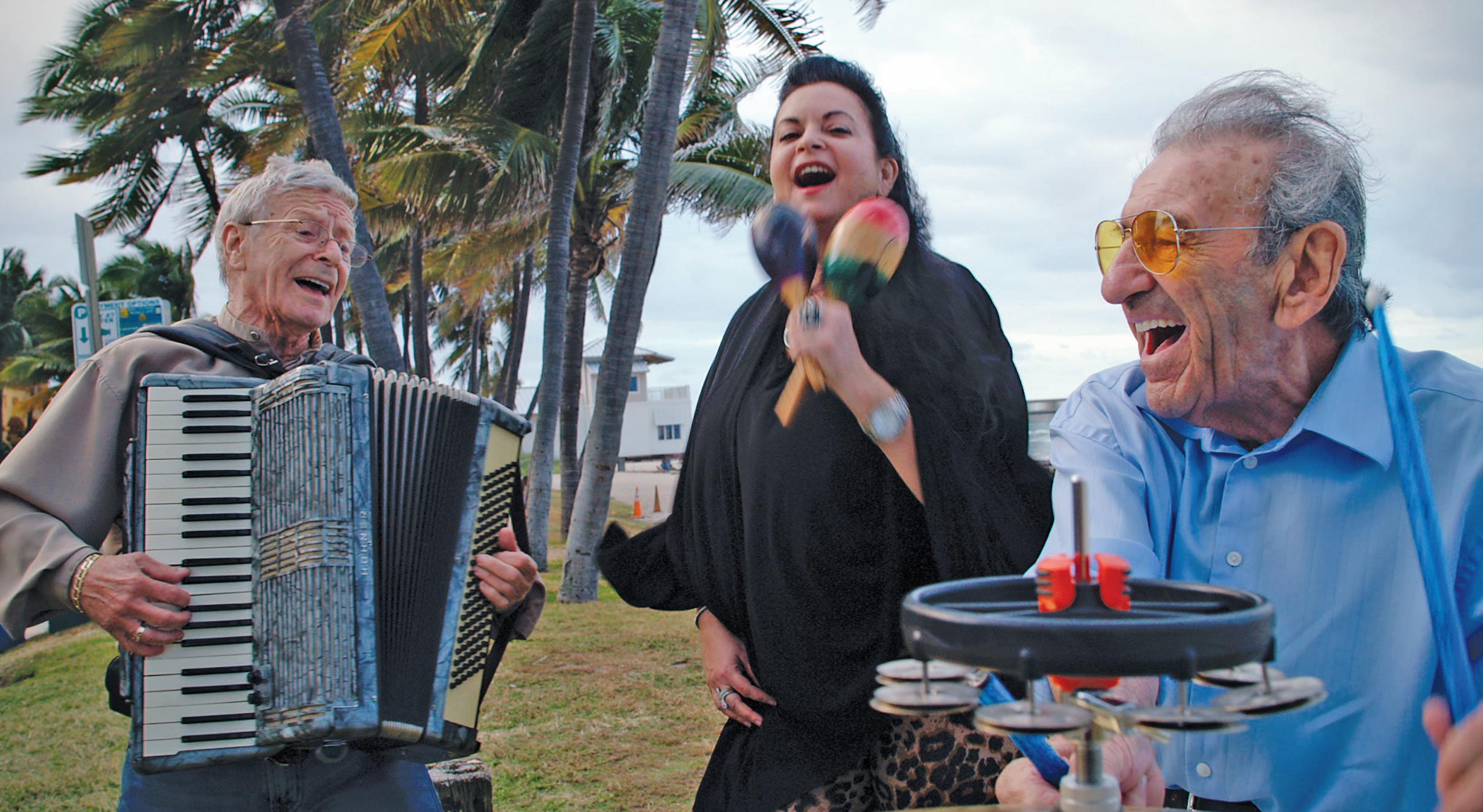
to accompany them on make-shift percussion.
Like Herz-Sommer, who said that “music saved my life and music saves me still,” Dreier has found new motivation and meaning in his late-blooming passion.
“Without music I wouldn’t be alive today,” he said. One reason he faced resistance from his wife and rabbi was that Dreier hadn’t laid down so much as a triplet or a paradiddle for six decades. Though his father was a musician who played saxophone, clarinet and piccolo, Dreier didn’t do any performing until he was in the Plaszow labor camp during the war repairing radiators for Germans planes in a factory run by Oscar Schindler.
A close friend, a cantor, led some men in liturgical song sessions after a shift, and Dreier procured two metal spoons
He was later sent to the Mauthausen camp and then to the Linz camp where labored as a welder in the Haubwergstate factory. After the war, he spent years in a displaced persons camp in Italy, where young people passed time by singing. Eventually a truck delivered a piano and a set of drums.
“An English officer said ‘I’ve got two instruments. Who plays piano?’ and maybe a dozen volunteers put up their hands,” Dreier said. “‘Who plays drums?’ Everybody sitting quiet. I said, ‘I would like to play the drums,’ and I started to learn how to play. But when I came to America I didn’t play for 60 years.”
With the death of Herz-Sommer, who was thought to be the oldest Holocaust survivor, Dreier knew he wanted to do something to honor her and other survivors. But even in
“Without music I wouldn’t be alive today.”
Saul Dreier
crossing the first item off his list, buying a drum kit, he faced skepticism.
At a local Sam Ash music store, his back and forth with the manager went like this: “‘I’d like to buy a set of drums.’ ‘What are you going to do with them?’ ‘What do you care? Play them.’ ‘But you’re an old man.’ ‘Yes, but I’ve got fresh money.’”
They managed to fit the drum kit into his car. When he arrived home, he coaxed his wife, Clara, downstairs by telling her he’d got her a present. She wasn’t pleased. “‘Gevalt! Either you go or the drums go.’”
It didn’t take long for Clara, who passed away in 2016, to relent and let him bring the drums into the house. He hasn’t skipped a beat since, performing around the world, raising awareness about Holocaust survivors and their experiences, and racking up numerous news stories and the 2020 documentary, which can be streamed for free on Amazon.
Still, most of the bandmates he recruited have passed away as the population of Holocaust survivors dwindles.
“We’re dying every day,” he said, even as the energy and strength of his voice suggest that he’s sticking around for a while. He was still buzzing from the gig he played the night before.
“I always play a couple of Hasidic tunes, but this was a Conservative place and we played ‘Avinu Malkeinu’ that I changed. I was conducting a nine-piece orchestra, so I turned my back to the audience and when we finished the song and I turned around, the whole congregation — 350 people — was crying.” n
Saul Dreier of the Holocaust Survivor Band
7 p.m. Nov. 18. Morgan Hill Community and Cultural Center, 17000 Monterey Road, Morgan Hill. $15. Advance registration required. jewishmh.com/survivor
7 p.m. Nov. 19. Cabrillo College’s Samper Recital Hall, 6500 Soquel Drive, Aptos. $25-$54, free for students. tinyurl.com/ chabad centers-survivor
7:30 p.m. Nov. 20. Chabad of the Tri-Valley, 3370 Hopyard Road, Pleasanton. $25. tinyurl.com/trivalley-survivor
MUSIC | LEA LOEB | J. STAFF
In a display of unity and compassion, four Jewish, Arab, Kurdish and Indian musicians from across the Bay Area will take the stage together in a benefit concert to support Israeli and Palestinian aid organizations. The concert, “Singing Together,” will be held at San Francisco’s Mission Dolores Basilica on Sunday, Nov. 24.
The event, which promises to be a powerful musical and cultural collaboration, will feature a lineup of artists with backgrounds spanning multiple genres — from Iranian classical to Middle Eastern folk to traditional Jewish, contemporary Israeli, modern jazz, Balkan and world music.
According to organizers Asaf Ophir, a Jewish Israeli clarinetist, and Catrene Malshey, a Christian Palestinian singer, the concert is more than just a fundraising effort. It is a call for solidarity in the face of ongoing conflict, with proceeds benefiting both Israeli and Palestinian aid organizations that provide humanitarian support to communities affected by the ongoing violence and displacement.
“After Oct. 7, I started participating in all sorts of dialogues between Jews and Palestinians, and talking to people, just people that I knew, trying to be open to conversations as much as possible,” said Ophir, who came to the Bay Area from Israel in 2014.
Through his conversations, Ophir found that unity and collaboration were key needs for both communities, so he came up with the idea of a benefit concert with participants
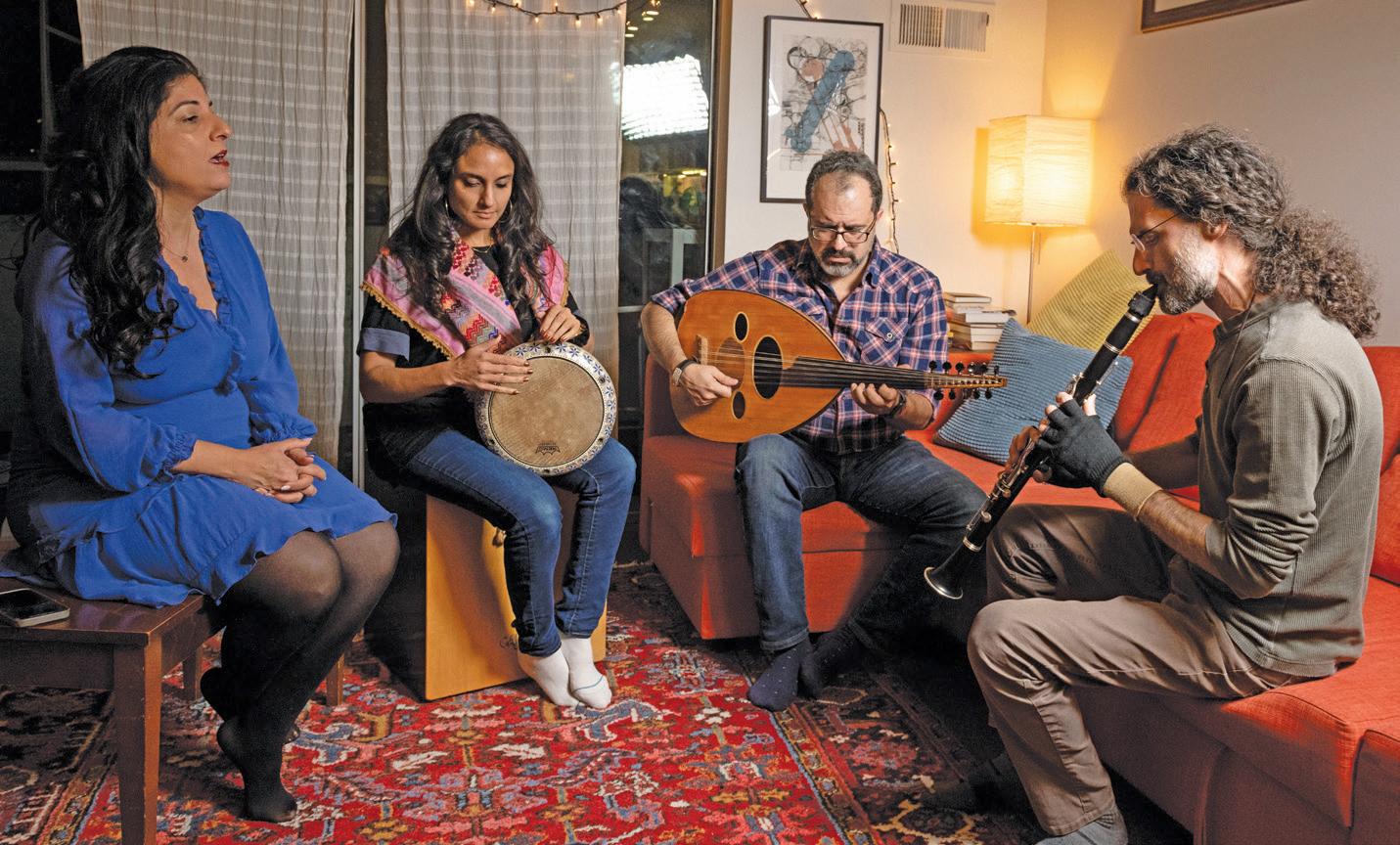
from both sides of the conflict, with the proceeds going to organizations aiding children and civilians.
“It took a while to find people who really had the same views,” he said. “When I say views, I mean the same kind of attitude toward the whole thing, which is just to try to
accentuate the positive and find common ground and build upon the common denominators that we have and look for things that we can do together in a positive way.”
Ophir met Malshey at a Middle Eastern music and dance camp in Mendocino, and the two quickly realized they not only had similar views, but both were actively looking to collaborate in the same way.
“Before him, I was approaching the Jewish community for concerts that are Arabic and Jewish, because my background is I’m Arabic, Christian, Israeli, Palestinian,” said Malshey, who came to the U.S. in 2002. “I grew up in Haifa and I speak all these languages and I’ve always wanted to do music with, you know … Jews are the group that are so-called ‘enemies,’ so I always love to bring continued on page 55
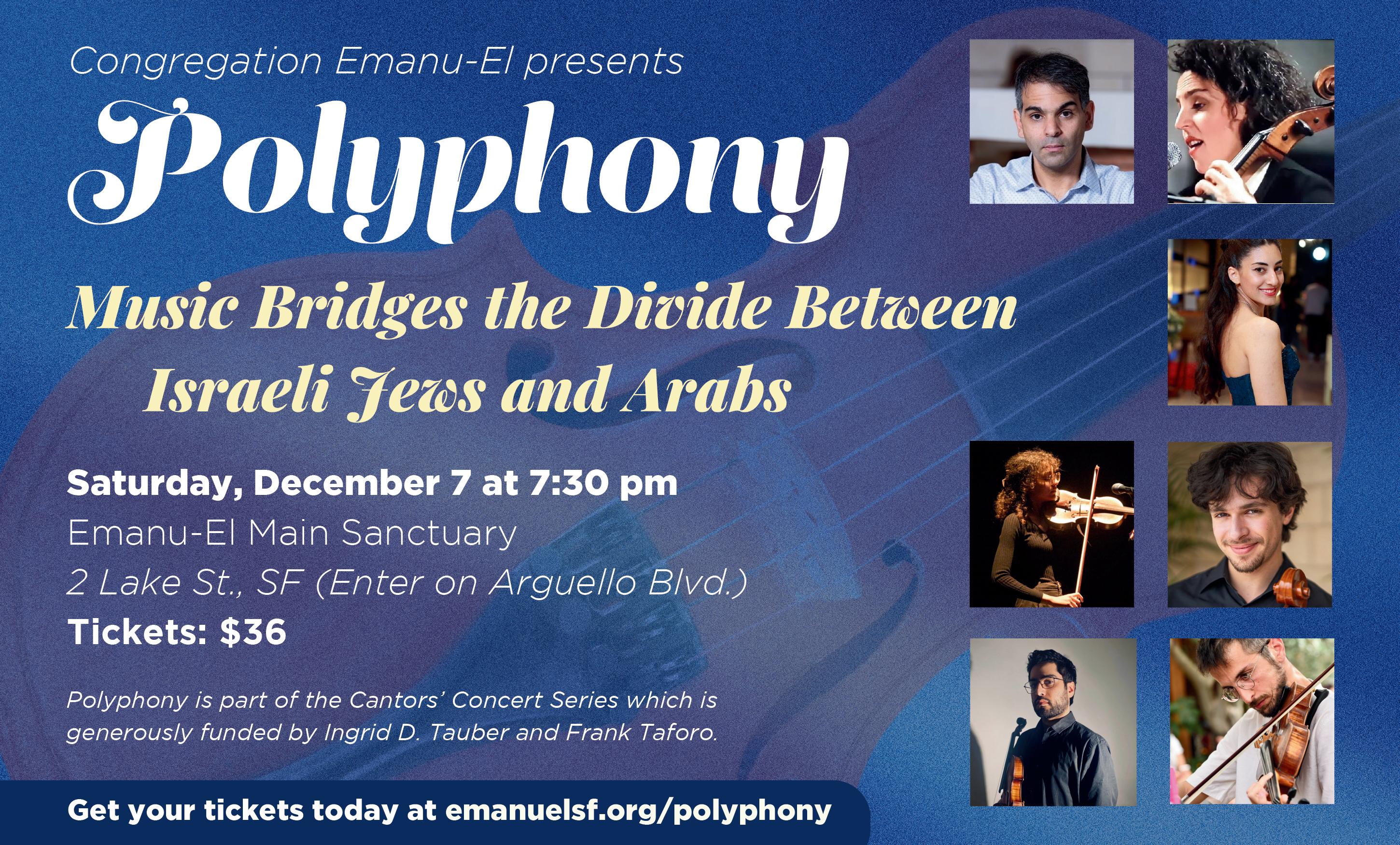
You’d think stand-up comedian Moshe Kasher would feel a bit of bravado about returning to the Bay Area this month to headline San Francisco’s Punch Line. Instead, the former Oakland resident finds it “more stressful” to play local comedy clubs.
“I’m so conscious about what material I did last time and what’s new and fresh,” he told J. “I do love the Bay Area and in particular the Punch Line because it’s where I started.”
Kasher, 45, will return to the club for a string of shows from Nov. 20 to 23. He won’t be telling jokes about the di erences between Hayes Valley and Noe Valley, though. Instead, he will focus on what he calls “crowd work,” engaging audiences in spontaneous — hopefully, hilarious — back and forth. It’s risky business for comedians, comparable to pulling o a high-wire act without a net, but Kasher has long experience with taking risks.
His 2024 memoir, “Subculture Vulture: A Memoir in Six Scenes” o ers proof, recounting his life-changing immersions in diverse realms, from plunging into the rave scene, Burning Man, professional comedy work and Alcoholics Anonymous to growing up as a hearing child of deaf parents who split up when he was a baby. His mother was a staunchly secular Jew while his father remarried into a Hasidic world.
“I knew I had these unusual gravitational pulls into [di erent] worlds and how these worlds don’t seem to fit together, like Burning Man and Hasidic Judaism,” he said. “ e big revelation of the book was that they fit together quite perfectly — in me.”
“Subculture Vulture” is a followup to his 2012 memoir, “Kasher in the Rye: e
“I believe what always turned me on about the groups I fell in with was doing things outside of the mainstream.”
Moshe Kasher
True Tale of a White Boy from Oakland Who Became a Drug Addict, Criminal, Mental Patient, and en Turned 16.” e new book eschews strict chronology and instead recounts periods of his life with long, deep commitments to various communities, each of which embraced him — mind, body and spirit.
“What’s interesting about subculture is that it’s … beneath the dominant,” said Kasher, who lives in the Los Angeles area. “I believe what always turned me on about the groups I fell in with was doing things outside of the mainstream, so in that way deafness and [Hasidic] Judaism qualify.”
Given that he was a teenage alcoholic who joined AA at 15, it’s miraculous he remained sober during his immersions in the rave scene, not to mention his years at Burning Man and comedy clubs.
Even Kasher isn’t sure how he did it.
“I have no idea how I stayed sober through this,” he said. “By the time I was six months sober, I realized I could do anything; I have the rest of my life. e drugs were secondary for me. I was looking for a life, not



for a contact high. e mission was to find a life outside this addictive cycle, so I got high enough on the art, the people, the weirdos.”
As for his Jewish upbringing, Kasher said he very slowly matriculated into understanding what Judaism was and is. For him, it turned out to be feast or famine. As a youth, he spent most of the year with his permissive, secular mother. But he spent summers on the East Coast with his father, who le the secular world behind when he married into the Satmar Hasidic community.
His older brother, David Kasher, is a rabbi and West Coast director of the adult education nonprofit, Hadar.
“I had a profoundly more and less Jewish experience than all my friends,” he said. “Ninety-nine percent of the time I was not Jewish at all. I never went to Jewish summer camp, no Jewish day school. But when I was Jewish, it was hyper-concentrated. I’m grateful to have had this bizarro experience because it created me. I found a way to have a
Jewish experience somehow through it all.”
Kasher avoided writing about Israel in the book, which he completed before the Oct. 7, 2023, Hamas massacre. When asked how would have cast his chapter on Judaism now, he said:
“I deliberately didn’t go into Israel and Zionism because it’s a giant Pandora’s box — not only for the reader but also for me. It was a complicated and conflicted feeling I had before Oct. 7, and more so a er. I think the only sane feeling to have is to be conflicted and heartbroken.”
Kasher hopes to sustain his career as an author and has considered writing fiction or perhaps a food book. He does wonder, though, whether he will ever again plunge so deeply into any subculture.
“Has my time expired?” he has asked himself. “ e journey of self-discovery is in some ways a journey of the young. I realized your excitement about a thing wears o . I would love to get swept up by something, but the good part of aging is [that] now is enough.”
Regardless, Kasher remains commi ed to exploring new interests.
“I’m passionate about surfing,” he said. “It’s the first thing I have dedicated a lot of time and energy to in awhile. But I’m very Jewish at surfing.” ■
Moshe Kasher performs six shows from Nov. 20 to 23. At Punch Line Comedy Club, 444 Battery St., S.F. $35-$48. tinyurl.com/punchline-kasher “Subculture Vulture: A Memoir in Six Scenes” by Moshe Kasher (Penguin Random House, 302 pages)
continued from page 50
To date, Polyphony has brought classical musical education to thousands of students, trained hundreds of teachers and demonstrated its impact in countless musical concerts performed locally, nationally and internationally.
At the apex of Polyphony’s multiple educational and performance programs is the Galilee Chamber Orchestra, founded in 2012 as the first professional chamber orchestra in Israel composed of both Arab and Jewish musicians. Today, with equal numbers of Arab and Jewish artists, the orchestra performs in major festivals and venues in Israel and abroad.
“It’s important, the orchestra, for ge ing the message out, not only abroad, but within Israel itself,” Abboud-Ashkar said.
Because for him, music is the language of a higher vision: of equality and coexistence between Jewish and Arab Israelis.
“ e mission of our work has been developing a shared society in Israel that is inclusive, based on respect and appreciation between minorities and majorities,” he said.
Since Oct. 7, 2023, sustaining that mission has been a profound challenge, he acknowledges. e events that day “shocked us,” he said. “We said: ‘We have to get engaged. We have a role here to play. We are part of Israeli society.’ We started finding ways to bring our music and message to evacuees who were displaced. But things got more complicated as time went on. e number of people killed and injured in Gaza, the number of rockets flying into Israel, put everything into a di erent reality.”
For example, a Galilee Chamber Orchestra tour set for Europe this summer was canceled due to security concerns and the ongoing war, according to Polyphony’s website.
As Abboud-Ashkar witnesses the growing extremism and polarization in the region, as well as in the rest of the world, “I sometimes have the feeling that our ability to impact what is happening is very limited,” he said, “and that the scale of the problem is so large at this point, that stating what Polyphony does is small compared to the scale of the destruction.”
But the music community he helped build has so far revealed its strengths.
“What we have seen in our immediate community is that their commitment to each other and to the values we hold is remarkable,” he said. ” is is where we draw our hope from.”
All of this will add layers of meaning to the performances that the ensemble will bring to the Bay Area and beyond, he said.
“In the face of all that is going on, what we do today is even more important — not because we are able to fix things, but because of what we stand for,” he said. “ ose li le candles lit are very important because if they are turned o , I don’t see any way we can have hope in the future. ose values are essential for our continuity. It will enable us to live as humans with each other.” ■
Polyphony Ensemble 7:30 p.m. Thursday, Dec. 5 at Oshman Family JCC, Bldg. F, 3921 Fabian Way, Palo Alto. $34. tinyurl.com/ polyphony-jcc. Also 7:30 p.m. Saturday, Dec. 7 at Congregation Emanu-El, 2 Lake St., S.F. $40. emanuelsf.org/polyphony. 415-7512535 The S.F. performance will be followed by a conversation between co-founder Nabeel Abboud-Ashkar and J. Editor-inChief Chanan Tigay.
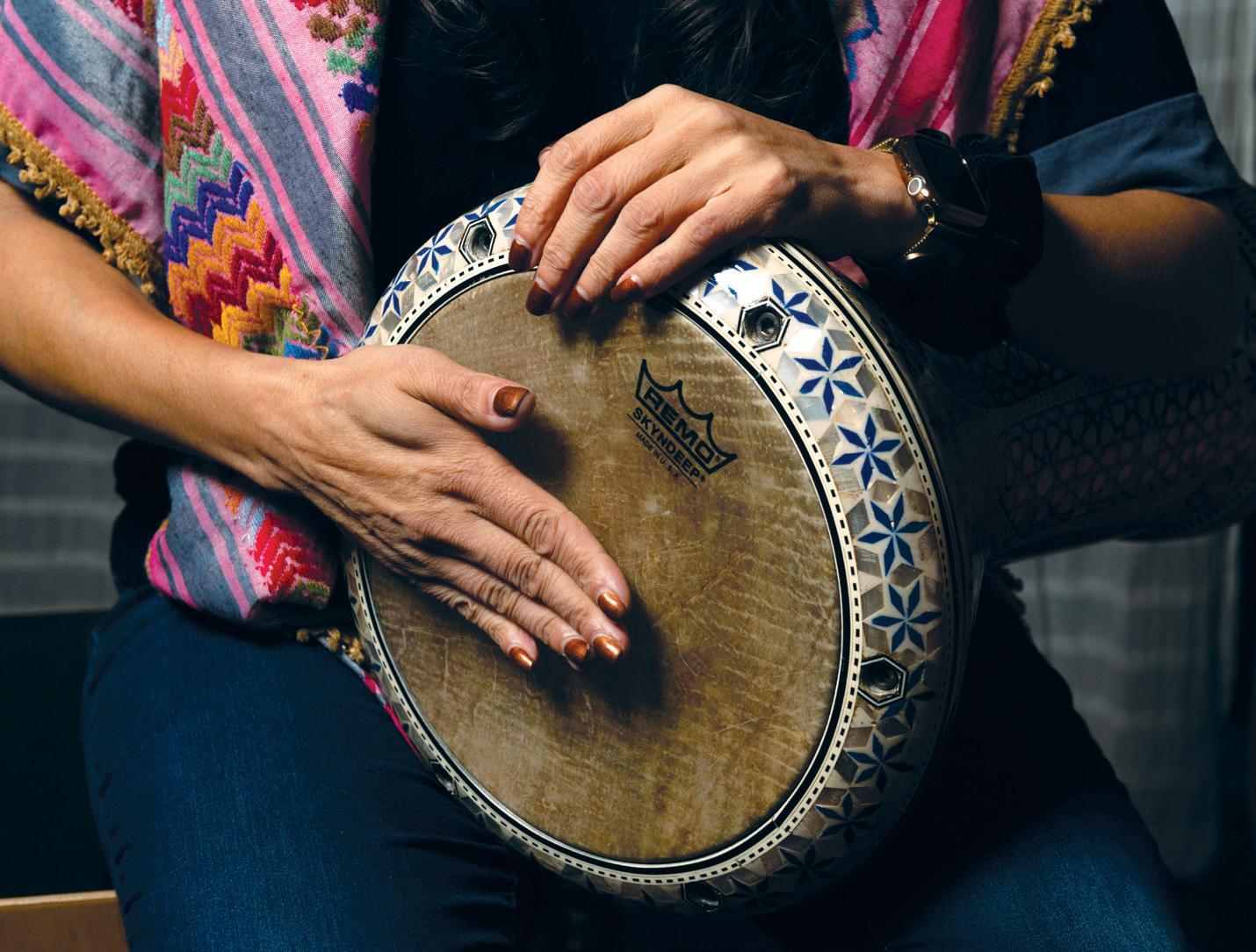
continued from page 53
people in conflict zones together through music.”
Malshey, who in addition to being a singer-songwriter works as a social worker, has regularly collaborated with Jewish and Israeli artists because she believes music can be a powerful tool to overcome division.
“I felt personally that this is the time to do this kind of concert. It’s time to change the conversation from brutality and people treating each other in such an inhumane way on both sides, and show people that actually, we can coexist,” said Malshey. “There are many of us that get along. We don’t fall into this story of animosity, and there’s a good percentage of us that see hope and see different roads to conflict resolution.”
In addition to Ophir on clarinet and Malshey on vocals, the two will be joined on stage by Kurdish Iranian oud and tar player Sirvan Manhoobi and Indian percussionist Mohini Vora. Manhoobi’s background is in Iranian, Arab, Turkish, Jewish, Balkan, Tajik and Afghan music. Vora plays the Egyptian tarabuka, Egyptian tabla, Egyptian tabla beledi, Turkish davul, frame drum and drum set. Together, the four musicians have selected a setlist of diverse songs from their respective traditions and worked to create unique renditions of classics.
“We wanted to choose music that was beloved for people who knew it, and familiar to people who knew it, and would be interesting for people who didn’t know it,” said Ophir. “So, for example, a song like ‘Eli Eli,’ which virtually everyone knows, we’re
going to be doing it slightly differently with an oud, and we’ll do it in Arabic as well, and bring some different perspectives to the same existing song.”
Proceeds from the concert will be distributed equally among several nonprofit organizations working on the ground in Israel and in the West Bank. Donations will go to Israeli Children’s Fund, which supports children in Israel regardless of race or religion who have lost one or both parents in the conflict, and to two sister organizations of Jewish and Palestinian women working to bring about a peaceful resolution, Women Wage Peace and Women of the Sun.
Ophir and Malshey hope that the concert will not only boost those organizations, but also impact the audience.
“I’ve seen that there is a magical power that is bigger than all of us that happens on stage, especially when we combine the Arabic and Hebrew and English and Israeli music, and then, we do a Palestinian song, and after it, would do Iranian songs or a combination of music from the Middle East,” said Malshey. “I’ve seen people moved by it, people get up and start dancing. I really can feel everybody’s heart opening. It’s sort of like energy that is so trapped right now, and music just helps to release it and then something bigger than all of us happens.” n
“Singing Together” 4 p.m. Sunday, Nov. 24 at Mission Dolores Basilica, 3321 16th St., S.F. $30 and up, with all proceeds to be distributed to the specified charities. Additional donations welcome. asafophir.com/singingtogether
We tell the story of Bay Area Jews like nobody else. J. covers the range of what it means to be Jewish today — from politics to culture, from religion to food, from local news to global trends. These are stories you will only find in J.
We’ve been here for 129 years, and we’re not stopping now.
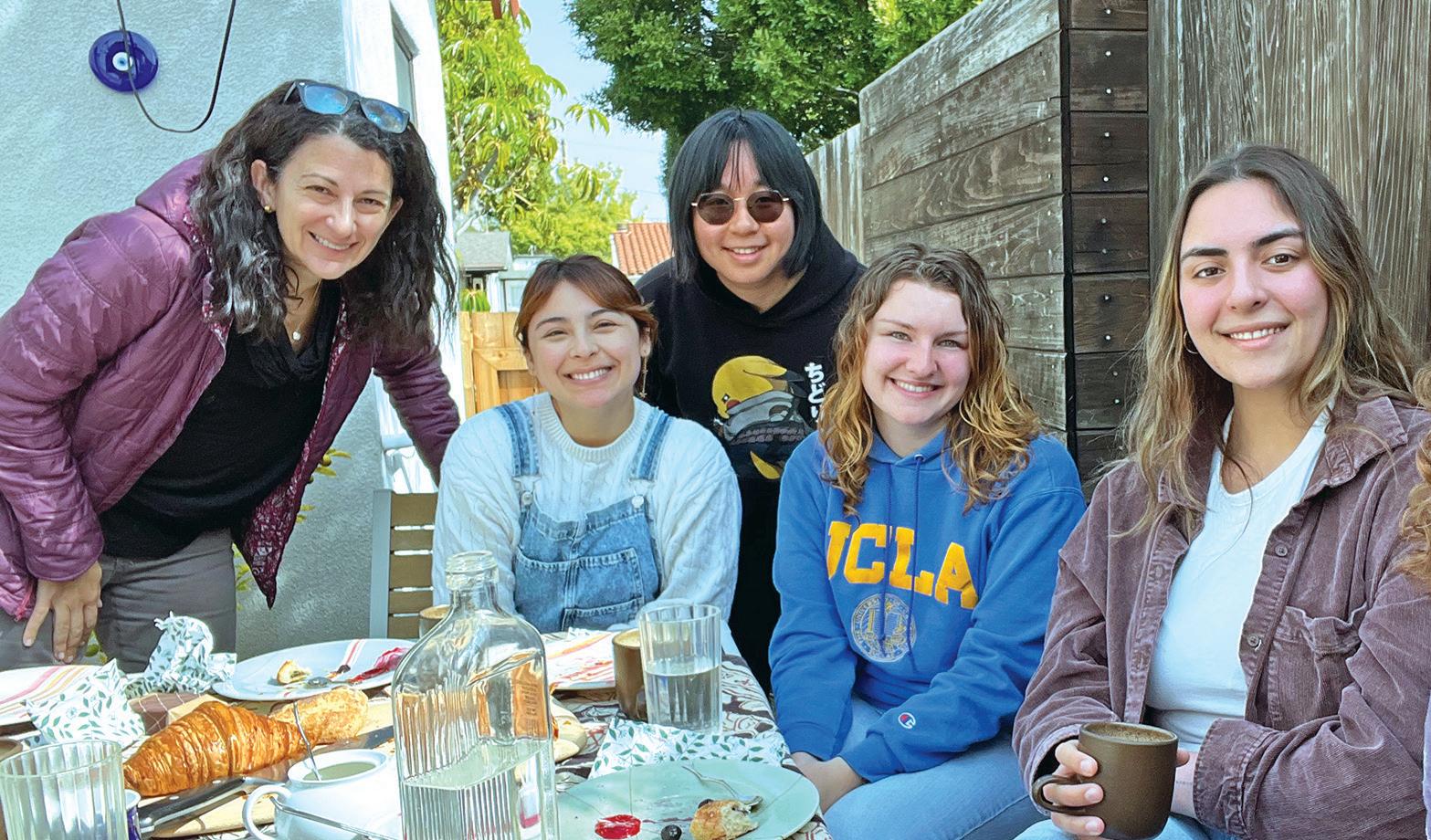
J. is an independent, nonprofit publication and relies on your donations. Say ‘yes’ to local Jewish journalism.
You can make your tax-deductible gift securely at jweekly.com/givetoday, scan the QR code below, or phone Allison Green, development director, at 415.796.0227.
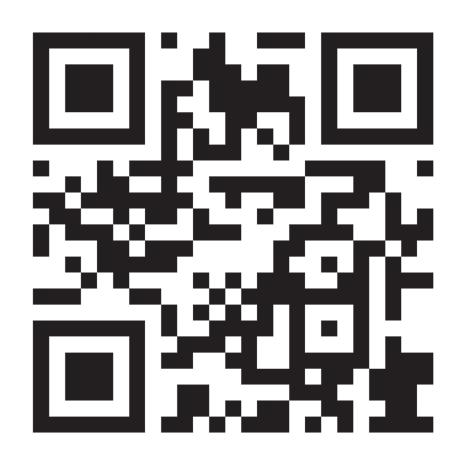
Our Employer Identification Number is 94-1089387 and we are listed as San Francisco Jewish Community Publications, Inc.
Our mailing address is: J. The Jewish News of Northern California PO Box 192604, San Francisco, CA 94119-2604
The Torah column is supported by a generous donation from Eve Gordon-Ramek in memory of Kenneth Gordon
TORAH | RABBI JESSICA ZIMMERMAN GRAF

Vayera Genesis
18:1-22:24
Once upon a time, our ancestor Abraham sat outside under the oak trees. It was a hot, hot day. Abraham sat near his tent, enjoying the shade and the view of Mamre. He looked up and saw three travelers standing next to him. Abraham’s compassion took over. You must be so hot and tired, he said to the travelers. I have much empathy for how you feel, and I can help. Abraham cares for the strangers, bringing them water and food and suggesting that they rest in the shade of his trees so they don’t overheat. How thoughtful of Abraham! He showed the best qualities of a generous host. From this story, we learn the Jewish value of hachnasat orchim — welcoming the stranger.
Abraham models this value beautifully, looking out for the strangers who suddenly appeared on his property. In fact, Abraham is so concerned about their wellbeing that he asks his wife, Sarah, to bake three fresh loaves of bread — one per visitor. In addition, he asks his son Ishmael to prepare meat for the hungry strangers.
Abraham attended to his guests, not only giving them what he thought they needed, but serving them personally. Abraham considered their every need. He was a gracious host. This is how we meet Abraham at the beginning of Parshat Vayera. At the end of this parsha, we read another story about Abraham. Just a few chapters later, he is portrayed completely differently. Vayera ends with the Akeda, the
binding of Isaac. Here we see a very different Abraham, one entirely unaware of his son’s feelings.
In this story, God famously instructs Abraham: “Kach na et bincha et yechidcha asher ahavta et Yitzhak” — “Take your son, your only son, the one you love, Isaac. And go to a place that I will show you where you will be instructed to sacrifice him.” What??
Abraham seemingly thinks nothing of this and is happy to oblige God’s wishes. Abraham declares, “Hineini,” “I am here” — ready to serve! He doesn’t question God; he doesn’t argue with God; he doesn’t attempt to disobey God. Instead, Abraham follows God’s instruction and takes Isaac up a mountain, along with the sticks and wood necessary to build a sacrificial altar.
Hearing no pushback from Abraham, God gives more instructions: “Take Isaac up there and prepare him as an offering on one of the mountains that I will show you.” And what is Abraham’s response this time? “Abraham got up early in the morning and saddled his donkey,” taking his servants and some chopped wood with him. No
In this story, we see a very different Abraham, one entirely unaware of his son’s feelings.
protest! Not a peep from Abraham. How can this be?
The compassionate Abraham of Genesis chapter 18 is nowhere in sight in chapter 21. Is this the same man who was so thoughtful to three strangers who appeared suddenly by his tent? How could Abraham be both empathic and completely selfish, aware and oblivious at the same time?
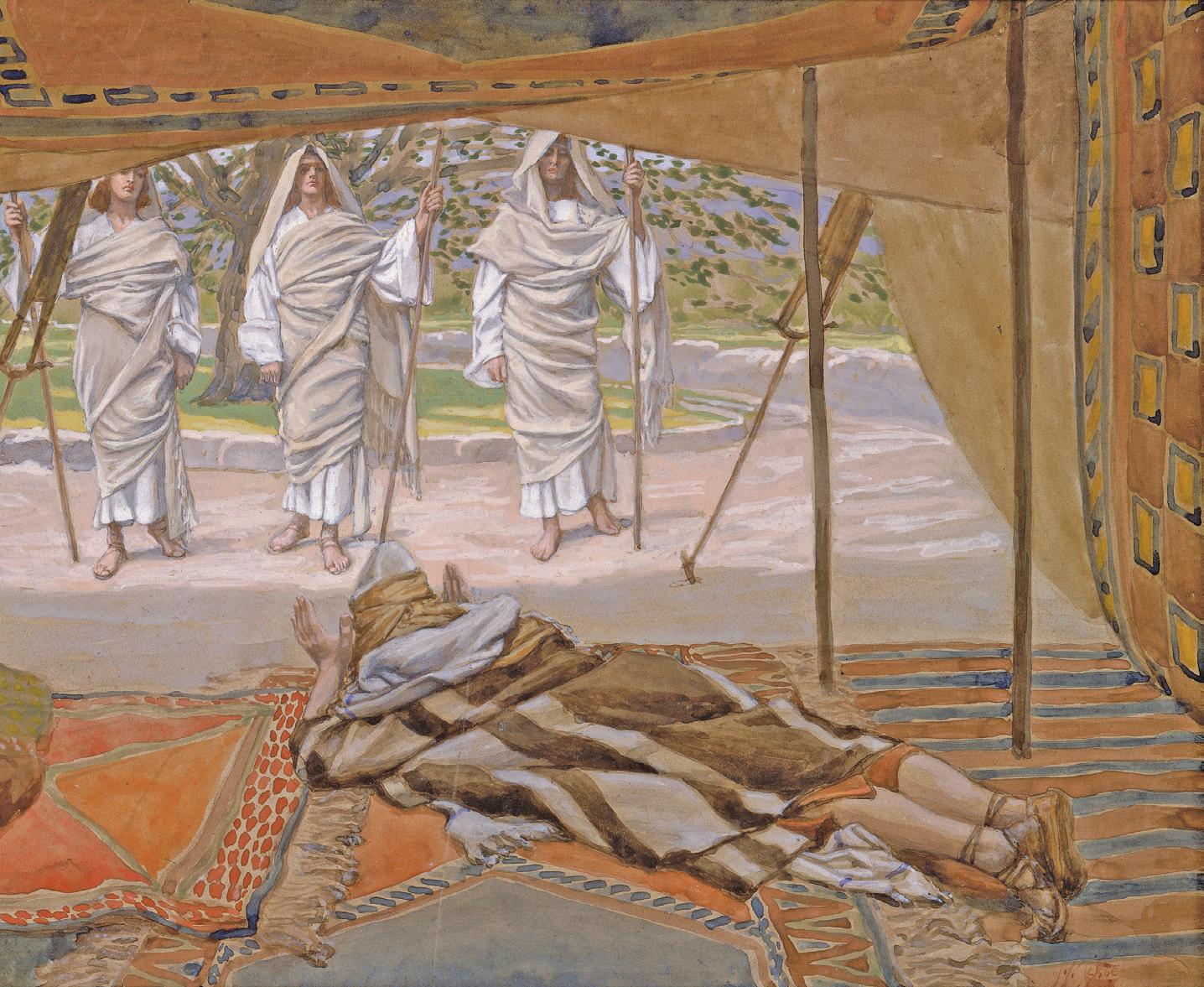
Did Abraham change? Was he hardened by life? Or do these stories teach us something else? Perhaps.
Abraham was a nuanced and complicated person, a flawed character like all of our ancestors in the Torah and like all of us. He reacted like a human being, sometimes mustering great compassion and sometimes lacking it entirely.
All of the matriarchs and patriarchs in the Torah are complicated human characters. Wouldn’t it be nice if we had perfect ancestors to look up to? I suppose it would, but the Torah is a manual, a guide for navigating life. And human beings are complicated and multi-faceted. We can be compassionate and empathic; we can be selfish and unaware of the impact of our actions on others.
We read this Torah portion on Rosh
Hashanah to remind us of the possibility of being awakened to our own behaviors. The ram rustling in the thicket caught Abraham’s attention just as he was about to sacrifice Isaac. Abraham put down the knife that he was holding. “Vayisah Avraham et eynav” — “Abraham looked up” — and “vayar” — “saw with clarity.”
It is the ram’s horn that becomes the central symbol of Rosh Hashanah, the shofar that wakes us up. Its message is a profound reminder on Rosh Hashanah and all year long that we must be intentional about our choices and pay attention to how we impact others.
Reading this parsha again, just a few weeks after Rosh Hashanah, gives us an opportunity to remind ourselves of this lesson as we actually live in the New Year. n
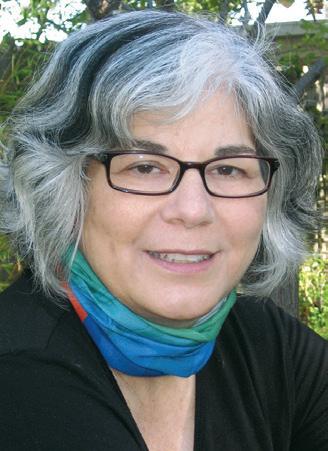
To frizzle means to cook something until it sizzles, turning crisp and browned. You can combine the smoky taste of char with Mizrachi and Sephardic seasonings, lots of garlic and the tang of amba (or mustard) to create Oven-Frizzled Brussels Sprouts, a distinctive side dish for Thanksgiving or seasonal Shabbat dinners.
Amba is an Israeli-Iraqi condiment made from fermented sour mango and curry-like seasonings. It is available at kosher, Middle Eastern, specialty and online markets. It is best known as a topping for falafel or sabich, the Iraqi Jewish eggplant sandwich, but it adds a savory and tart flavor to many foods. If it’s unavailable, you can substitute mustard. (See recipe notes.)
The recipe serves four and easily doubles or triples for a crowd. Use a separate baking sheet for each pound of sprouts.
Serves 4
About ⅓ cup oil, divided 1 lb. Brussels sprouts
¼ cup chopped garlic, cut in ¼-inch pieces
1 tsp. kosher or coarse sea salt, plus as needed
½ tsp. ground black pepper
½ tsp. ground cumin
¼ tsp. crumbled dried mint leaves
¼ tsp. red chili flakes, plus as needed
1-3 Tbs. amba (see notes), divided
2 Tbs. tahini
1-2 Tbs. chopped fresh parsley, optional
Brush large, rimmed baking sheet with 2-3 Tbs. oil. Put pan on center rack in oven. Heat oven to 450 degrees.
While oven heats, trim ends off sprouts and cut in half from top to bottom. Place in large bowl, including any loose leaves. (They make the best charred bits.)
Stir garlic, salt, black pepper, cumin, mint, chili flakes and 2 Tbs. oil into sprouts. Mix until evenly coated. Add 1 Tbs. oil if needed.
Once oven reaches 450 degrees, remove hot baking sheet. Close oven door to retain heat. Spoon a few sprouts onto hot pan and listen for the sizzle. If they sizzle, spread the rest in a single layer on baking sheet and return to oven. If they do not sizzle, oil is not hot enough. Return sprouts to bowl and return pan to oven for 10 minutes and try again.
Roast sprouts for 10 minutes, turn with a spatula and roast for another 10 minutes. Pierce with a fork to check tenderness. (For crisper sprouts, fork should meet a little resistance in center, for softer ones, it should glide through.) Continue cooking, turning and testing in 5-minute increments until sprouts are at desired texture and as brown or charred as you like. (I like them blackened.) If the sprouts are browning faster than you’d like, remove from oven, transfer to microwave-safe bowl and finish in microwave on high, heating and stirring in 30 second intervals until cooked through.
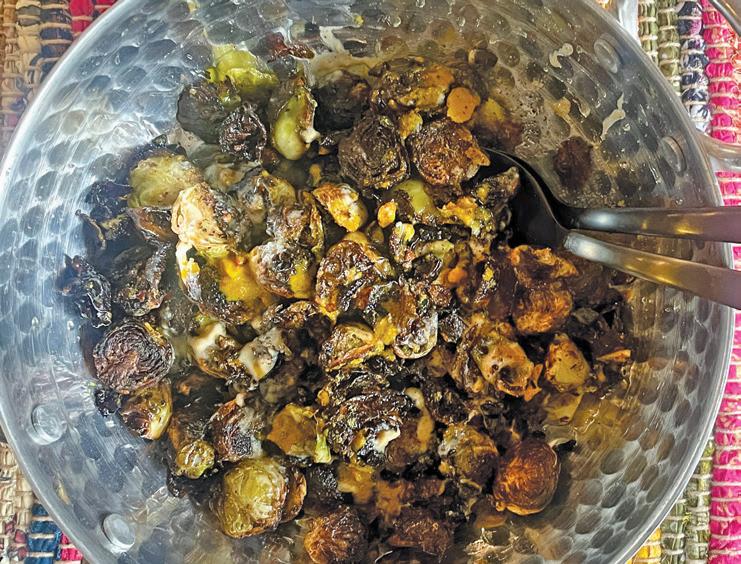
Turn hot, roasted sprouts into large bowl. Mix 1 Tbs. amba with 1 Tbs. oil. Stir into sprouts. Taste. Add second tablespoon amba if desired as well as more salt and or chili flakes if needed. Serve hot, warm or room temperature, drizzled with additional 1 Tbs. of amba and the tahini and sprinkled with parsley.
Notes: I like to pass additional tahini for guests to mix with the sprouts. If you need a substitute for amba, mix 1 tsp. yellow mustard with 1 Tbs. oil. Mix into sprouts. Taste. Add 1-2 tsp. more mustard as desired. Garnish with tahini and parsley.
To make ahead, prep sprouts and toss with oil, garlic and seasonings and refrigerate for 1 day. Bring to room temperature. Roast as directed. To roast in advance, slightly undercook. Do not add amba mixture yet. Refrigerate up to 3 days. Bring to room temperature. Roast on oiled baking sheet tray in 450 degree oven, turning occasionally until crisped and heated (about 10-15 minutes). Finish with amba as directed. n
LET’S PLAN YOUR

Our team of experienced events experts knows how to party, and they’re ready to plan your holiday gatherings— business or personal, large or small, elegant or casual.
With flexible spaces and delicious menus that can be customized for your group, Private Events Manager Karen Almazan and her team will work with you to create new memories this holiday season: 415.777.2233 | events@onemarket.com
Reserve your table at the early or late seating to ring in the New Year with Chef Mark Dommen’s festive menu including a glass of bubbly, Billy Philadelphia at the piano and fireworks at midnight.
See the menu and reserve a table at onemarket.com

The Food section is supported by a generous donation from Susan and Moses Libitzky
THE ORGANIC EPICURE ALIX WALL
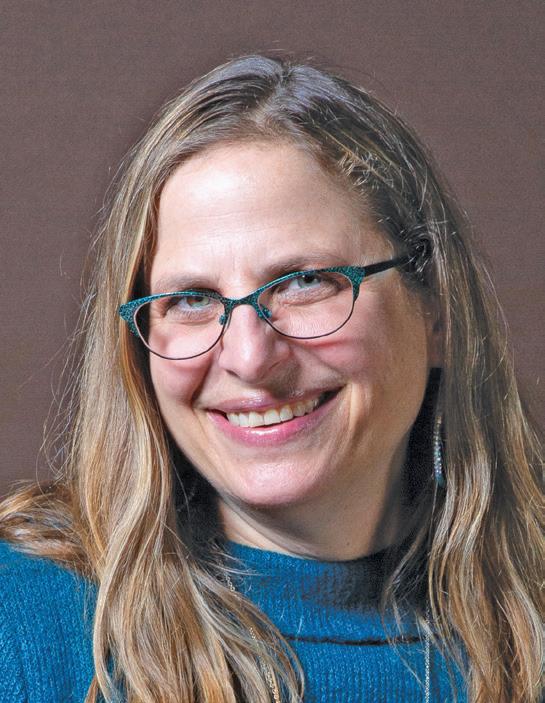
Alix Wall is a contributing editor to J. She is also the founder of the Illuminoshi: The Not-So-Secret Society of Bay Area Jewish Food Professionals.
Part of being J.’s food columnist means being asked by readers where they can find the best fill-in-the-blank. The blank has been “a good rye bread” more than a handful of times. I just found a swoon-worthy one in Santa Rosa.
While Marla Bakery and Cafe isn’t a Jewish bakery per se, co-owner Joe Wolf is proud of its Jewish offerings: bagels and fixings that are all made in-house (more on those in a moment) and a rustic rye sourdough loaf that gets just the right amount of tang from its rye flour and sourdough starter. Wolf said the bread went through many iterations to get to the recipe they use now. While it’s a deviation from the classic Jewish rye and more of a California hybrid, I believe it should satisfy the demand for discerning rye lovers.
Wolf, 43, is the owner with his wife, Amy Brown, of Marla SR Bakery and Cafe in Santa Rosa, offering breakfast and lunch as well as baked goods in the historic Railroad Square district. They opened last year after a successful run in the Outer Richmond of San Francisco. Brown is the baker and pastry chef of the pair, while Wolf does much of the savory fare.
Marla is an acronym for the important family members in their lives from whom they inherited their love of all things food. For Wolf, that includes his mother Ruthi, great-grandmother Reba and grandmother Lois.
Wolf’s background is pretty uncommon in the Bay Area food world. He grew up Orthodox in Des Moines, Iowa, where his uncle Joey was the kosher butcher in town. Wolf’s paternal grandparents were Holocaust survivors. He attended Jewish day school and wrapped tefillin daily from his bar mitzvah until he graduated from high school. The family kept strictly kosher.
He recalled making kreplach with his great-grandmother Gertie as a child and the warm memories associated with that.
“I was enamored with the traditions of the Jewish holidays and Shabbat since they were so food-centric,” he said. “I fell in love with them early on.”
He recalls food as the driving force that kept his family close.
“Every Shabbat, we’d go back and forth between Bubbe and Zayde’s and Nanny and Poppy’s,” he said, referring to both sets of grandparents. “Food drove all the fun in our lives.
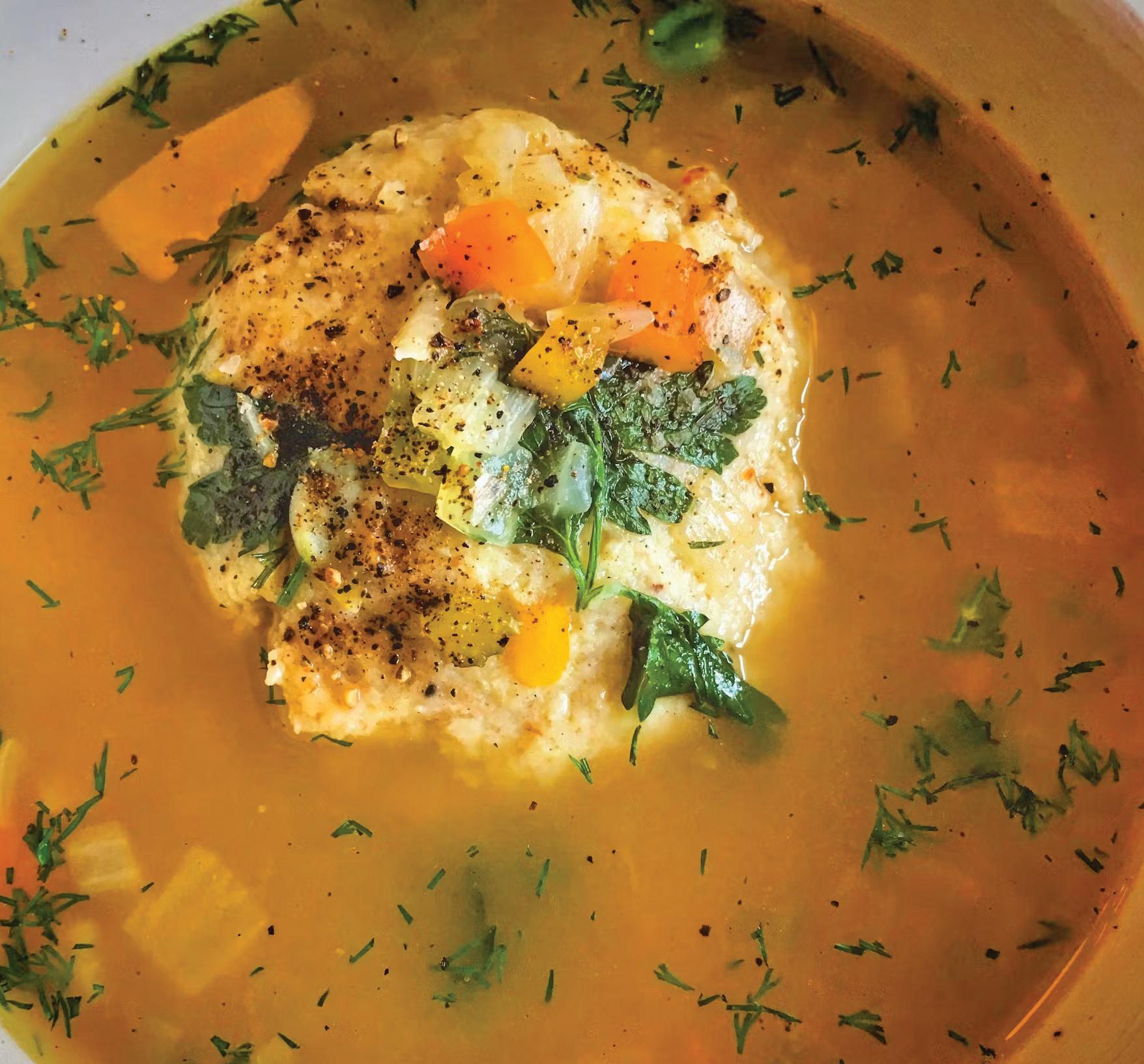
“I
was enamored with the traditions of the Jewish holidays and Shabbat since they were so food-centric. I fell in love with them early on.”
Joe
Wolf, Marla co-owner
During Pesach, we’d have a huge seder, and all our family would drive near and far. I always saw it as something that brought my family together, and that was my favorite thing in the world.”
At the same time, food was complicated for him, since he was diagnosed with Type 1 diabetes at the unusually early age of 6 months. “Food has always been enemy and ally for me,” he said.
Wolf moved to San Francisco in 2008. After some less than satisfying years in the film industry, he attended the California Culinary Academy in San Francisco, motivated both by his love of cooking and his desire to better understand nutrition. He began working in restaurants like San Francisco’s Nopa (where he met Brown, then its pastry chef). In 2012, he was part of the opening team of Wise Sons Jewish Delicatessen, where as kitchen manager and head pickler he made all of the pastrami, corned beef, pickles and matzah balls.
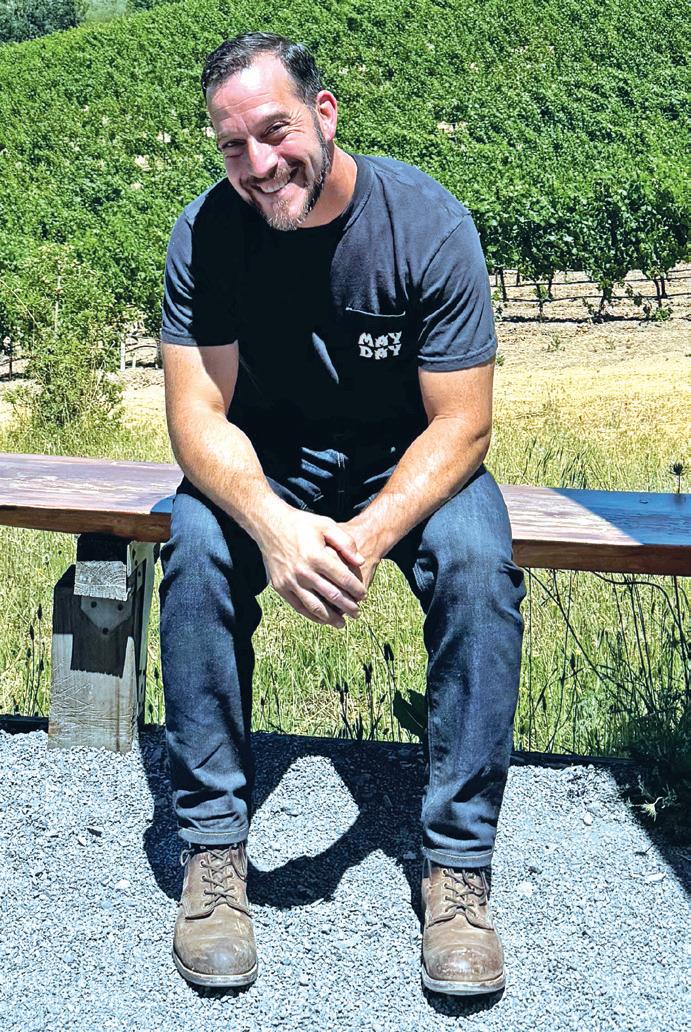
“I was employee No. 2 and did all the prep work,” he said. “Anything on your plate, I had a big part in creating.”
At the same time, he and Brown wanted to start something of their own. They began with a kitchen space with a takeout window selling pastries and coffee in the Mission District. They ran that for a while until they decided to open a dedicated bakery space in 2014. Located on Balboa Street, across from the classic movie theater, it was the site of their wedding before the space was completely finished. In 2019, they moved their young family, and their business, to the Santa Rosa area.
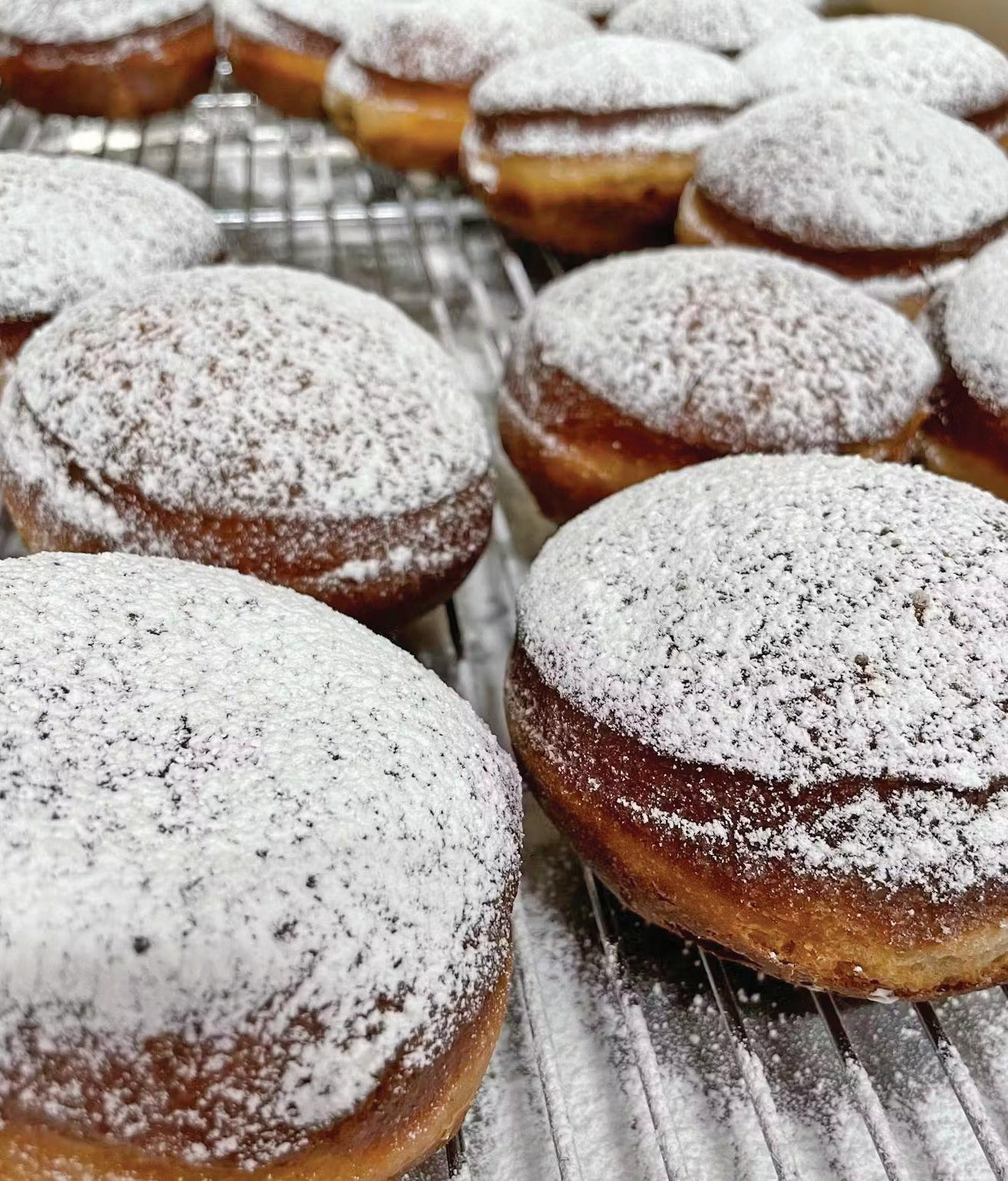
They started by baking in a kitchen in Windsor and selling in farmers markets, which worked well during the Covid pandemic. A year ago, they opened the bakery and cafe in downtown Santa Rosa.
Wolf continues to make his own pastrami and pickles. They offer a limited number of bagel toppings, but all are house-made. Wolf smokes trout; he won’t do salmon since it’s not sustainable. The smoked trout has a similar mouthfeel and easily satisfies the smoked fish craving.
Brown makes the schmear. It’s not cream cheese, but a house-made farmer’s cheese instead.
“Amy loves making cheese, it’s one of her favorite things,” he said. Hers is inspired by the soft French cheese Boursin and made
In 2012, Wolf was part of the opening team of Wise Sons Jewish Delicatessen, where as kitchen manager and head pickler he made all of the pastrami, corned beef, pickles and matzah balls.
from buttermilk and cream, to which she adds lemon zest and scallions.
The cafe also has some lighter fare. I had a wonderful fall salad when visiting, with frisée, roasted delicata squash and toasted hazelnuts with a poached egg on top.
They make their own bagels, as well as challah every Friday. They also make their own matzah every Passover and sufganiyot for Hanukkah.
Marla offers catering, and Wolf and Brown have done some special dinners. One earlier this year paid homage to Sammy’s Roumanian Steakhouse, a New York institution that Wolf’s family always visited when in New York.
While he left his kosher observance behind a long time ago, Wolf said he applies the same mindfulness about ingredients to organics. Nearly all of their grains are organic, and almost all of their produce comes from local farms.
Marla SR Bakery & Cafe (marlabakery.com), 208 Davis St., Santa Rosa. Open 8 a.m. to 3 p.m. Thursdays, 8 a.m. to 8 p.m. Fridays and 9 a.m. to 3 p.m Saturdays and Sundays.
Wise Sons Jewish Delicatessen at the JCC of San Francisco is now open. The deli’s new spot in the cafe space at JCCSF — vacant since March 2020 — is the fourth Wise Sons location in the city, following the closure of its Contemporary Jewish Museum location earlier this year.
“This is such an exciting time for our members, our staff and really the entire neighborhood,” Paul Geduldig, CEO of the JCCSF, said in a statement. “This location at the JCCSF will be a true community meeting spot for all. I can’t think of anything better than connecting with friends and family over some delicious Jewish food specialties. We look forward to this new café being a foundation of the JCCSF for years to come.”
“This is a new neighborhood in San Francisco for Wise Sons, but this location already feels like home,” said Evan Bloom, one of Wise Sons’ founders. “This partnership is so meaningful for our company, since we pride ourselves on serving authentic Jewish food. And we know that the JCCSF is a gathering spot for people from all backgrounds, so we are excited about welcoming in everyone from the Laurel Heights neighborhood and beyond.”
The cafe is just inside the main entrance of the JCCSF, and the deli’s windows look out onto California Street. It is open from 8 a.m. until 2 p.m. daily.
In addition to providing items like Reuben sandwiches, bagels and matzah ball soup, the cafe offers healthier fare, such as salads. Stumptown Coffee, catering services and Jewish holiday menus are also available. Wise Sons will provide a 10% discount for JCCSF staff and fitness center members.
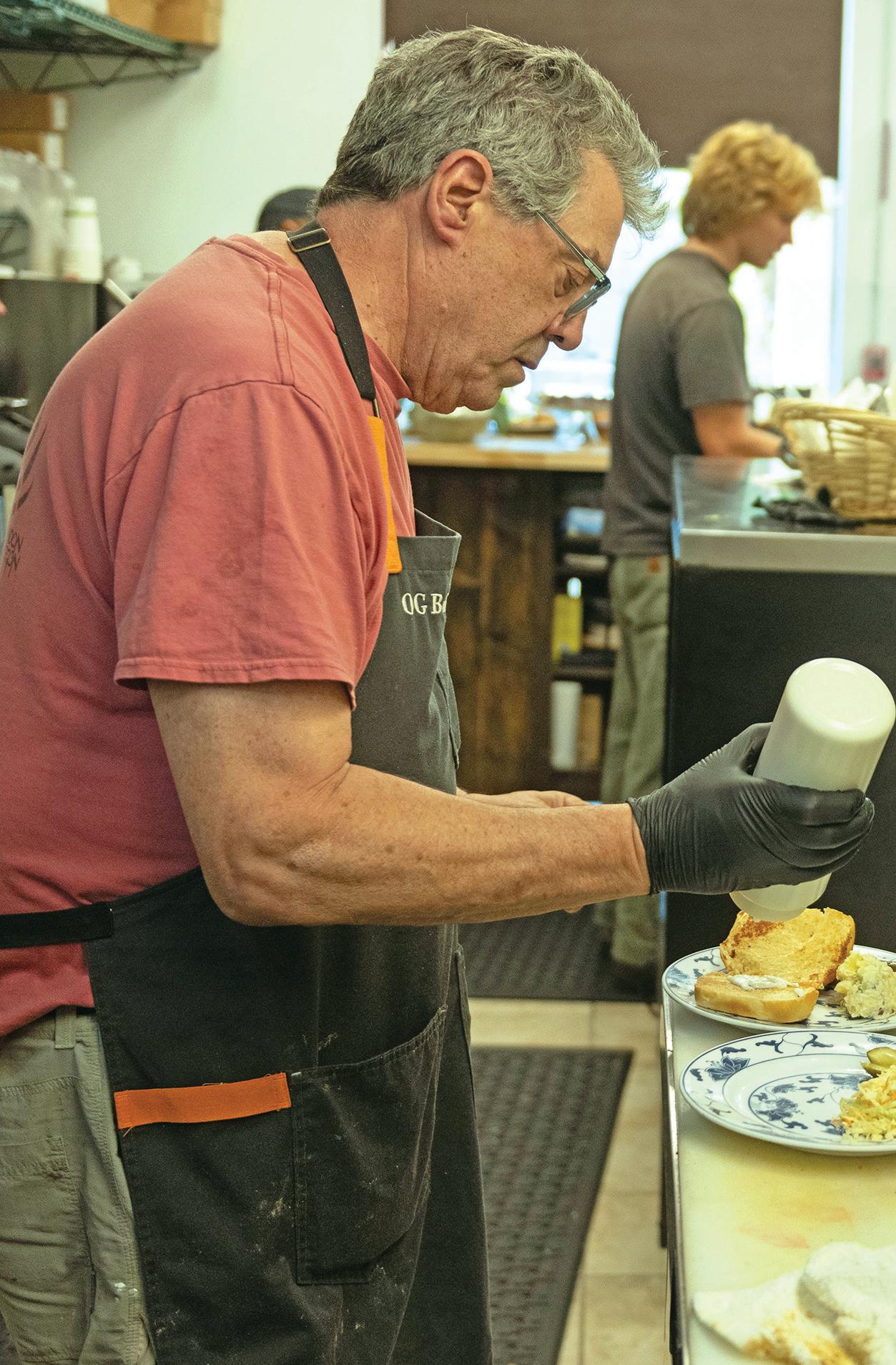
Aaron and Marie Blackman Charitable Fund*
Susan and Howard Geifman*
Nancy W. Marks Fund
In Memory of James and Roslyn Marks
Yvette Adida
Mikki and Jerry Baer
Rona Bar-Din and Theodore Levin
Susan and Allan Bernstein
Sheila and Art Braufman
Sharon and Ron Brown
Suzanne and Jeffrey Cantor
Marge and Marc Caspe
Steve Cherwon
Leona Cleaner
Susan and Mitchell Cohen
Adriane Concus and Jeremy Lieberman
Toni and Ben Coplan
Doris and Larry Cutler
Claire and James Davis*
Beth Eiselman
Tina and Eric Eisenman
Deborah and David Enelow
After too many false starts to count, Bubbala’s finally opened in San Anselmo on Nov. 2. While I will have a full report on it in the next column, I just wanted to be sure to announce the news, since eager locals have been hankering for it to open for well over a year now, ever since J. announced it in August 2023.
Owner Greg Bernson said that they’ve been running out of certain items since they didn’t know how busy they would be at opening, and didn’t even know when they would get the green light. But he hopes to rectify that soon.
“I’ve been trying to make blintzes for four days,” Bernson said. “Maybe tomorrow.” n
Bubbala’s, Red Hill Shopping Center, 906 Sir Francis Drake Blvd., San Anselmo. Open
7 a.m. to 3 p.m. weekdays and 7:30 a.m. to 3:30 p.m. Saturdays and Sundays.
Sarah and Rabbi Joseph Felsen
Toby Flax
Karen and Lorry Frankel
Susan J. Frankel
Carol Gaspar
Lynne Gilmore
Ellen Konar Goldband and Steve Goldband
Fifi Goodfellow
Dorothea Gordon and Charles Gordon z”l
Rabbi Jessica and Jonathan Graf
Deborah Grossman
Sylvia Guendelman
Minette and Isac Gutfreund
Esther and Norman Harris
Judy Harris
Dorothy Heller
Stephanie and Rudy Hoffman
Ronna and Don Honigman
MacKenzie and Tam Huynh
Marsha Jacobs
Laurie Josloff
Joy and Joel Kellman
Robert A. Kessler
Nancy Klehr
Candee and Jack Klein
Jill Kneeter
Ruth and Jay Koch
Patricia and Irving Koppel
Marilyn and Norman Krasner
Rachel Landes
Randy and Rich Lavinghouse
Anita Levitch
Roger D. Levy
Solange and David Levy
Ron Lezell
Barbara Liepman
Michael Liffmann
Ileene Link
Annette Lipkin
Laura Lipman
Cassie and Mickey Luckoff
Terry Magnin
Jason Mandell
Elana Marinelli
Richard Mazze
Annie McTavish
Marilyn and Harry Nebenzahl
Elka Niclas
Karen Kaufman Perlman and Brian Perlman*
Harriet Prensky and William Pomeranz*
Leslie and Merle Rabine
Ginette Remak
Gerald Roberts
Barbara Rogan
Isadore Rosenthal
Ona Rotenberg
Sheree and Ronald Roth*
Geoffrey Rothman
Erica and Ron Rubenstein
Maureen and Michael Samson
Deborah Satten
Jonathan Seder
Marcyl Seidscher
Sandra Seligson
Paula and Paul Siegel
Susan Simpson
Sandra Slosberg
Linda and Ron Smetana
Valerie Snart
Karl Sonkin
Lisa Tabak and Jeffrey Lipsett*
Laura Talmus and Ace Smith
Adrienne and Neil Tuch
Joanna Weinberg and David Levine
Martha Whittaker
Lonna and Bernard Wolf
Anonymous
*A Donor-Advised Fund of the Jewish Community Federation and Endowment Fund
EMMA GOSS | J. STAFF
Bernard Arfin, popularly known as Bernie, spent his working life in the sciences and his entire life as a “sports nut.” On Nov. 7, the Palo Alto resident marked his 100th birthday.
Days earlier, his longtime synagogue, Congregation Beth Jacob in Redwood City, hosted a Kiddush luncheon in his honor on Nov. 2. Three of his grandchildren read from the Torah during Shabbat services that morning.
“It’s a good life,” he told J. over the phone.
Born in Brooklyn on Nov. 7, 1924, and raised in the Bronx as the only child of Polish and Belarussian Jewish immigrants, Bernie spoke Yiddish at home with his parents. (To this day, he’s still literate in Yiddish.)
In college, Bernie went into electrical engineering, earning his undergraduate degree from City College of New York in 1945, followed by a master’s degree from the University of Michigan, Ann Arbor, in 1948. He moved to California in the 1950s to earn his Ph.D. in electrical engineering from Stanford University; his field of research was high-power microwave tubes.
While a student, he joined a Jewish young adult group called the Peninsulites. In July 1954, during a Western States Jewish Youth Council gathering at Asilomar, he met Joanne Sussman, the assistant editor of the Jewish Bulletin (forerunner of J.), who was covering the conference for the newspaper. The two began dating, and in July 1955 they married in Tacoma, Washington, Joanne’s hometown. (J.’s soon-to-debut podcast “Such A Match,” coming this winter, features an episode with Bernie and Joanne discussing their love story
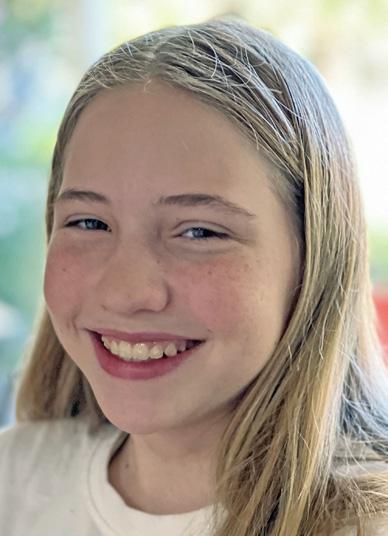
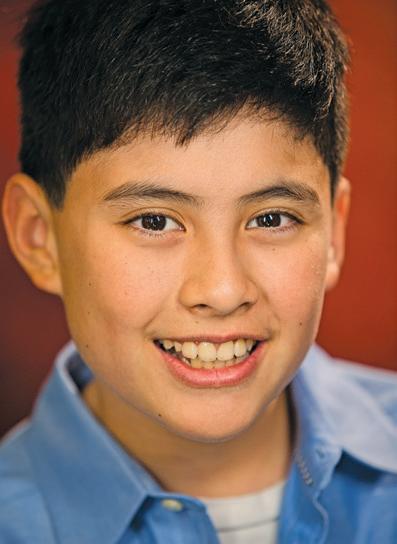
VIVIAN ALEXIS HEIFETS Daughter of Katharine Hardenbergh Wies and Boris Dov Heifets, Saturday, Nov. 23, at Congregation Beth Am in Los Altos Hills.
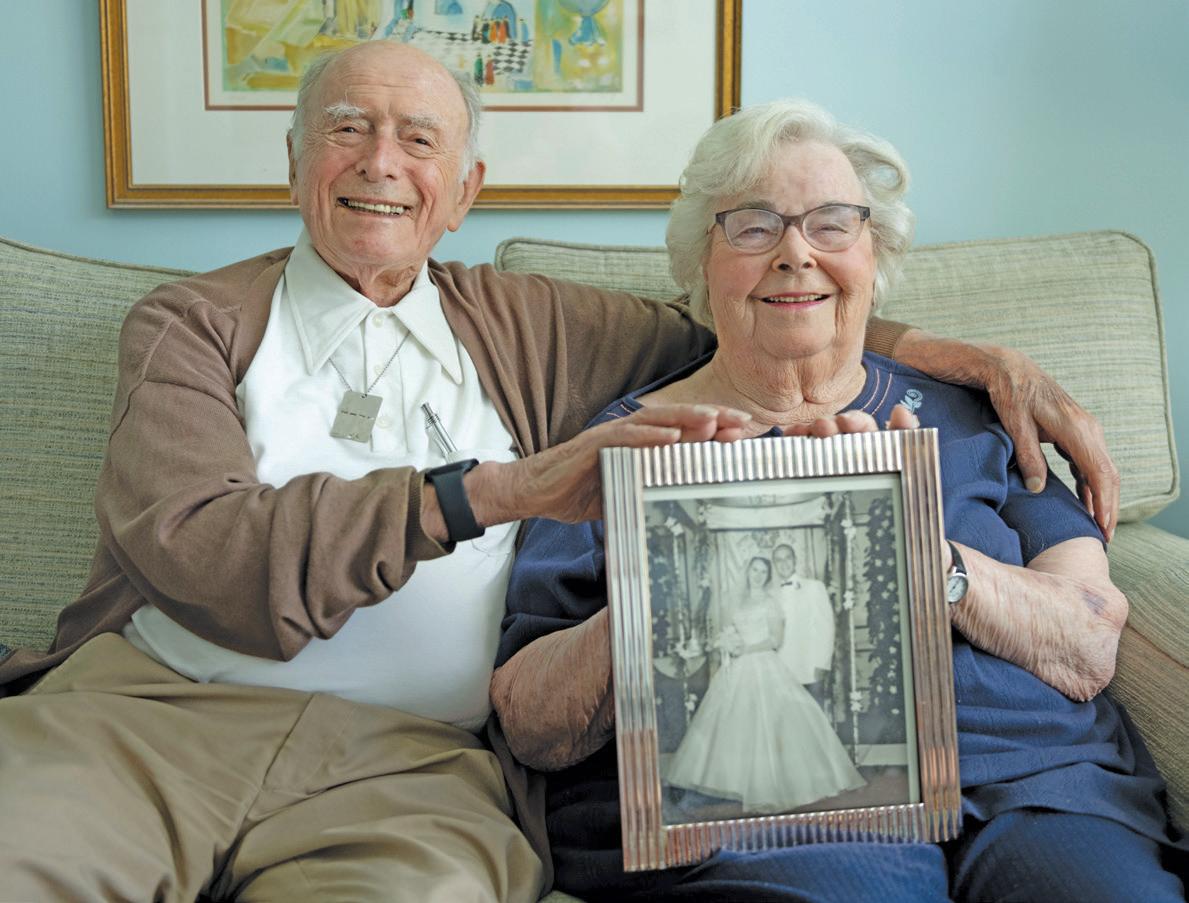
Carlos, where the family lived for many years. In 1968 they spent a year in Jerusalem, where Bernie taught physics at Hebrew University. In 1979, they relocated once again from the Bay Area, this time to Alexandria, Virginia, while Bernie worked at the U.S. Naval Research Laboratory in Washington, D.C., for about five years. He also worked for many years at the Stanford Linear Accelerator Laboratory.
Amid all of these relocations, Bernie said Congregation Beth Jacob has always been the family’s second home. He and Joanne first joined the Conservative synagogue as newlyweds. Bernie became a bar mitzvah as an adult, in 1963, along with a group of about 20 men who studied under Rabbi H. David Teitelbaum. Both Bernie and Joanne served on CBJ’s board, and all of their children and four grandchildren became b’nai mitzvah at the synagogue.
and 69 years of married life.)
The couple, along with their three children, hopped in and out of the Bay Area over the years. In the late ’50s, they briefly lived in New York, where Mimi and Joe were born. (Mimi died of lung cancer in 2010.) Their youngest, David, was born in San
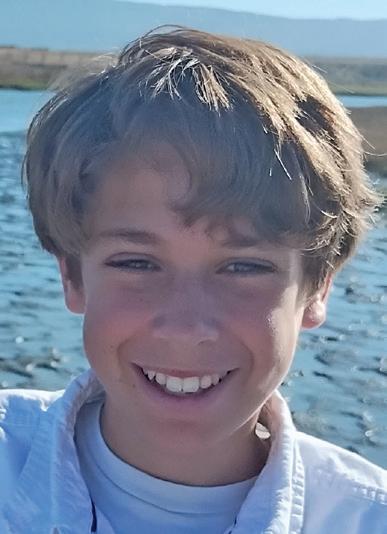
ELI MAXWELL ZEITZER Son of Monica Stemmle and Jamie Zeitzer, Saturday, Nov. 16, at Congregation Beth Am in Los Altos Hills.
EVAN KRONSTADT Son of Amie Wang and Gabe Kronstadt, Saturday, Nov. 23, at Congregation Beth Am in Los Altos Hills.
LIAM SAMUEL BRILLMAN Son of Dr. Salima and Dr. Michael Brillman, Saturday, Nov. 16, at Congregation Beth Jacob in Redwood City.
LEILAH HESSER Daughter of Devra Aarons and Jon Hesser, Saturday, Nov. 23, at Congregation B’nai Tikvah in Walnut Creek.
ASHER JOHNSON Son of Catherine and Dax Johnson, Saturday, Nov. 23, at Temple Isaiah in Lafayette.
ZOEY LIEB Daughter of Tracy Silver-Lieb and Jeremy Lieb, Saturday, Nov. 16, at Congregation B’nai Tikvah in Walnut Creek.
Arfin describes himself as a “sports nut” and has been a lifelong Giants baseball fan, dating back to their days as a New York team. “I remember rooting for the Giants as far back as 1933,” he told J.
Bernie also enjoys following Stanford football and men’s basketball.
When asked how he feels about turning 100, Bernie said despite some health problems he’s “feeling fine.” n
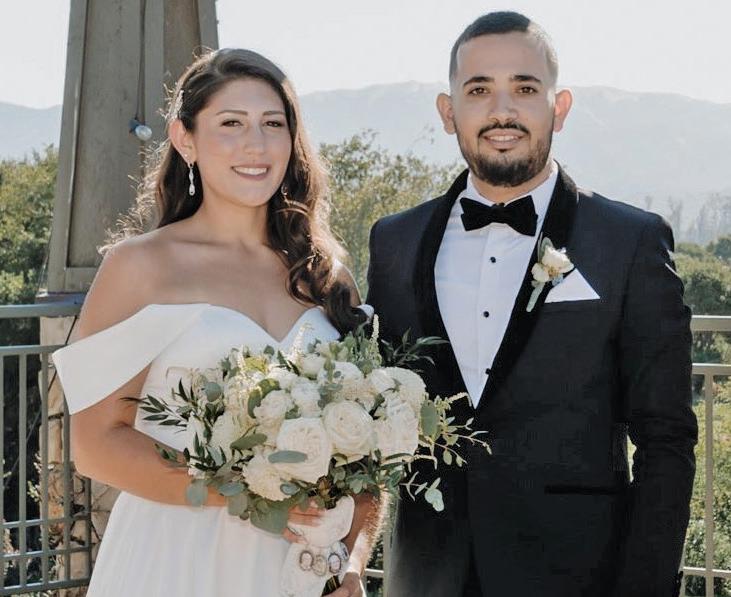
ASAF ELIA-SHALEV | JTA
Bernie Marcus, the billionaire who co-founded Home Depot and became a Republican megadonor and supporter of civic and political causes in the United States and Israel, has died. Marcus, 95, died on Nov. 11 in Boca Raton, Florida. His death came on the eve of an election into which he had poured millions of dollars to support Donald Trump and Republicans across the country.
In the final political donation recorded publicly before his death, made in July, Marcus gave $1 million to the United Democracy Project, a campaign fundraising group a liated with the pro-Israel lobby AIPAC that Marcus has supported since its creation in 2022.
“ e Home Depot is deeply saddened by the passing of our beloved founder, Bernard Marcus,” the company he founded in 1978 said in a statement announcing Marcus’ death. Marcus “never lost sight of his humble roots, using his success not for fame or fortune but to generously help others,” the company said.
In Marcus’ 19 years as CEO, Home Depot became a ubiquitous American brand. He remained chair of the company’s board of directors until 2002 when he le to focus on giving

away the wealth he had accumulated. Over the course of his life, Marcus donated more than $2 billion to various causes, according to Forbes, and he leaves behind an estimated net worth of $11 billion that will mostly go to the Marcus Foundation.

Among Marcus’ legacies are the transformation of downtown Atlanta with the establishment of the Georgia Aquarium; a massive advance in autism awareness and research thanks to the Marcus Autism Center, also in Atlanta; and the founding of the Israel Democracy Institute in Jerusalem, an important think tank focused on governance.
Toward the end of his life, Marcus, with his wife Billi, became perhaps best known for his staunch support of
Donald Trump, second only to Sheldon Adelson among conservative Jewish megadonors. Marcus helped propel Trump into the White House in 2016 by contributing $7 million and gave even more four years later to finance his failed reelection campaign. Last year, he said he intended to support Trump again in this year’s election despite the former president’s felony convictions and his “brash style.”
“We must change the current trajectory of the nation and solve the problems created in the last three years,” Marcus wrote in November 2023 in an oped endorsing Trump.
Unlike Adelson, his peer in philanthropy and Republican politics, Marcus donated money in Israel while making sure to avoid taking sides in the country’s fractured parliamentary politics. In addition to the nonpartisan Israel Democracy Institute, he gave to causes like health care, including the Marcus National Blood Services Center, established with a $25 million donation.
Born in 1929, Marcus was raised in a tenement in Newark, New Jersey by Jewish immigrant parents from Russia. Marcus is survived by his wife and stepson; his children from his first marriage; and grandchildren. ■



As a

1930-2024
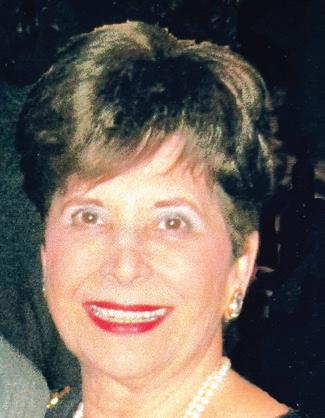
Pauline Berkow died peacefully on Oct. 30, 2024, at the age of 94. Born and raised in Baltimore, Maryland, she married her true love, Joseph M. Berkow, at the age of 19. After having three children, the family moved to Cranston, Rhode Island. Pauline went to college (and later graduate school) at the University of Rhode Island and had a long career as a special education teacher. She had tremendous compassion and patience in helping her students learn to accommodate their learning di erences.
Joseph died suddenly at the age of 49, in 1978. Pauline moved to the Bay Area in 1987 to be closer to two of her children. She taught at Tennyson High School in Hayward and lived for many years in Foster City. She was an active “Nana” and played excellent bridge (earning her Life Master). She married Ronald Kau man after retiring from teaching, and had many good years traveling, enjoying various book clubs, and volunteering in her community. Both she and Ron were longtime volunteers for TheatreWorks, and Pauline also volunteered for literacy programs. She and Ron were regular subscribers to the San Francisco Symphony. Pauline loved to cook for her family. She was very active at the Jewish Community Center in Foster City, where she took many classes – everyone knew her. She was a member of Congregation Beth Am, Los Altos Hills. Pauline loved Torah study with Rabbi
Janet Marder. She was super friendly and had an infectious smile. She lived at Palo Alto Commons the last five years of her life.
She is survived by her three children, Neil Berkow (Ellen), Stamford, CT; Marjory Berkow Greenwald (George), Palo Alto, CA; and Jon Berkoe (Mimi), San Rafael, CA. She is also survived by five grandchildren and six great-grandchildren.
Pauline was laid to rest at Hills of Eternity in Colma. Donations to Jewish causes preferred.
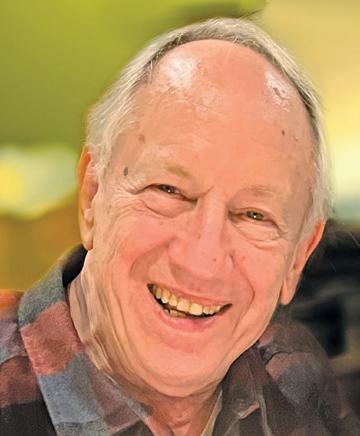
Gary Gibbs Morris passed away peacefully in his favorite chair on Oct. 23, 2024, at the age of 82. A native San Franciscan, he was the loving son of the late Frank and Juel Morris. He shared 54 wonderful years of marriage with the love of his life, Letty. He was the proud father of Allyson (Evan) and Jayson (Andrea). Gary was the older brother of Craig (Cindy) and the brother-in-law to many Puccinellis: John (Jeneen), the late Richard (Roberta and the late Rosemarie), and the late Ann.
He was a kind soul who loved to make others laugh. His hobbies included graphic artistry, reading, cars, crosswords, and television. And he loved his wife more than anything. He will live on in our memories and our hearts.
Private funeral services were held. In lieu of flowers, contributions can be made to KQED or Little Sisters of the Poor SF.


The Obituaries section is supported by a generous grant from Sinai Memorial Chapel, sinaichapel.org
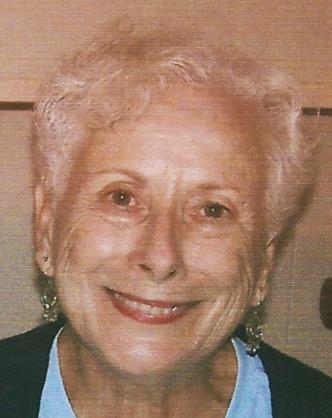
Esther Gloria Gellen, a native of San Francisco, was born on Jan. 21, 1935, and passed away on Oct. 7, 2024. She lived 89 years fully, with great joy, love, and compassion for others. She celebrated and honored each day in style, with a fashionable outfit, high heels, and makeup, whether it was a day at home or a day out and about.
Esther grew up in the Richmond District of San Francisco and attended Washington High School. She loved the city life and enjoyed riding the Muni bus downtown for shopping, events, and meeting friends at restaurants. Committed to the Jewish values of welcoming, comforting, and seeing the positive in people, Esther not only initiated friendships, but kept and nurtured them. She enjoyed learning people’s life stories and sharing many stories of her own.
Esther married the love of her life, Bill Gellen, in
1955 and they celebrated 65 years of marriage before Bill passed away in 2020. She and Bill owned Agnews’ Marina Drugs in San Francisco, where they worked side by side and built a well-known, close community in the Marina for 38 years.
Esther and Bill moved to the Sacramento area 20 years ago to be closer geographically to their grandchildren, Lauren and Joshua, and to be present to watch them grow up. They moved to Eskaton in Roseville 9 years ago, where they developed a wonderful group of friends. Esther had a very active presence in the community, taking art classes, cooking for potlucks, and participating in Eskaton’s rendition of “The Music Man” as one of the Pick-a-Little Talk-a-Little ladies. Despite several health challenges, Esther was determined to continue living independently, doing her own cooking, cleaning, and gardening. She was able to enjoy these activities up until the end of her life.
Esther Gloria Gellen, daughter of the late Tillie and George Noveshen, leaves behind her brother, Larry Noveshen (Judi), her daughters, Karyn Karp (Mary) and Andrea Rosenblume (Harold), and her grandchildren, Lauren Zink (Dane) and Joshua
Rosenblume, and many beloved cousins, nieces, nephews, and friends. She will be tremendously missed by everyone who knew her.
JEANNE SUSNOW SASSOON
Jeanne Evelyn Susnow Sassoon was born in San Francisco at Mt. Zion Hospital on March 15, 1931, the daughter of Rose Zlot Susnow and David A. Susnow, M.D.
Jeanne attended Sherith Israel Sunday School where she was confirmed, as well as the Grant School on Pacific Avenue and then Lowell High School where she was an active member of the Winter Class of 1949 as class officer, Block L and President of the Shield Honor Service Society. She went on to UC Berkeley where she was affiliated with the Alpha Epsilon Phi Society.
Jeanne married Meyer Sassoon (deceased) in August 1952 with whom she raised three children, Joy Helene Sassoon, Sherri Ann Sassoon, and David Abram Sassoon, Ph.D.
Jeanne was devoted to her children and was very active in the San Francisco Jewish community, serving as President of the Mt. Zion Hospital
Auxiliary as well as President of the Temple Emanu-El Sisterhood.
Jeanne is survived by her children and their spouses (Chistophe Deschler and Giovanna Marazzi, M.D.) and four grandchildren, Alessandro Marazzi-Sassoon, Sarah Marazzi-Sassoon (Leonard Ssemakula), Nicolas Deschler and David Deschler, her sister, Gayle Susnow Rodgers (Edwin Lee Rodgers, M.D.), as well as all her dear friends, some of many years and her close community at the San Francisco Towers.
She will be missed by all who knew her. May her memory be a blessing.

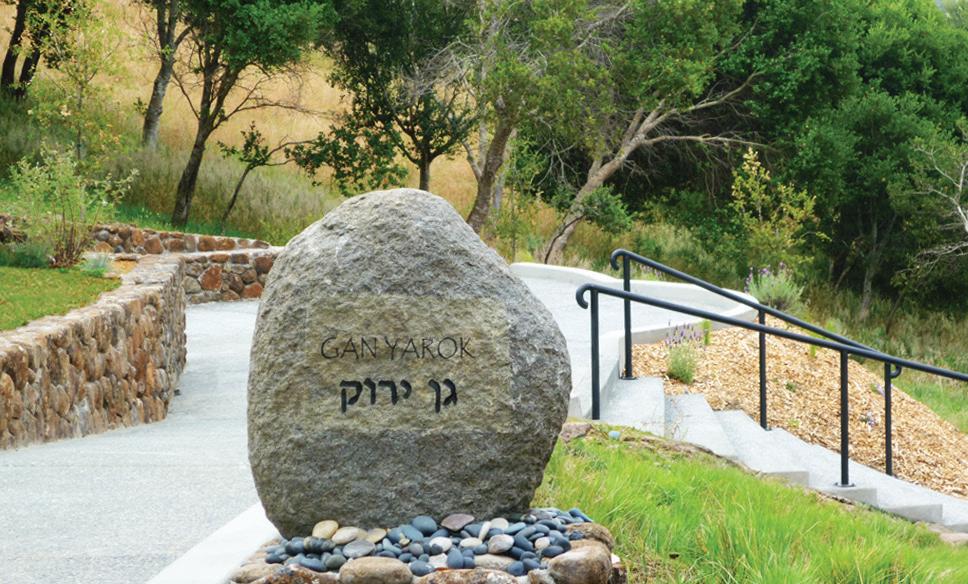
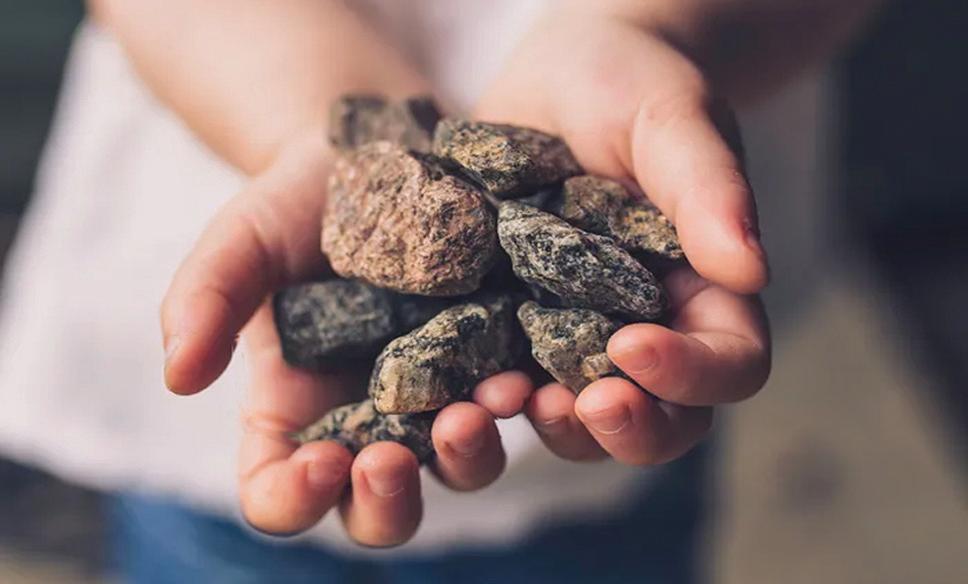
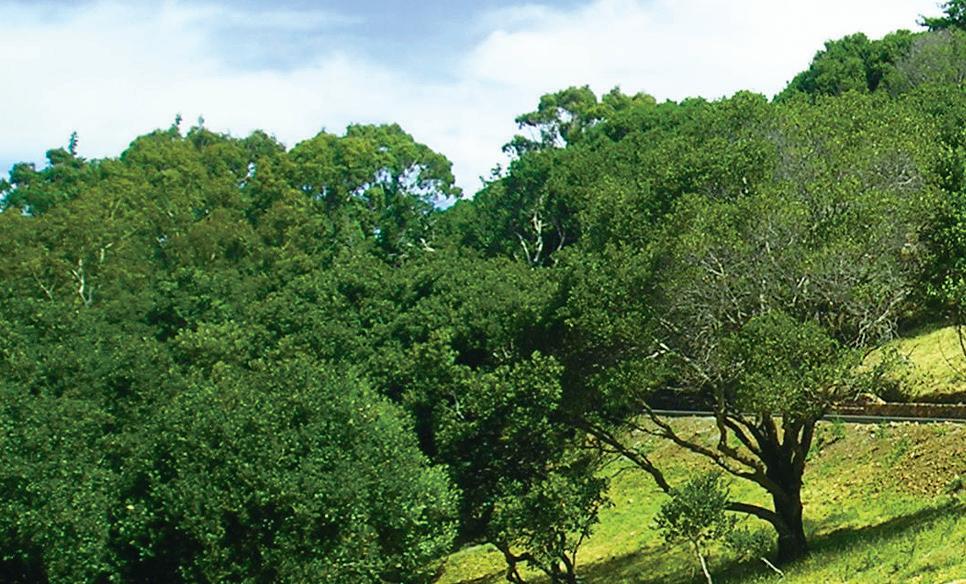

MAYA MIRSKY | J. STAFF
Have you heard? San Francisco has a new Jewish mayor.
Daniel Lurie, the 47-year-old nonprofit exec and philanthropist and son of a prominent San Francisco family, has won his bid, making him the city’s fourth Jewish mayor ever.
The fourth, not the third! History has gotten this fact wrong, and we’re here to set the record straight.
Adolph Sutro is often erroneously cited as the first Jewish mayor, and certainly for many years he was the most famous one. He was a major influence on the city, giving his name to Sutro Heights, the Sutro Baths, Sutro Elementary School and Sutro Tower. He was wealthy and a part of the city’s established German Jewish community, a friend to the kind of people who founded and supported this newspaper.
However, he was not the first Jewish mayor. That honor goes to Washington Bartlett.
Confusion surrounds Bartlett, a man said to have broken many barriers: He was not only the first S.F. Jewish mayor, but also the first, and only, Jewish governor of California. In fact, he was one of the first Jewish governors — or maybe the first — of any state in the U.S.
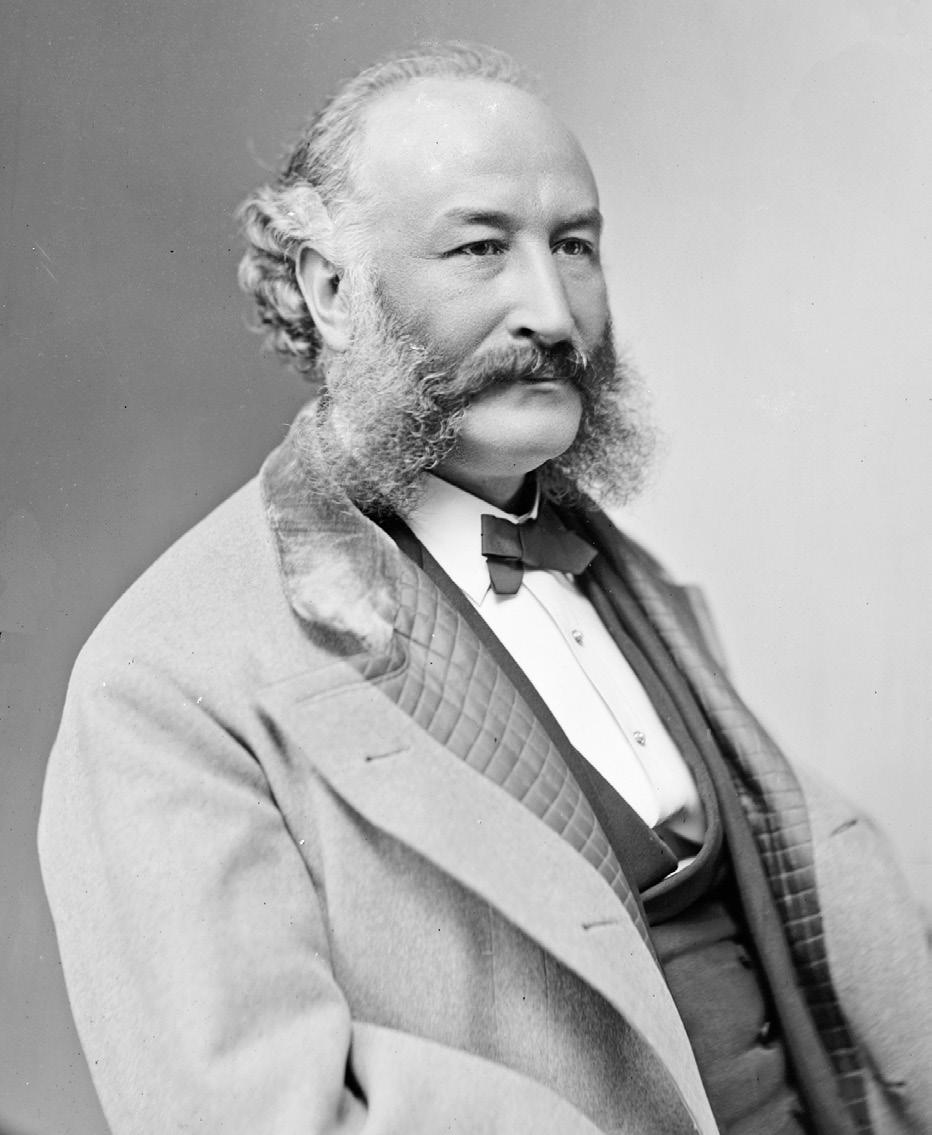
Some claim that title for Georgia’s David Emanuel and others for Idaho’s Moses Alexander. It depends how you want to define “Jewish,” which is more than this column cares to tackle. It’s possible Bartlett may have converted to Christianity; it’s safe to say he was not an overtly practicing Jew. However, his roots go back to an established Jewish community.
“Washington Bartlett’s mother was a Sephardic Jewess, Sarah Melhado, born in Charleston, South Carolina, so by Jewish religious law, Bartlett was Jewish, though his father was a gentile,” California Jewish historian Norton Stern wrote in this paper in 1979. “The future Governor was born in Savannah, Georgia, in 1824, and arrived in San Francisco on November 17, 1849.”
The history of Jewish Savannah is long and the city boasts one of the nation’s oldest Reform synagogues, one of the first
established in the South, according to a 2013 story in J. Savannah’s Jewish community was founded in 1733 by a group of Sephardic Jews from London, and in 1790 its congregation was granted a charter from the state of Georgia, making it the third-oldest Jewish congregation in the United States, according to the Jewish Virtual Library.
We don’t know exactly why Bartlett left Savannah, but a clue may lie in the timing, as he came out to San Francisco during the wave of immigration sparked by the Gold Rush. He arrived with his brother and founded what may have been the West Coast’s first — and shortest lived — daily paper, the Journal of Commerce & Daily Bulletin.
After holding various government roles, he was elected mayor of San Francisco, twice, serving from 1882 to 1886. He was then elected governor of California on the Democratic ticket, but he died in office months later.
“He is frequently confused with a distant cousin, Washington A. Bartlett, who had served as San Francisco’s Mayor (Alcalde) in 1848, but who had no Jewish ancestry,” wrote historian Stern in 1979.
Much of what we do know about Bartlett can be gleaned from a letter to this paper written in 1897, soon after his death, by his brother Columbus Bartlett. He was not satisfied with our coverage at all.
“To the Editor of Emanu-El: My Dear Sir, My attention has been called to an article in the ‘Pacific Jewish Annual for 1897’
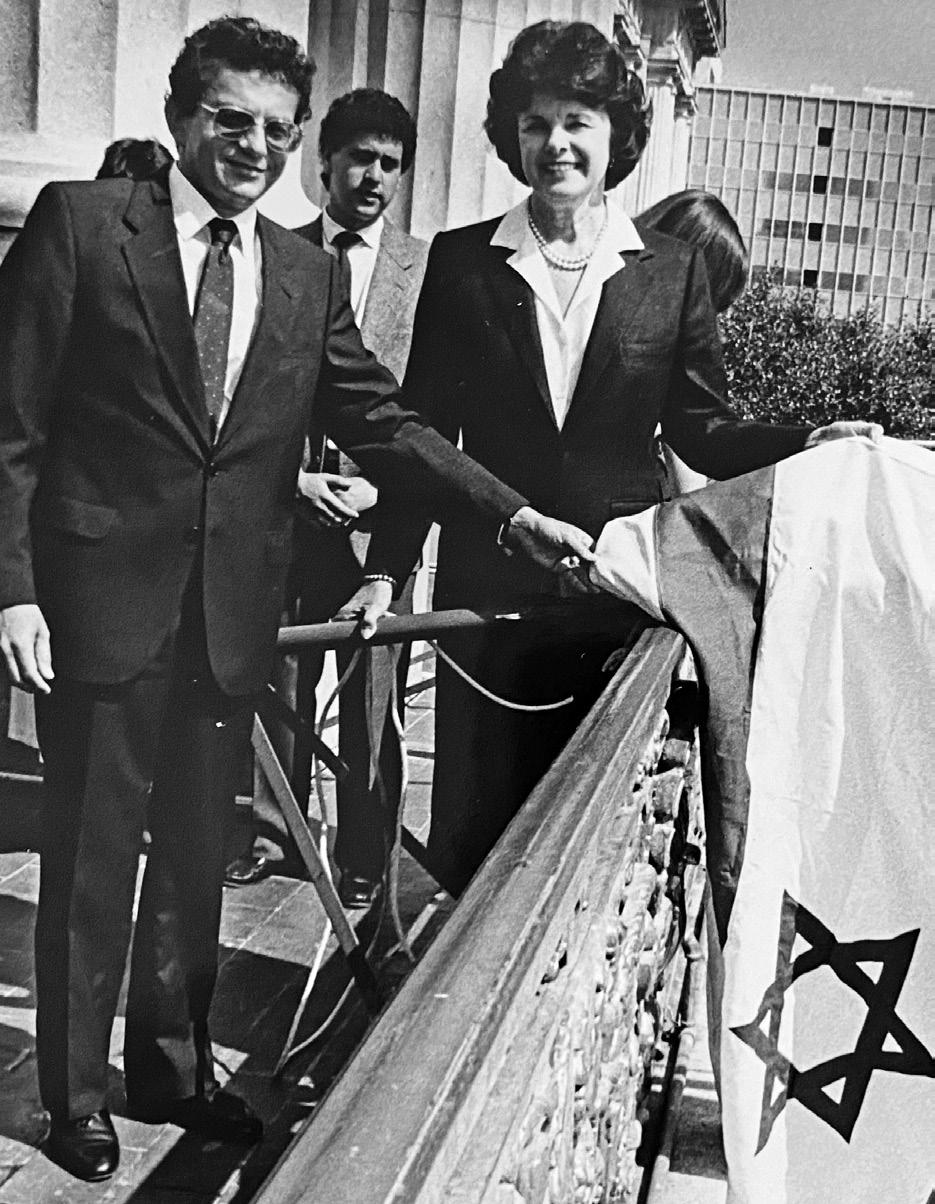
in which reference is made to my late brother, Hon. Washington Bartlett.” (The Pacific Jewish Annual was published by our founding editor, Rabbi Jacob Voorsanger.)
“There are several errors in this statement, viz.: 1st —Washington Bartlett was born in Savannah, Ga., not Charleston; 2nd —The maiden name of his mother was Melhado, not Henriquez; 3rd —He arrived in California Nov. 17, 1849, not in 1848; 4th —He never served as Alcalde of San Francisco; 5th
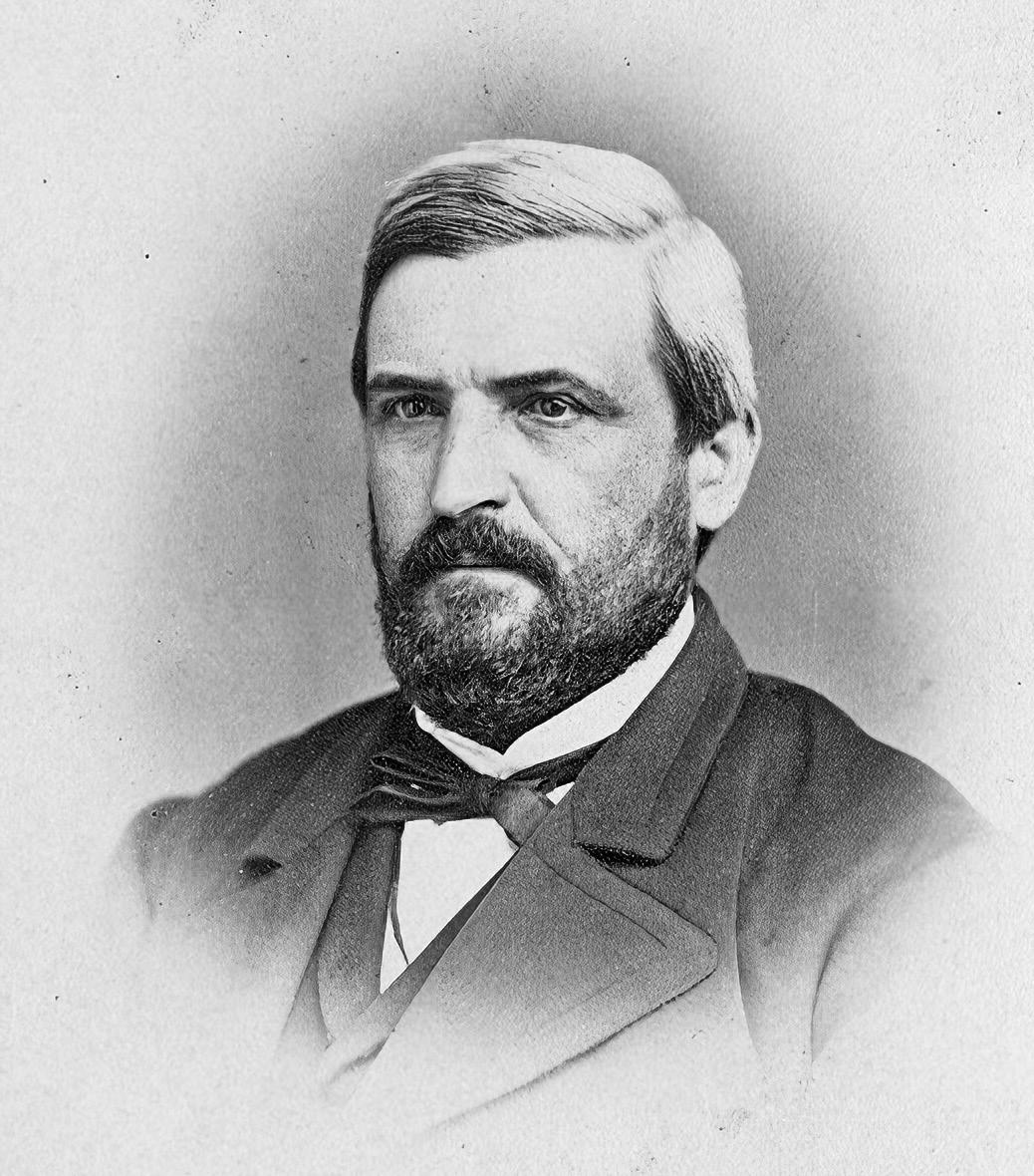
—He died Sept. 12th, 1887, not in 1888.”
So from whence the confusion? Columbus made it clear.
“Lt. Washington A. Bartlett, U.S. Navy (a distant cousin), was Alcalde of San Francisco in 1848. The similarity of names led to the frequent confounding of the two. Lieut. Bartlett left California in 1851 or 1852, and never returned to California, so far as I know. My brother held many positions of trust and honor in this City and State: County Clerk (3 terms) ; State Harbor Commissioner; State Senator; Mayor of San Francisco for two terms, and Governor of California. I am, very truly yours, Columbus Bartlett.”
Following closely on Bartlett’s Jewish heels was Sutro, mayor from 1895 to 1897. While Bartlett is largely an enigma, our paper was pretty full of Sutro.
In 1898, we wrote upon his death that “we know Adolph Sutro in private life to be a most lovable character, a genial host, a helpful man, and a friend of genius. He has helped many students in their struggles and always was delighted when he found opportunity to extricate deserving men from temporary difficulties. He was fond of the companionship of the learned, and in true old Jewish fashion his house was a meeting place of scholars, who found his doors always wide open.”
Wide open to some. Sutro is also known for one infamous incident in 1897, when a Black man named John Harris was denied entry to the Sutro Baths because of his race. Harris sued Sutro and won.
San Franciscans had to wait more than eight decades to see a third Jewish mayor: Dianne Feinstein. She was elected in 1980 after filling the role for two years in the wake of the City Hall assassinations of Mayor George Moscone and Supervisor Harvey Milk. She served as mayor into early 1988.
Since Feinstein, we’ve waited nearly four decades for the next Jewish mayor. Lurie will be sworn in at City Hall in January, 140 years after Bartlett. We will follow his political career with interest. n






















